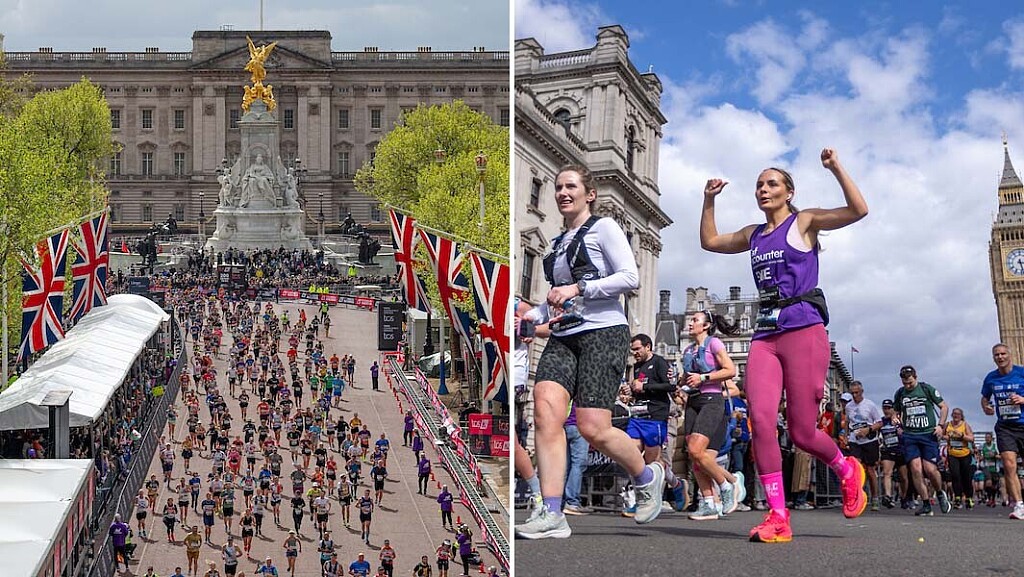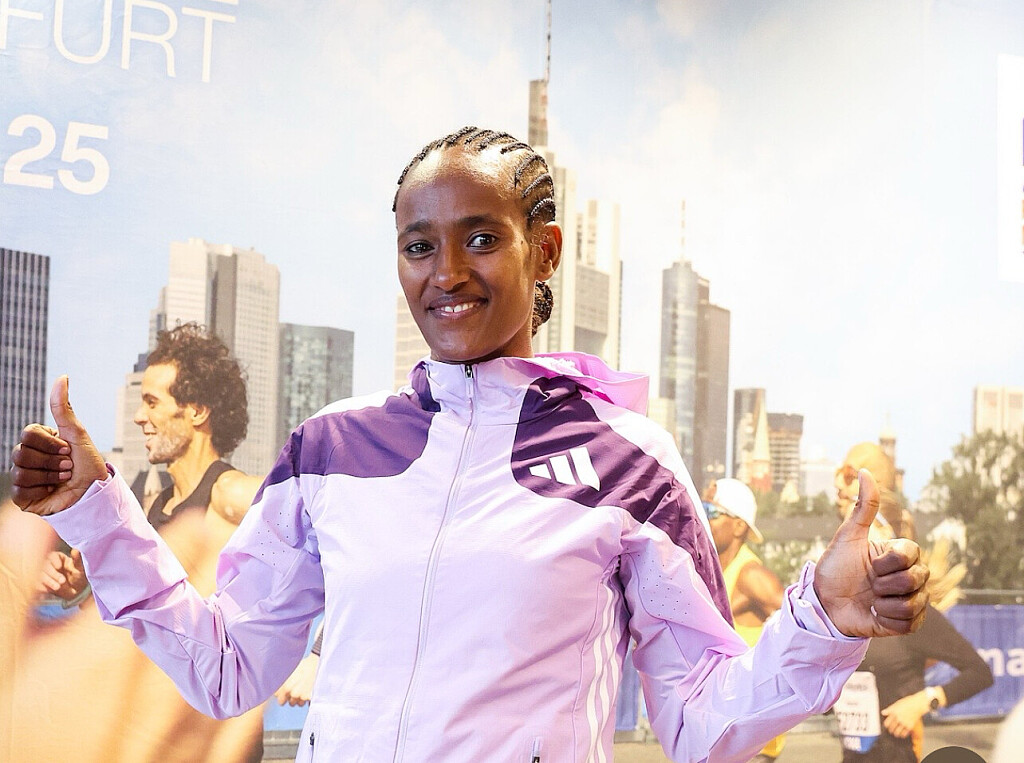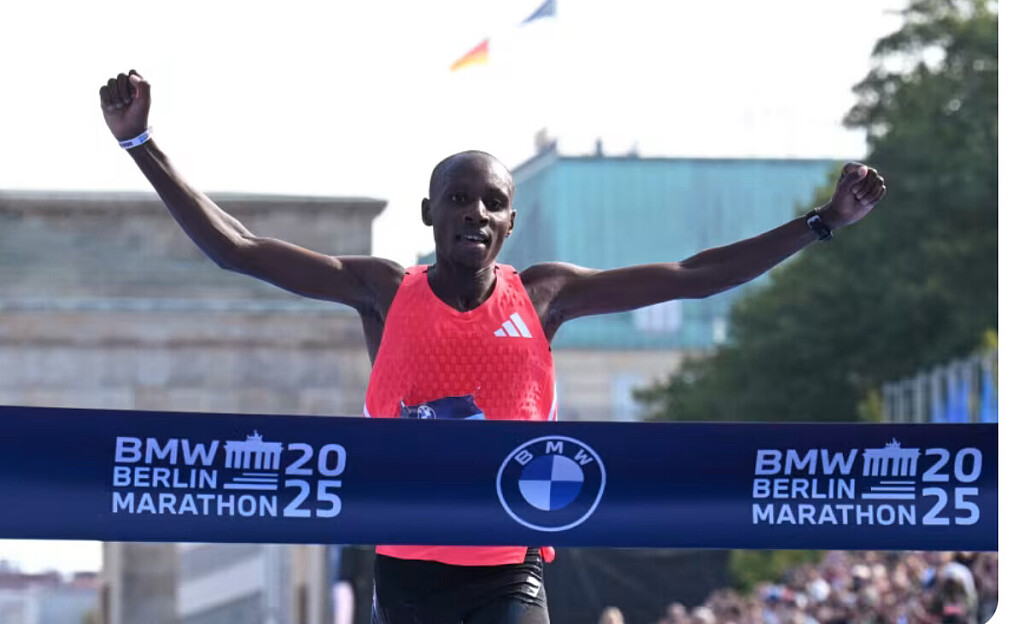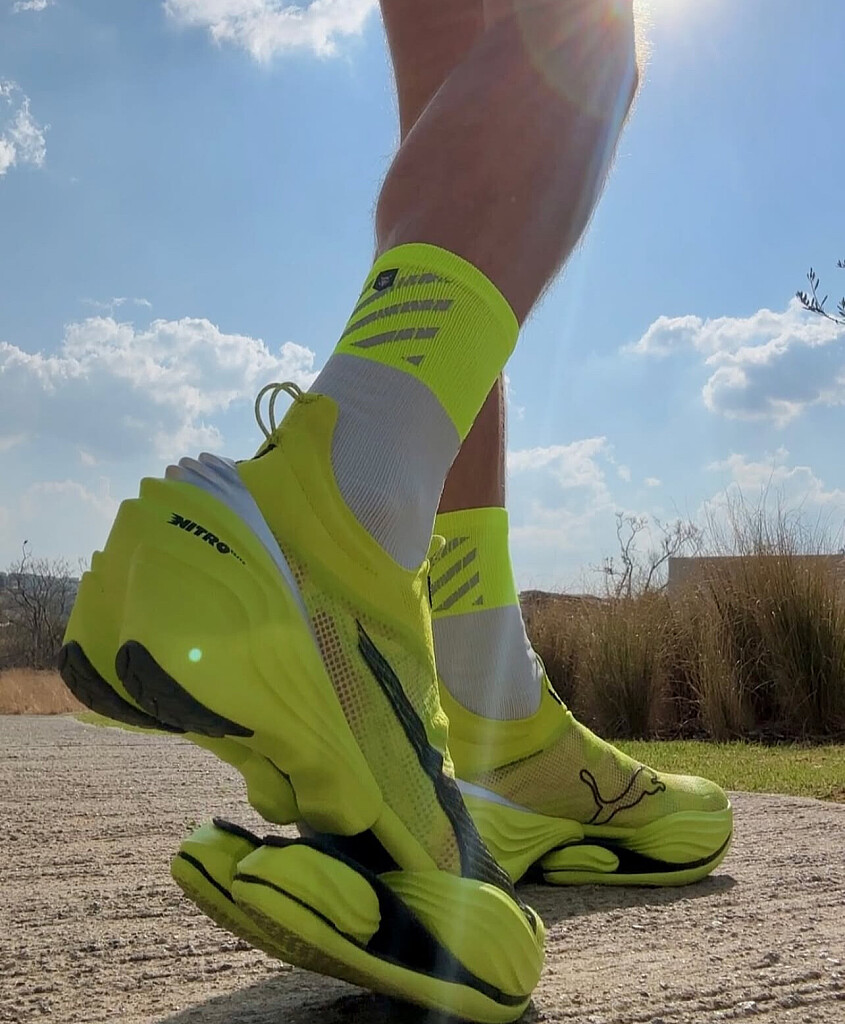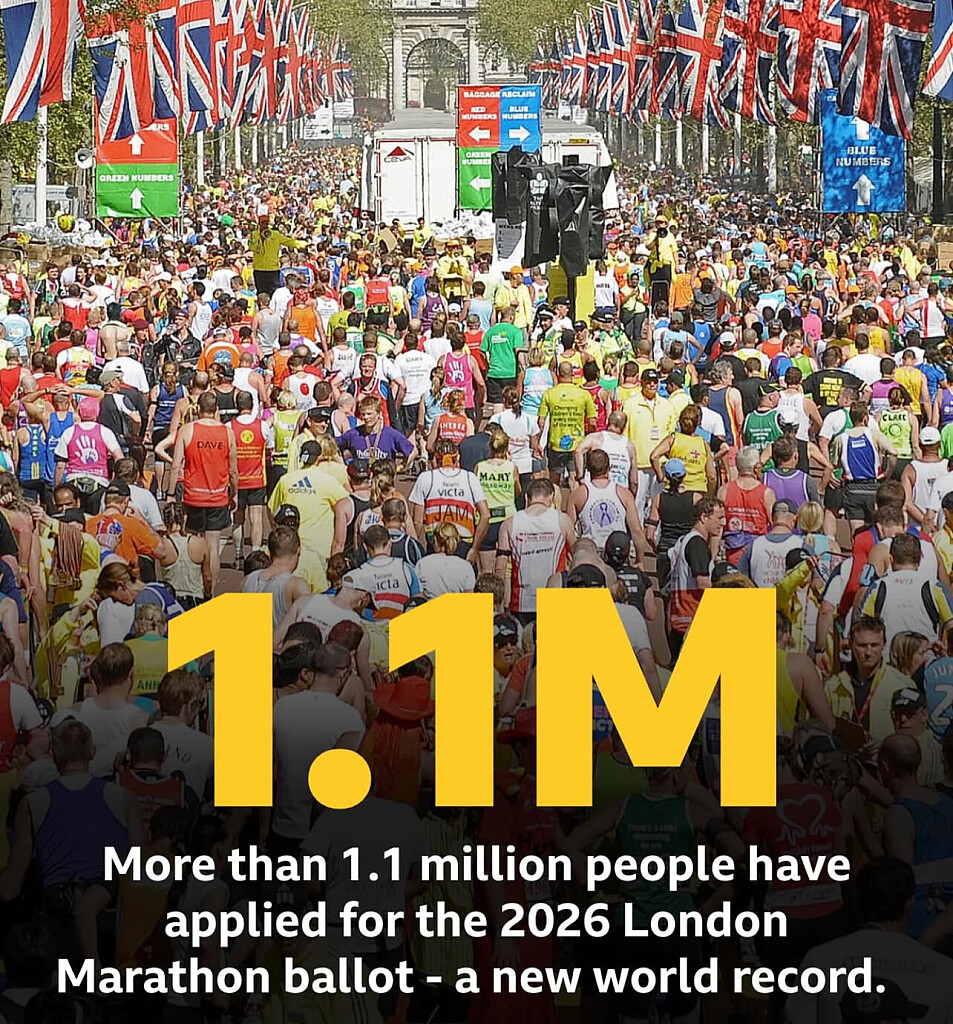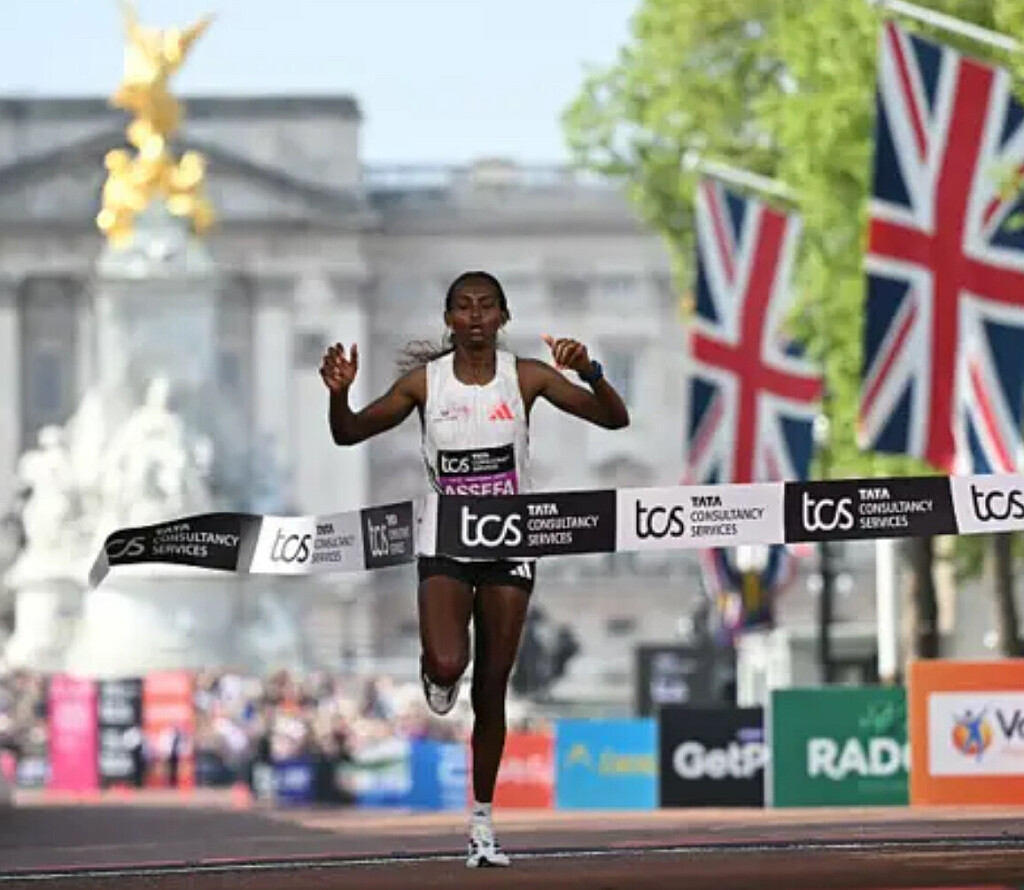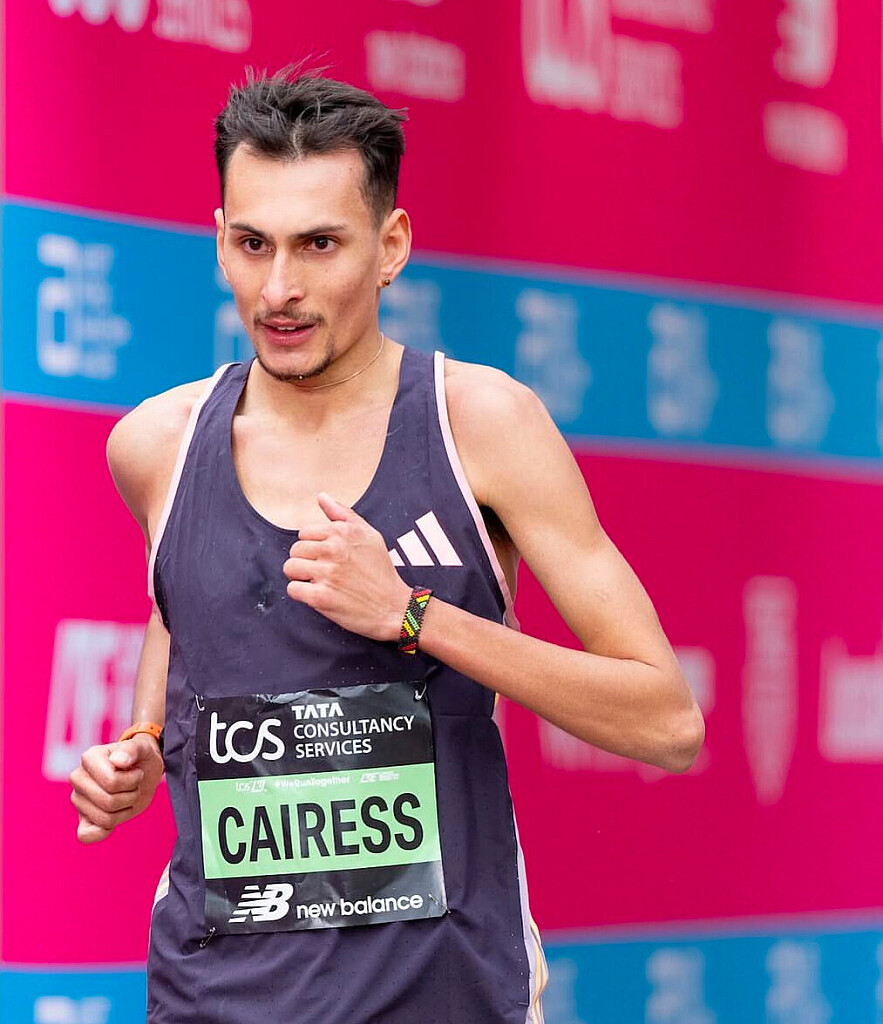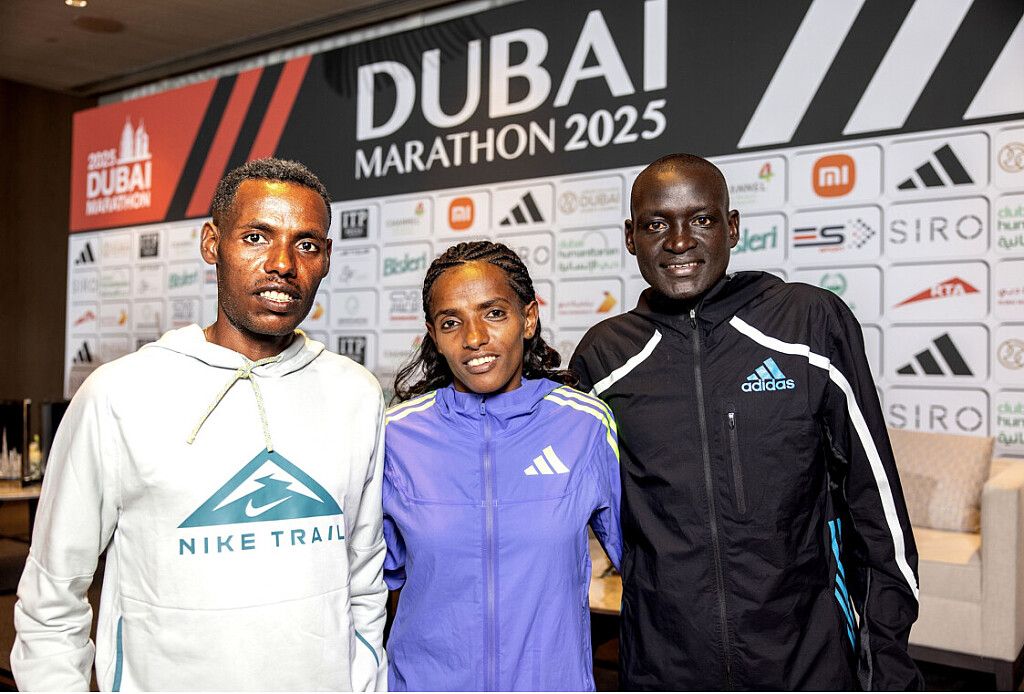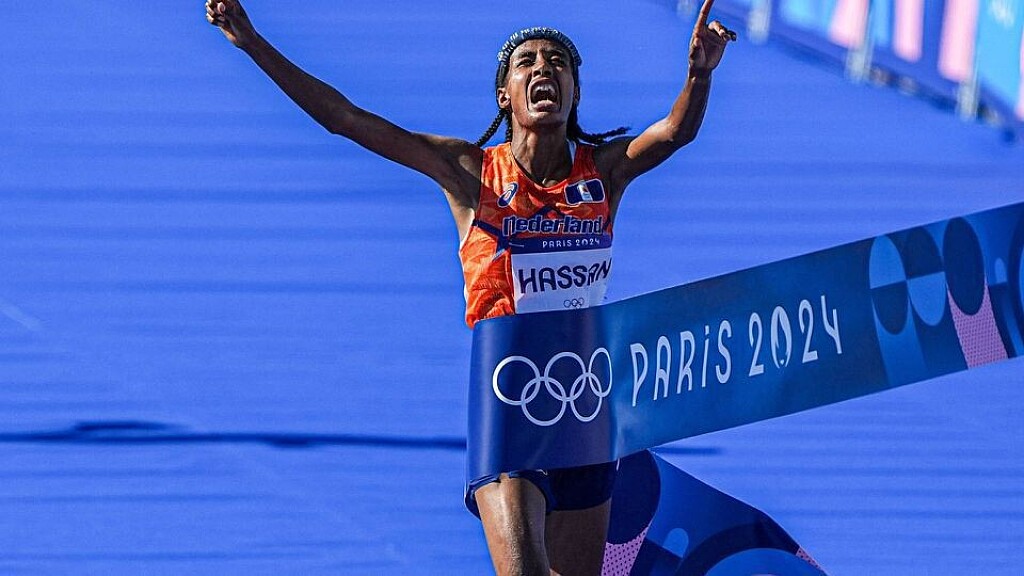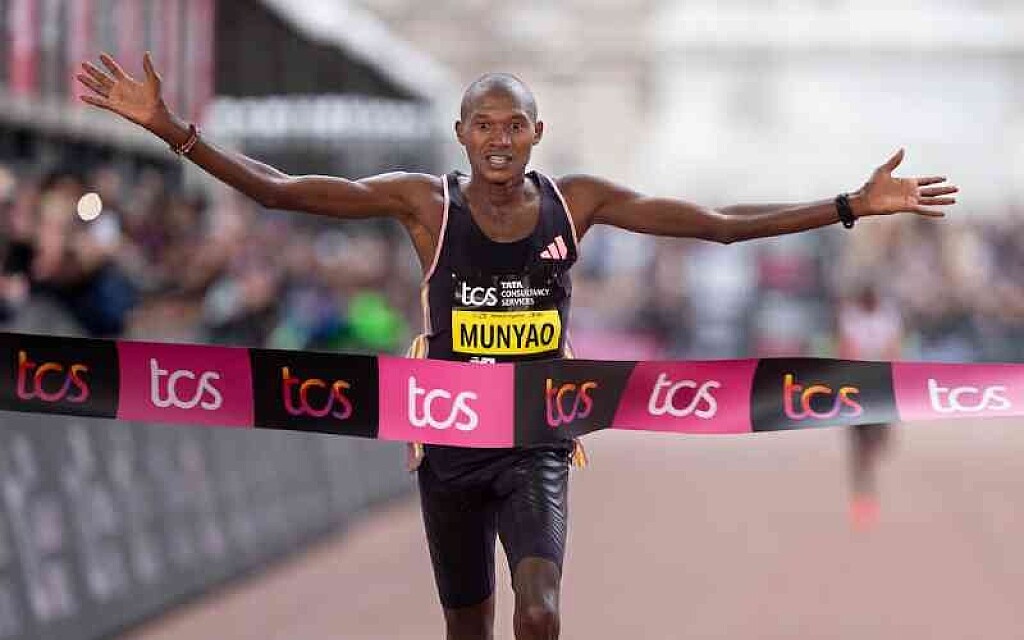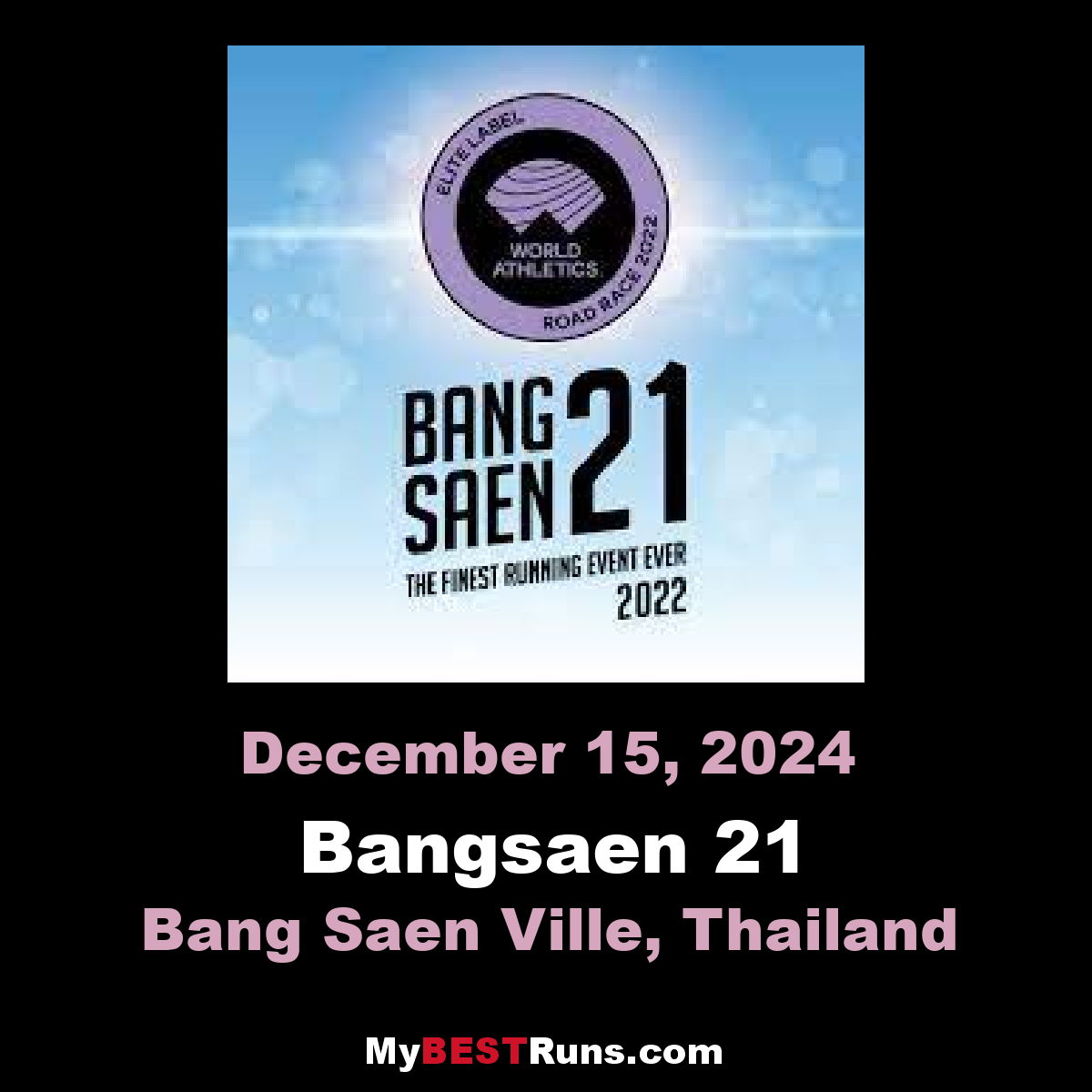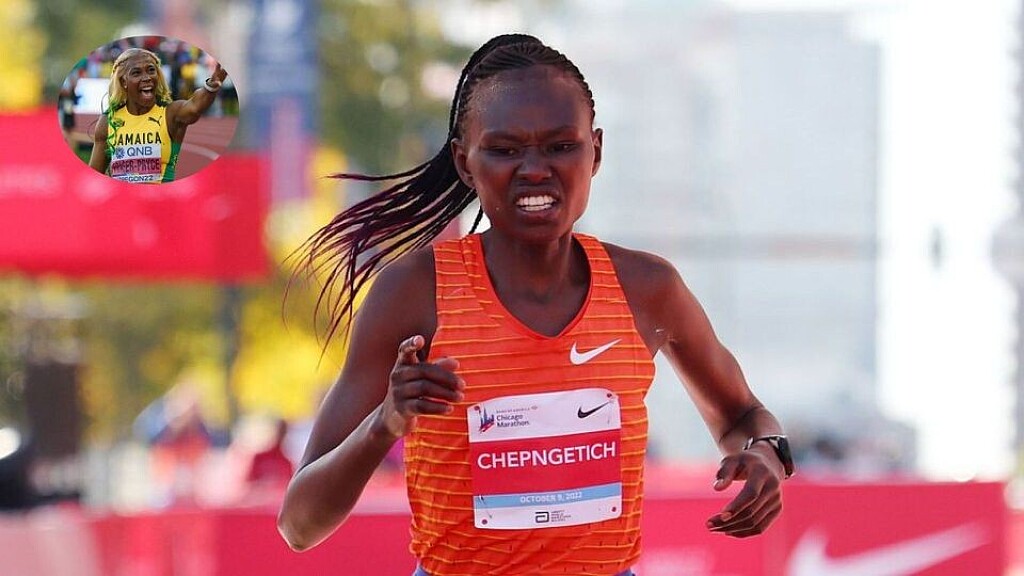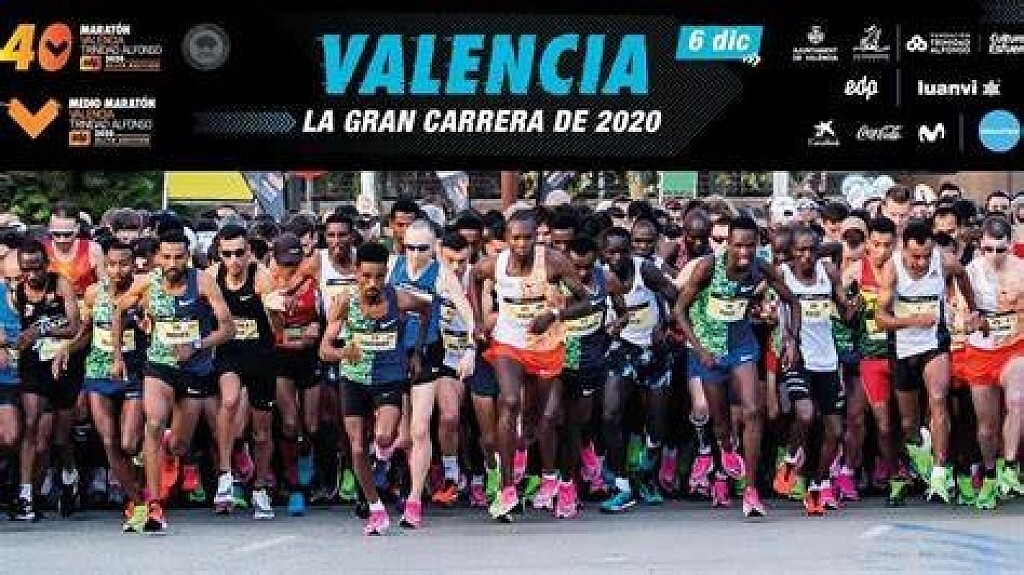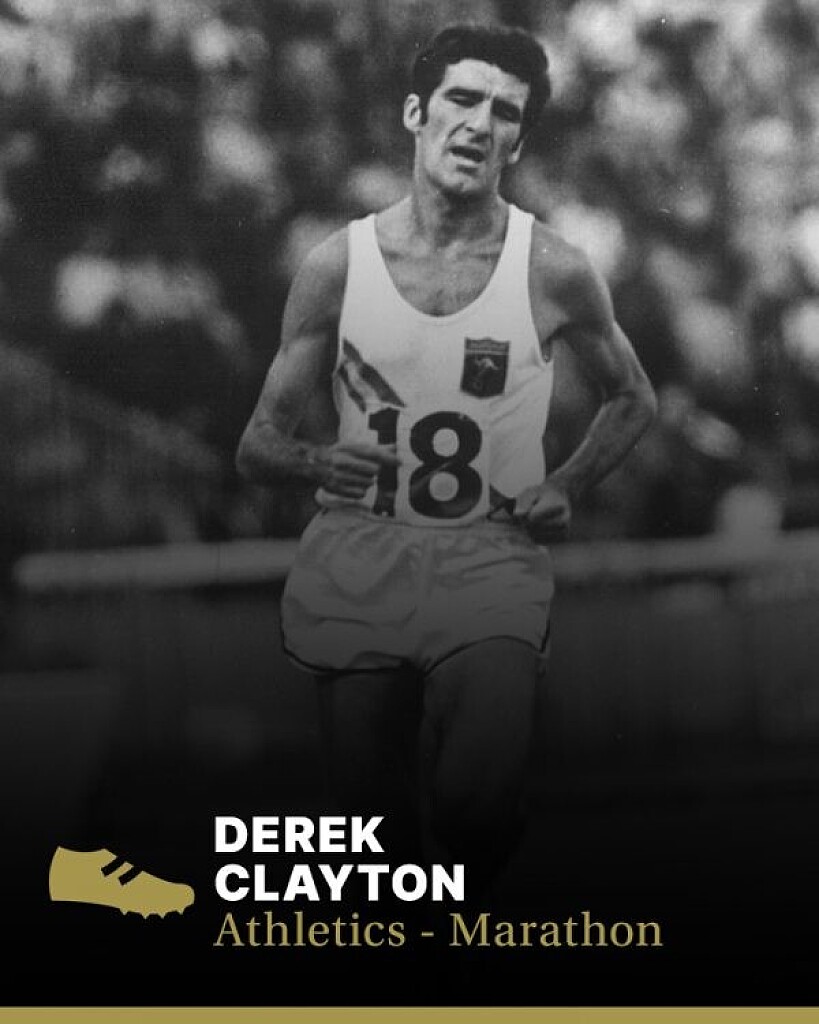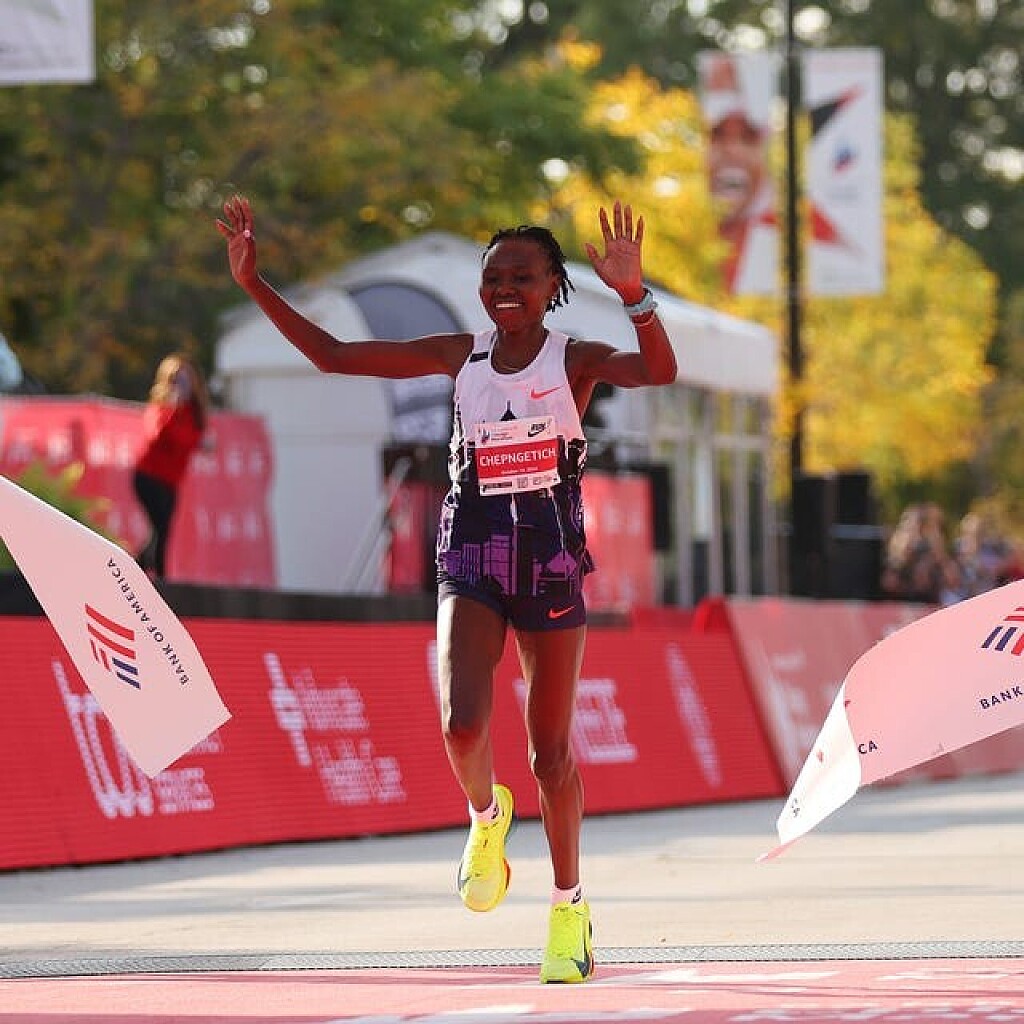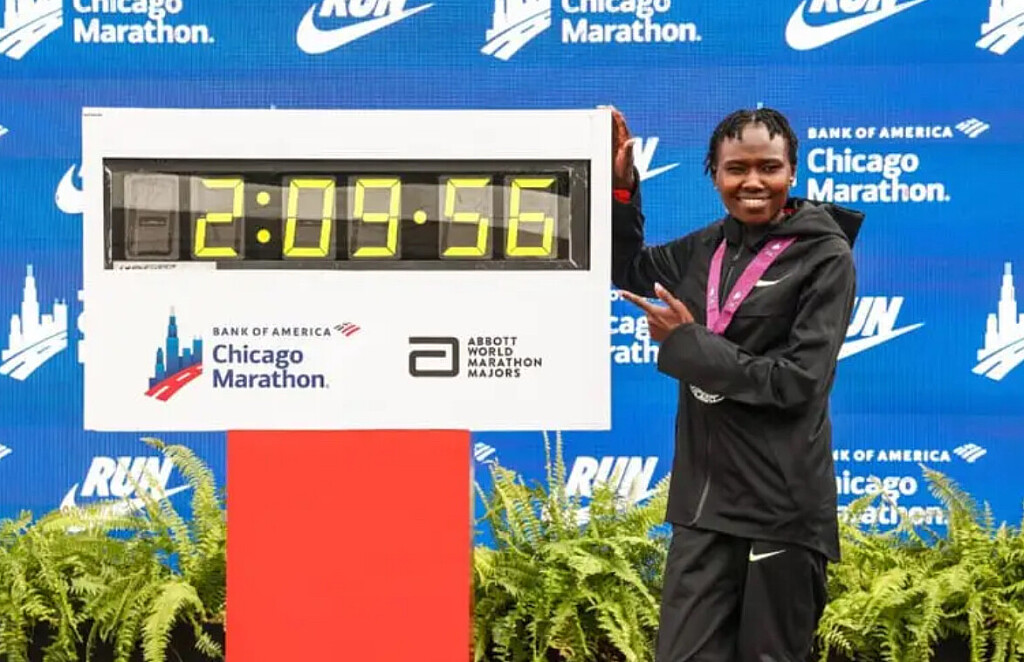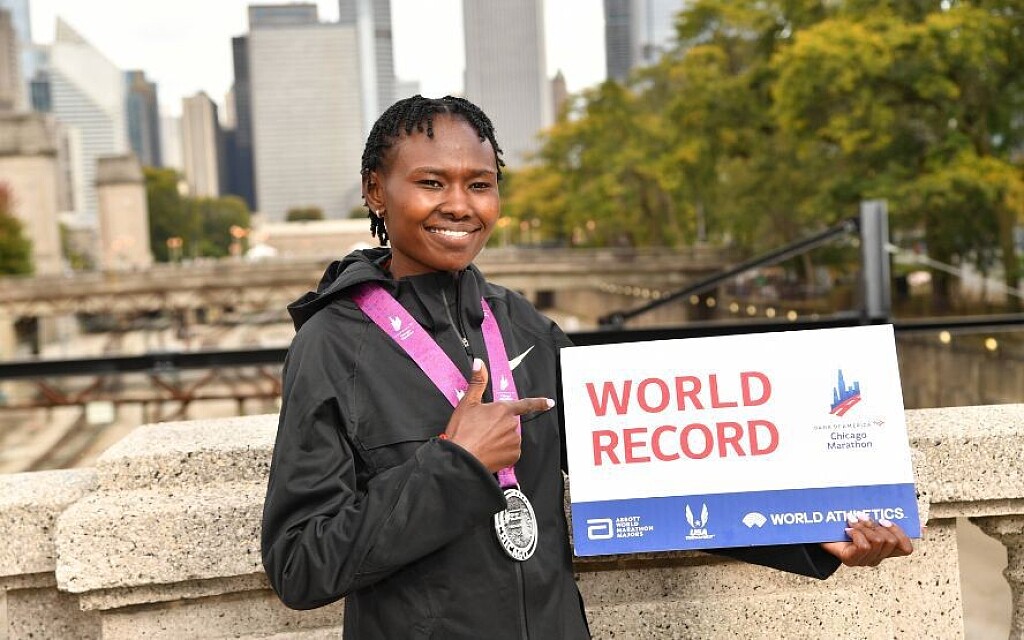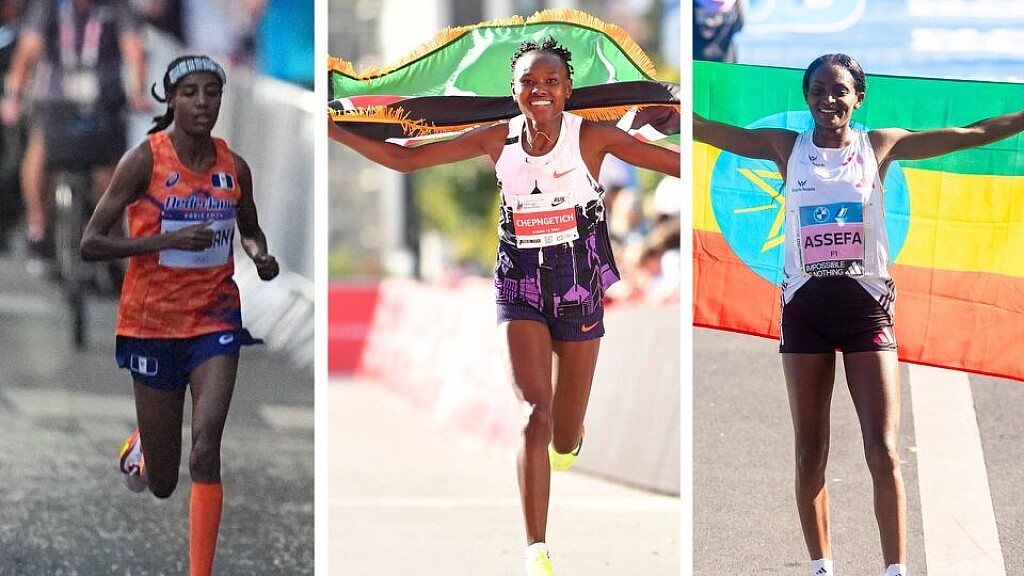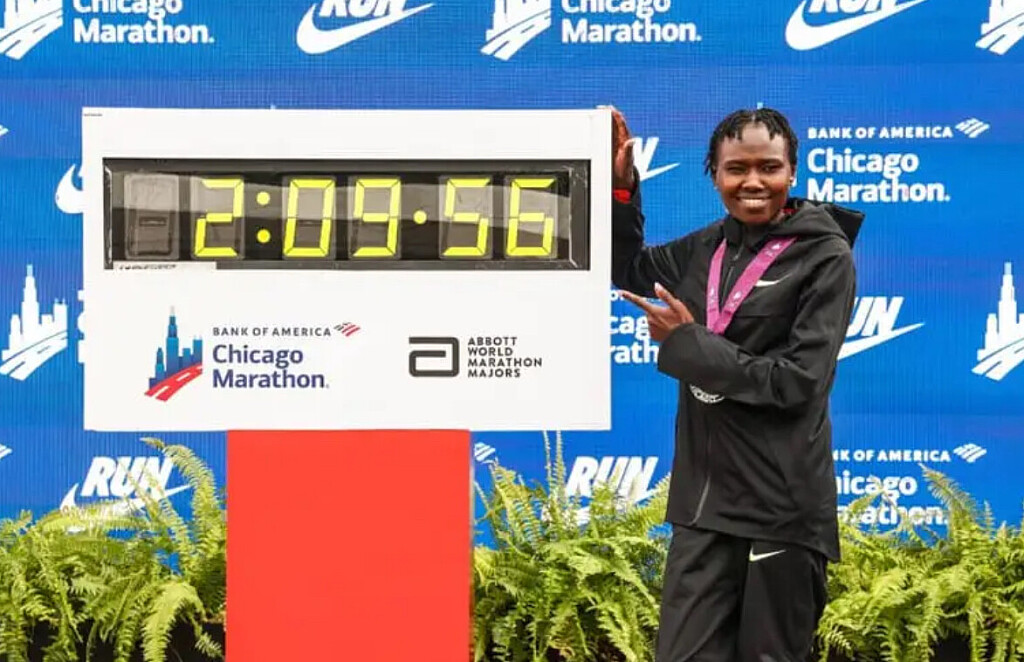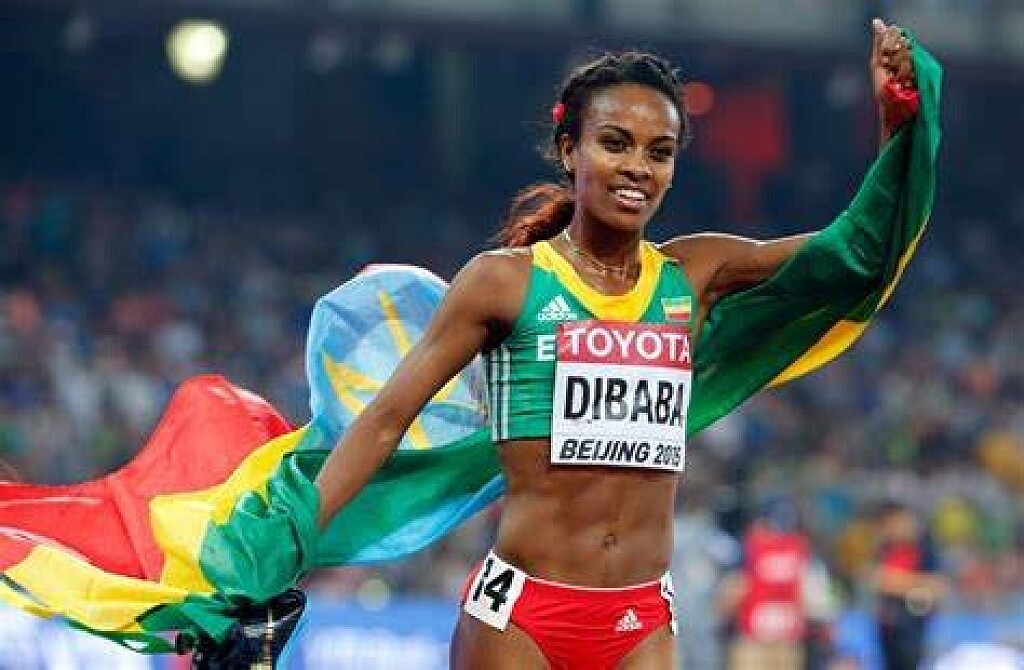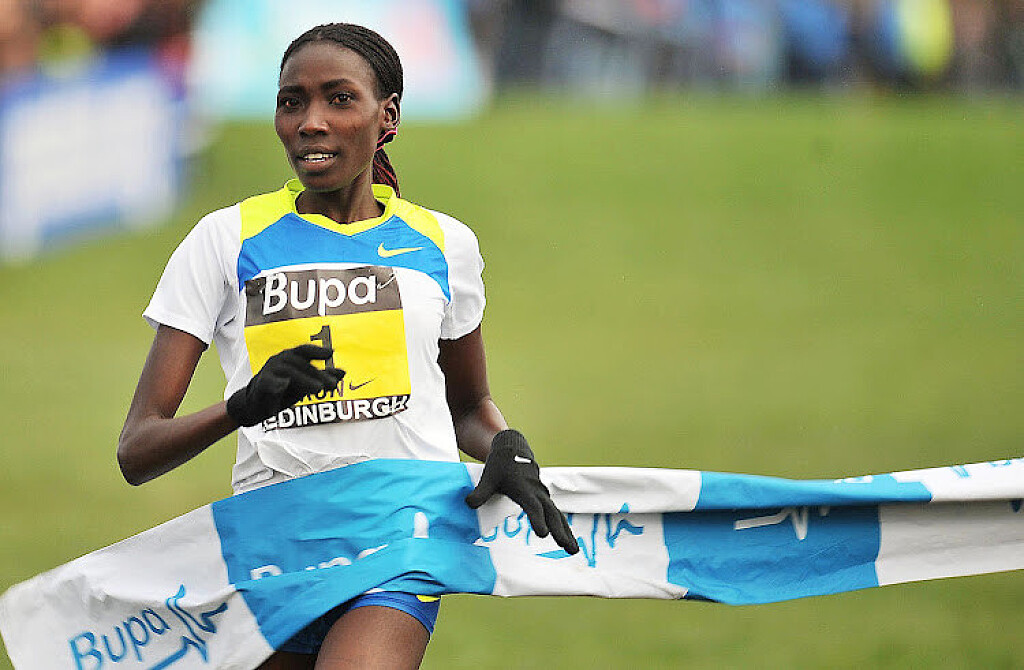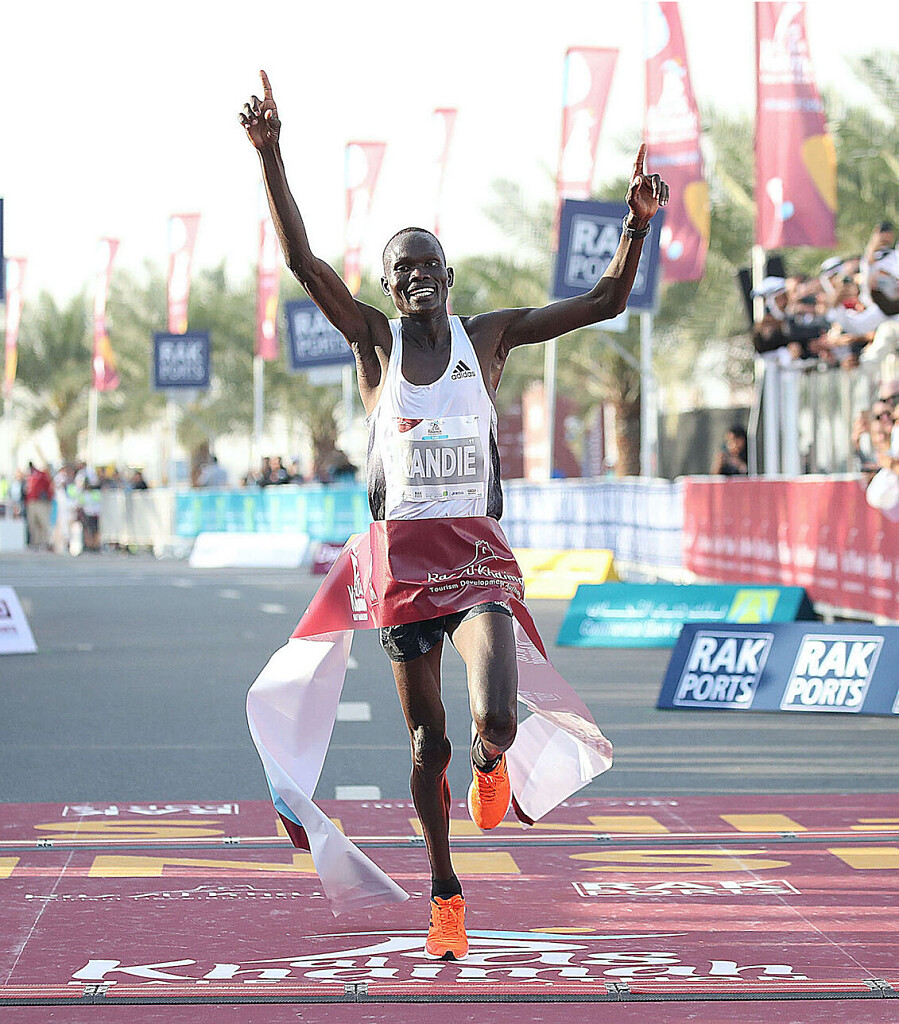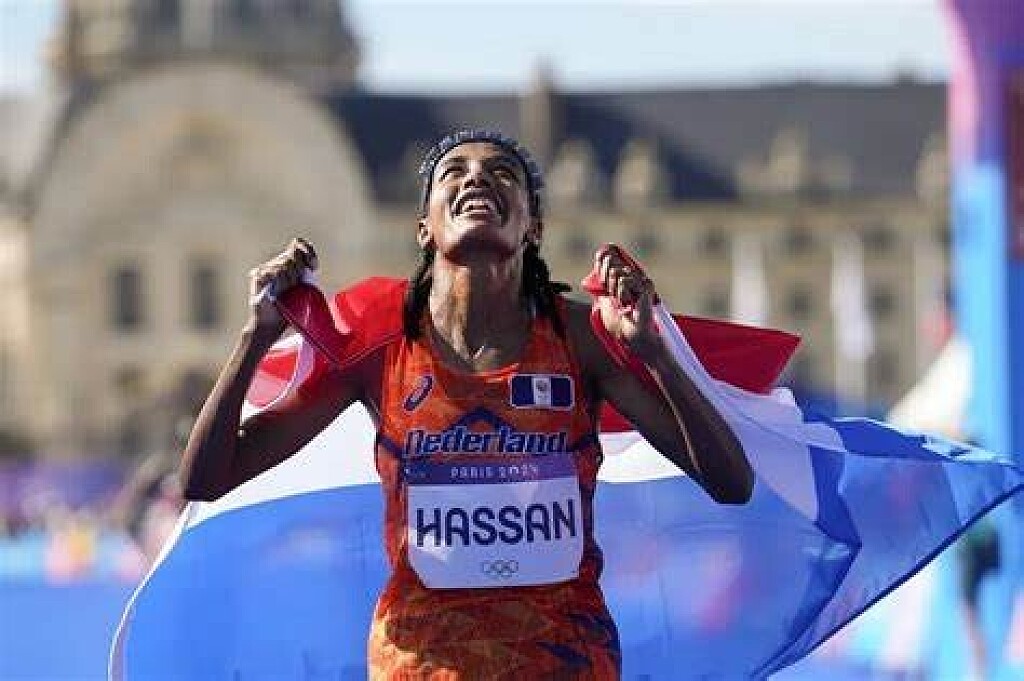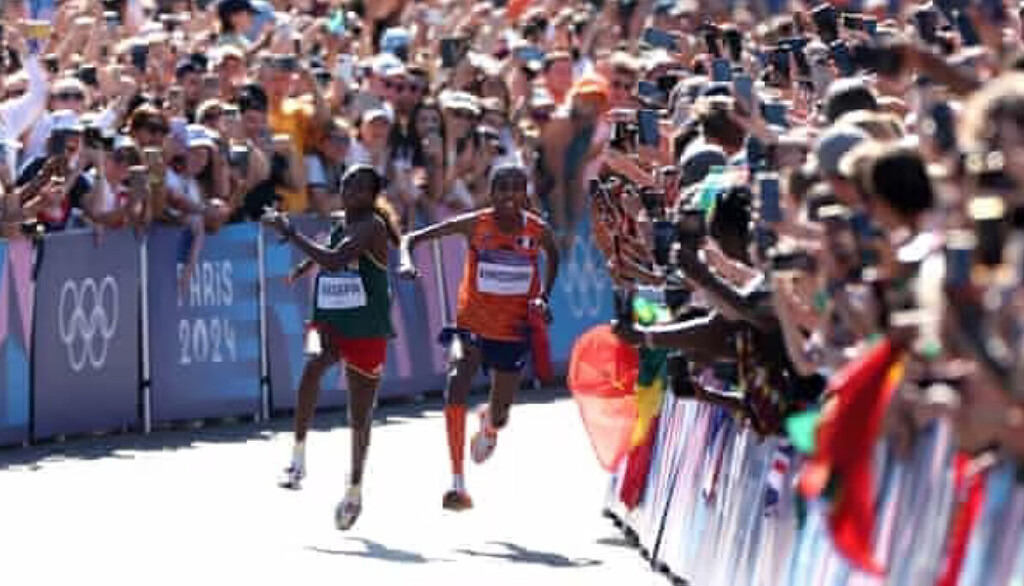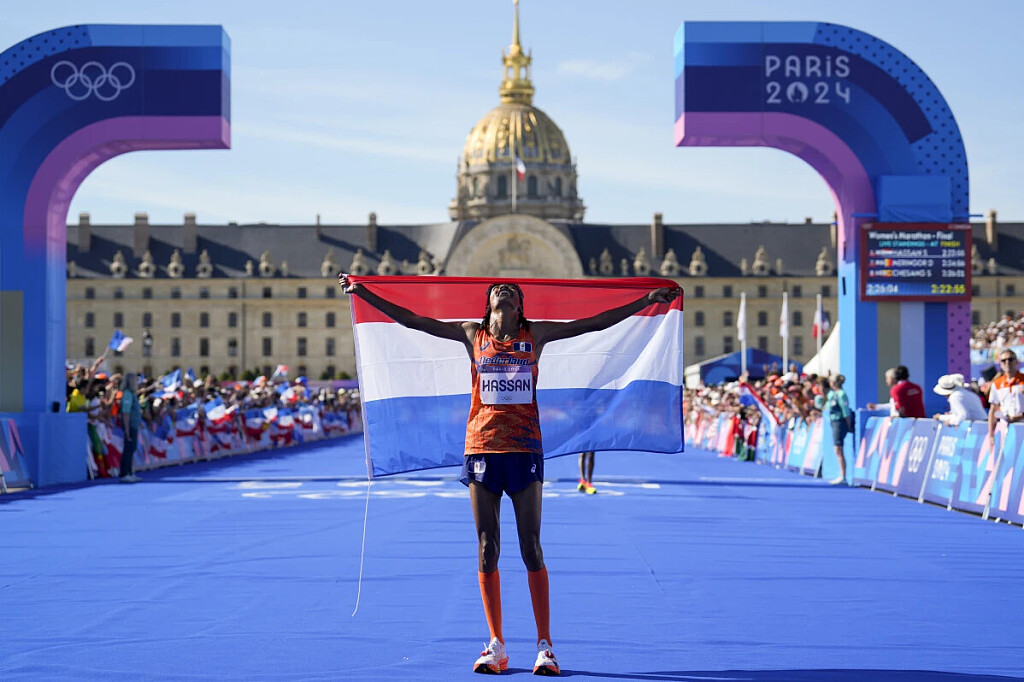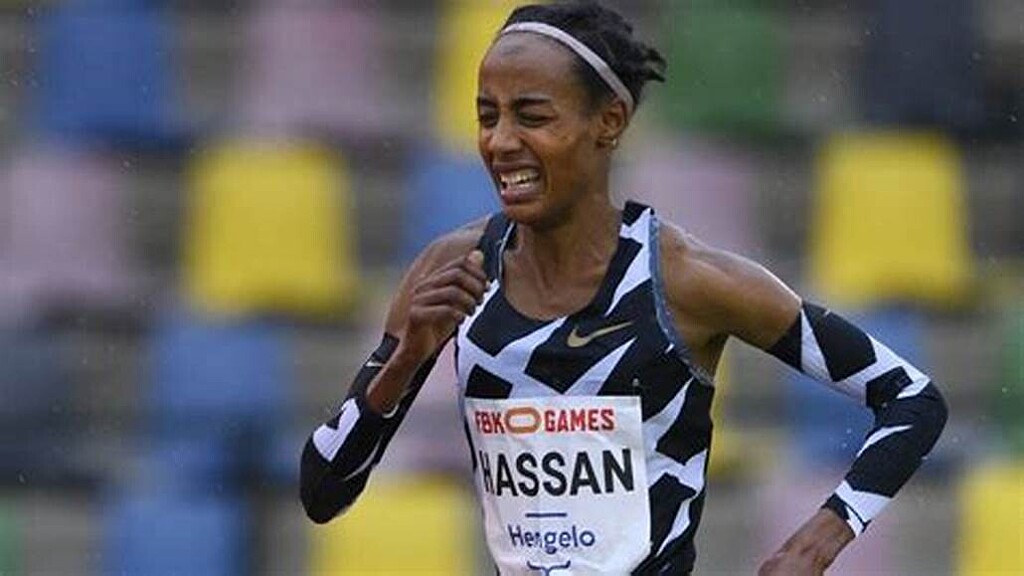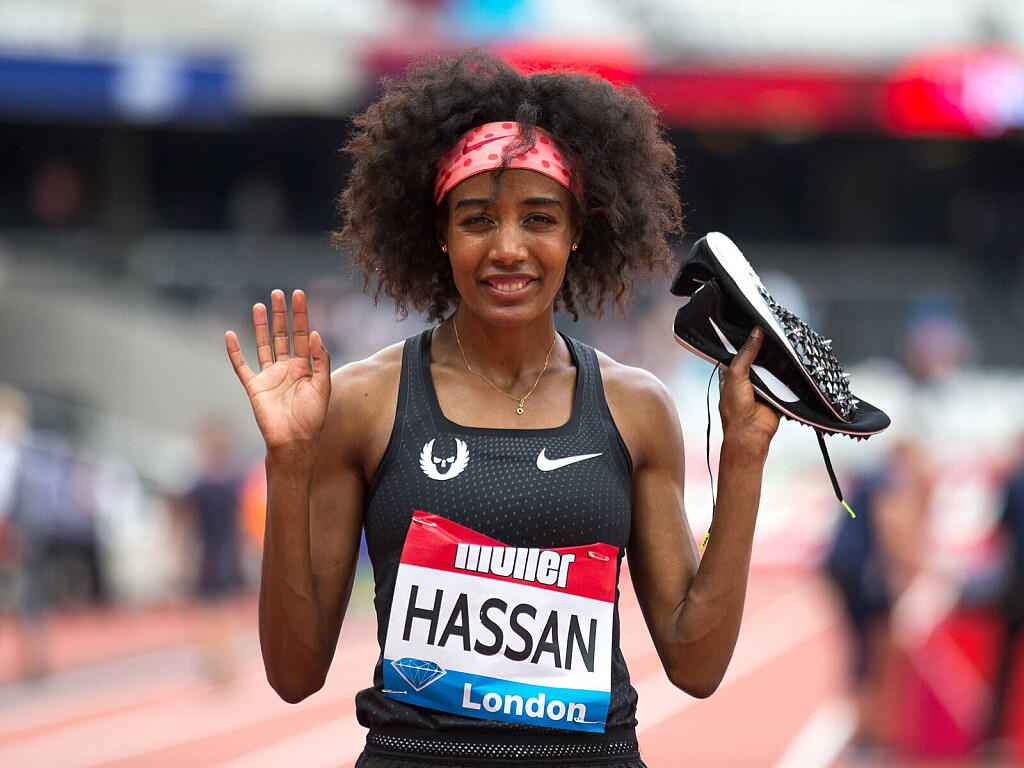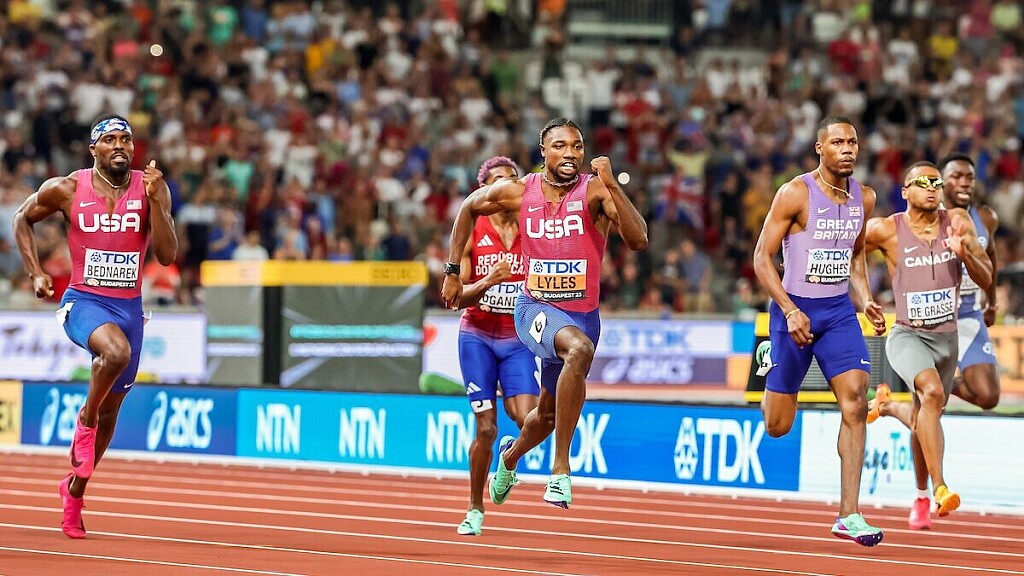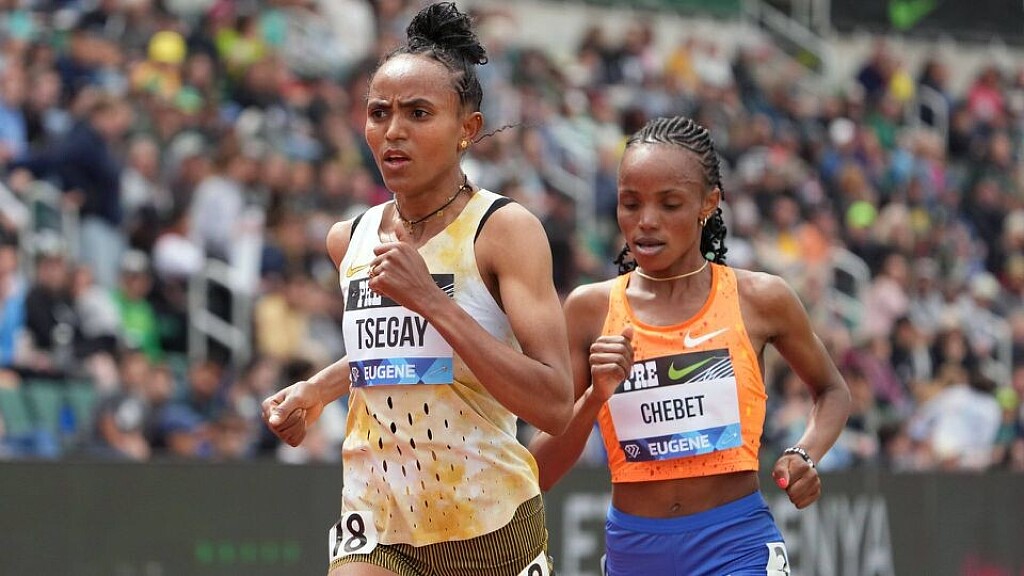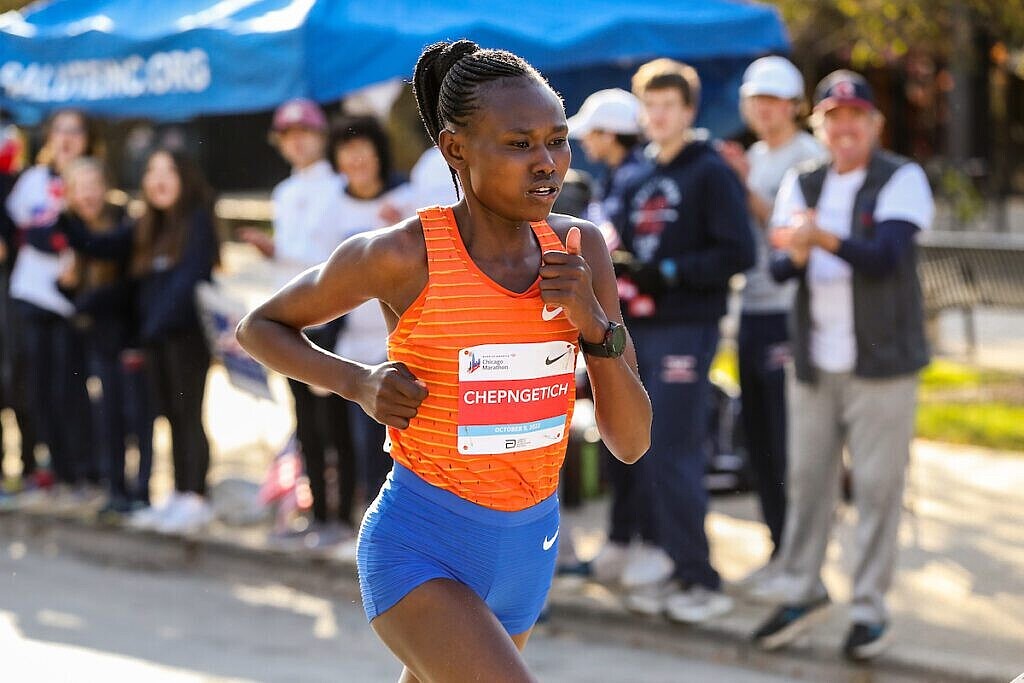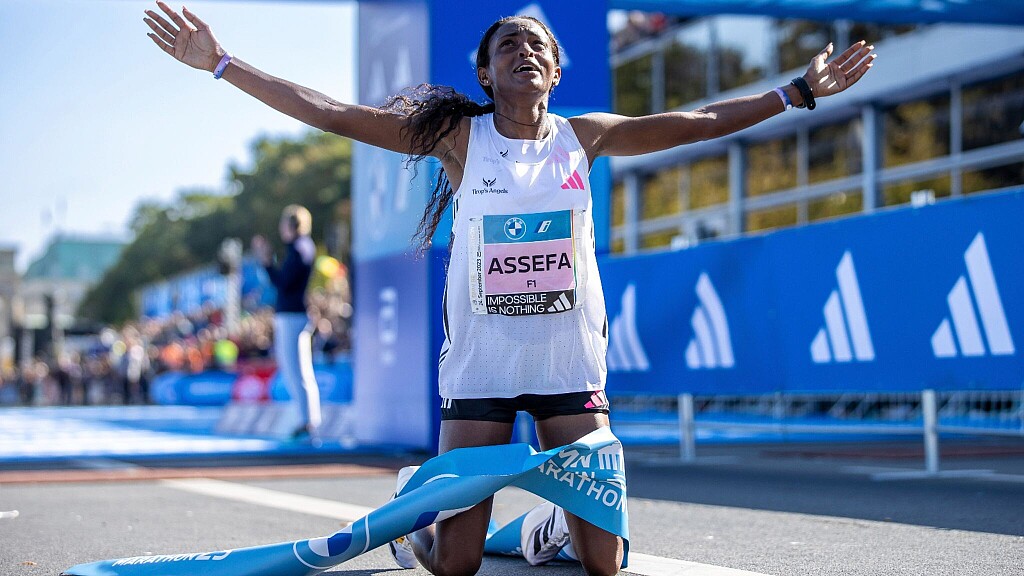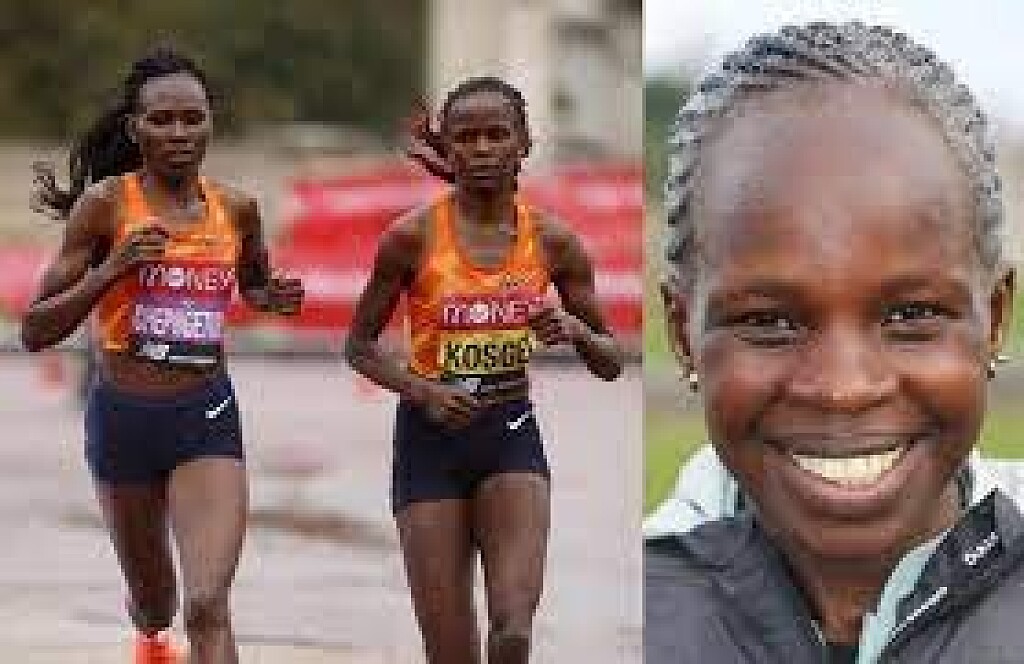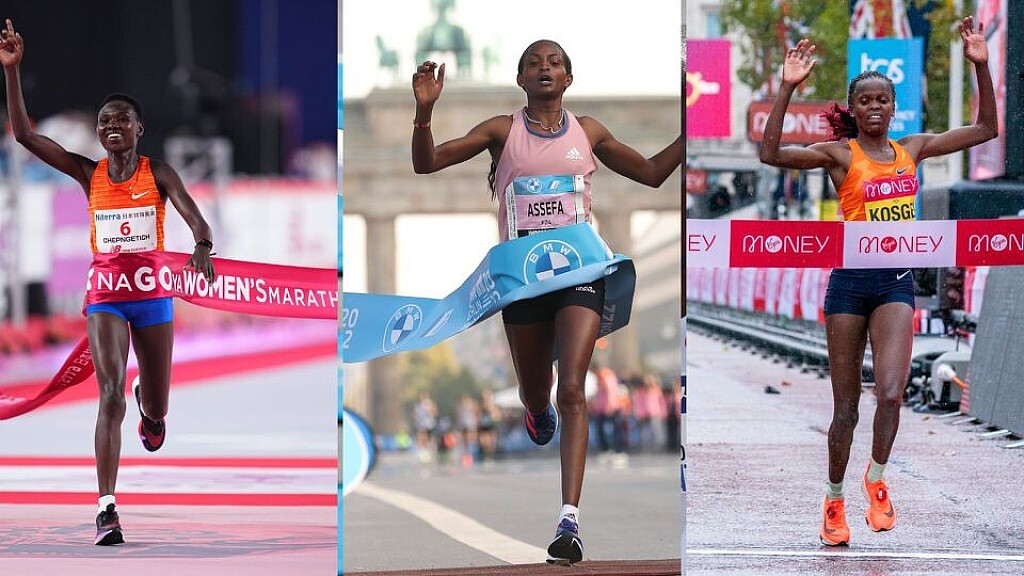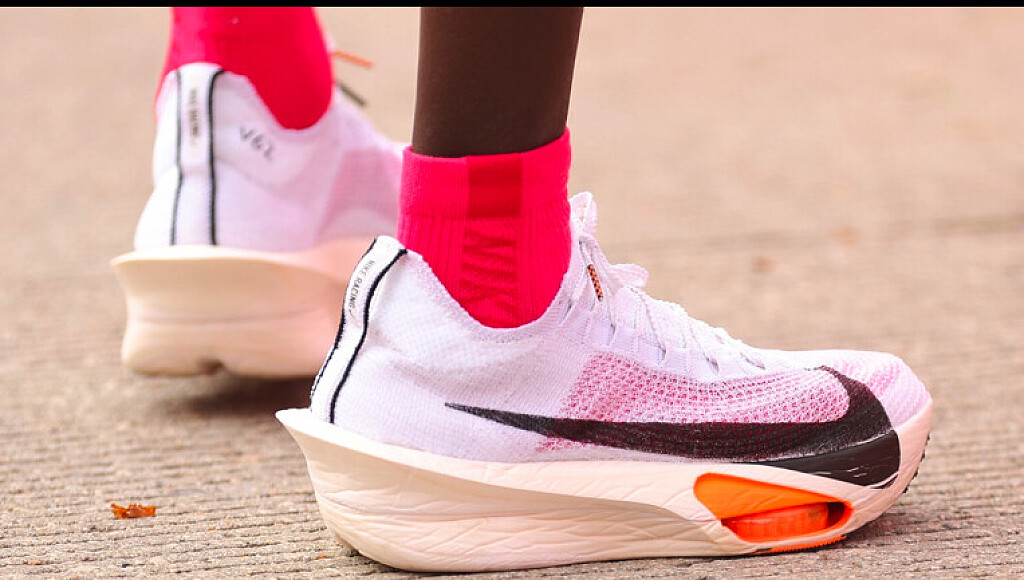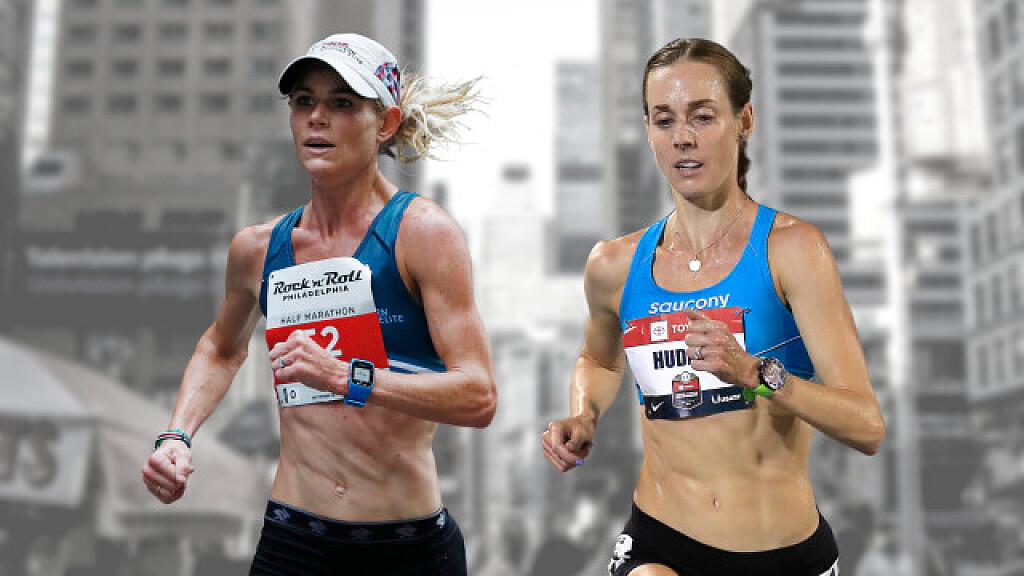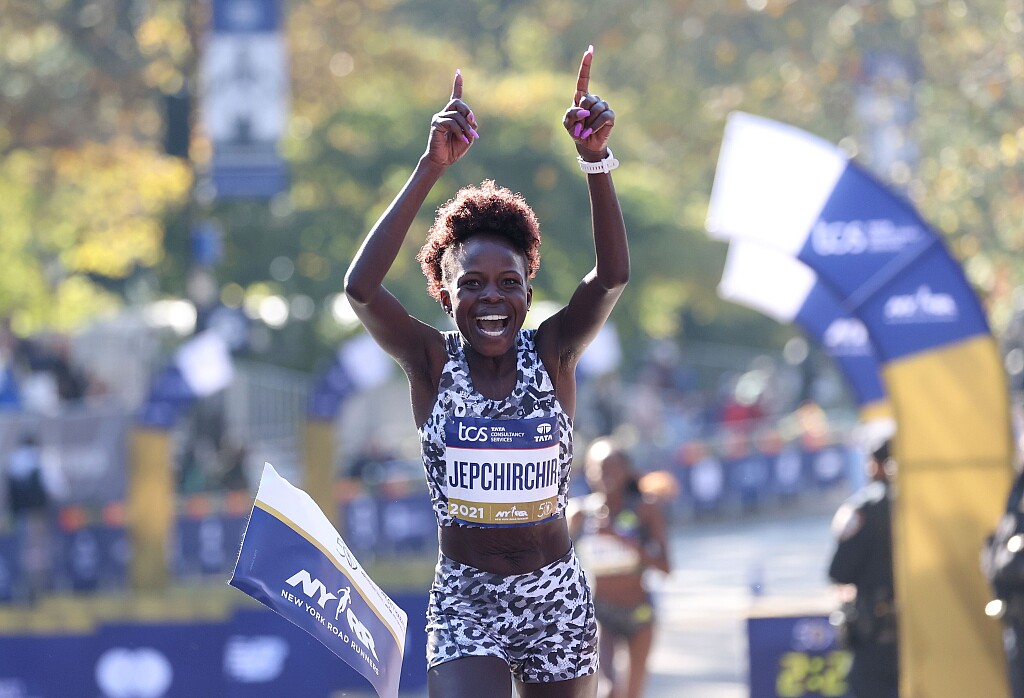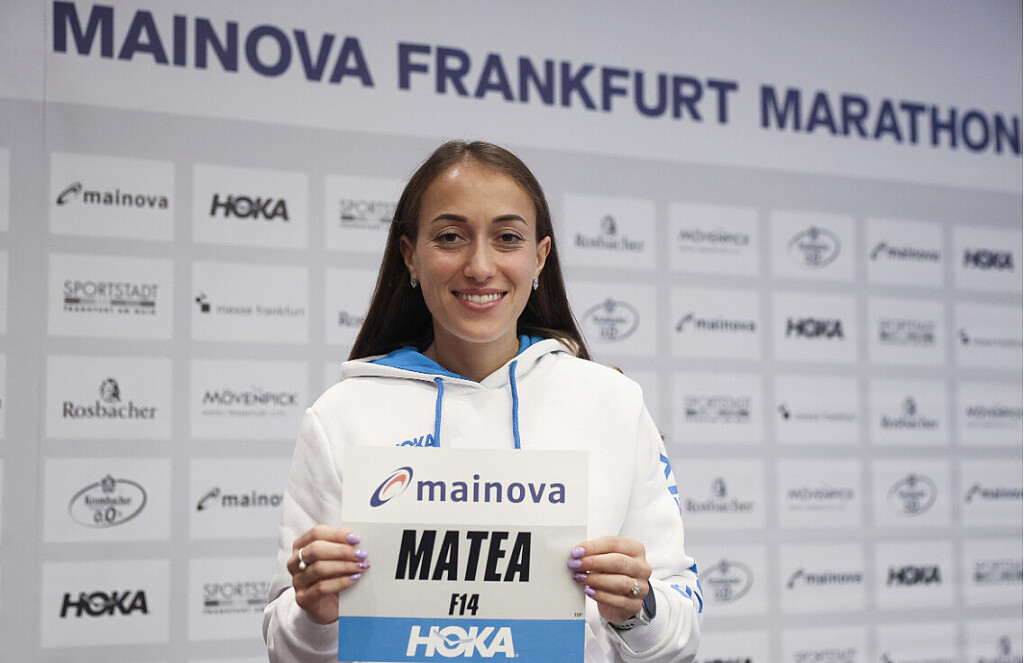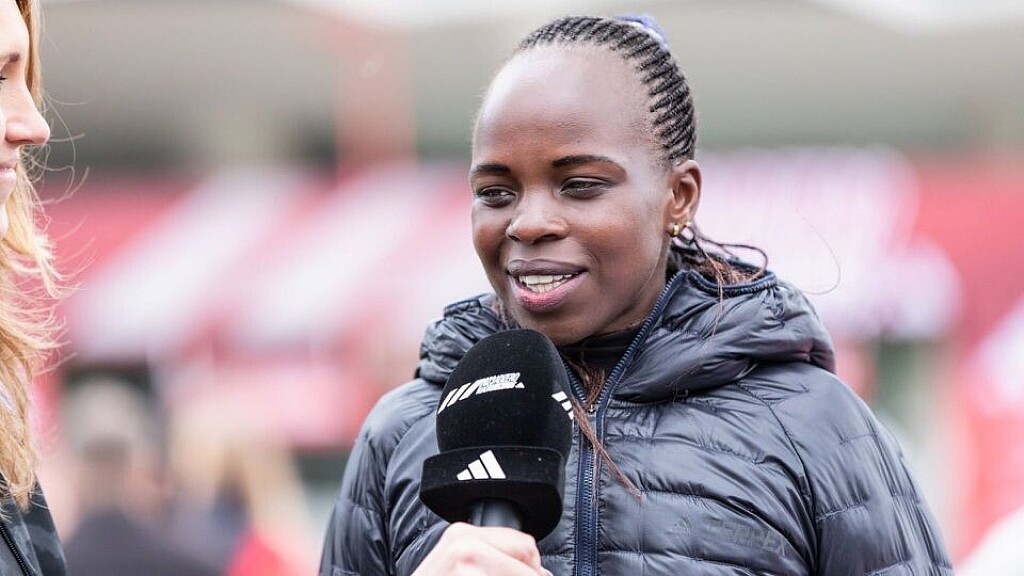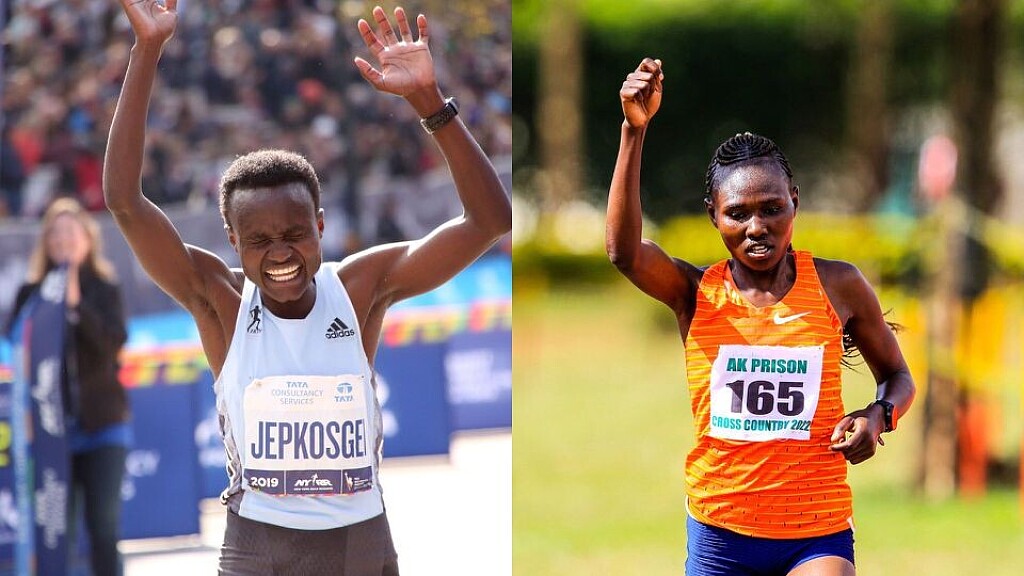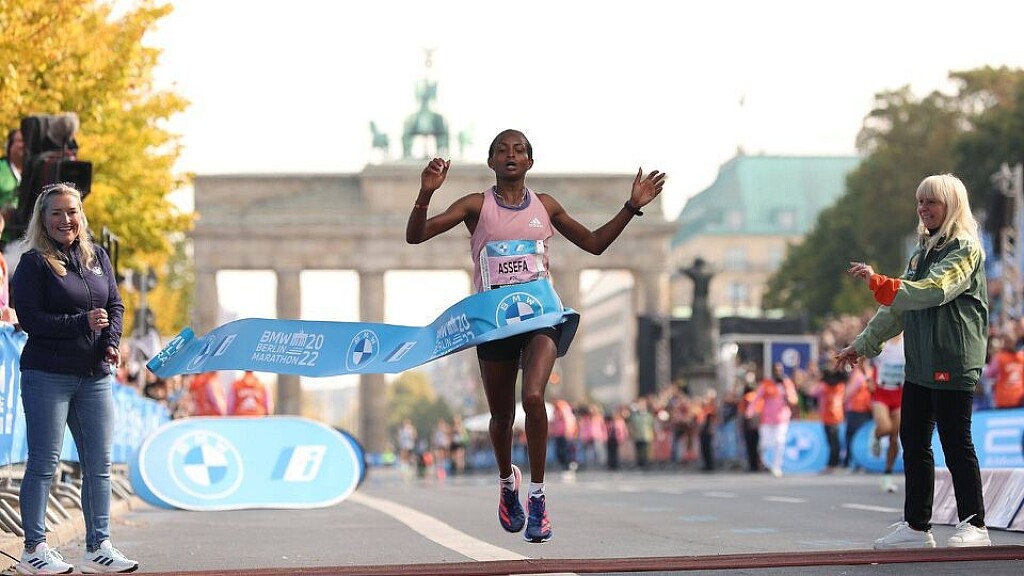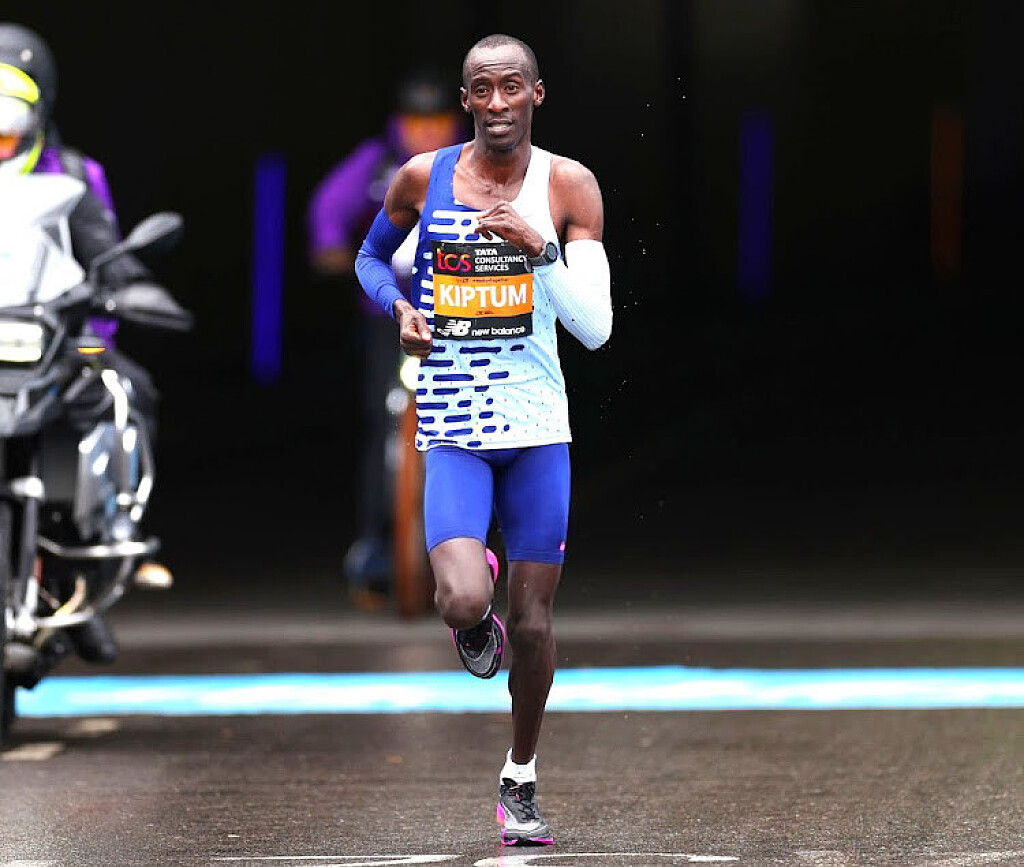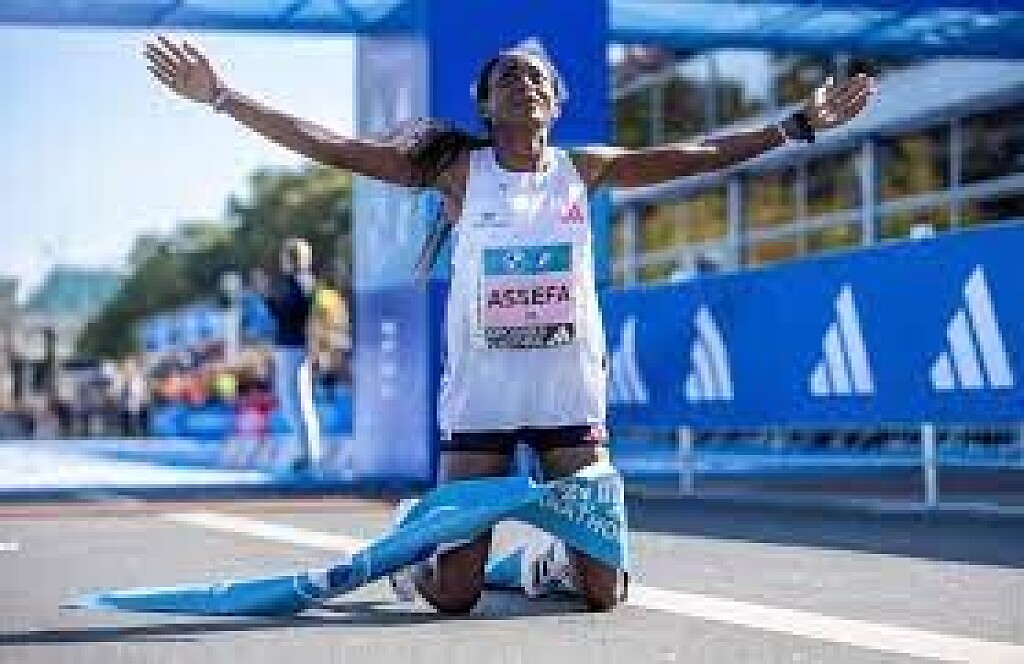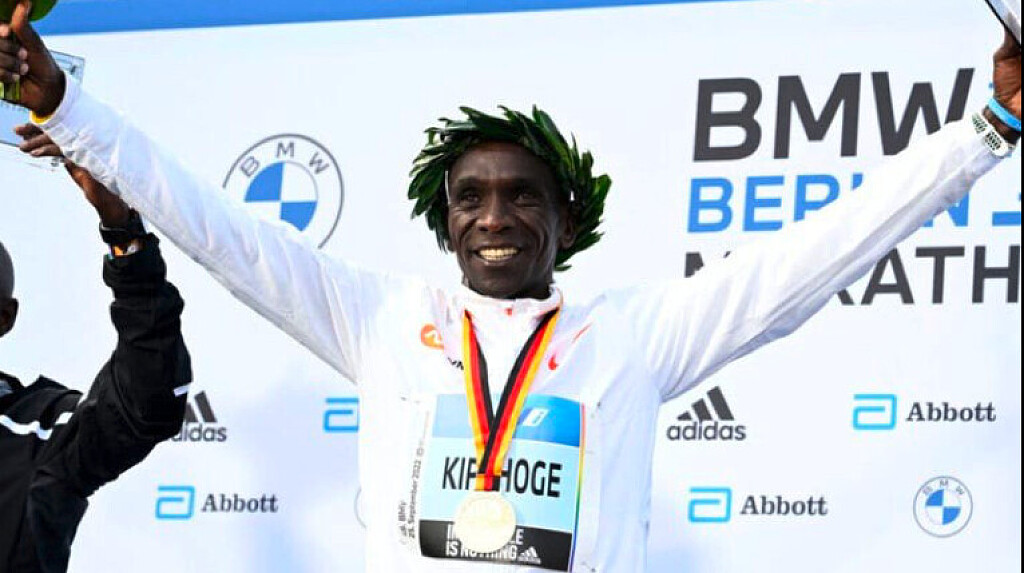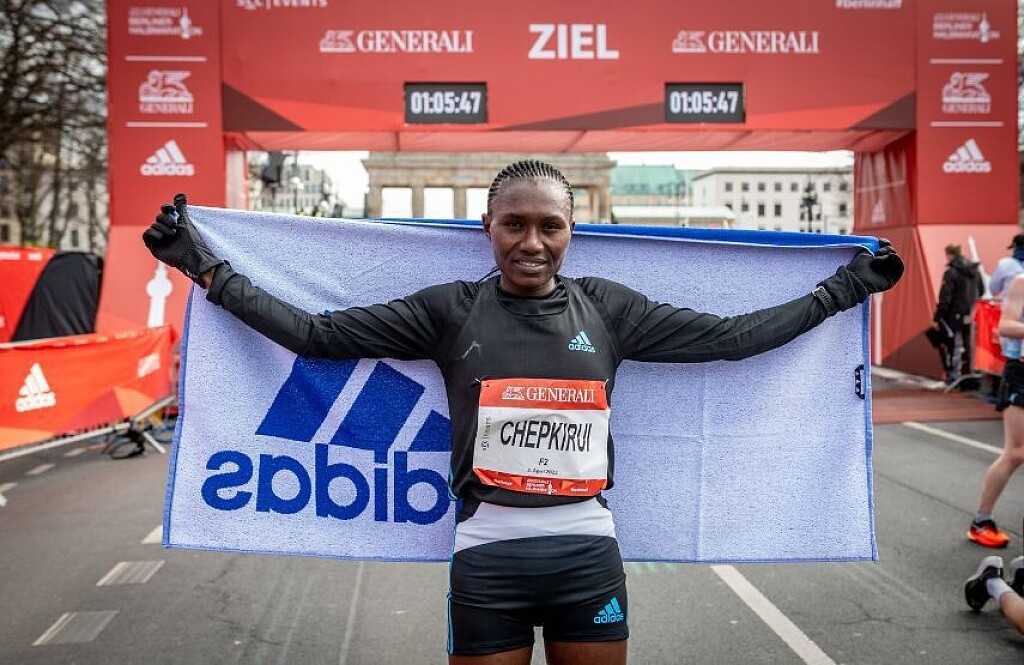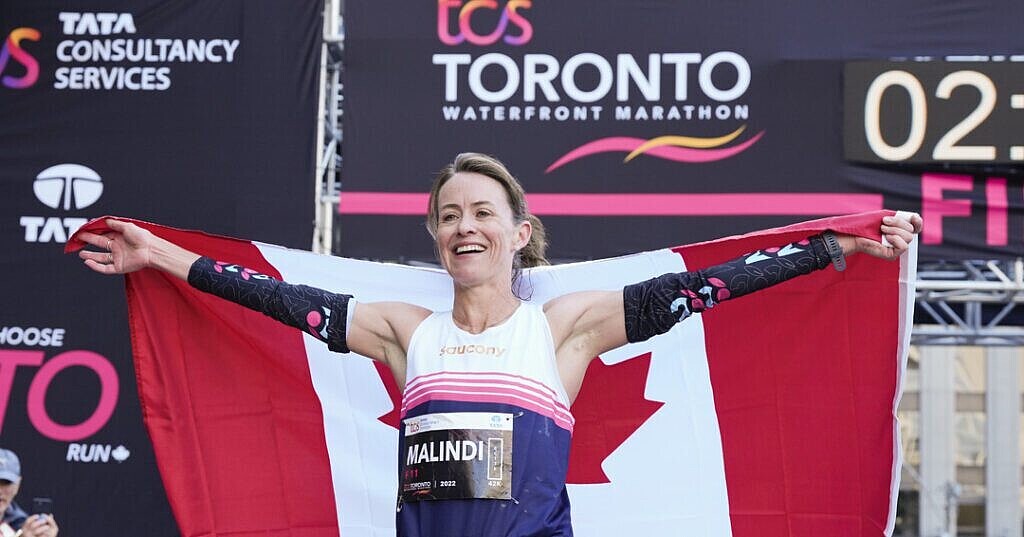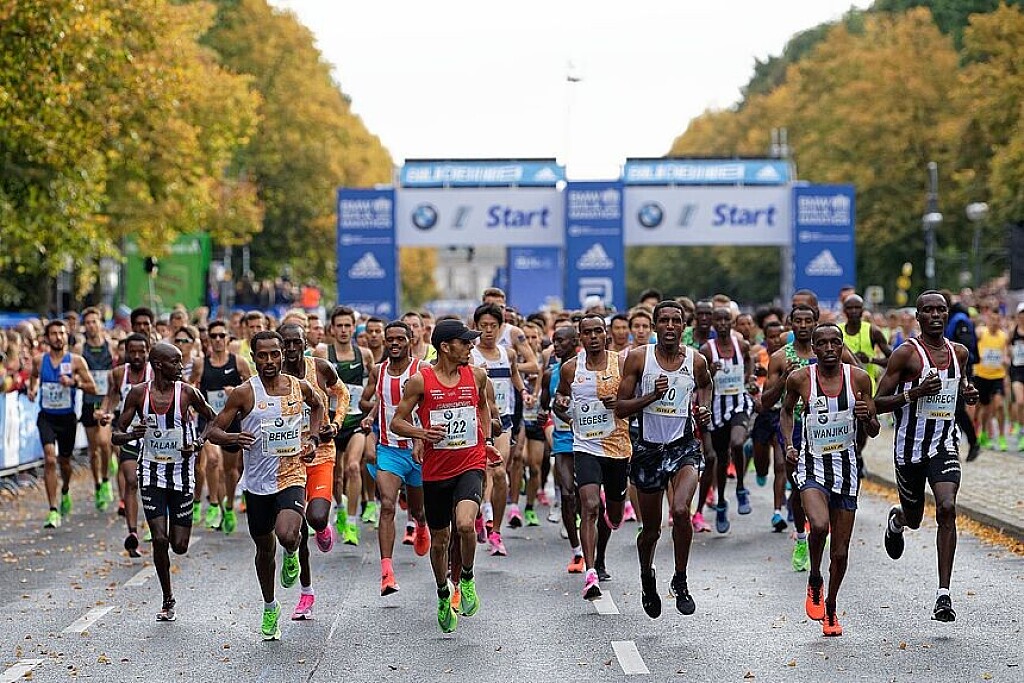Running News Daily
Running News Daily is edited by Bob Anderson. Send your news items to bob@mybestruns.com Advertising opportunities available. Train the Kenyan Way at KATA Kenya and Portugal owned and operated by Bob Anderson. Be sure to catch our movie A Long Run the movie KATA Running Camps and KATA Potato Farms - 31 now open in Kenya! https://kata.ke/
Index to Daily Posts · Sign Up For Updates · Run The World Feed
Articles tagged #Tigst Assefa
Today's Running News
A Dream Showdown Awaits: London Marathon Unveils a Historic Women’s Elite Field
The 2026 TCS London Marathon, scheduled for Sunday, April 26, 2026, is shaping up to be one of the most electrifying races in the event’s storied history, with an elite women’s field that reads like a roll call of modern marathon greatness.
Reigning champion Tigst Assefa returns to London carrying both confidence and unfinished business. The Ethiopian star, whose 2:11:53 personal best ranks among the fastest ever recorded, will once again test her limits on the streets of the British capital. But this time, the challenge is even steeper.
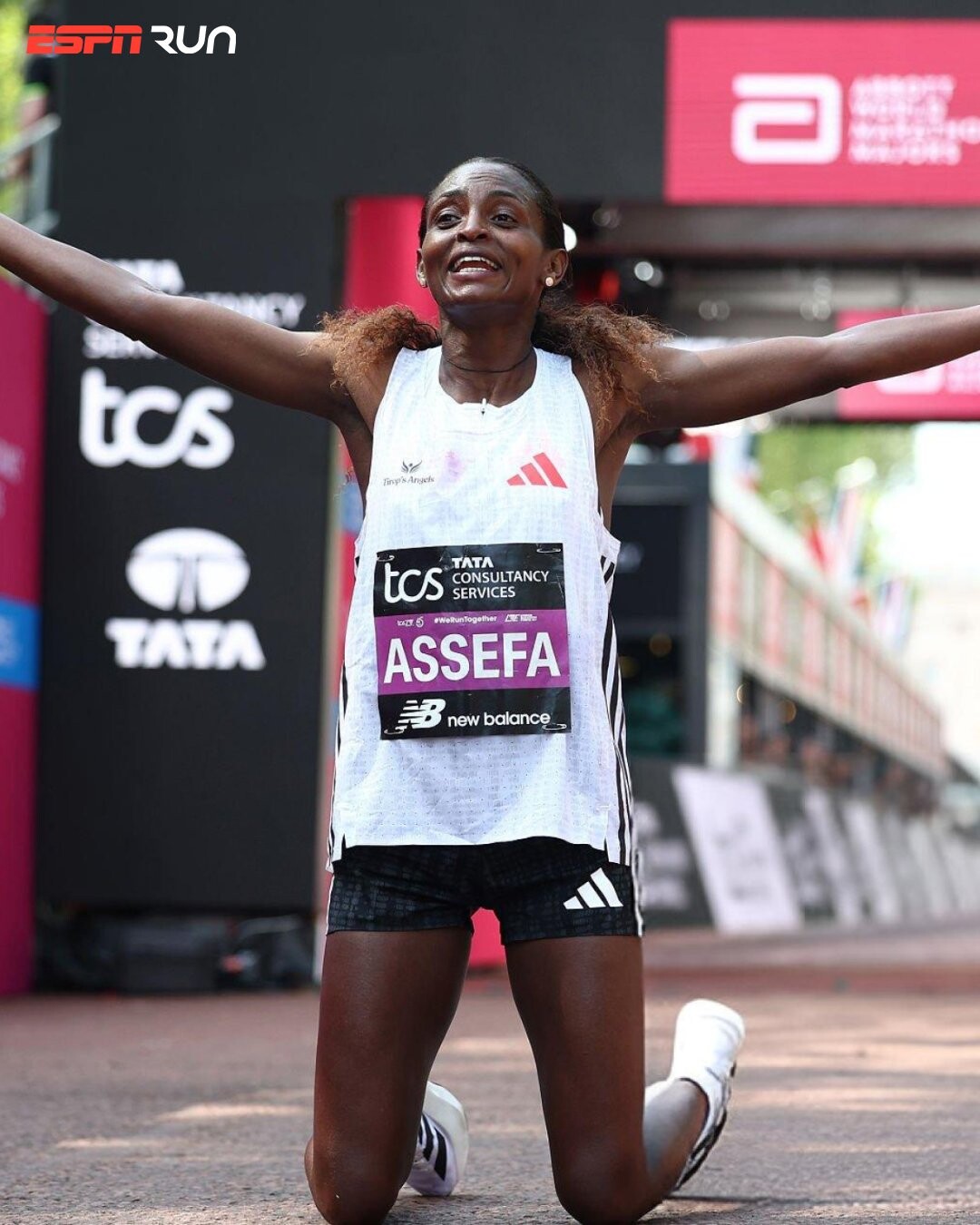
Standing in her way are the current Olympic and world marathon champions, Sifan Hassan and Peres Jepchirchir, setting the stage for a clash that fans have long dreamed of. Hassan’s fearless racing style and unmatched versatility have redefined what is possible in distance running, while Jepchirchir’s tactical brilliance and finishing power make her one of the most dangerous competitors over 42.195 kilometers.
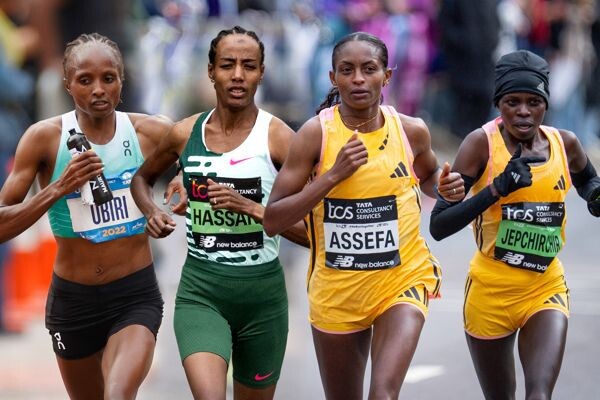
Adding another layer of intrigue is Hellen Obiri, the double New York City and Boston Marathon champion, who will be making her long-awaited London Marathon debut. Already proven on the toughest courses in the world, Obiri’s arrival in London raises expectations and deepens an already stacked field.
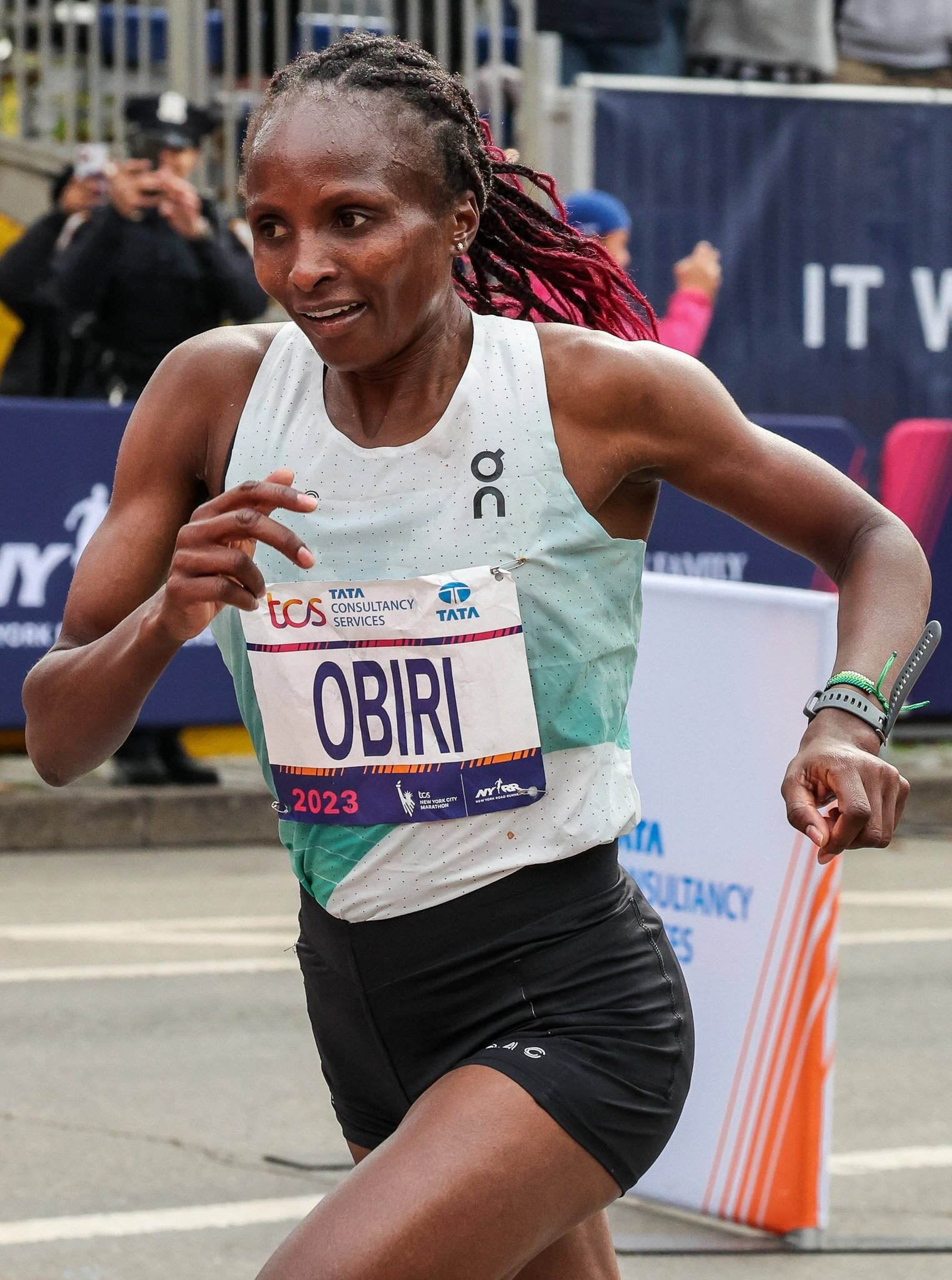
Experience and consistency also feature prominently through Megertu Alemu, a familiar force in major marathons. With four podium finishes at World Marathon Majors—two of them in London—Alemu knows exactly what it takes to perform on this stage and could once again play a decisive role.
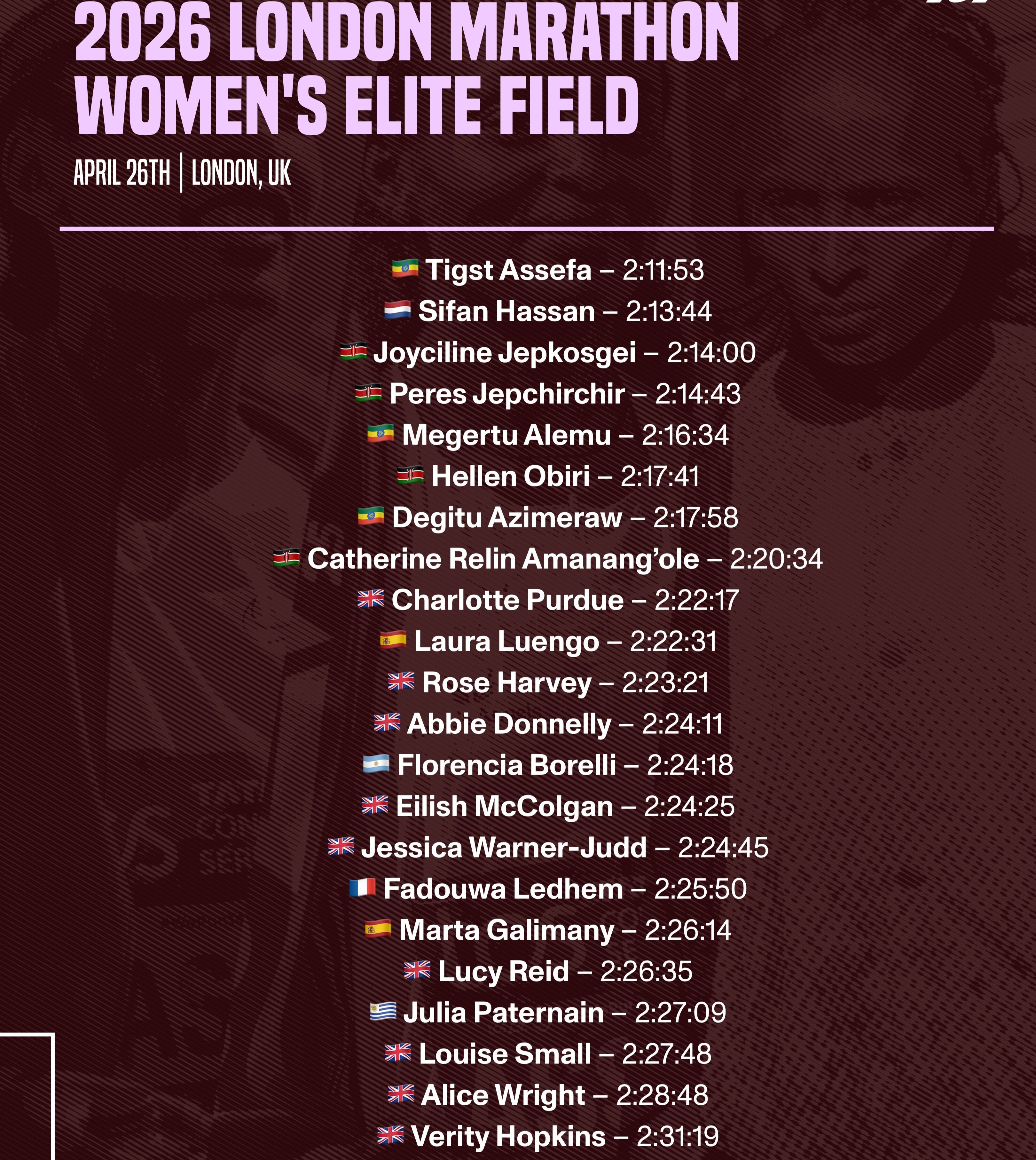
The depth does not end there. Former London winner Joyciline Jepkosgei, along with accomplished athletes such as Degitu Azimeraw, Catherine Amanang’ole, Charlotte Purdue, and Laura Luengo, ensures that no moment of the race will be predictable. From the opening kilometers to the final stretch along The Mall, pressure will be relentless.
More than just a race, the April 26, 2026 showdown promises a celebration of excellence, resilience, and fearless competition. With world-class champions, debutants hungry for glory, and proven contenders ready to strike, this year’s women’s race is not merely about winning—it is about redefining greatness on one of marathon running’s biggest stages.
The countdown to London has truly begun.
by Erick Cheruiyot for My Bestruns.
Login to leave a comment
TCS London Marathon
The London Marathon was first run on March 29, 1981 and has been held in the spring of every year since 2010. It is sponsored by Virgin Money and was founded by the former Olympic champion and journalist Chris Brasher and Welsh athlete John Disley. It is organized by Hugh Brasher (son of Chris) as Race Director and Nick Bitel...
more...Buze Diriba Eyes Greater Heights After Frankfurt Marathon Triumph
Ethiopia’s Buze Diriba could be the next major star in women’s marathon running, judging by her performance at the Mainova Frankfurt Marathon. On Sunday, the 31-year-old captured the biggest win of her road-running career, dominating the race from start to finish and clocking a personal best of 2:19:34 — making her the fifth-fastest woman in Frankfurt’s history.
Despite strong headwinds and the loss of her pacemaker with 10 kilometers to go, Diriba maintained control. “If that hadn’t happened and the wind hadn’t been so strong, I would have run 2:16 today,” she said after earning the €30,000 winner’s prize. “Next time I’ll aim to run around 2:16.”
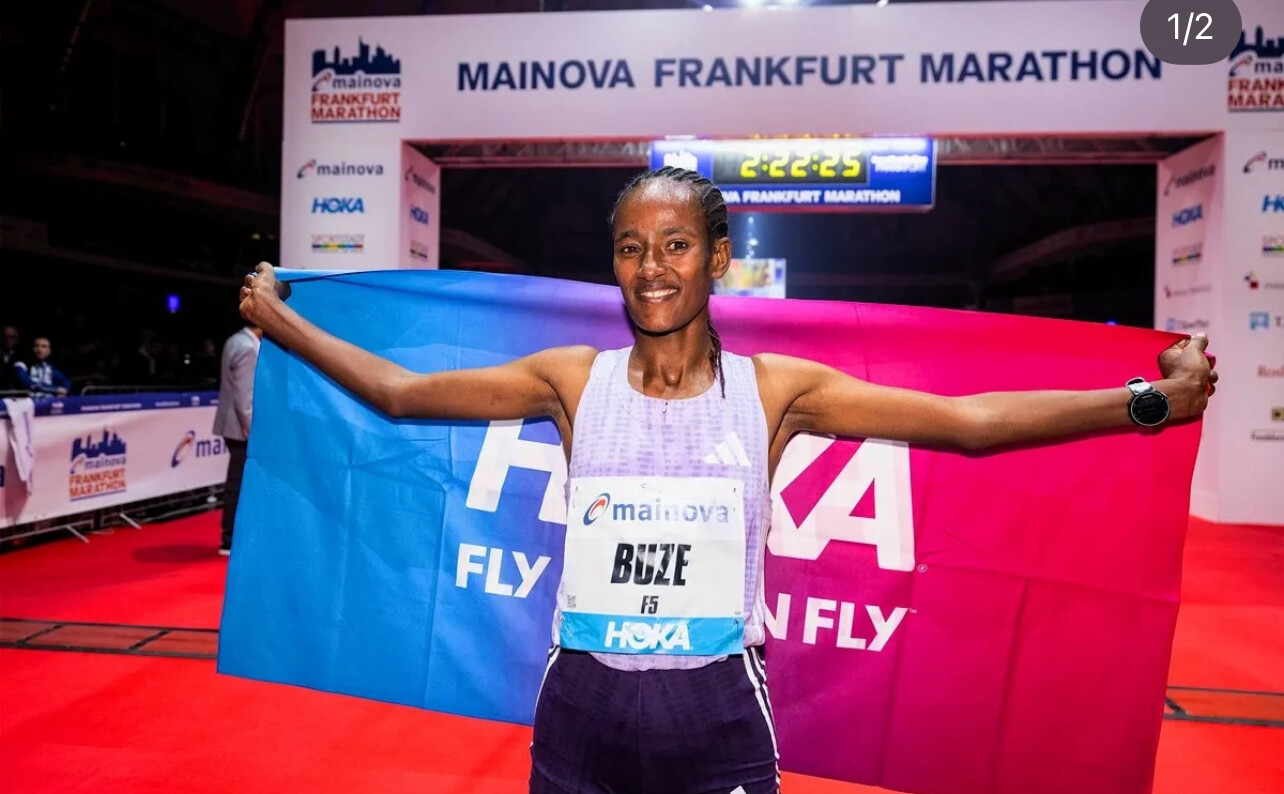
Ambitions Beyond Frankfurt
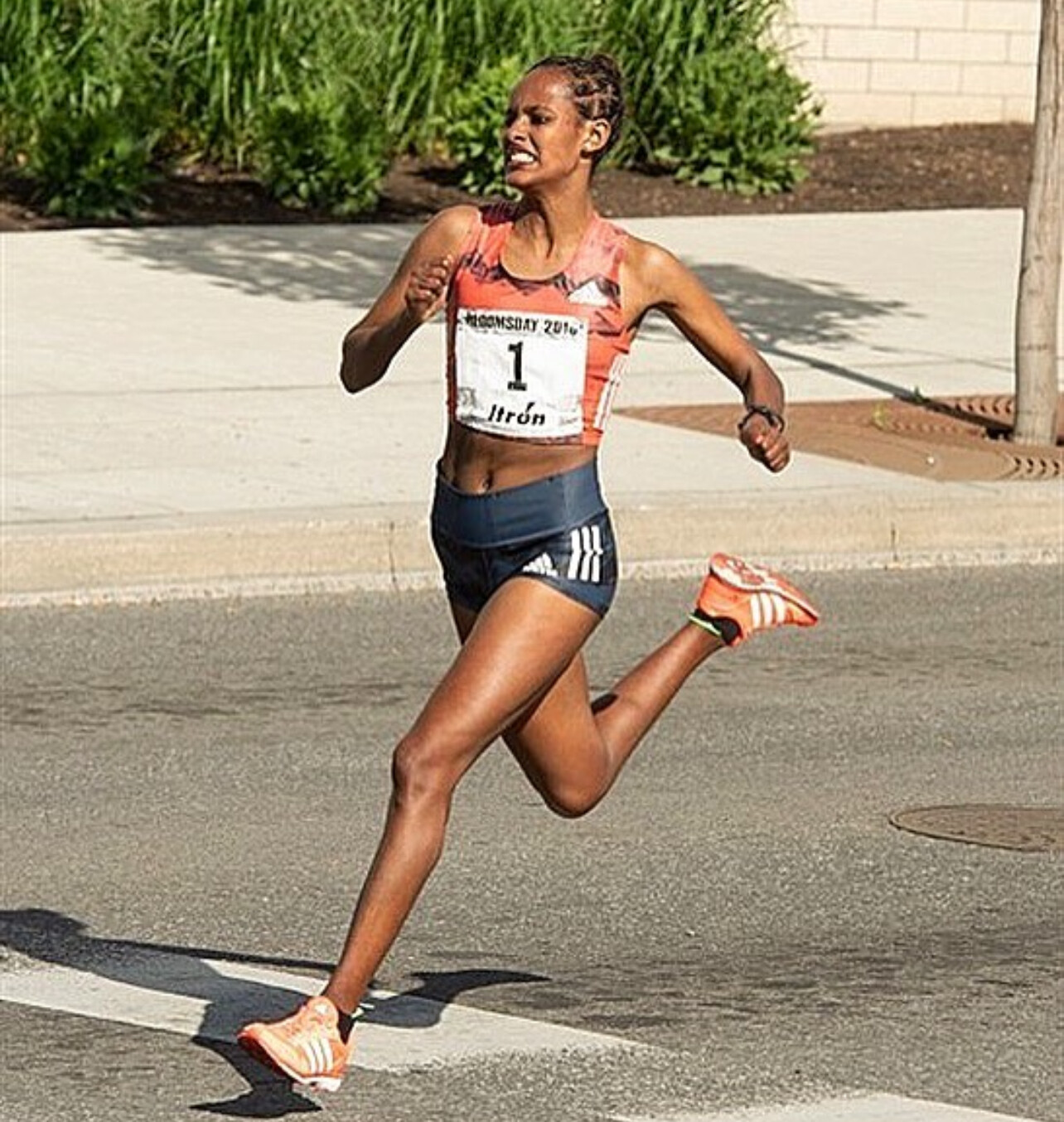
Diriba’s breakthrough in Frankfurt could mark the beginning of a new chapter. “I want to run in the World Championships and Olympic Games and win titles,” she said. Her goal is clear — to join the elite ranks of Ethiopia’s greatest distance runners.
She trains under Gedemu Dedefo in Addis Ababa, one of the most powerful marathon training groups in the world. The camp includes Olympic and World Championship silver medalist Tigst Assefa, Chicago Marathon champion Hawi Feysa, and Olympic marathon champion Tamirat Tola.
A year ago, Feysa used Frankfurt as her own launchpad to stardom, setting a course record of 2:17:25. Diriba came to this year’s edition determined to challenge that mark. “It helps me to have such strong training partners — it makes me stronger,” she explained. “I know I’ll need to run under 2:15 in the future to reach world-class level.”
From Arsi to the World Stage
Diriba hails from Asela, in Ethiopia’s famed Arsi region — the same area that produced legends such as Haile Gebrselassie. Her parents are farmers, and as a child she helped with chores before running to school each morning, “only about 20 minutes away.”
She began running competitively at 16, inspired by Ethiopian Olympic champions Meseret Defar and Tirunesh Dibaba. At 18, she captured the World Junior 5,000m title (2012), signaling her potential as a future great.
“Since then, Gemedu Dedefo has been my coach,” Diriba said. Now a mother of two young daughters, she credits her husband Guta Wami for keeping the household running while she trains and competes.
A Family of Runners
Athletic talent runs deep in the Diriba family. Her younger brother Boki Diriba, 21, is already making his mark, finishing 10th at the 2023 World Cross Country Championships and running 2:07:13 for sixth in Hamburg this April.
With Buze and Boki both rising fast, the Diriba name could soon become one of the most recognized in international road running — a new family dynasty emerging from Ethiopia’s storied highlands.
by Race News Service
Login to leave a comment
Sabastian Sawe Dominates in Berlin With 2:02:16 Victory
Berlin, September 21, 2025 — The Berlin Marathon once again lived up to its reputation as the world’s fastest stage for marathon running. Kenya’s Sabastian Sawe stormed to victory on Sunday, clocking 2:02:16, the fastest marathon time in the world this year and the fourth-fastest ever run on the streets of Berlin.
Sawe, already the reigning champion from Valencia (2024) and London (2025), extended his unbeaten record over the marathon distance. From the gun, he attacked with confidence, hitting 5km in 14:09and 10km in 28:26, well inside world-record pace. By halfway, his split of 60:16 electrified the Berlin crowds and suggested history might be on the cards.
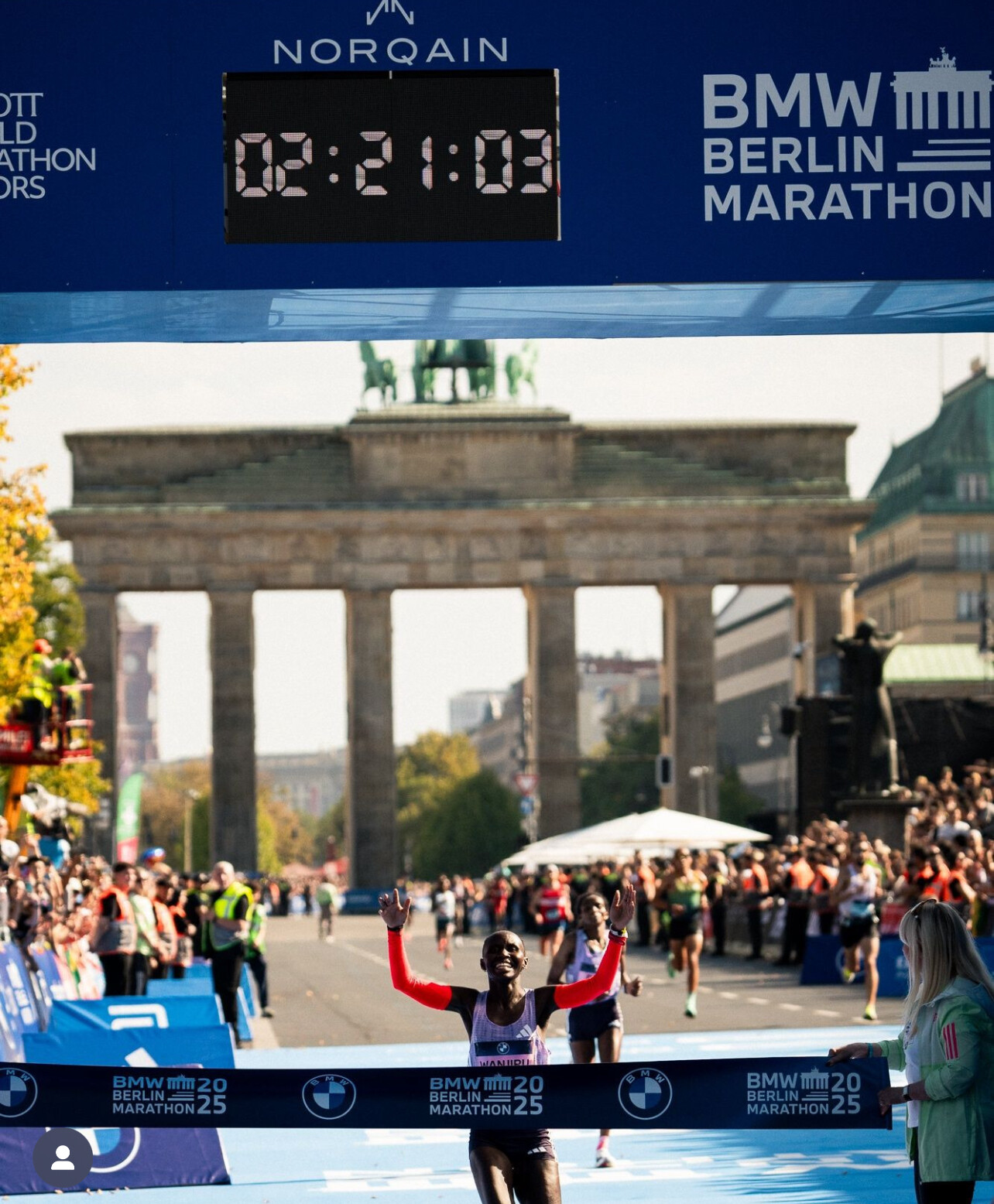
But conditions proved decisive. Unseasonably warm temperatures — climbing to 25°C (mid-70s°F) — and the loss of his pacemakers before the 23km mark forced Sawe to shoulder the workload alone. Though the second half slowed, he maintained control and powered down Unter den Linden to the Brandenburg Gate, finishing with a commanding lead.
Behind him, Akira Akasaki of Japan impressed with a breakthrough run, finishing second in 2:06:15, while Ethiopia’s Chimdessa Debele held on for third in 2:06:57.
Wanjiru Outkicks Dida in Women’s Duel
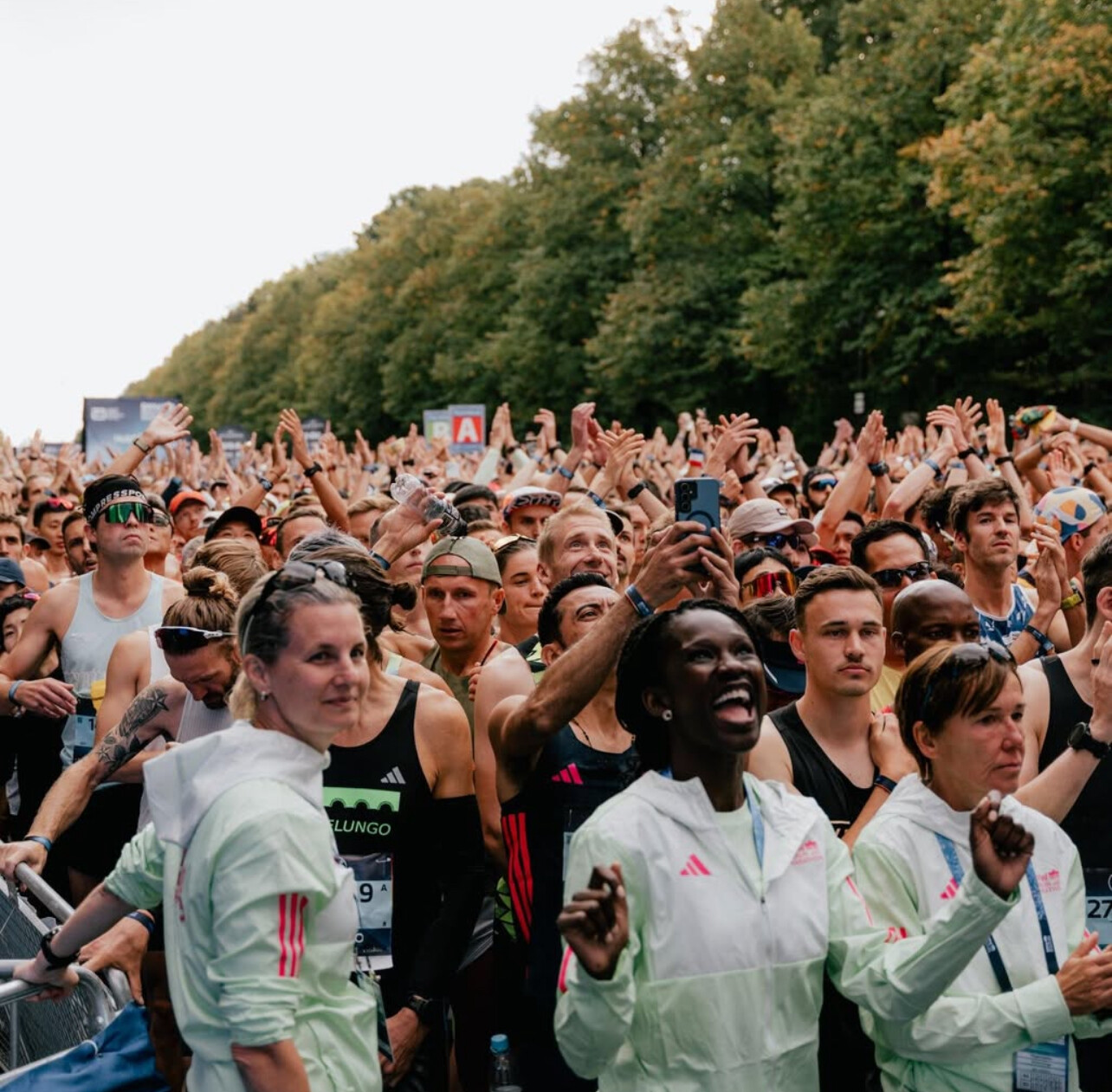
The women’s race produced its own drama, with Kenya’s Rosemary Wanjiru edging Ethiopia’s Dera Dida by just three seconds. Wanjiru clocked 2:21:05 after a decisive surge past the 25km mark. Dida followed in 2:21:08, while fellow Ethiopian Azmera Gebru completed the podium in 2:21:29.
“I knew it would come down to the final kilometers,” Wanjiru said afterward. “The crowd in Berlin gave me so much energy.”
Berlin’s Enduring Legacy
This year’s edition was the 51st running of the Berlin Marathon, and once again, the German capital showcased why it is considered the “world record course.” Since 2003, the men’s world record has been broken eight times in Berlin, most recently by Eliud Kipchoge’s 2:01:09 in 2022. On the women’s side, Tigst Assefa stunned the world here in 2023 with her record 2:11:53.
While Sawe fell short of rewriting those marks, his performance in the heat confirmed his status as the man to beat in global marathon running. With three straight victories in world-class fields, he has announced himself as the heir apparent to Kipchoge.
Results at a Glance
Men
1. Sabastian Sawe (Kenya) — 2:02:16
2. Akira Akasaki (Japan) — 2:06:15
3. Chimdessa Debele (Ethiopia) — 2:06:57
Women
1. Rosemary Wanjiru (Kenya) — 2:21:05
2. Dera Dida (Ethiopia) — 2:21:08
3. Azmera Gebru (Ethiopia) — 2:21:29
by Boris Baron
Login to leave a comment
BMW Berlin Marathon
The story of the BERLIN-MARATHON is a story of the development of road running. When the first BERLIN-MARATHON was started on 13th October 1974 on a minor road next to the stadium of the organisers‘ club SC Charlottenburg Berlin 286 athletes had entered. The first winners were runners from Berlin: Günter Hallas (2:44:53), who still runs the BERLIN-MARATHON today, and...
more...Super Shoes or Super Runners? How Carbon-Plated Racing Shoes Are Reshaping the Distance Running World
A Bold Step Forward—or Too Much?
The eye-catching shoes in the images, with their bright yellow color and radical stack height, exemplify the cutting-edge engineering behind today’s carbon-plated distance racing shoes. These models, possibly from Puma’s Nitro range, showcase an exaggerated rocker design, thick midsoles, and strategically placed carbon plates, all intended to maximize energy return. However, this aggressive design pushes the limits of World Athletics regulations, which restrict stack heights to a maximum of 40mm for road races. If these shoes exceed that, they would be deemed illegal in sanctioned competitions—a fine line that highlights the tension between innovation and fairness in modern distance running.
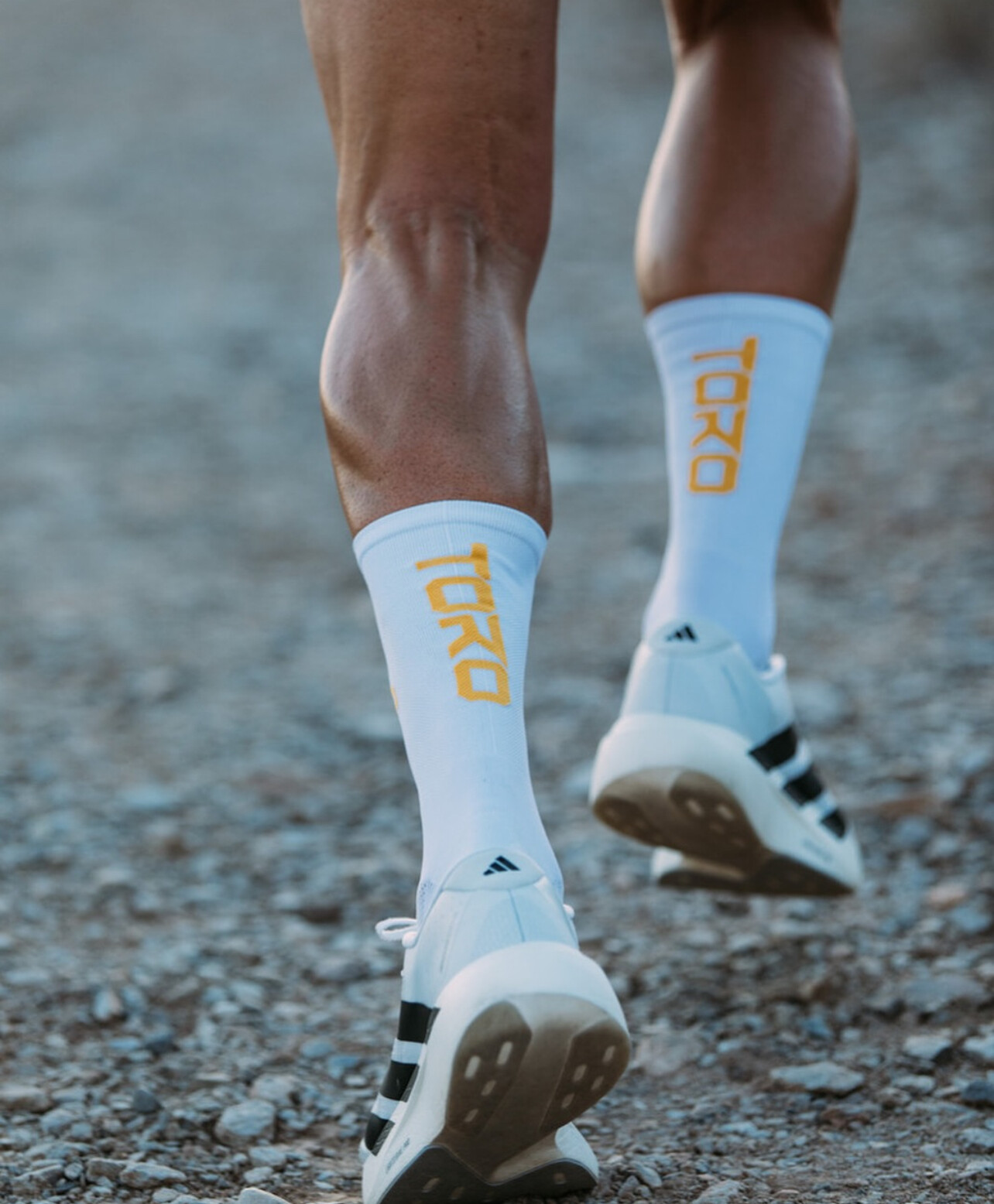
Over the past few years, the distance running community has witnessed a revolution, not just in athletic performance but in technology. At the heart of this transformation are the carbon-plated “super shoes,” with models like the Nike Alphafly 3, Adidas Adizero Pro Evo 1, and Saucony Endorphin Elite capturing headlines—and finish lines.
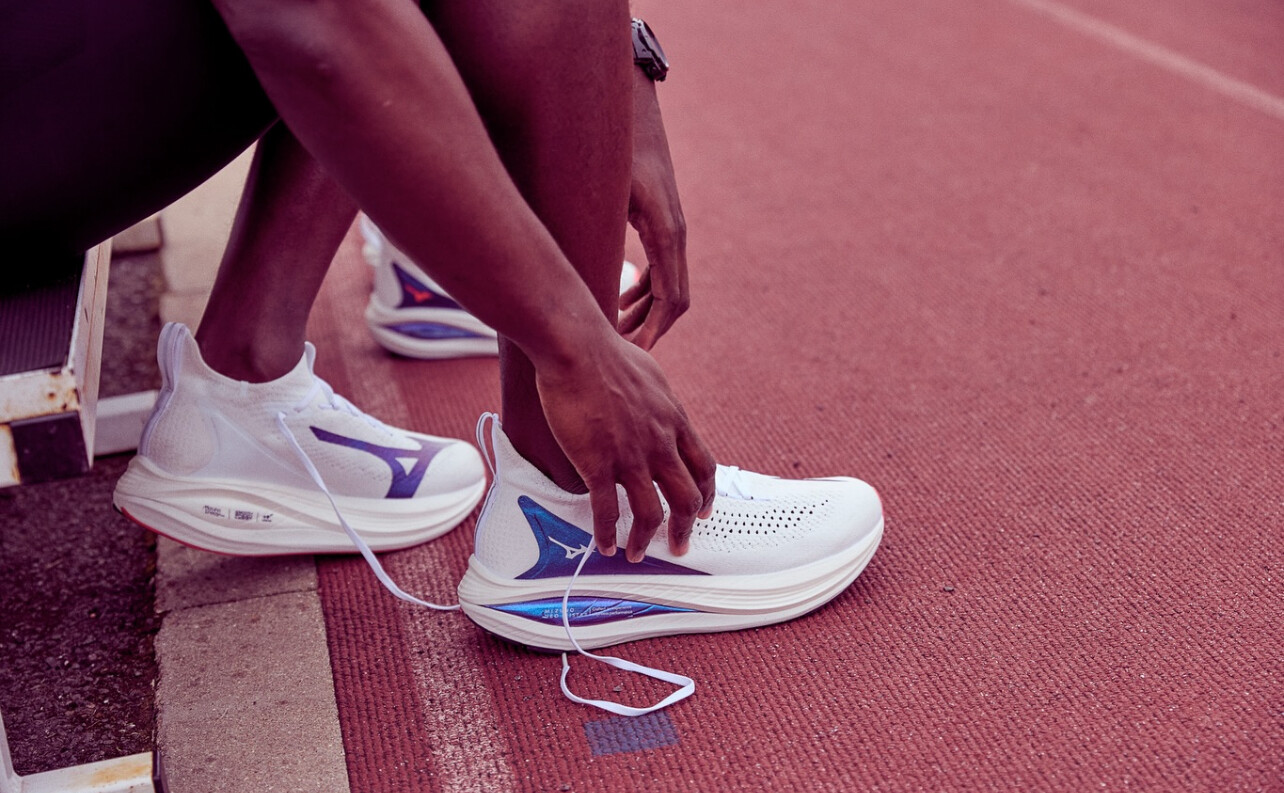
These shoes are more than just a flashy innovation. They represent a fusion of engineering, biomechanics, and material science aimed at optimizing energy return and minimizing fatigue. The secret lies in their construction: a lightweight, resilient foam midsole paired with a rigid carbon-fiber plate that creates a propulsive effect. Research has shown these super shoes can improve running economy by up to 4%, translating into crucial seconds—or even minutes—shaved off race times for elite athletes.
Marathon world records and personal bests are being rewritten at a blistering pace. From Eliud Kipchoge’s sub-two-hour marathon in a prototype Nike shoe to Tigst Assefa’s stunning women’s world record at the Berlin Marathon, the combination of human talent and advanced footwear is undeniable.
However, this technological leap hasn’t come without controversy. Critics argue that super shoes are blurring the line between natural ability and mechanical advantage, creating an uneven playing field. Access is also a concern: with many of these models retailing at $250 or more, elite athletes and well-funded programs often have a leg up on competitors who can’t afford the gear. Some purists feel this shift detracts from the simplicity and rawness of the sport, which historically prized grit and determination over gear.
Yet others argue that innovation is inevitable. After all, every era of distance running has had its technological advances, from cinder to synthetic tracks, from wool to moisture-wicking gear. Super shoes are merely the latest chapter in this ongoing evolution. They offer athletes a tool—how they use it is still up to them.
For amateur runners, these shoes are not just for the elites. Weekend warriors chasing personal records have embraced carbon-plated models, with many reporting improvements in comfort and reduced post-race soreness. But it’s essential to note that no shoe can replace proper training, nutrition, and race strategy.
Looking ahead, the super shoe debate will likely continue, especially as brands develop even more advanced models. World Athletics, the sport’s governing body, has already implemented regulations on shoe design and stack height to maintain some level of fairness.
In the end, the question remains: are we witnessing the rise of super runners, or is this the dawn of a new era where gear becomes as crucial as training? Either way, carbon-plated racing shoes have changed distance running forever—and there’s no turning back.
"As a master runner I like a shoe that does not have such a thick sole," says 77 year old lifetime runner Bob Anderson. "I have taken a few falls and these new super shoes could be a problem."
by Boris Baron
Login to leave a comment
London Marathon Sets New Record with Over 1.1 Million Applications for 2026
The London Marathon continues to captivate the global running community, as organizers announced a record-breaking 1,133,813 applications for the 2026 race. This figure represents a 36% increase from the previous year’s record of 840,318 applications for the 2025 event, underscoring the marathon’s unparalleled appeal .
“This is an absolutely staggering total which reaffirms London as by far the most popular marathon on the planet,” said Hugh Brasher, CEO of London Marathon Events. “Marathon Day is always an extraordinary and inspirational day when we celebrate the very best of humanity.”
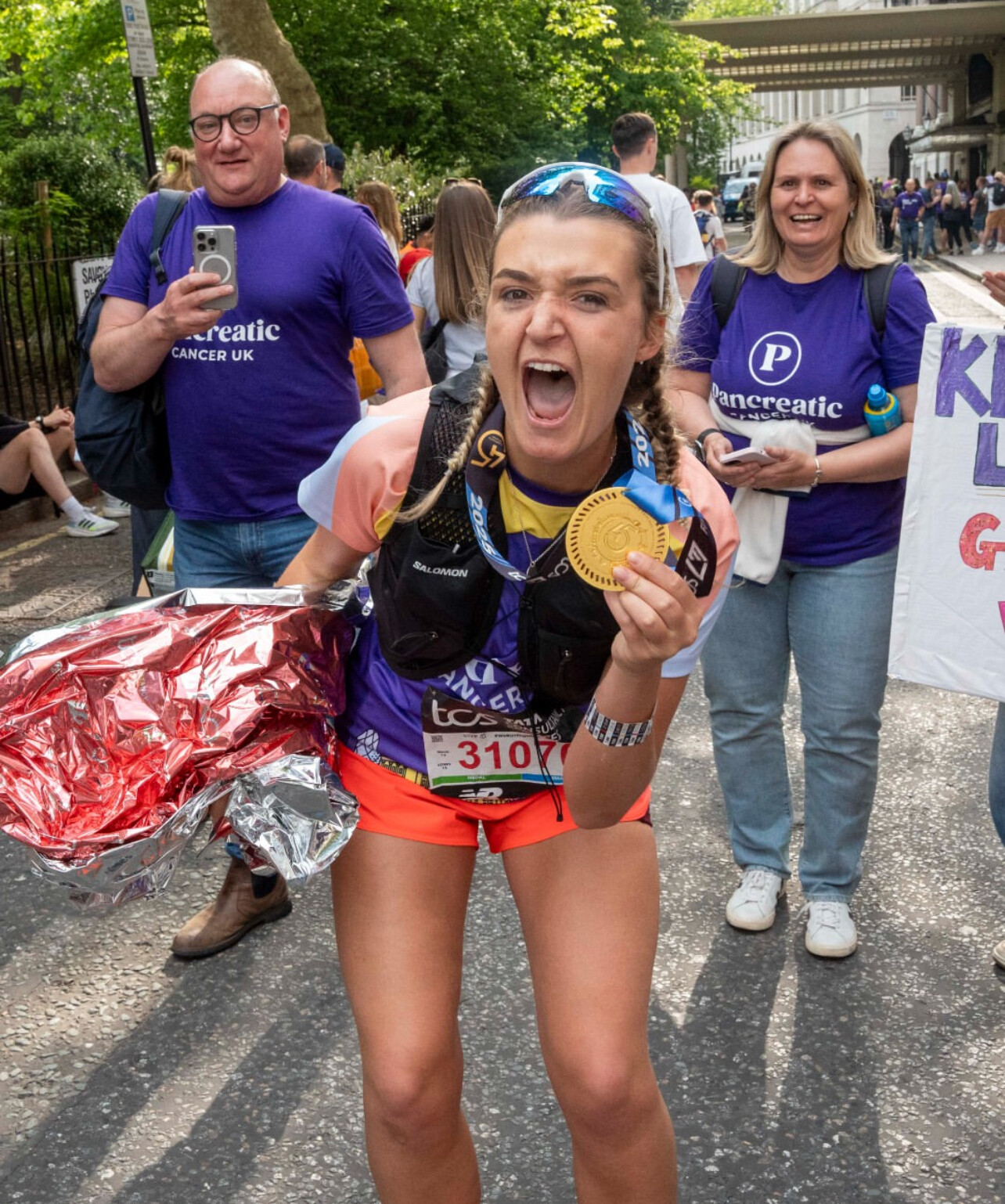
The 2025 edition of the marathon further cemented its legendary status. A record 56,640 runners crossed the finish line, setting a new world record for the highest number of finishers in a marathon. This achievement surpasses the previous record of 55,646 set by the New York City Marathon in 2024 .
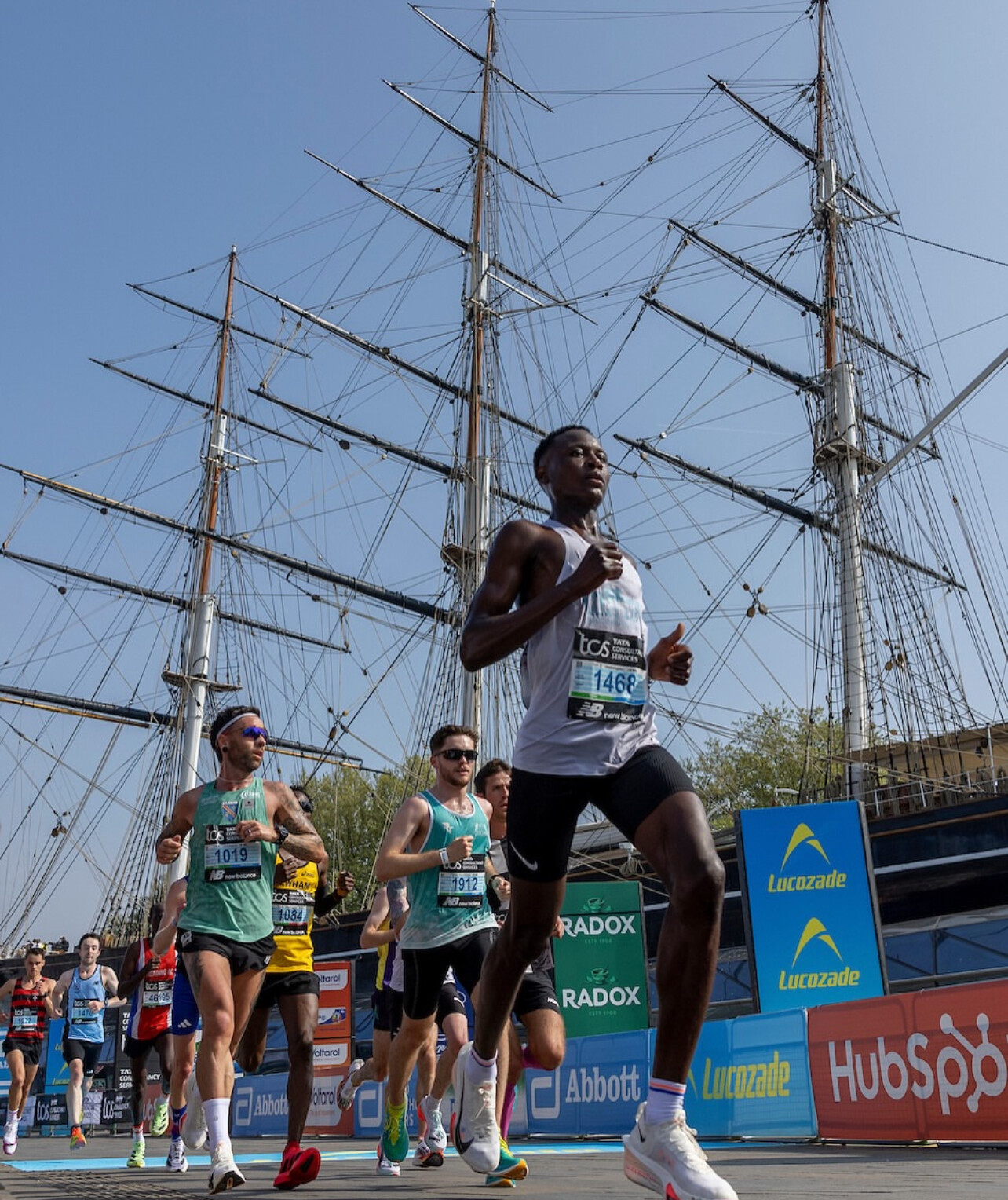
In the women’s elite race, Ethiopia’s Tigst Assefa delivered a historic performance, completing the course in 2:15:50. This time set a new women’s-only marathon world record, surpassing the previous mark of 2:16:16 established by Peres Jepchirchir in 2024 .

The men’s elite race saw Kenya’s Sabastian Sawe claim victory with a time of 2:02:27, the second-fastest in London Marathon history, trailing only Kelvin Kiptum’s 2:01:25 set in 2023 .
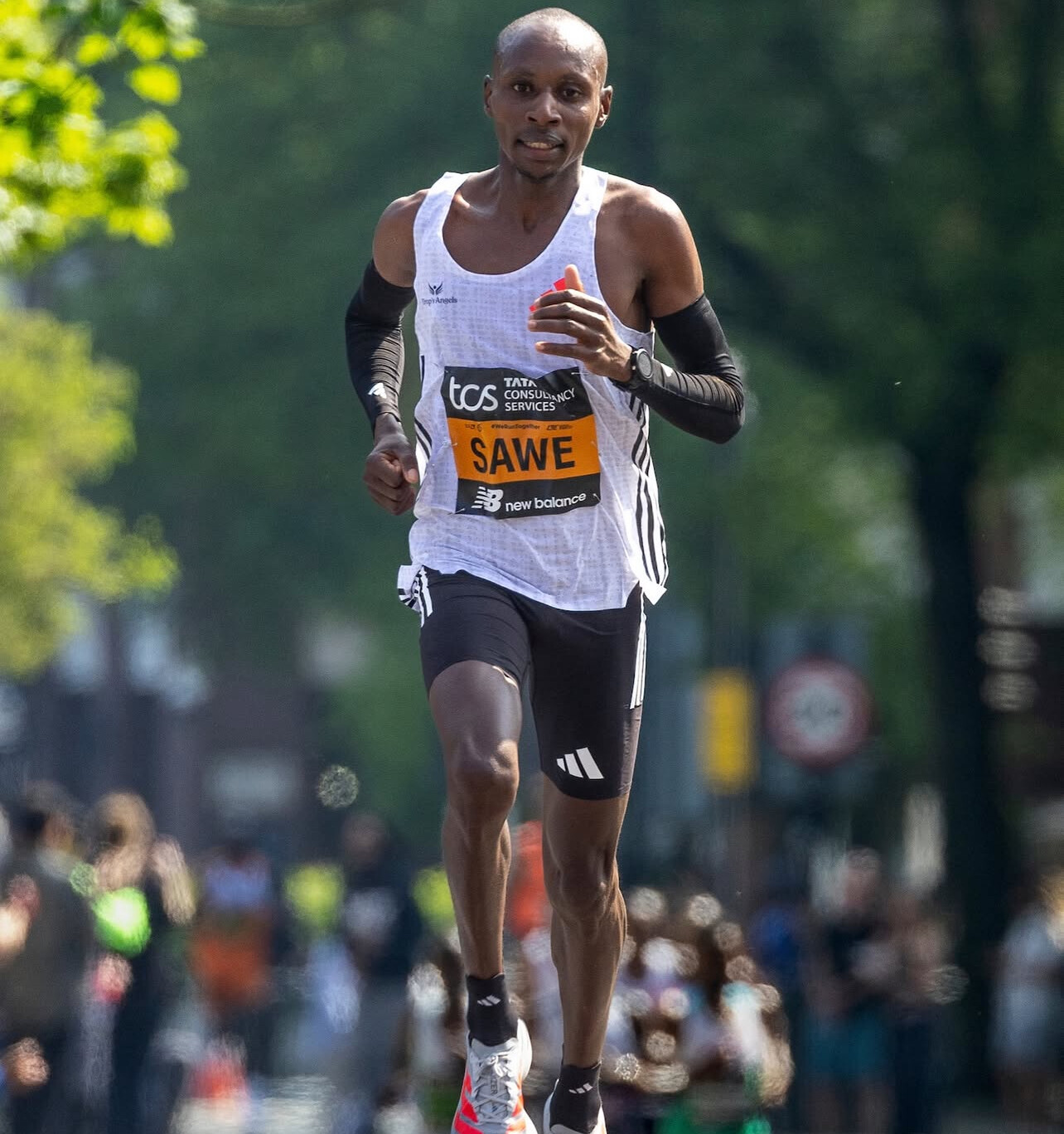
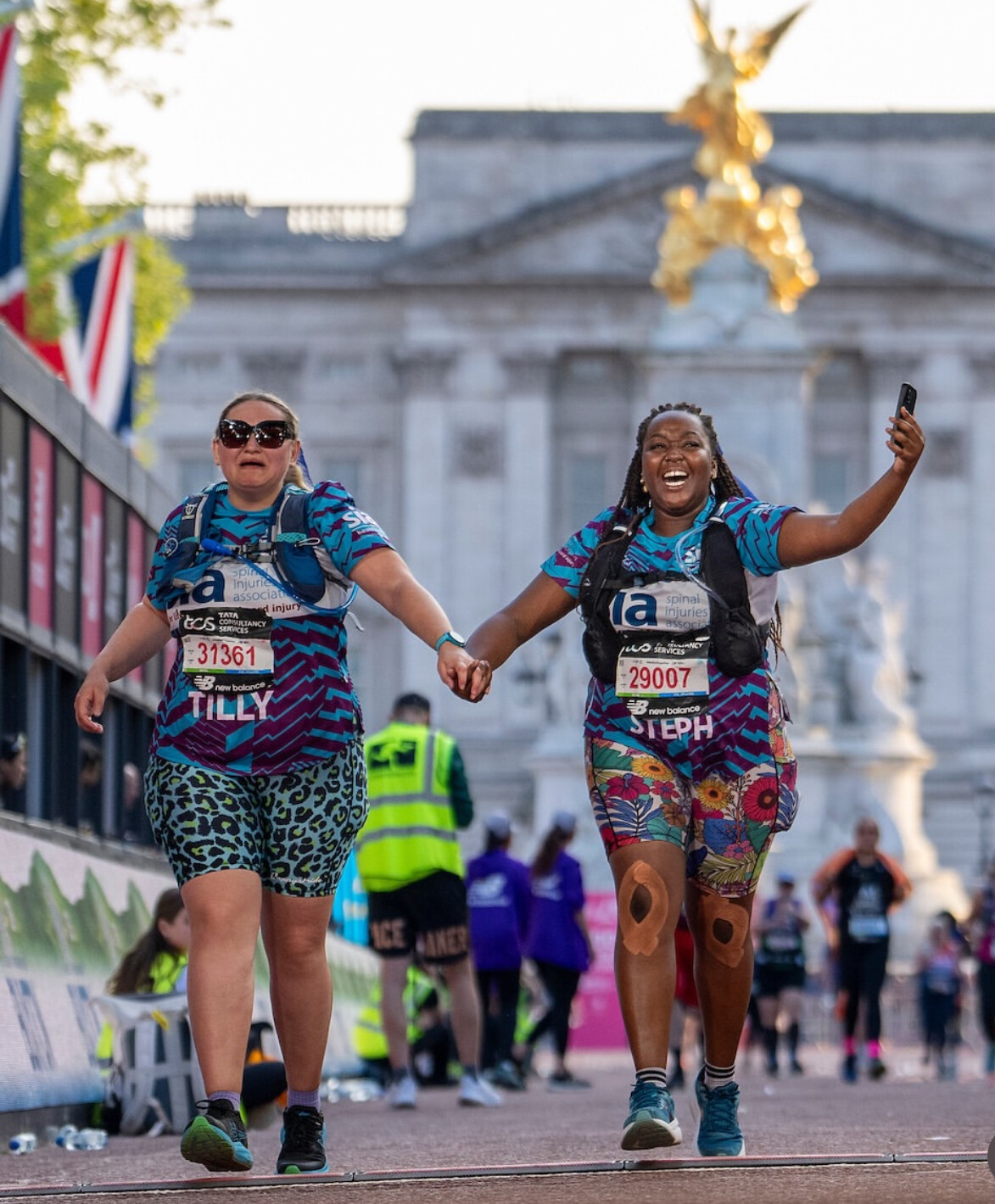
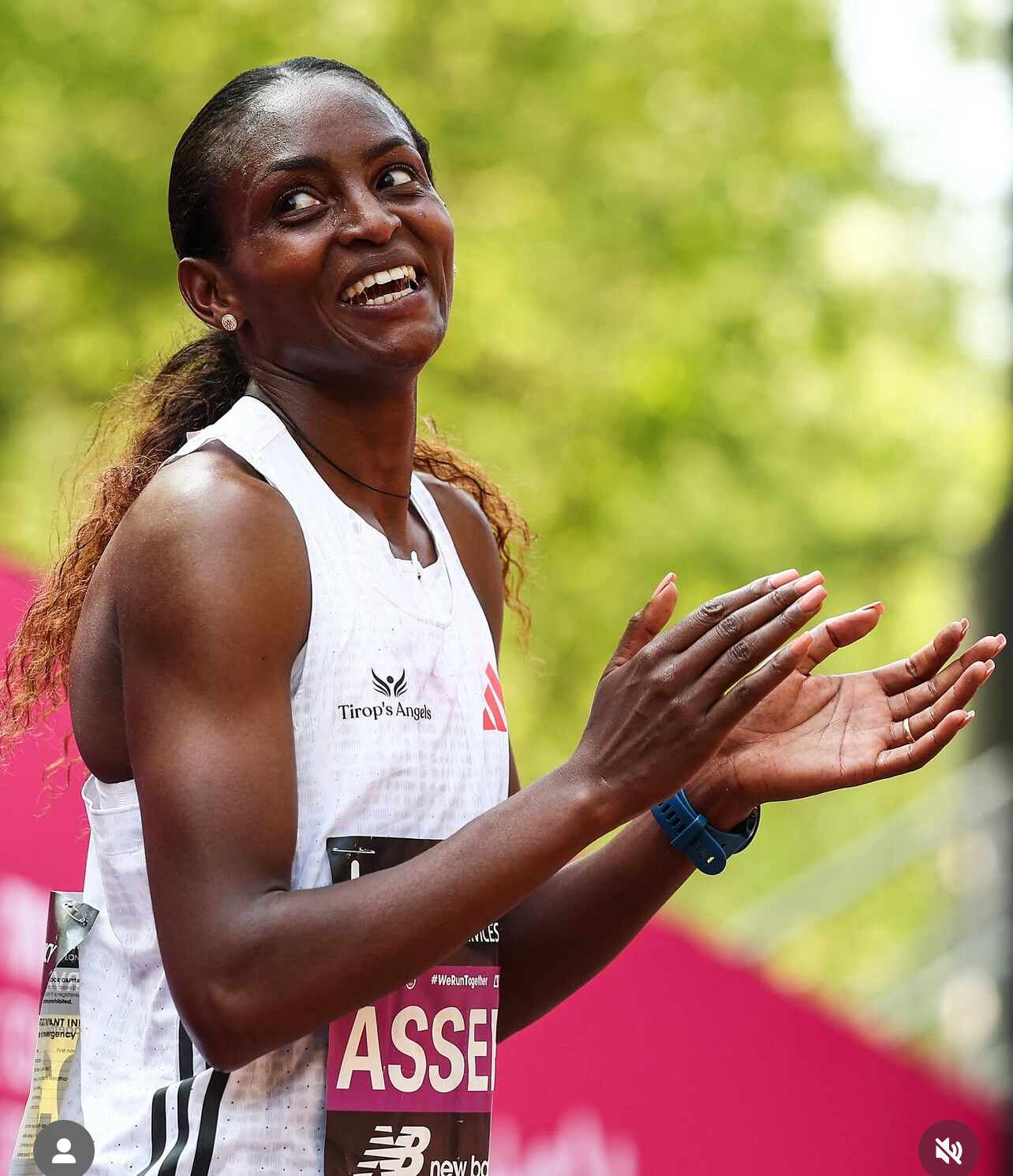
Beyond athletic achievements, the 2025 marathon also made a significant philanthropic impact. Participants raised over £75 million (approximately $99.9 million USD) for various charities, reinforcing the event’s status as the world’s largest single-day fundraising event .
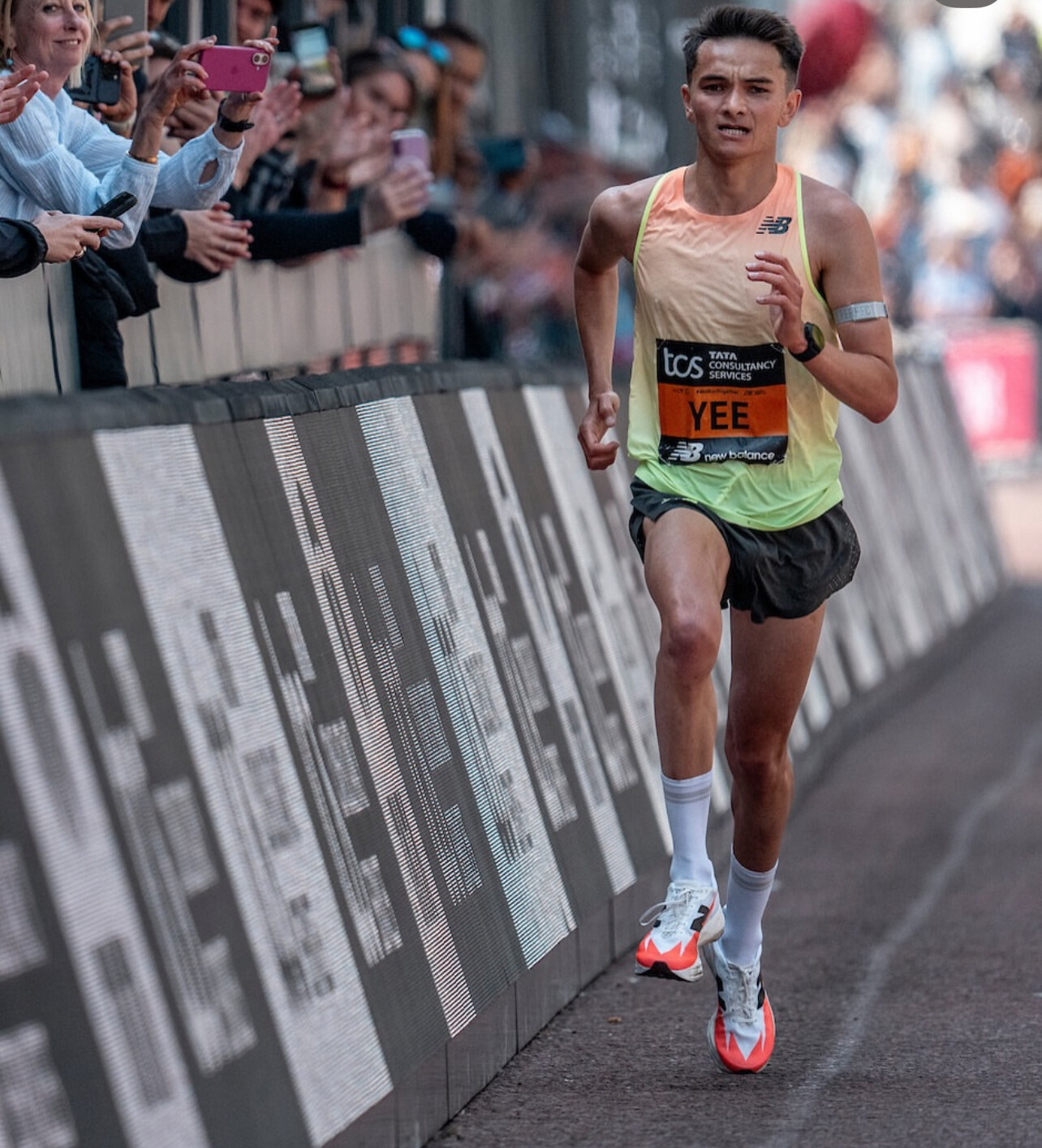
With its blend of elite competition, mass participation, and charitable fundraising, the London Marathon continues to set the standard for global marathon events.
by Boris Baron
Login to leave a comment
Tigst Assefa Shatters Women’s-Only World Record at the 2025 London Marathon
History was made on the streets of London this morning. Ethiopia’s Tigst Assefa surged to victory at the 2025 TCS London Marathon, setting a new women’s-only world record with an unofficial time of 2:15:50.
With cool, crisp conditions early in the race, Assefa quickly established her dominance. Pulling away from her rivals by the halfway point, she maintained a strong and steady pace through the final miles. In the closing stages, it was clear the race against the clock had begun — and she delivered in spectacular fashion, crossing the finish line with a commanding lead of over a minute ahead of second-place Joyciline Jepkosgei.
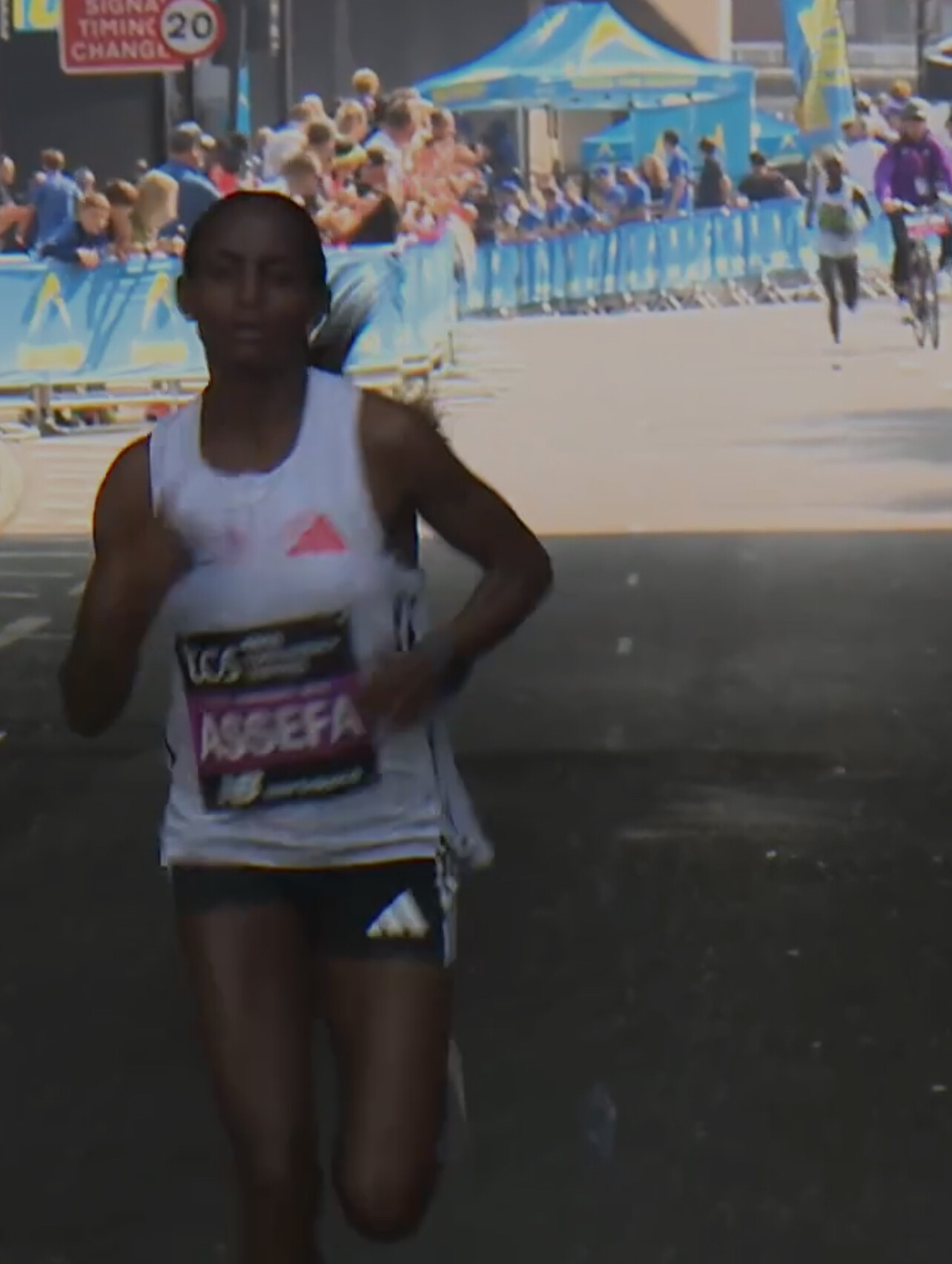
The previous women’s-only world record was held by Britain’s Paula Radcliffe, whose 2:17:01 mark from London in 2005 had stood for two decades. Assefa’s breakthrough performance, pending official ratification, trims over a minute from that legendary time.
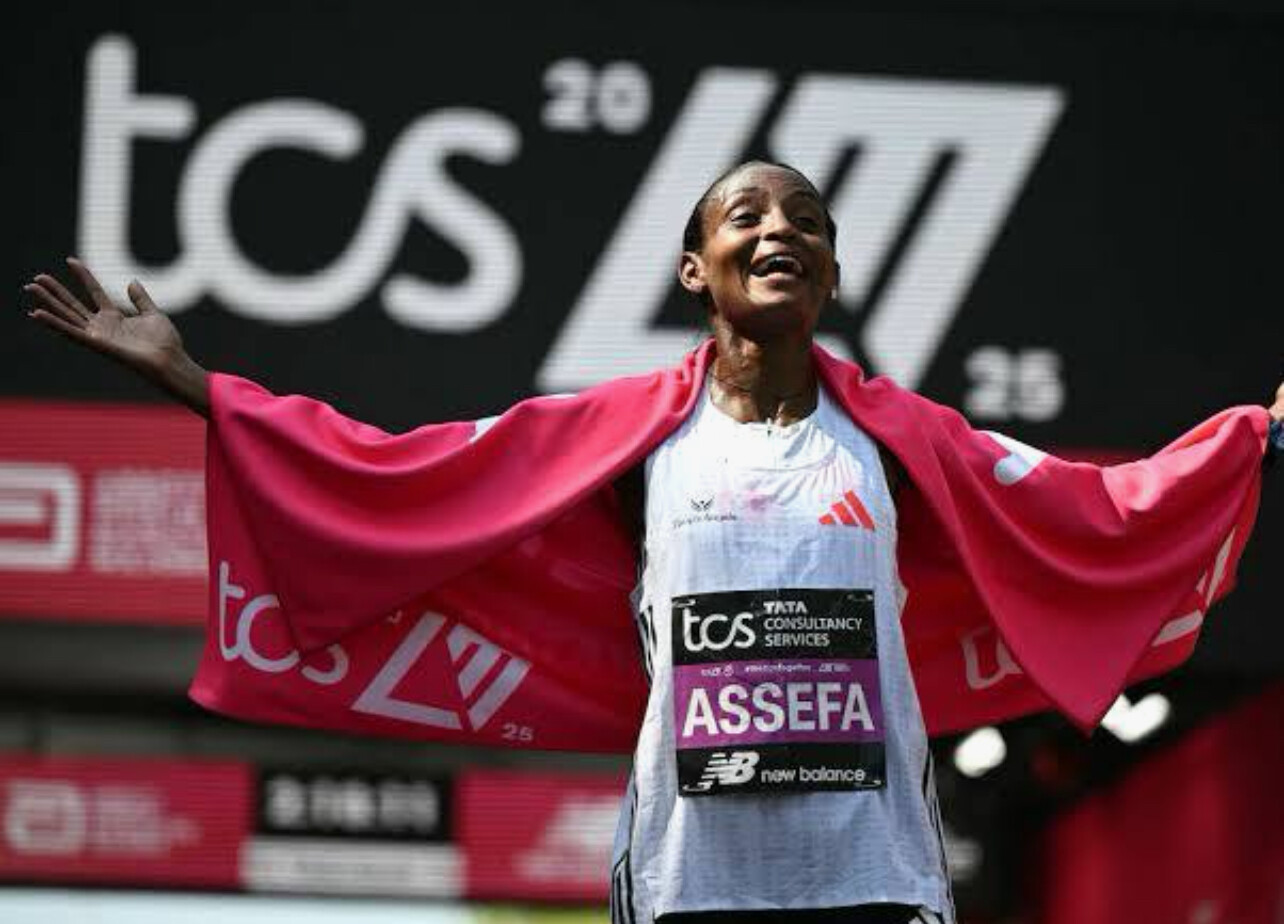
Tigst Assefa had already stunned the running world with her mixed-race world record of 2:11:53 set in Berlin in 2023. Today, she confirmed her place among the all-time greats by dominating a race staged without male pacemakers, underlining her incredible solo strength.
Assefa’s record run headlined what has already become one of the most memorable editions of the London Marathon, with over 56,000 participants and perfect spring weather creating an electric atmosphere.
Paula Radcliffe posted "That was a phenomenal race so hats off to Tigst Assefa for being brave enough to go out in the pace she did!
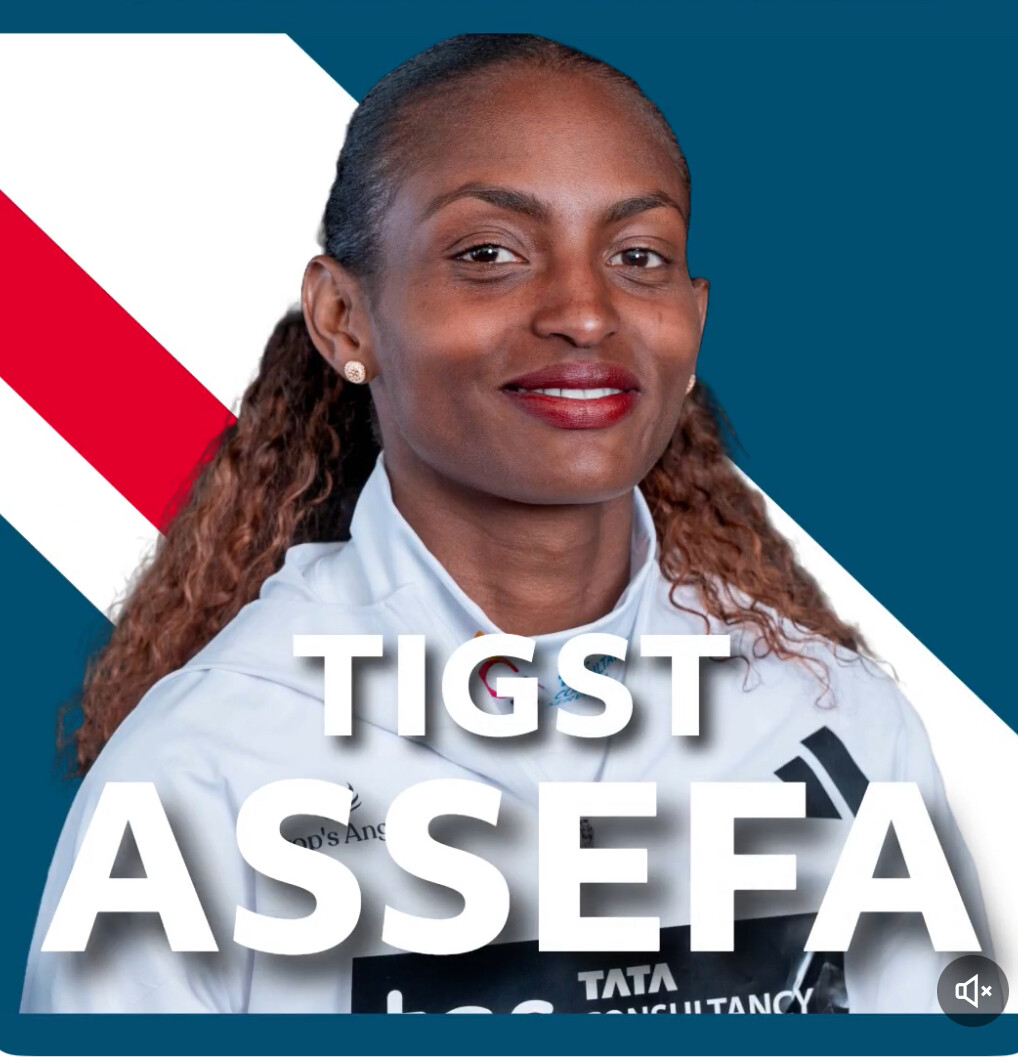
The manner in which she lifted herself to get across the line as well.
You can see how much it means to her. It's more to build on for her moving forward."
Eilish McColgan picks up the pace as she comes across the line in 02:24:25 for eighth place.
She's tired on her marathon debut but has done one thing she wanted - beat her mum Liz's best time. Liz McColgan won here in 1996.
A decent effort for a first attempt.
Top 13 Women’s Elite Finishers
1. Tigst Assefa (ETH) – 2:15:50
2. Joyciline Jepkosgei (KEN) – 2:18:44
3. Sifan Hassan (NED) – 2:19:00
4. Haven Hailu Desse (ETH) – 2:19:17
5. Vivian Cheruiyot (KEN) – 2:22:32
6. Stella Chesang (UGA) – 2:22:42
7. Sofiia Yaremchuk (ITA) – 2:23:14
8. Eilish McColgan (GBR) – 2:24:25
9. Rose Harvey (GBR) – 2:25:01
10. Susanna Sullivan (USA) – 2:29:30
11. Phily Bowden (GBR) – 2:30:28
12. Molly Bookmyer (USA) – 2:32:31
13. Holly Archer (GBR) – 2:39:45
Ethiopia’s Tigst Assefa delivered a historic performance, setting a new women-only world record with a time of 2:15:50. She broke away from the pack after the 30-kilometer mark and maintained her lead to the finish line.
Kenya’s Joyciline Jepkosgei secured second place with a strong finish at 2:18:44, while the Netherlands’ Sifan Hassan completed the podium in third with a time of 2:19:00.
Notably, Great Britain’s Eilish McColgan finished eighth, setting a new Scottish marathon record with her time of 2:24:25.
by Boris Baron
Login to leave a comment
Emile Cairess Withdraws from London Marathon Due to Injury, Halting Record Pursuit
Top British marathoner Emile Cairess has officially withdrawn from the 2025 TCS London Marathon due to a persistent ankle tendon injury that has derailed his training. The setback forces the 27-year-old to put his pursuit of Mo Farah’s British marathon record of 2:05:11 on hold as he focuses on recovery.
Cairess, who burst onto the marathon scene as the fastest British debutant of all time in 2023 with a 2:08:07 finish, had since lowered his personal best to 2:06:46, securing third place in last year’s London Marathon behind Alex Mutiso and Kenenisa Bekele. He followed that success with a fourth-place finish at the Paris Olympics, further solidifying his status as one of Britain’s brightest distance-running stars.

“It’s incredibly disappointing to miss London this year, especially after how well things had been progressing,” Cairess shared. “But the ankle injury has made it impossible to maintain the consistency I need. Right now, my focus is on healing properly so I can come back stronger.”
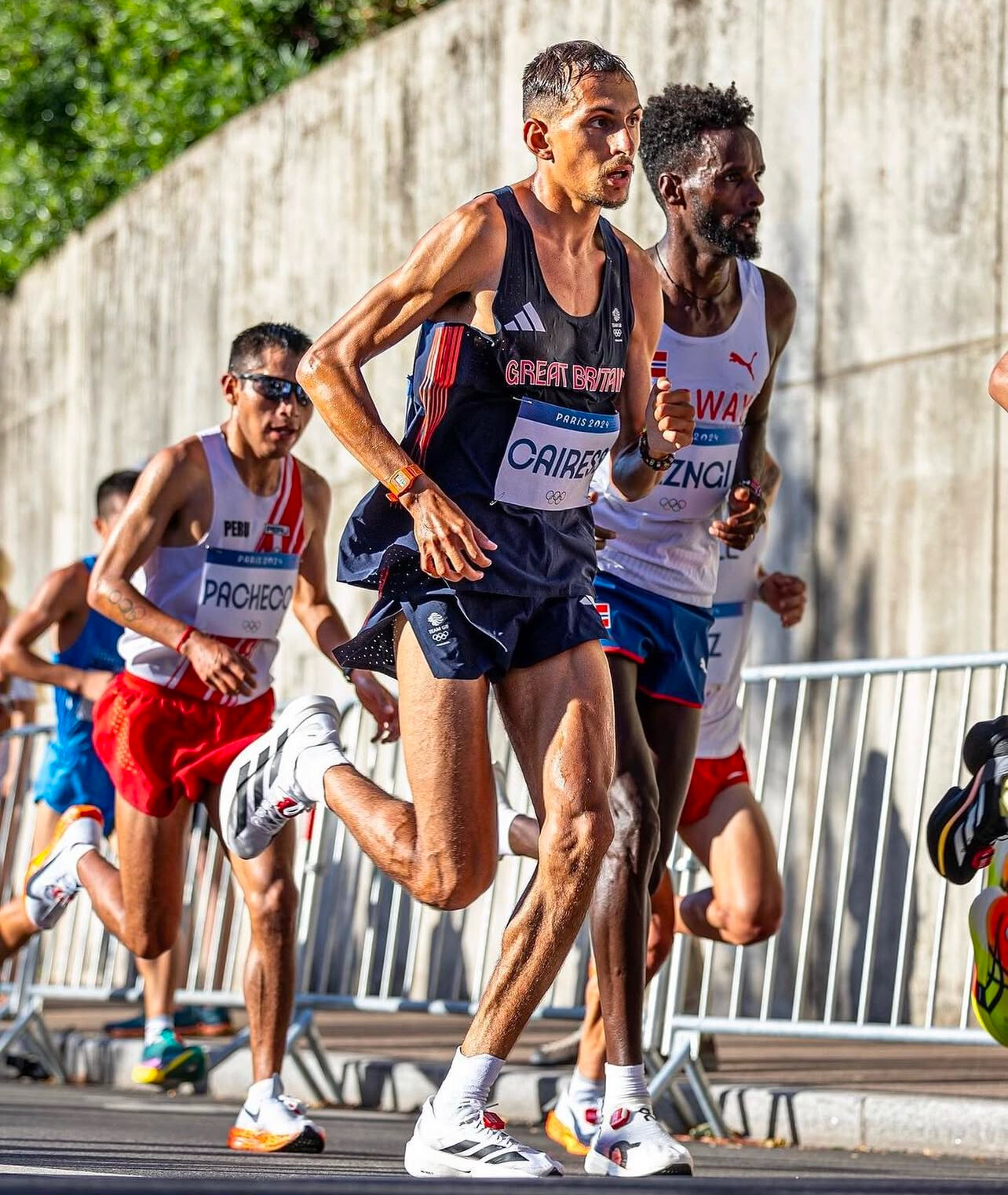
Star-Studded Field Remains
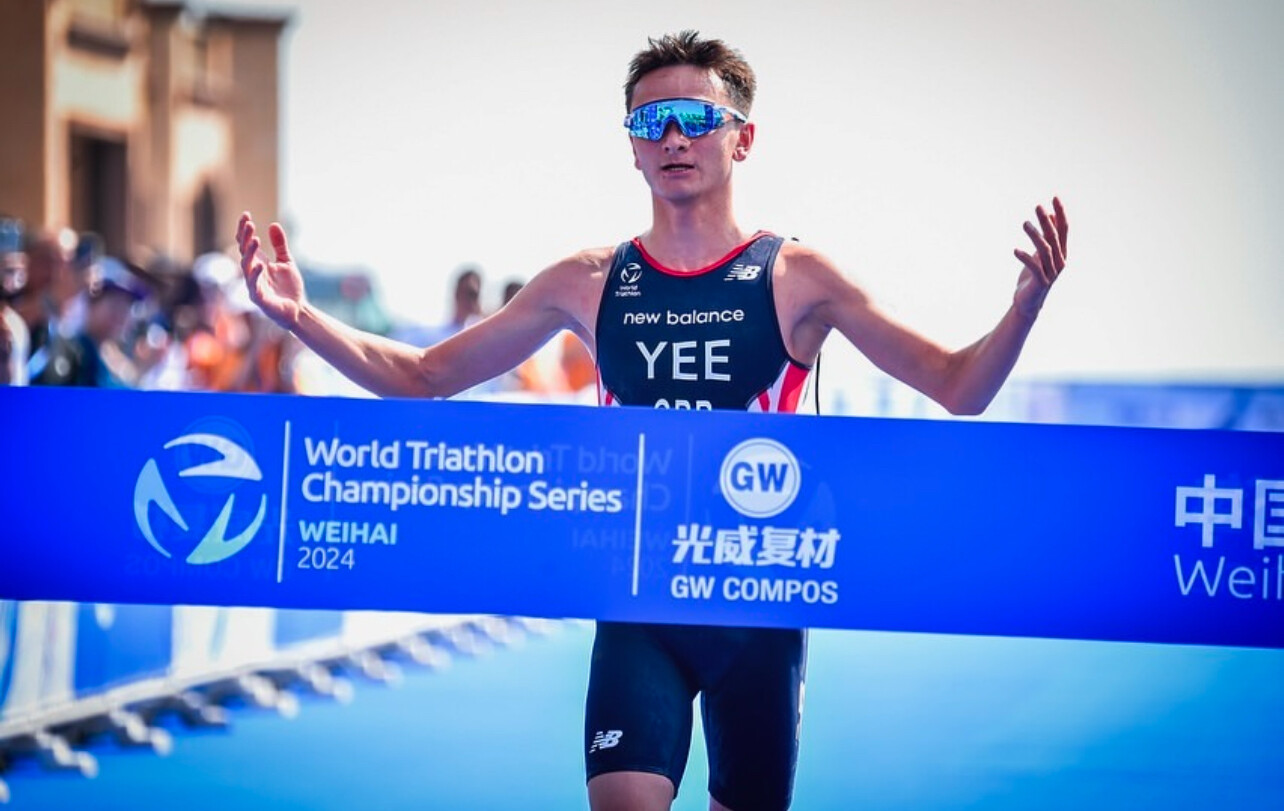
While Cairess’s absence is a blow to British hopes, the men’s elite field remains stacked with talent. Eliud Kipchoge, Kenenisa Bekele, and Olympic champion Tamirat Tola are set to headline the race, joined by world half-marathon record-holder Jacob Kiplimo and defending champion Alex Mutiso.

On the British front, Olympic triathlon champion Alex Yee will make his highly anticipated marathon debut, while Mahamed Mahamed and Phil Sesemann, both fresh from the Paris Olympics, aim to make their mark on home soil.
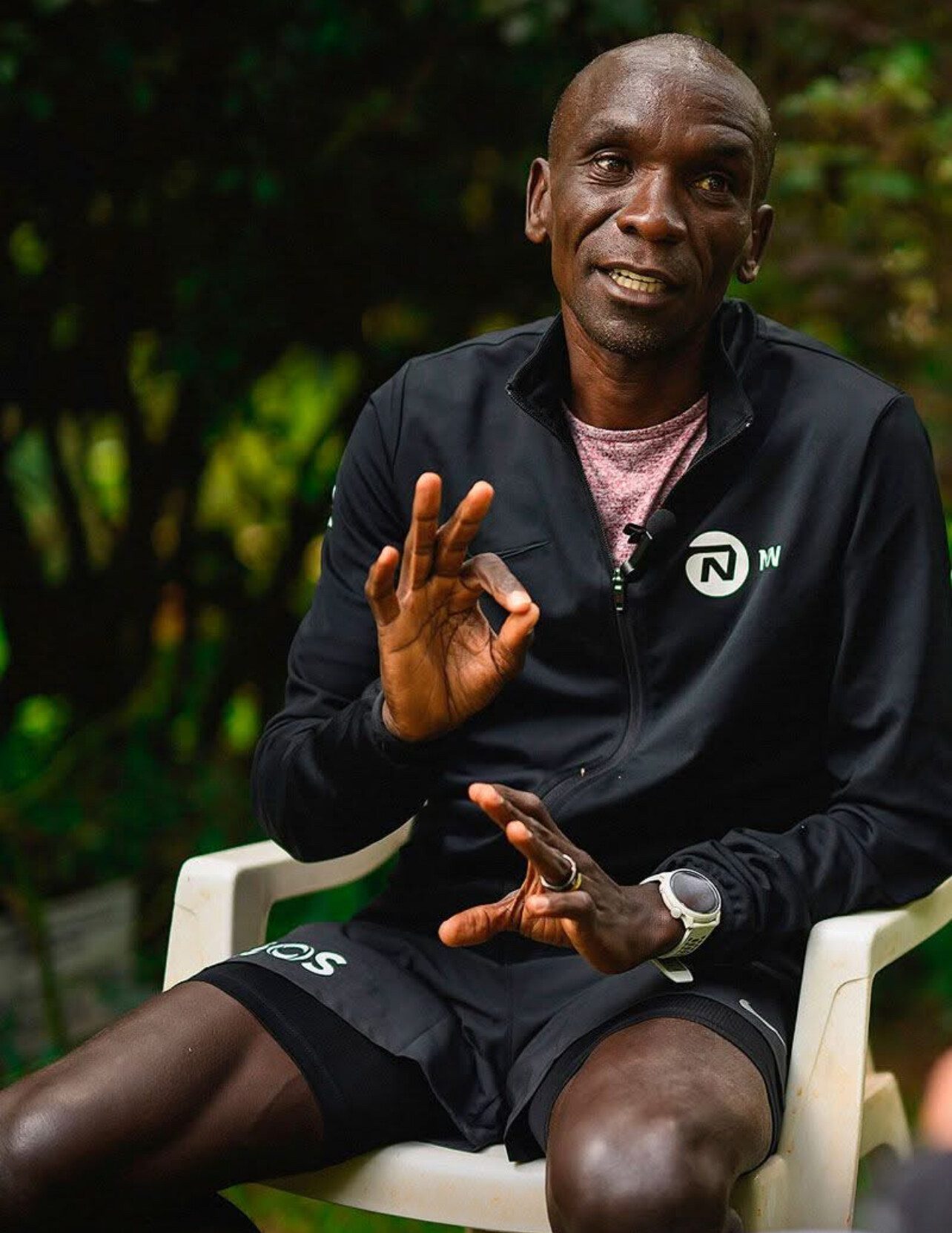
Women’s Elite Race Draws Global Talent
In the women’s race, Lucy Reid has also withdrawn due to injury after initially planning her London debut following a breakthrough 2:26:35 in Malaga last December. However, the competition remains fierce, with world record-holder Ruth Chepngetich, reigning Olympic champion Sifan Hassan, and Tigst Assefa—who famously shattered the Berlin Marathon record—leading the charge.
Adding to the excitement, defending champion Peres Jepchirchir will return, while British star Eilish McColgan is set to make her long-awaited marathon debut, bringing further domestic interest to the race.
While Cairess’s withdrawal is undoubtedly disappointing, the marathon season is far from over. With careful rehabilitation, he remains hopeful for a return later this year, possibly targeting the Berlin or Chicago Marathons as alternative stages for his record pursuit.
The London Marathon, meanwhile, continues to promise world-class performances, with a stellar field ready to light up the streets of the British capital come race day.
Login to leave a comment
Fast field set for Dubai marathon this Sunday
If there’s such a thing as a First Family in athletics, then it has be the Tola-Dida clan from Ethiopia; and one of their favourite watering holes is the Dubai marathon, whose quarter century is celebrated with Sunday morning’s event. Current Olympic men’s champion Tamirat Tola won Dubai in 2017 (2.04.11), while spouse Dera Dida won in 2023 (2.21.11), on the same day that her brother-in-law, Tamirat’s younger sibling Abdisa won the men’s title (2.05.42).
Tamirat went on to greater things, with a world championship silver medal in London later in 2017, then gold in the delayed world championship in Eugene 2022, a New York Marathon victory in 2023, and the Olympic crown last year. This time round, he has a far more important task, staying at home and minding their daughter.
Because bringing their daughter (even with a nanny) to last year’s Dubai race may have distracted Dera from a repeat victory, though she still finished third in 2.19.29, two minutes faster than the previous year; but she’s left hubby to do the domestic chores this time, and comes determined to win her second Dubai Marathon while Tamirat watches on TV back home on the outskirts of capital Addis Ababa.
As befits a First Family, only the best is good enough, and their training group has got to be one of if not the strongest in the world. Among her running partners are former marathon world record holder and Olympic silver medallist Tigst Assefa as well as the current marathon World Champion Amane Beriso. ‘I don’t train with the group every day,’ she said through an interpreter. ‘On a day to day basis, I train with Tamirat, but I join them occasionally. Since Tamirat won the Olympics, we’ve had a lot more media interest, but we try to concentrate on our running and not get too distracted’.
Well, her rivals (and compatriots) here in Dubai, Tigist Girma and Zeineber Yimer already have plenty to distact her, given that their respective best times, 2.18.52 and 2.19.07 are better than hers (2.19.24), but not so much as to deter her ‘I think I’m in shape to run the course record (2.16.07, set by another colleague Tigist Ketema last year); I hope that will be enough to win‘.
Another return winner has equally high aspirations, although injuries have ploughed a broad furrow between Lelisa Desisa’s glory days and Sunday’s race. Lelisa was one of many debutant winners in Dubai over the last decade or so, but his came in winning probably the most exciting race in Dubai Marathon history. On a rare foggy day in the Emirates, Lelisa emerged from the mists with a superb sprint finish to clock 2.04.45, and outpace four close pursuers who all finished within a handful of seconds, the first time five men had ever gone inside two hours, five minutes for a marathon.
Like Tamirat, Lelisa went on a have a superlative set of sequels, two victories and two second places in Boston and a win in New York, culminating with the world title on a torrid night in Doha 2019. A series of injuries and the pandemic halted his progress, but he maintains he’s back close to his best.
Following today’s press conference, he said, ‘I’ve been training with Milkesa (Mengesha), who won the Berlin Marathon last year, and with Deresa (Geleta), who finished second in Valencia; I think I’m as good, and they’re running 2.02/2.03. Things have changed a lot since I won here in 2013. At that time, we were thinking of 2.04 to 2.07 for a marathon, now we have to think of two hours! I think I can run a personal best on Sunday’.
Since his best remains the 2.04.45 from 2013, if he and his young rivals can get anywhere near that, they’ll be threatening the course record of 2.03.34that another colleague Getaneh Mollah ran here in 2019.
An intriguing entrant is former world record holder, Dennis Kimetto of Kenya. One of the shooting stars of recent marathon history, Kimetto had a short stellar career during which (in addition to other top victories) he won three of the most important marathons in the world, Chicago, Tokyo and Berlin, breaking the course record in each event, and setting a world record in the final one, in Berlin 2014. He was the first to run sub 2:03 (2.02.57) and his record stood for four years. Obviously, at ten days short of his 41st birthday, Dubai 2025 is going to be a very different challenge for Kimetto.
Elite runners with personal bests
MEN:
Dennis Kimetto KEN 2:02:57
Lelisa Desisa ETH 2:04:45
Dino Sefir ETH 2:04:50
Shifera Tamru ETH 2:05:18
Gebru Redahgne ETH 2:05:58
Ashenafi Moges ETH 2:06:12
Abay Alemu ETH 2:06:50
Mesfin Nigusu ETH 2:07:58
Tadele Demissie ETH 2:08:25
Desalegn Girma ETH 2:08:30
Berehanu Tsegu ETH Debut
Boki Diriba ETH Debut
WOMEN:
Tigist Girma ETH 2:18:52
Zeineba Yimer ETH 2:19:07
Dera Dida ETH 2:19:24
Etagegne Woldu ETH 2:20:03
Gadise Mula ETH 2:20:59
Bedatu Hirpa ETH 2:21:09
Beyenu Degefa ETH 2:23:04
Kuftu Tahir Dadiso ETH 2:23:14
Tigist Geshaw ETH 2:24:39
Kebebush Yisma ETH 2:27:46
Mulugojam Ambi ETH 2:28:59
Betukan Welde ETH Debut
Etenesh Diro ETH Debut
Bekelech Teku ETH Debut
Alem Tsadik ETH Debut
Login to leave a comment
Dubai Marathon
In its relatively brief history (the race was first held in 2000), the Dubai Marathon has become one of the fastest, most respected and the most lucrative marathon in the world in terms of prize money. Each year thousands of runners take to the roads in this beautiful city in the United Arab Emirates (UAE) for this extraordinary race starting...
more...'I want to see how far females can go'- Sifan Hassan eyes breaking marathon barriers inspired by Ruth Chepng'etich
Sifan Hassan aims to break the marathon barriers, inspired by Ruth Chepng’etich’s world record of 2:09:56.
Dutch woman Sifan Hassan knows no boundaries when it comes to being an athlete and she has recently opened up about running under 2:10 in a marathon.
The reigning Olympic marathon champion, in an interview with Athletics Weekly, revealed that Ruth Chepng’etich has proved that is possible to clock fast times and she believes that someday, she will be able to achieve greater milestones when it comes to time.
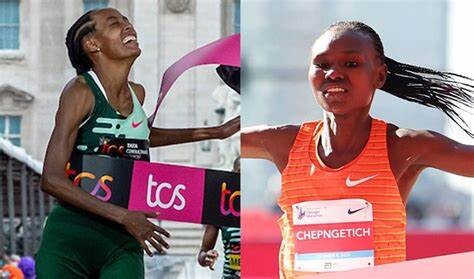
The former Chicago Marathon champion is currently the third fastest marathoner in the world with her time of 2:13:44 that she set at the 2023 edition of the event.
Chepng’etich is the fastest marathoner in the world, having the world record time of 2:09:56. Ethiopia’s Tigst Assefa is second with a time of 2:11:53 that she set at the 2023 Berlin Marathon. Sifan is training hard and she hopes that at some point, she will be able to achieve that milestone.
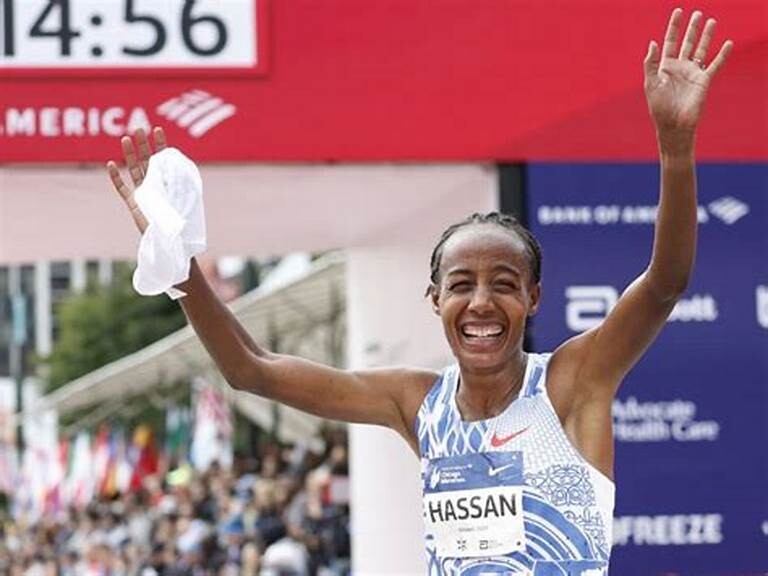
“Maybe, it takes me longer to work hard to achieve it (sub 2:10 marathon) but Ruth Chepng’etich has shown me it’s possible. We will now try and hit the thing,” Sifan said.
"I want to see how far females can go, to see what is inside me and what I can do."
Sifan made her full marathon debut at the 2023 Chicago Marathon where she stunned a strong field which had defending champion Ruth Chepng’etich to take the win.
She was fresh from competing at the 2022 World Championships where she took bronze in the 1500m and silver in the 5000m. in the 10,000m Sifan finished 11th.
In 2024, she experienced one of the most successful seasons, starting out with a fourth-place finish at the Tokyo Marathon before she began preparations for the Paris Olympic Games. At the Olympic Games, she finished third in both the 5000m and 10,000m.
Sifan Hassan rounded up her season with a win in the women’s Olympic marathon. She was honored by World Athletics following her successful season, winning the women’s out of stadium category before being named as women’s World Athlete of the Year.
by Abigael Wafula
Login to leave a comment
London marathon champion eyes season-ending glory in Thailand
The 2024 London Marathon champion Alexander Munyao is hoping to cap off his season with an emphatic victory as he takes on the Bangsaen Half Marathon in Thai- land this Sunday.
After a mixed year on the global stage, Munyao is determined to secure victory and build momentum for a demanding 2025 season.
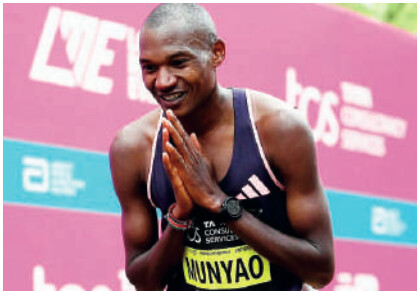
“I am targeting a win in Thailand to close my season on a high note. This will motivate me for the busy 2025 calendar,” Munyao said.
For the 28-year-old, success in Thailand would provide a much-needed confidence boost, especially after finishing a disappointing 21st at the Paris Olympics with a time of 2:10:31.
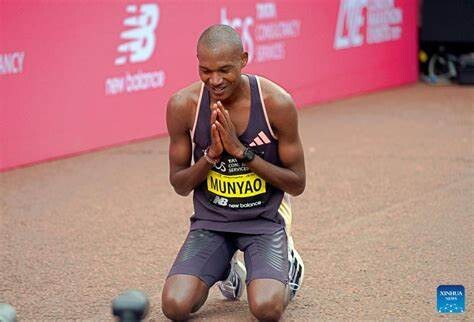
However, Munyao remains wary of the tropical heat that awaits in Thailand, acknowledging it as a critical factor in his race strategy.
“The heat will be a big challenge on race day, with temperatures ranging from 23 to 30 degrees. I am not focused on clocking a fast time, as my goal is purely to win,” he emphasized.
Munyao admits his preparations for the race have been less than ideal, citing limited training time after competing in Japan’s 12 NIT- TAIDAI Challenge Games, where he clocked a 27:42.04 for a runner-up finish in the 10,000m in October.
“My training has been average since I competed in Japan. But I believe the work I have put in will suffice. I will do some light training before Sunday’s race,” he said.
Despite his confidence, he is mindful of the formidable competition.
“I expect tough opposition—it won’t be an easy race. But I’m confident I can pull off a win,” he said.
Munyao carries an impressive half-marathon record into the race, including victories at the 2020 Santa Pola Half Marathon ( 59:09 ) and the 2023 Kagawa Half Marathon ( 59:17 ).
He holds runners-up finishes at the 2020 Ras Al Khaimah ( 59:16 ) and 2021 Adizero Road to Records ( 59:20 ) Half Marathons.
In the women’s race, a titanic battle looms as 2023 Tokyo Marathon champion Rosemary Wanjiru faces off against Ethiopia’s Tigst Assefa, the 2024 Olympic marathon silver medalist.
The two are no strangers to each other’s tactics having clashed at the 2022 Berlin Marathon, where Assefa stormed to victory in a course record of 2:15:37, leaving Wanjiru in second with 2:18:00.
Wanjiru’s road credentials are stellar, highlighted by her 2023 Tokyo Marathon triumph in 2:16:28 and a runner-up finish in 2024, clocking 2:16:14 behind Ethiopia’s Sutume Kebede ( 2:15:55 ).
Meanwhile, Assefa holds back-to-back victories in the Berlin Marathon 2022 ( 2:15:37 ) and 2023 ( 2:11:53 ), as well as runners-up finish at the 2024 London Marathon ( 2:16:23 ).
Joining the fray, is the 2023 Tokyo Legacy Half Marathon champion Gladys Chepkurui, add- ing depth to a star-studded field.
by Teddy Mulei
Login to leave a comment
Bangsaen 21
We woud like to invite all kind of runners from all over the world to join us in the firts an only half marathon "World Athletics Elite Label" Award in Thailand. Bangsaen 21 Half Marathon, ASIA´S best Half Marathon. A single race of Half Marathon distance, experience the most beautiful and challege course along the unique Bangsaen Beach....
more...'Shelly-Ann Fraser-Pryce motivates me' - When Ruth Chepng’etich opened up about her inspiration & family sacrifices
Ruth Chepng’etich once stated that Shelly Ann Fraser-Pryce inspired her journey, reflecting her motivations and record-breaking marathon achievements.
New women’s marathon record holder Ruth Chepng’etich has long been one of the most dominant forces in long-distance running.
From clinching the World Championship in 2019 to winning gold at the 2021 and 2022 Chicago Marathons, the Kenyan runner has proven her mettle time and again on the global stage.
Earlier this year, in an exclusive interview with Athletics Weekly, Chepng’etich opened up about her admiration for Jamaican sprinting legend Shelly Ann Fraser-Pryce.
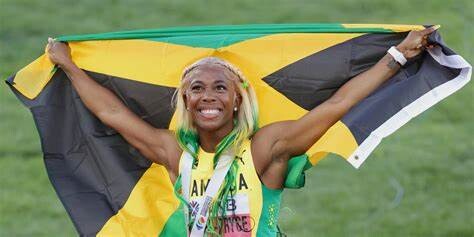
“Shelly Ann (Fraser-Pryce), she motivates me, inspires me, to do a lot. Shelly Ann, I think she started a long time ago, before me, so I'm following (in) her footsteps. Like her, I want to run for long, run smart, and fall and get up,” Chepng’etich shared.
Fraser-Pryce, widely regarded as one of the greatest sprinters of all time, has not only inspired Chepng’etich’s approach to competition but has also served as a role model for longevity in athletics.
Chepng’etich expressed a desire to emulate the sprinter's perseverance and adaptability, striving to push boundaries in her own discipline of marathon running.
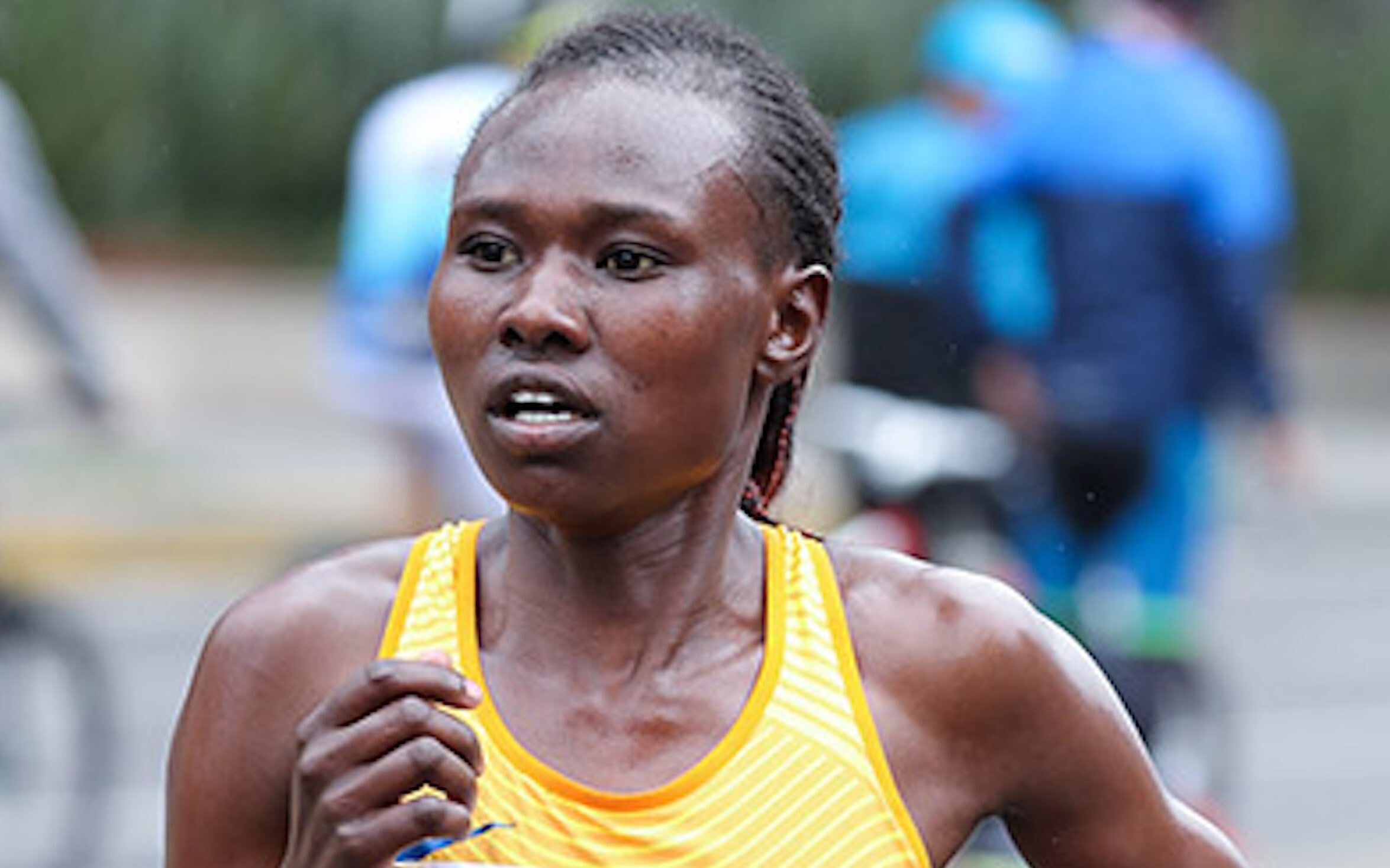
The Kenyan champion also credited her family as a source of motivation, particularly her daughter.
“I think about my daughter, I am pushing so much because of my daughter. My daughter is motivating me to work harder. I have to work hard for her to study. Mothers have a lot to do, so it is not easy. Our children are motivating us to work harder. We want to show them the way in how life goes,” she added.
Chepng’etich’s remarkable journey reached new heights at this year’s Chicago Marathon, where she set a jaw-dropping world record time of 2:09:56, becoming the first woman ever to run a marathon in under 2 hours and 10 minutes.
Her incredible performance not only shattered the previous record of 2:11:53 held by Tigst Assefa but also firmly established her as one of the greatest marathon runners in history.
Reflecting on her world-record performance, Chepng’etich expressed both pride and a sense of accomplishment.
“I feel so great, I'm proud of myself. This is my dream that has come true. I've fought a lot, thinking about the world record, and I have fulfilled it,” she said after the race.
She attributed her success to meticulous preparation, favorable weather, and unwavering determination.
Chepng’etich dedicated her record-breaking run to the late Kelvin Kiptum, a fellow Kenyan marathoner who set a men's world record at the Chicago Marathon last year.
“The world record has come back to Kenya, and I dedicate this world record to Kelvin Kiptum,” she said.
Her achievement is awaiting ratification by World Athletics, but it has already resonated worldwide as a testament to the indomitable spirit of Kenyan runners.
Chepng’etich’s feat not only cements her legacy but also reinforces Kenya's stature as a powerhouse in distance running.
Her admiration for Fraser-Pryce and the motivation she draws from her daughter underscore her commitment to excellence both on and off the track.
by Festus Chuma
Login to leave a comment
Valencia marathon participants promised millions if they break Kelvin Kiptum's record
The 2024 Valencia marathon will take place this weekend as runners return to one of the fastest courses in the world.
It is in Valencia that the late Kelvin Kiptum introduced himself to the world by running the fastest-ever time clocked by a debutant after he used 2:01:53 in 2022.
Valencia Marathon 2024 start list
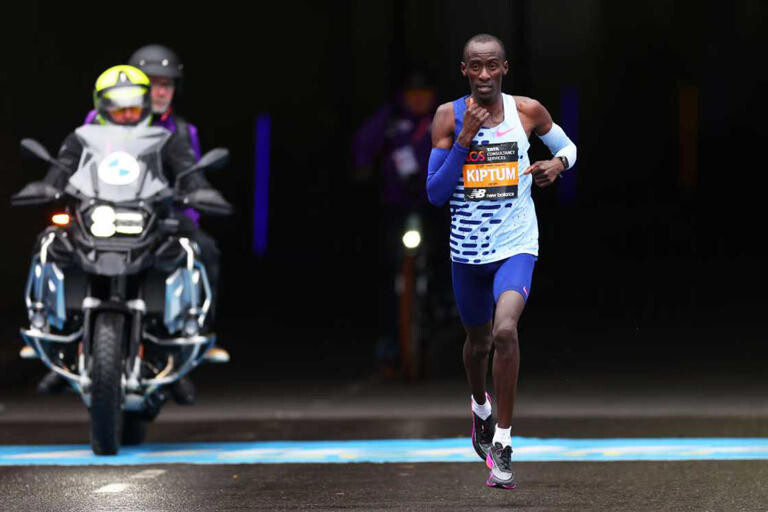
This year, 2023 champion Sisay Lemma will headline the stacked list. The Ethiopian will be looking to win a second marathon this year after winning in Boston in March.
His time of 2:01:48 to win in Valencia last year is the sixth-fastest time in history, making him an overwhelming favorite on Sunday.
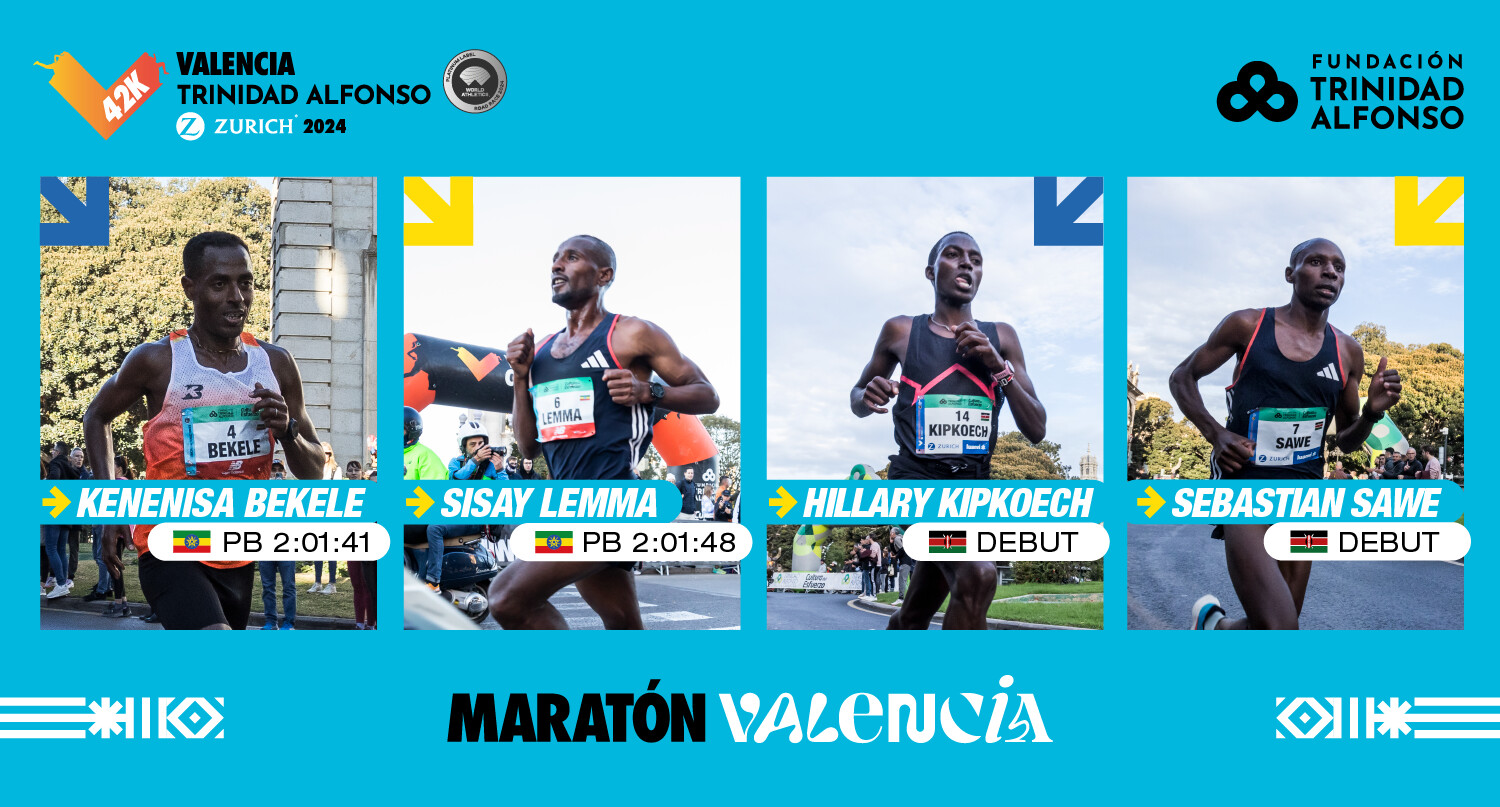
Kenenisa Bekele will also be part of the start list. Bekele is the third-fastest marathoner in history. The 42-year-old finished a distant 39th at the 2024 Paris Olympics, and redemption will be on his mind.
Others include world half marathon champion Sebastian Sawe and two-time Tokyo marathon winner Birhanu Legese.
The organizers have made the race sweeter by introducing a raft of monetary awards if certain records are broken.
Valencia Marathon 2024 prize money
Athletes who break the course record of 2:01:48 (men's) and 2:14:58 (women's) will win €30,000 (approximately 4 million Kenya shillings).
Meanwhile, athletes who break the men's and women's marathon world records will get a whooping €1,000,000 (approximately 135 million Kenya shillings).
What is the men's marathon world record?
The late Kiptum is the current world record holder. He clocked 2:00:35 to win the 2023 Chicago Marathon.
The website indicates that the women's time the participants need to beat is 2:11:53 despite Ruth Chepng'etich lowering it to 2:09:56 last month in Chicago. Chepng'etich's record is, however, yet to be ratified by World Athletics.
The 2:11:53 mentioned therein is the former world record set by Ethiopian Tigst Assefa. Evaline Chirchir is the only Kenyan registered in the women's race.
by Richard Nutakor
Login to leave a comment
VALENCIA TRINIDAD ALFONSO
The Trinidad Alfonso EDP Valencia Marathon is held annually in the historic city of Valencia which, with its entirely flat circuit and perfect November temperature, averaging between 12-17 degrees, represents the ideal setting for hosting such a long-distance sporting challenge. This, coupled with the most incomparable of settings, makes the Valencia Marathon, Valencia, one of the most important events in...
more...The Evolution of Marathon Running: A Kenyan Perspective
I can still vividly remember when 2:08:32 in the marathon seemed like an unbreakable barrier. Derek Clayton of Australia set this world record back in 1969 at the Antwerp Marathon—a time so remarkable that it stood for nearly 12 years. Now, hundreds of runners have far surpassed that mark. Today, running a sub-2:05 marathon has become almost routine, particularly for athletes from Africa.
On the women’s side, the achievements are just as groundbreaking. Ruth Chepngetich of Kenya recently made history at the 2024 Chicago Marathon by breaking the 2:10 barrier, finishing in a stunning 2:09:56. While this remarkable time is still awaiting ratification, it is set to redefine the boundaries of women’s marathon running. This performance follows the previous world record of 2:11:53, set by Tigst Assefa of Ethiopia at the 2023 Berlin Marathon. These times show just how far women’s marathon performances have progressed in recent years.
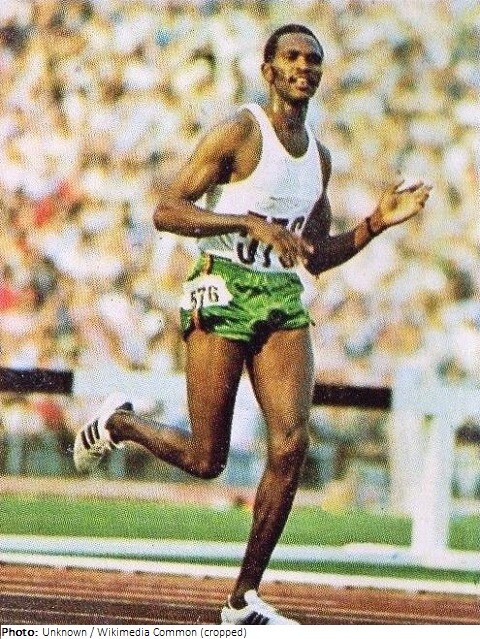
While advancements like “magic” shoes have undoubtedly played a role in these extraordinary performances, it’s important to note that better pacing by other professional runners, now a standard practice, has also made a significant difference. These pacesetters help keep athletes on target through much of the race, ensuring consistency and reducing mental strain. However, the story of record-breaking runs runs much deeper than technology and pacing strategies.
In Kenya alone, there are at least 80,000 distance runners who dream of nothing else but becoming professional athletes. For them, running isn’t just a passion—it’s a path to success and stability.
At the Kenyan Athletics Training Academy (KATA), the training camp I established in Thika, Kenya, we house, feed, and train aspiring athletes. I Each week, I receive messages from 10 or more runners hoping to join our program. For these athletes, running is not a hobby or a pastime. It’s a career aspiration, with the ultimate goal of winning races and securing prize money. They love running, but make no mistake—their drive is fueled by the potential to achieve financial security and support their families.
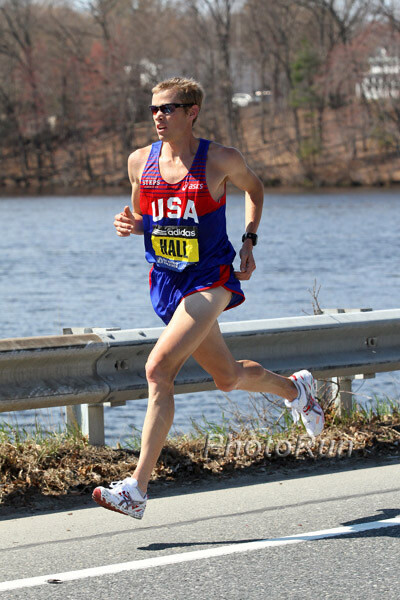
Contrast this with the United States, where very few runners train with the sole focus of becoming professional athletes. Instead, many children grow up dreaming of careers in sports like baseball, basketball, football, or, more recently, soccer. The talent pool for these sports is massive, and from this base, the superstars emerge.
That said, American marathoners have delivered incredible performances. Ryan Hall’s 2:04:58 at the 2011 Boston Marathon remains a monumental achievement, showcasing what U.S. athletes are capable of on a favorable course. On the women’s side, runners like Keira D’Amato (2:19:12) and Emily Sisson (2:18:29, an American record) are setting new benchmarks, proving that the U.S. can compete at the highest levels.
In the U.S., running is often a lifestyle choice rather than a career ambition. Recreational and “fun” runners dominate the scene, which has its benefits—contributing to a higher average life expectancy (76 years in the U.S. compared to 63 in Kenya). In Kenya, it’s rare to see runners over 40 years old out training. The focus there is on younger athletes whose primary goal is to make a living through running.
For many in Kenya, running is the equivalent of pursuing a high-paying job in other fields. This mentality dates back to pioneers like Kip Keino, who opened the door for countless Kenyan athletes to achieve global success. His legacy inspired generations, and today, Kenyan runners—both men and women—continue to push the limits of human potential.
As marathon times keep dropping and prize money continues to grow, I believe we’ll see even faster performances from both men and women—especially in Africa, where running is deeply ingrained as a pathway to opportunity.
by Bob Anderson
Login to leave a comment
MARATHON GROUNDBREAKERS
Since Australia’s Derek Clayton ran history’s first sub—2:10 marathon in Fukuoka, Japan, on 3 December 1967, there have been a total of 4538 sub—2:10 marathons (as of 30 October 2024), 4537 by men, one by a woman.
As with any new ground-breaking performance, Ruth Chepngetich’s 2:09:56 in Chicago on 13 October has forced us to reassess all our past assumptions, or, like many, to doubt the validity of the performance itself. But no matter how we got here, to whatever you want to ascribe it, this is where we are now, 2:09:56 by a woman.
In this new reality, until proven otherwise, Ruth Chepngetich is the new Paula Radcliffe, just as Paula was the new Grete Waitz, one ground-breaker to the next, 1978 to 2003 to 2024.
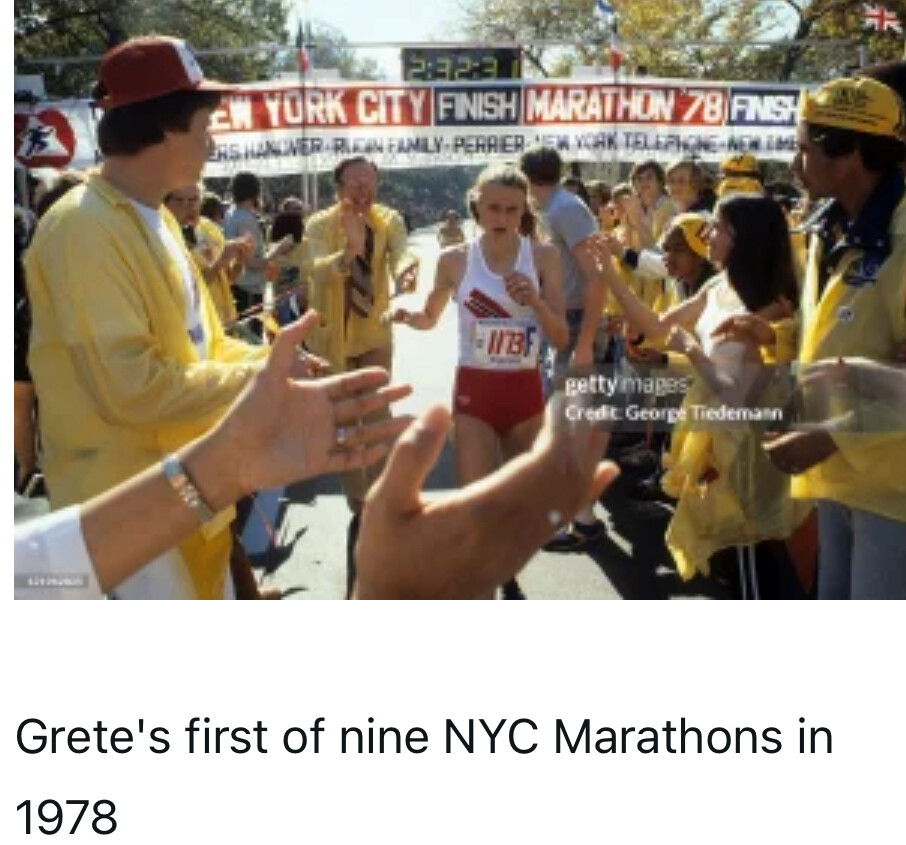
There have been many talented women champions through the years besides those three, including all the pioneers who had to overcome centuries of gender bias that restricted women from even showing their stuff.
But in terms of pure ground-breaking, the 1978 New York City Marathon drew a bright line between what once was and what would be.
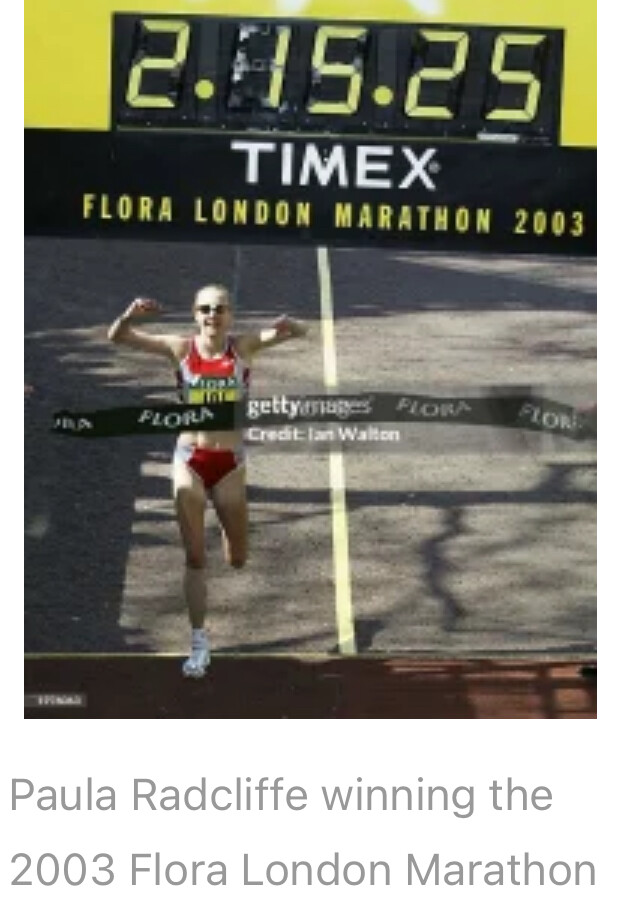
On 22 October 1978, Norway’s track and cross-country star Grete Waitz participated in the marathon for the first time, almost on a whim, as the trip was more of a honeymoon for her and husband Jack after the long track season.
The 2:32:30 world record Grete ran that day was totally unexpected by both the public and Grete herself. She wore bib #1173, wasn’t included on the list of elite women, and came with no specific marathon preparation (not a single run over 13 miles). In fact, she was so upset with husband, Jack, for suggesting she come run the marathon that she threw her shoes at him in the hotel room following her victory.
Still, like almost all debuting marathoners, after a short period of recovery and reflection, Grete concluded she could probably improve next time.
Thus, in New York 1979, following a more careful preparation, Grete ripped nearly five full minutes off her 1978 mark to record history’s first sub—2:30 by a woman at 2:27:33. Her margin of victory over England’s Gillian Adams was 11 minutes (2:38:33). The combination of the mild-mannered former geography teacher from Oslo and the raucous New York City crowds proved transformative, elevating women’s running to heights previously unimagined.
Though Japan’s Naoko Takahashi broke the 2:20 barrier for women in Berlin 2001, after Norway’s Ingrid Kristiansen (2:21:15, London ‘85), America’s Joan Benoit Samuelson (2:21:21, Chicago’85), and Kenyan Tegla Loroupe (2:20:43, Berlin ‘99) all challenged the barrier in the 1980s and ‘90s, it was England’s Paula Radcliffe who established new headlands in the marathon in London 2003 with her 2:15:25.
Nearly two minutes faster than her own 2:17:18 record from Chicago the year before, her 2:15 arced away from Catherine Ndereba’s 2:18:47 from Chicago 2001, completed just one week after Takahashi’s first sub-2:20 in Berlin.
The quality of Paula’s 2:15 can be seen in the 16 years and an entire shoe technology revolution that developed before Kenya’s Brigid Kosgei did Paula one better in Chicago 2019 at 2:14:04. That performance plowed new ground again. And now we have Ruth Chepngetich in Chicago 2024 with history’s first sub-2:10, just a year after Ethiopia’s Tigst Assefa’s first sub—2:12 in Berlin `23 (2:11:53).
Twice before, Chepngetich had come to Chicago with world record intentions. In 2022, she won the race in 2:14:18, just 14 seconds off Kosgei’s record. In 2023 she finished second in 2:15:37. On both occasions she flew through halfway under 66 minutes, only to falter in the second half. Perhaps she was a close reader of Malcolm X.
“There is no better teacher than adversity. Every defeat, every heartbreak, every loss, contains its own seed, its own lesson on how to improve your performance the next time.” – Malcolm x
In simple terms, making innovative strides in athletics requires time, experimentation, and reviewing, similar to how new scientific theories are examined before full acceptance. But women just haven’t been at the marathon game long enough to produce a large enough sample size to define their outer limits with any accuracy. They are barely two generations in since 1978.
Men have been competing for a much longer time with a much larger sample size.
Though Eliud Kipchoge surpassed the two-hour barrier in Vienna in 2019, that was accomplished as an exhibition, not a sanctioned race. In that sense, we are still awaiting the next barrier breaker on the men’s side in the Marathon.
Looking back, England’s Jim Peters stands as the first modern barrier breaker with his 2:18:40 win at the 1953 Polytechnic Marathon between Windsor and Chiswick in West London, England, history’s first sub—2:20.
Next was Ethiopia’s Abebe Bikila, the legendary double Olympic victor in Rome 1960 and Tokyo 1964. His 2:15:17 in Rome still stands as the barefoot marathon world record.
Next came Australia’s Derek Clayton, the first man under both 2:10 and 2:09. His 2:08:34 from Antwerp 1969 lasted for 12 years, holding off challenges throughout the entire Running Boom era headed by Americans Frank Shorter and Bill Rodgers.
Though never world record holders, the two Americans dominated the 1970s boom era, Shorter through the first half, Rodgers the second.
The Eighties were the last decade of international marathon champions: American (Al Salazar, Greg Meyer); European (Steve Jones, Carlos Lopes); Japanese (Toshihiko Seko and the Soh brothers); and Australian (Rob de Castella). Kenya’s Joe Nzau won Chicago in 1983 in a thrilling duel with England’s Hugh Jones when Chi-town was still developing its reputation as a world class event.
Ibrahim Hussein set new records in Honolulu and kick-started the Kenyan marathon revolution
The full East African deluge didn’t begin until 1987 and ‘88 when Kenya’s Ibrahim Hussein (already a two-time and soon to be three-time Honolulu Marathon champion) became Africa’s first New York City and Boston Marathon winner and Ethiopia’s Belayneh Dinsamo set the world record, 2:06:50, in Rotterdam 1988 that lasted over a decade.
The list of marathon stars from other nations scaled back markedly in the 1990s. Mexico had its turn at the top via greats like Dionicio Cerón (1994-`96 London champion), and back-to-back New York Ciy winner German Silva (1994 & 1995).
Moroccan-born American Khalid Khannouchi twice ran a world marathon record, first in Chicago 1999 (2:05:42), then three years later in London 2002 (2:05:38). And who could forget the personable Brazilian, Marílson Gomes dos Santos, who won New York City twice in 2006 & 2008, or Meb in NYC `09 and Boston 2014??
But the United Nations pickings get rather meager after that as East African athletes have had a stranglehold on the sport of marathoning, most dominatingly by Kenya’s Eliud Kipchoge. His run of sustained excellence over 42.2 kilometers was, and is, unprecedented in its longevity, including double gold in Rio 2016 and London 2020. And his last world record of 2:01:09 in Berlin 2022.
Sadly, the current record holder, Kelvin Kiptum, died in a car accident in February 2024 after establishing the 2:00:35 world record in Chicago 2023.
With the 2024 TCS New York City Marathon scheduled this weekend, we don’t expect to see any record performances. Yet, all the above is why we follow the game, isn’t it, to witness the arc of improvement over time, while hoping to discover a new name to remember? It’s as valid a focus as any other in this life.
And despite its many flaws and corruptions, the sport of marathoning retains an innate dignity that many endeavors do not. People may have bruised, battered, and tarnished it in the name of glory and money. But it survives, nonetheless, as a simple reflection of the human drive to achieve more in the quest to discover our best.
Doesn’t always turn out that way, but I don’t think we are done with it quite yet. Onward!
by Toni Reavis
Login to leave a comment
WHAT THE NUMBERS SAY (ABOUT WOMEN’S MARATHOING)
I am a numbers’ guy. I’ve always been a numbers’ guy. I always want to see what the numbers tell me before I opine from an emotional standpoint.
Accordingly, I did a deep dive into the last five women to hold the marathon world record going back to Kenyan Catherine “The Great” Ndereba, in 2001. What I found was a changing world order.
Catherine Ndereba was the last of the old school road racers who then progressed to the marathon. Catherine came to compete on the U.S. road tour beginning in 1995, but really began winning convincingly in 1996 at age 24, winning four times in New York City; Spokane, Washington; Utica, NY; Flint, Michigan; and Philadelphia, Pa.
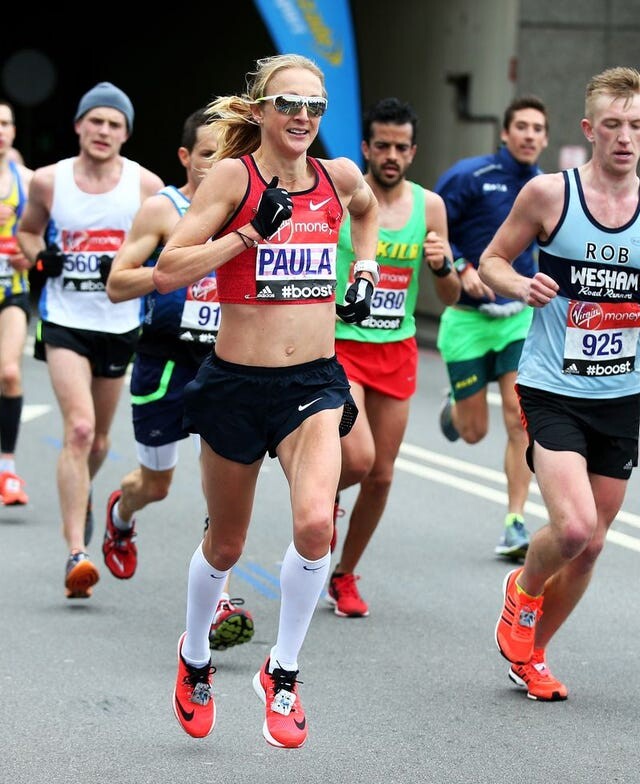
In 1999, she made her marathon debut in Boston, running to eighth place in 2:28:26. Later that fall, she finished second in New York City in 2:27:34. But she also had eight wins on the road circuit when you could still make money there and the marathon wasn’t yet as lucrative as it is today.
The following year, 2000, Catherine won her first Boston and Chicago Marathons, with another eight wins on the road circuit. She won Boston again in 2001 in 2:22:53, then set her world record in Chicago in the fall in her sixth career marathon, running 2:18:47, with another eight wins on the roads. Catherine was 29 when she ran her record and set her personal best by 2:46 seconds.
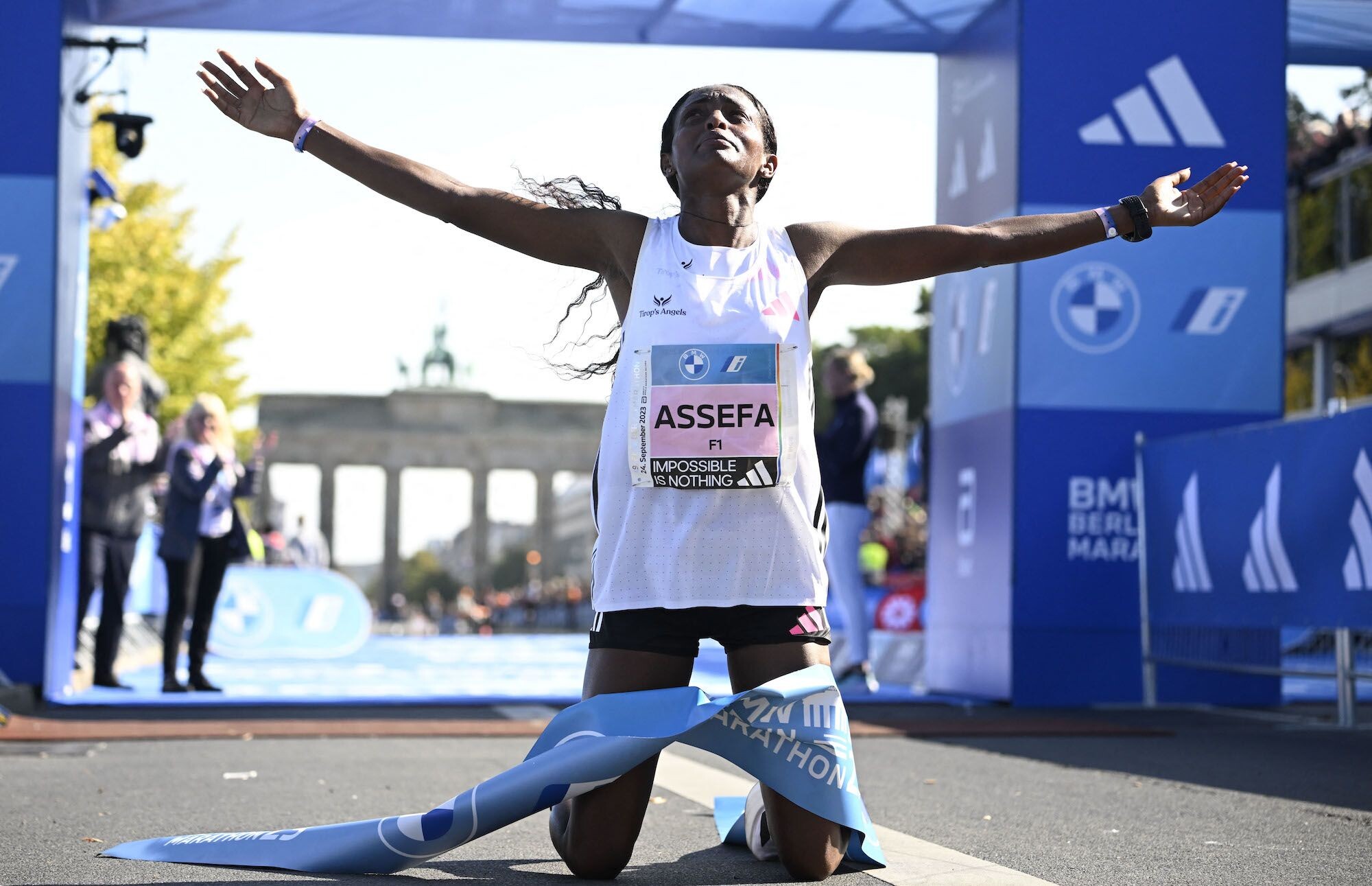
In all, she ran 23 marathons, finished 23, won 8.
Great Britain’s Paul Radcliffe broke Catherine‘s world record one year later in Chicago 2002 (2:17:18) then smashed her own record one year later in London (2:15:25), a record that would last 16 years, by far the longest standing women’s marathon world record in history. Before that, Paula had run her debut in the spring of 2002 in London, at age 28, winnng in 2:18:56, a debut record.
In all, Paula started 13 marathons, finished 12, won 8. She, like Catherine, was age 29 when she set her final record at 2:15:25.
But Paula had a long, distinguished career in cross country and track going all the way back to 1992 when won the IAAF World Cross Country U20 championship in snowy Boston before finishing fourth in the World Junior Championships in the 3000m, a circumstance that would repeat itself over the years until she moved up in distance.
Paula ran fifth at the 1996 Olympic 5000m final in Atlanta. Then fourth in the 1997 World Championships 5000 in Athens; second in the WC 10,000m in Seville; and fourth again in the 2000 Olympic 10,000 in Sydney. She just couldn’t finish the last 200-300m with the East Africans like Derartu Tulu and Gete Wami to nab gold.
She entered her first marathon in London 2002 after showing her ability at the half marathon, winning at the Great North Run and the World Half Marathon Championships in Vera Cruz in 2000, and again in Bristol in 2001 – though she still ran on the track at 3k, 5k and 10k. From there, it was clear sailing, as the world came to expect Paula’s 2:15:25 to last for a long, long time.
It wasn’t until Brigid Kosgei came along in Chicago 2019, running 2:14:04, that Paula’s mighty record fell. But that was a bit of a stunner, as people didn’t see it coming. That gave even more gravity to the super-shoe era, because Brigid was 25 years old running the ninth of her 17 career marathons when she set her record. It was a personal best by 4:16, very similar to what we saw with Ruth Chepngetich last Sunday in Chicago. Both were deep into their marathon careers before producing their other worldly record performances.
Between Brigid and Ruth came Ethiopia’s Tigst Assefa. She ran her world record of 2:11:53 at age 26 in Berlin in the third of only five career marathons. And that WR was a personal best by 3:44 at age 26.
And now, of course, we have Ruth Chepngetich, whose 2:09:56 in Chicago last Sunday has had heads spinning faster than Linda Blair in the Exorcist.
Ruth has run 15 marathons, finished 13, won 9, while running her world record in her 15th marathon, seven years into her career, setting a PB by 4:22. That last stat is the one people have trouble getting their heads around. You don’t improve that much so late in your career; they say.
But Brigid Kosgei ran her world record in the ninth of 17 career marathons with a personal best by 4:16. So what Ruth did was not unprecedented, though taken from a tiny sample.
The ages when they produced their world records:
Catherine, age 29; Paula, age 28 and 29;Brigid, age 25; Tigst, age 26; Ruth, age 30.
The world is constantly spinning, changing. Catherine Ndereba and Paula Radcliffe came from an old world, not just pre-super shoes, but pre-only focusing on marathons and half marathons.
And with the super shoes and super nutrition and super coaching and super God knows what else, there has been a great stir in the running community. Some refuse to even consider the possibility of these record times. Others say “wait and see if any positive testing follows down the line”, as we have seen many times before. And very few say, “everything‘s on the up and up. There’s nothing here to see other than a great performance.”
That doesn’t leave the sport in a very good place. But guess what? We are kidding ourselves if we think 2:09:56 is going to last very long. Look at Chicago’s women’s splits: 15:00 at 5K = 2:06:46 pace; 45:32 at 15k = 2:08:16 pace; and 64:16 at halfway = 2:08:32 pace. You even out that effort just a little, and you’re looking at sub-2:09! It’s coming. You can count on it. Plus, once one-person shows what’s possible, it inspires many more to try.
Remember, we are still in the first two generations of world-class women’s distance running. We have no idea what their limits may be, notwithstanding all nefariousness that attends the sport these days.
And so the debate continues, even as the sport searches for leadership, which seems to be missing in action. It’s one hell of a Wild West show, isn’t it?
by Tony Reavis
Login to leave a comment
'Give Ruth the respect she deserves!'- Athletics Kenya jumps to Ruth Chepng'etich's defense following doping accusation
Athletics Kenya has defended Ruth Chepngetich after her record-breaking Chicago Marathon win, urging respect and dismissing doping accusations, emphasizing her consistent, hard-earned success.
Athletics Kenya has called for the respect of newly-crowned Chicago Marathon champion Ruth Chepng’etich who is fresh from breaking the marathon world record.
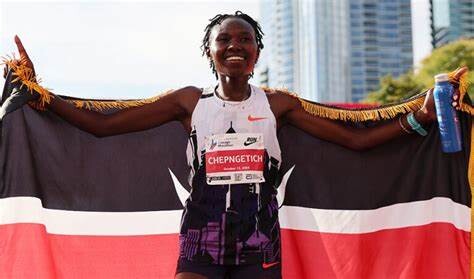
Ruth Chepng’etich clocked an impressive 2:09:56 to win the race at the Chicago Marathon, shattering Tigst Assefa’s previous record of 2:11:53 that she set to win the 2023 Berlin Marathon.
The Kenyan distance sensation ran a solo race to showcase her mastery of the course after winning the 2021 and 2022 editions of the race and finishing second behind Sifan Hassan at the 2023 edition of the event.
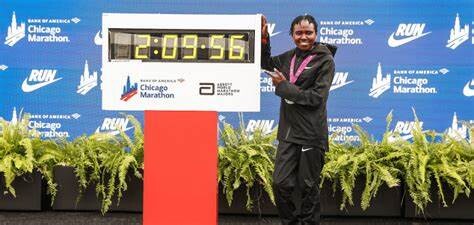
However, rumours have emerged that Ruth Chepng’etich might have doped following her impressive splits and that her world record might not be credible. However, Chepng’etich is one of the most consistent marathoners who has a lot of titles including the world marathon title she won at the 2019 World Championships in Doha, Qatar.
Following a ton of accusations, Athletics Kenya has jumped to her defence, urging the public to allow her to celebrate her huge feat and acknowledge her efforts as one of the most outstanding marathon runners in the world.
In a statement released on Wednesday, Athletics Kenya acknowledged her efforts, noting that she has been extraordinary in her performances for over five years and has joined the exclusive world of world record holders including Faith Kipyegon, Beatrice Chebet and Beatrice Chepkoech.
“In any case, many world records were broken this year, and to single her out is utterly unfair. It is therefore disheartening to witness some sections of the media casting unwarranted doubt on her achievements. Such aspersions, made without due process, undermine not only her efforts but the integrity of the sport,” Athletics Kenya said in a statement.
“We urge the media and the global community to give Ruth the respect she deserves and protect athletes from harassment. Let her celebrate this hard-earned victory and let us acknowledge the years of hard work and discipline that have brought her to this moment.”
The Kenyan federation was quick to note that every athlete, including Ruth Chepng’etich, underwent the required anti-doping tests and defended her performance on the global stage.
Login to leave a comment
Bank of America Chicago
Running the Bank of America Chicago Marathon is the pinnacle of achievement for elite athletes and everyday runners alike. On race day, runners from all 50 states and more than 100 countries will set out to accomplish a personal dream by reaching the finish line in Grant Park. The Bank of America Chicago Marathon is known for its flat and...
more...Top five fastest women marathoners in the world
Discover the top 5 fastest female marathoners in the world, featuring record-breaking athletes from Kenya and Ethiopia who continue to redefine the sport.
Kenya and Ethiopia, long-standing powerhouses in long-distance running, are known for producing some of the greatest female marathoners of all time, consistently setting new records and redefining athletic excellence.
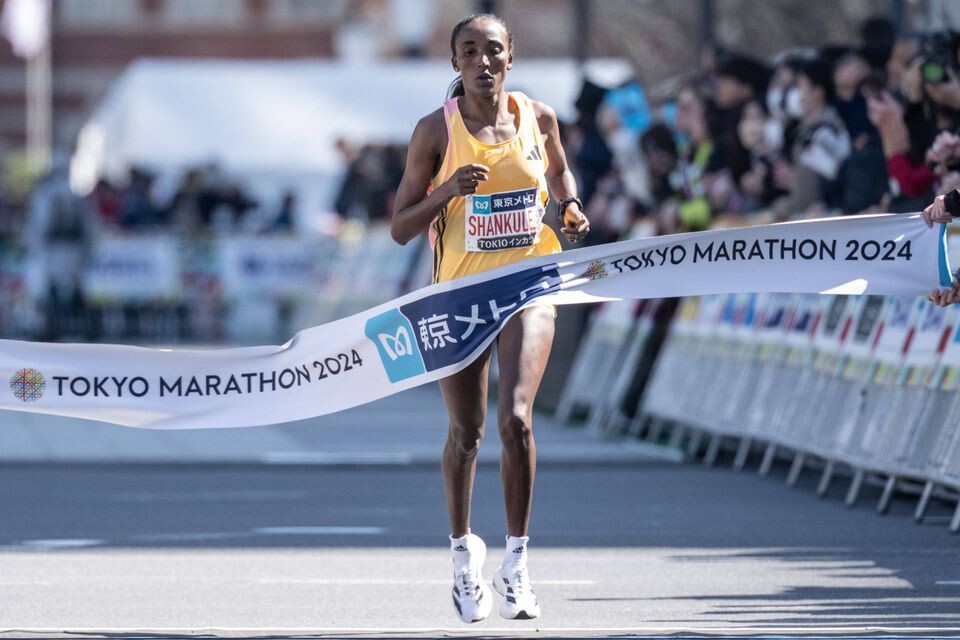
Athletes such as Ruth Chepngetich of Kenya and Tigst Assefa of Ethiopia have not only dominated the marathon world but have also broken significant barriers with their remarkable times.
The competitive landscape of the World Marathon Majors (WMM) — including iconic races like the Berlin Marathon, Chicago Marathon, and London Marathon — has seen historic performances from these and other top runners.
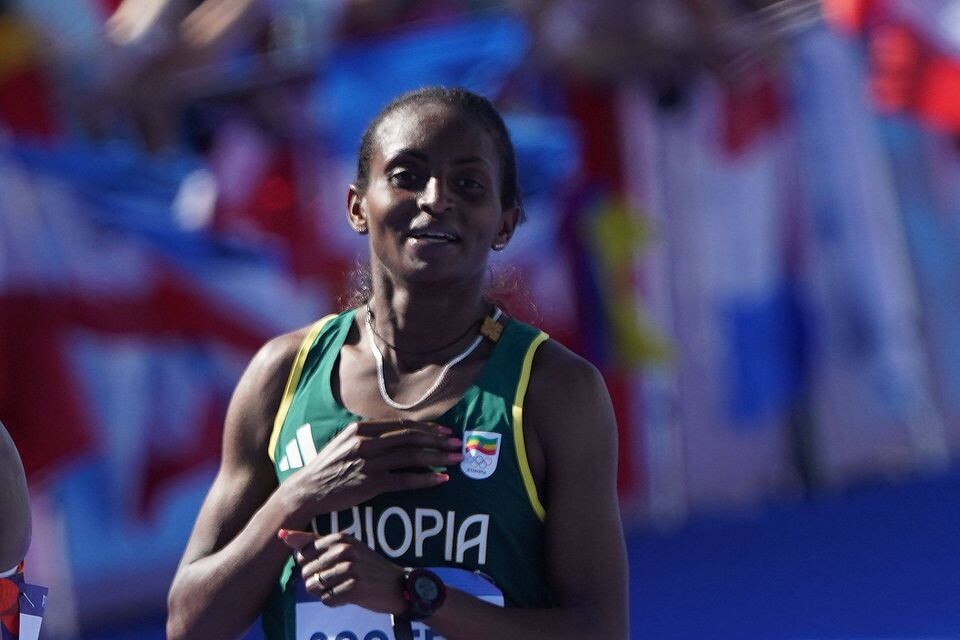
In this article, we review the top 5 fastest female marathoners in the world, analyzing their breakthrough races, their contributions to the sport, and how they continue to inspire future generations of athletes.
5. Amane Beriso Shankule (Ethiopia) – 2:14:58
Rounding out the top 5 is Amane Beriso Shankule of Ethiopia, whose incredible performance at the 2022 Valencia Marathon earned her a place among the fastest female marathoners. Shankule completed the race in 2:14:58, showcasing her strength and determination in long-distance running.
Although still relatively new to the elite marathon circuit, Shankule’s time places her in an elite group of women who have broken the 2:15 barrier. Ethiopia has long been a dominant force in long-distance running, and Shankule’s success further underscores the depth of talent in the country. Her performance in Valencia will likely serve as a stepping stone to even greater achievements in the future.
4. Brigid Kosgei (Kenya) – 2:14:04
Brigid Kosgei of Kenya is no stranger to marathon success, having made history during the 2019 Chicago Marathon. On October 13, 2019, Kosgei crossed the finish line in 2:14:04, breaking the previous world record and establishing herself as one of the sport’s all-time greats.
Kosgei’s performance in Chicago was groundbreaking, as she broke the world record that had stood for over 16 years. Her run was characterized by her smooth stride and exceptional stamina, which allowed her to dominate the race from start to finish. Her record time remained unbeaten until 2023 when Tigst Assefa surpassed it.
Kosgei’s marathon career has been illustrious, with multiple wins in prestigious events such as the London Marathon. Her success has further cemented Kenya’s reputation as a global leader in marathon running. Although her record was eventually broken, Kosgei’s achievements remain a significant chapter in the history of women’s marathoning.
3. Sifan Hassan (Netherlands) – 2:13:44
In third place is Sifan Hassan, a Dutch athlete known for her incredible versatility. Originally a middle-distance runner, Hassan shocked the world when she ran the 2023 Chicago Marathon in 2:13:44, marking her debut in the marathon with one of the fastest times ever recorded by a woman.
Hassan’s ability to transition from track events to the marathon is nothing short of exceptional. Her success in the 1,500m, 5,000m, and 10,000m events — where she has multiple Olympic and World Championship titles — clearly translated well to the marathon. Her 2023 performance in Chicago not only placed her among the fastest female marathoners but also demonstrated the potential for athletes to excel across different distances.
Hassan’s achievement has inspired many young runners, especially those who see her as a symbol of athletic versatility. By running one of the fastest marathons on her debut, Hassan proved that success in the marathon does not always require years of specialized training in the event.
2. Tigst Assefa (Ethiopia) – 2:11:53
Second on the list is Ethiopian sensation Tigst Assefa, who delivered a breathtaking performance at the 2023 Berlin Marathon. On September 24, 2023, Assefa finished the race in 2:11:53, setting a new course record and breaking the previous world record for female marathoners at the time. This monumental run placed her firmly among the fastest women in marathon history.
Assefa’s journey to the top has been remarkable. A former middle-distance runner, she transitioned to marathon running with great success, demonstrating her versatility across different distances. Assefa’s victory also highlighted Ethiopia’s dominance in marathon running, adding her name to a long list of world-class Ethiopian athletes who have left their mark on the sport.
With her record-breaking time, Assefa solidified her position as one of the greatest marathoners of all time.
1. Ruth Chepngetich (Kenya) – 2:09:56
Ruth Chepngetich stands as the fastest female marathoner in history, having recently shattered records at the 2024 Chicago Marathon. On October 13, 2024, Chepngetich clocked a stunning time of 2:09:56, becoming the first woman to break the 2:10 barrier. This incredible achievement has cemented her position as the top female marathoner globally.
Known for her aggressive pacing and strong endurance, Chepngetich’s performance in Chicago was nothing short of extraordinary. She had already been a prominent figure in the marathon world, having won the 2019 World Championships Marathon in extreme heat conditions. However, her 2024 run in Chicago redefined what was possible for women in the marathon, establishing her as a trailblazer in the sport.
Chepngetich’s ability to push boundaries continues to inspire countless female athletes, especially those from Kenya, where marathon running has become a symbol of national pride. Her record-breaking marathon will undoubtedly remain a benchmark for years to come.
by Festus Chuma
Login to leave a comment
Another look at the new women’s marathon record set in Chicago today
30-year-old Kenyan Ruth Chepngetich destroyed the women’s marathon world record today (13 Oct. 2024) at the 46th Bank of America Chicago Marathon. Her time of 2:09:56 ripped 1:57 from the previous mark set in Berlin 2023 by Ethiopia’s Tigst Assefa (2:11:53).
At this point, the athletics record book feels like it ought to be written in No. 2 Ticonderoga pencil. That’s how fast records fall in this age of technological and nutritional advances. This is especially true at the longer distances where such advancements create greater margins.
Still, Ruth Chepngetich’s new world record stands out as history’s first women’s sub-2:10, and first sub-5:00 per mile pace average. But Tigst Assefa’s 2:11:53 mark set last year in Berlin had us all cradling our heads, as well. That performance cut 2:11 off Brigid Kosgei‘s 2:14:04 record from Chicago 2019, which shattered Paula Radcliffe‘s seemingly impregnable 2:15:25 set in London 2003.
In each case: Radcliffe’s, Kosgei’s, Assefa’s, and now Chepngetich’s record have caused mouths to gape in the immediacy of their efforts. But nothing should surprise us anymore.
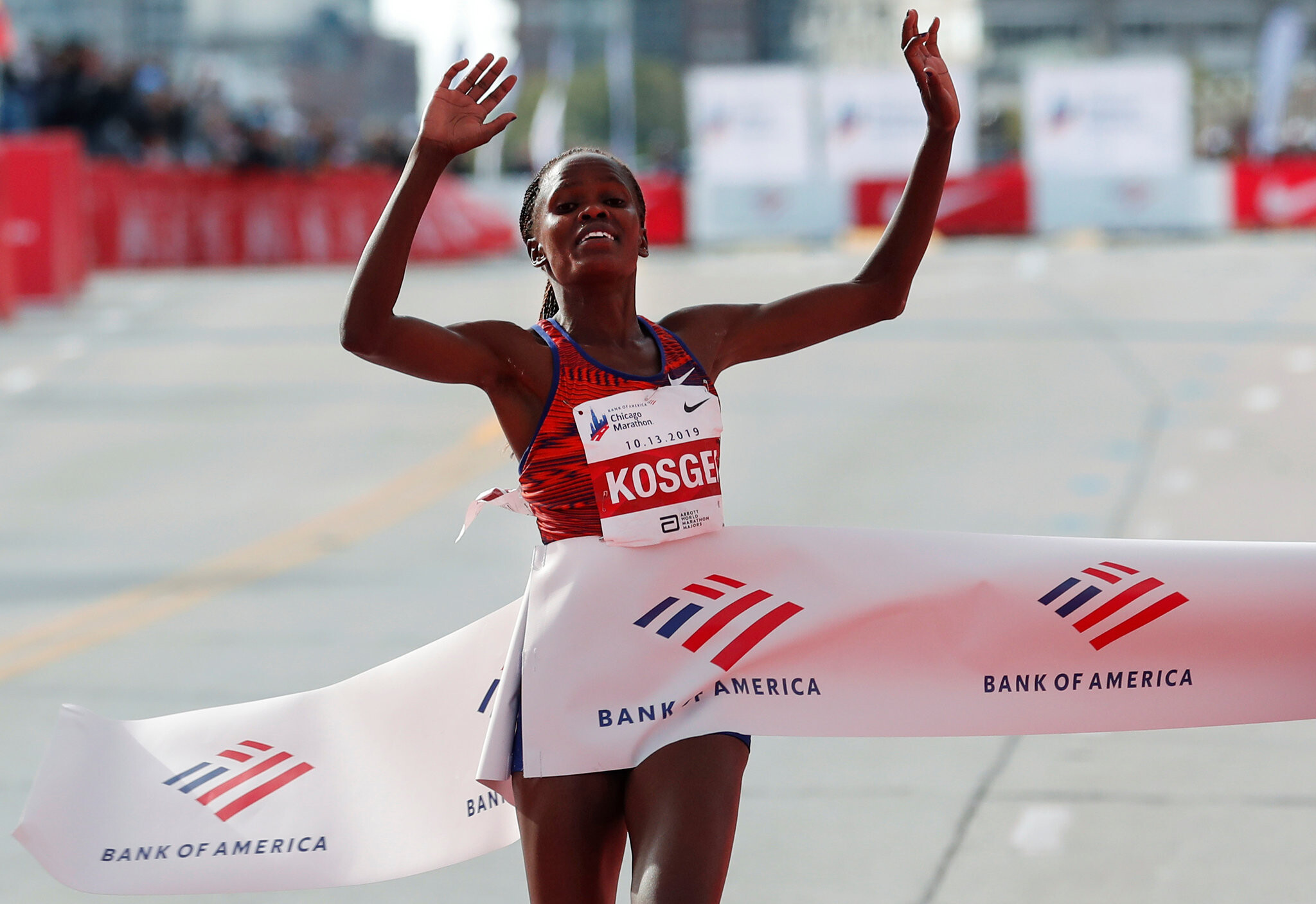
Racing is often a self-fulfilling prophecy determined by one’s build-up. Ruth Chepngetich said in her TV interview she came into Chicago off a perfect three-months of training after her disappointing ninth-place finish in London in April (2:24:36). Two previous wins in the Windy City (2021 and 2022) and a runner-up in 2023 meant Ms. Chepngetich arrived well seasoned on this course, with a keen understanding of what training was required to produce such a record run.
Of course, sadly, no record in athletics can be free of skepticism considering the industrial level of PED use that is uncovered, seemingly, every other Tuesday. Though understandable, cynicism should not be one’s default reaction.
To maintain any allegiance to the game, to follow it with any interest at all, we have to celebrate each record at face value. Just as rabid fans have to acknowledge some records to be ill-gotten, cynics accept that many special runs are exactly as they appear, above reproach.
Besides, when you break down Ruth’s 5k splits, each one from 5k to 35k was slower than the previous 5k. Not until the split from 35k to 40k (15:39) did she run faster than the split before (15:43 from 30 to 35k)
5k – 15:0010k – 30:14 (15:14)15k – 45:32 (15:18)20k – 60:51 (15:19)25k – 1:16:17 (15:26)30k – 1:31:40 (15:32)35k – 1:47:32 (15:43)40k – 2:03:11 (15:39)Fini – 2:09:56
1st half – 64:162nd half – 65:40
So congratulations to Ruth Chepngetich and her team for a marvelous run through a beautiful city. Now, let’s see how long this mark stays on the books before the No. 2 Ticonderoga pencil gets pulled out again.
BY THE NUMBERS
There have been 26 women’s world records set in the marathon since Beth Bonner‘s 2:55:22 in New York City in 1971. Over the ensuing 53 years, the average percentage change from one record to the next has been 1:26%. See WOMEN’S WORLD RECORD PROGRESSION.
Today’s record by Ruth Chepngetich, 2:09:56 (just one second slower than Bill Rodgers‘ American men’s record in Boston 1975!), lowered Tigst Assefa’s 2:11:53 mark by a healthy 1.5%. And Assefa’s time cut Brigid Kosgei’s 2:14:04 by 1.65%.
These latest records are still taking significant chunks off their predecessors and doing so in quick order. That suggests women are far from slicing everything they can from even this new record.
Yet, when comparing the women’s marathon world record to the men’s (2:00:35, set by Kelvin Kiptum in Chicago 2023), we see a differential of 7.2%. That is by far the best women’s record vis-à-vis the men’s throughout the running spectrum. Second place on that list is Florence Griffith-Joyner‘s 10.49 100m in relation to Usain Bolt‘s 9.58, a percentage difference of 8.675%.
The traditional rule of thumb has been a 10% gap between men’s and women’s records. But there are so many factors in play, it is difficult to make any definitive statement that explains one event, much less one athlete from another. I guess that’s why we keep watching.
by Toni Reavis
Login to leave a comment
Bank of America Chicago
Running the Bank of America Chicago Marathon is the pinnacle of achievement for elite athletes and everyday runners alike. On race day, runners from all 50 states and more than 100 countries will set out to accomplish a personal dream by reaching the finish line in Grant Park. The Bank of America Chicago Marathon is known for its flat and...
more...50th BMW Berlin-Marathon Sunday: Deep fields promise fast and exciting races in Berlin’s jubilee marathon
The 50th edition of the BMW Berlin Marathon promises fast and exciting elite races. Deep fields will be assembled with 14 men who have already run sub 2:06:00. While there is no strong favourite among them it is different with the women: Ethiopia’s Tigist Ketema heads the list with her stunning 2:16:07 debut time, which makes her the ninth-fastest marathon runner ever.
Ten more women have personal bests of sub 2:22:00. Thirteen world records were broken in the history of the BMW Berlin Marathon, many more than in any other marathon. The jubilee edition of Germany’s most spectacular road race will have a record number of around 50,000 participants.
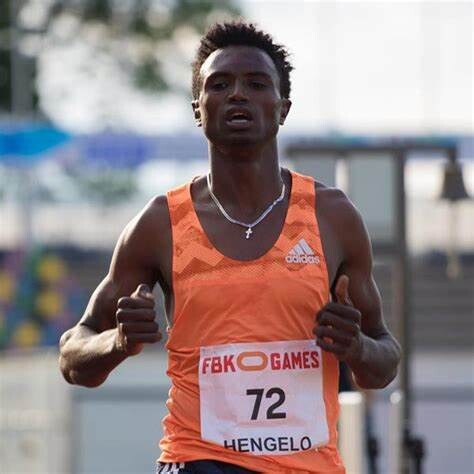
Men’s field
Without Kenya’s superstar Eliud Kipchoge, the winner of the past two editions, the fastest on paper is Tadese Takele. The Ethiopian was third in Berlin a year ago when he improved to 2:03:24. Since another fast race is expected Takele will probably have to run quicker to be in contention for the prestigious marathon victory at the Brandenburg Gate.
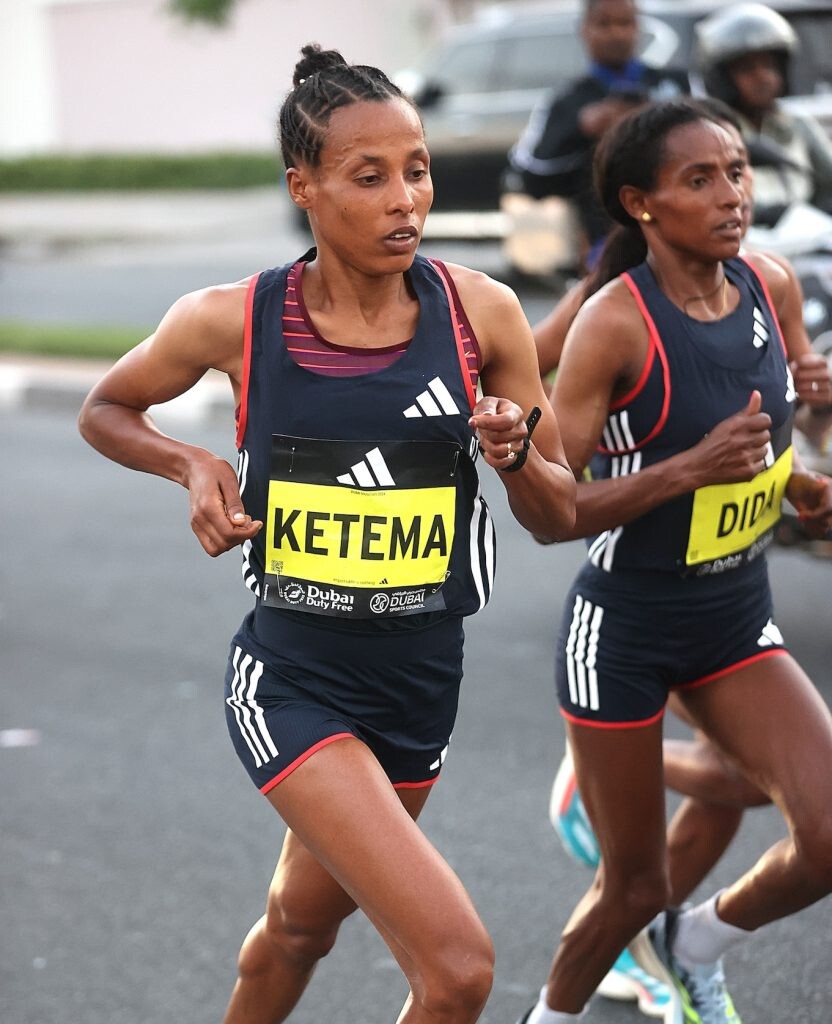
Fellow Kenyan Kibiwott Kandie could well challenge for his first triumph over the classic distance. The Kenyan is the former world half marathon record holder (57:32) with great potential. Germany’s Hendrik Pfeiffer leads a group of strong domestic runners. He improved to 2:07:14 early this year in Houston.
Women’s field
Tigist Ketema stormed to a sensational victory in Dubai at the beginning of the year, clocking an unofficial world debut record of 2:16:07. Coming to another very fast course now the training partner of Tigst Assefa, who smashed the world record here with 2:11:53 a year ago, might look to improve her personal best.
The women’s field includes a former world record holder as well, but at a much shorter distance: Genzebe Dibaba ran 3:50.07 in the 1,500m in 2015. When she switched to the marathon she ran a fast debut with 2:18:05 in Amsterdam two years ago.
Unfortunately, Kenya’s Rosemary Wanjiru had to cancel her start due to injury. But Germany’s Melat Kejeta is a late addition to the field. She dropped out of the Olympic Marathon early because of stomach problems and now hopes to bounce back in Berlin with a personal best. Kejeta might well try to become the second German woman after Irina Mikitenko (2:19:19 in Berlin in 2008) to break 2:20:00.
MEN
Tadese Takele ETH 2:03:24
Cybrian Kotut KEN 2:04:34
Hailemaryam Kiros ETH 2:04:41
Kibiwott Kandie KEN 2:04:48
Bazezew Asmare ETH 2:04:57
Samwel Mailu KEN 2:05:08
Milkesa Mengesha ETH 2:05:29
Haymanot Alew ETH 2:05:30
Philimon Kipchumba KEN 2:05:35
Josphat Boit KEN 2:05:42
Dejene Megersa ETH 2:05:42
Enock Onchari KEN 2:05:47
Oqbe Ruesom ERI 2:05:51
Justus Kangogo KEN 2:05:57
Haimro Alame ISR 2:06:04
Ashenafi Moges ETH 2:06:12
Asbel Rutto KEN 2:07:04
Samuel Tsegay SWE 2:06:53
Yohei Ikeda JPN 2:06:53
Stephen Kiprop KEN 2:07:04
Hendrik Pfeiffer GER 2:07:14
Kento Kikutani JPN 2:07:26
Melaku Belachew ETH 2:07:28
Godadaw Belachew ISR 2:07:45
Yuhei Urano JPN 2:07:52
Guojian Dong CHN 2:08:12
Filimon Abraham GER 2:08:22
Haftom Welday GER 2:08:24
Sebastian Hendel GER 2:08:51
Olonbayar Jamsran MGL 2:08:58
Haftamu Gebresilase ETH Debut
WOMEN
Tigist Ketema ETH 2:16:07
Genzebe Dibaba ETH 2:18:05
Yebrugal Melese ETH 2:19:36
Mestawot Fikir ETH 2:20:45
Azmera Gebru ETH 2:20:48
Sisay Gola ETH 2:20:50
Mizuki Matsuda JPN 2:20:52
Fikrte Wereta ETH 2:21:32
Ai Hosoda JPN 2:21:42
Melat Kejeta GER 2:21:47
Aberu Ayana ETH 2:21:54
Calli Hauger-Thackery GBR 2:22:17
Bekelech Gudeta ETH 2:22:54
Lisa Weightman AUS 2:23:15
Betelihem Afenigus ETH 2:23:20
Veronica Maina KEN 2:24:46
Bosena Mulatie ETH 2:26:59
Alisa Vainio FIN 2:27:26
Sonia Samuels GBR 2:28:04
Nora Szabo HUN 2:28:25
Philippa Bowden USA 2:29:14
Pauline Esikon KEN Debut
by Christopher Kelsall
Login to leave a comment
BMW Berlin Marathon
The story of the BERLIN-MARATHON is a story of the development of road running. When the first BERLIN-MARATHON was started on 13th October 1974 on a minor road next to the stadium of the organisers‘ club SC Charlottenburg Berlin 286 athletes had entered. The first winners were runners from Berlin: Günter Hallas (2:44:53), who still runs the BERLIN-MARATHON today, and...
more...Masai, Kiptanui spearhead Kenya's charge at Frankfurt Marathon
The 2021 Chicago Marathon second runner-up Eric Kiptanui and Beijing 2008 Olympics 10,000m bronze medalist Linet Masai will spearhead Kenya’s charge at the Frankfurt Marathon set for October 27.
Race organizers anticipate a turnout of 12,000 participants, with expectations of a thrilling, fast-paced competition.
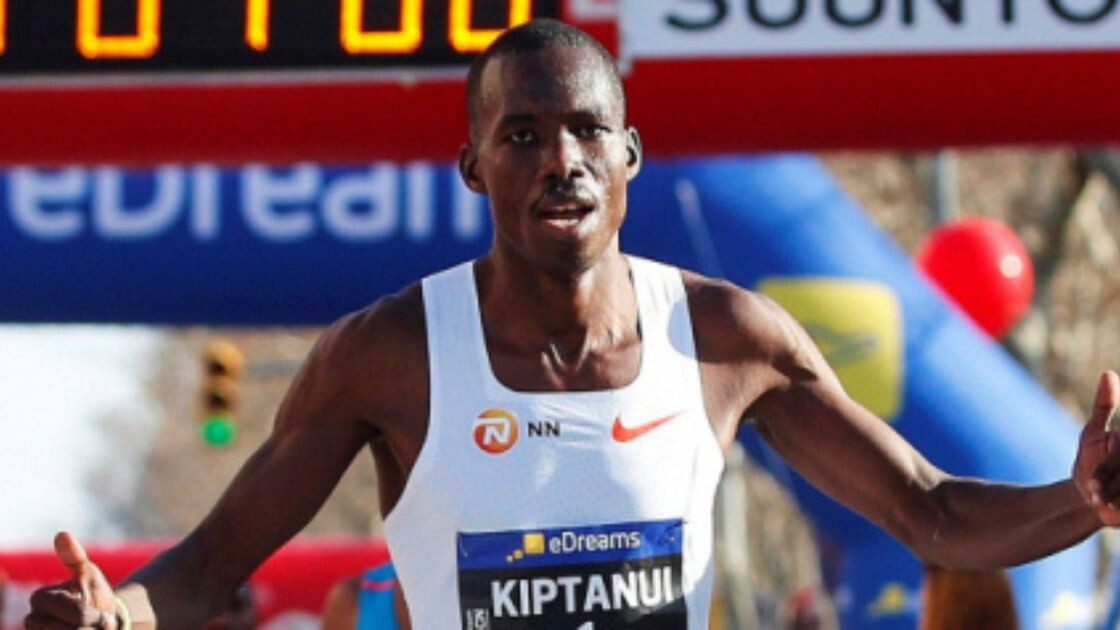
“We are looking forward to another high-class race that will certainly hold one or two surprises. After having the fastest race in the event's history last year in terms of the two winning times added together, we are excited to see what will be possible on October 27,” said race director Jo Schindler.
During last year’s race, Brimin Kipkorir sealed the title in 2:04:53 ahead of Ethiopian duo of Mulugeta Asefa (2:06:47) and Guye Idemo (2:07:44).
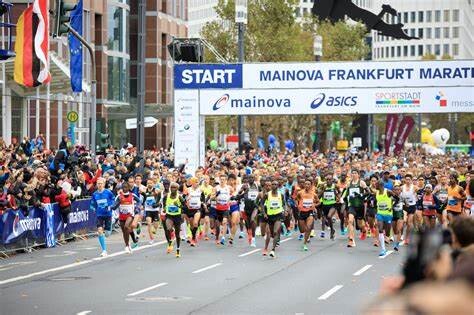
In the women’s elite race, Ethiopia’s Buzunesh Getachew (2:19:27) beat Winfred Moseti (2:20:55) and Sharon Chelimo (2:22:07) to the title.
Kiptanui enters the race with an impressive resume, including half marathon victories in Berlin (58:42) and Lisbon (1:00:05) in 2018, and Barcelona in 2019 (1:01:04).
In the marathon, he boasts a title from the Xiamen and Tuscany Marathon in 2021 (2:05:47-PB). He also secured runner-up finishes in Dubai 2020 (2:06:17) and Chicago 2021 (2:06:17).
His other accolades include a victory at the 2017 Madrid 10k Road race (27:34).
His main rival will be Ethiopia’s Herpasa Negasa, who finished second at the 2022 Seoul Marathon.
Negasa holds a personal best of 2:03:40 set during the 2019 Dubai Marathon where he placed second behind compatriot Getaneh Molla (2:03:34).
The Ethiopian’s accolades include runner-up finishes at the Hengshui 2018 Marathon (2:09:14), Lyon 2015 (2:10:17) and a second runner-up finish at the 2018 Warszawa Marathon (2:11:46).
In the women’s race, Masai will face a stern challenge from 2022 Berlin Marathon third-place finisher Tigist Abayechew.
Masai brings a rich trophy cabinet that includes bronze from the Beijing 2008 Games in the 10,000m (30:26.50) and a world title in the same event from the 2009 Berlin World Championships (30:51:24).
The 34-year-old is also a gold medalist from the 2007 World Cross Country Championships and a three-time silver medalist from Amman 2009, Bydgoszcz 2010 and Punta Umbria 2011.
In the full marathon, Masai holds a lifetime best of 2:23:46 from the 2018 Amsterdam Marathon where she finished fifth.
Abayechew holds a best of 2:18:03 she set during the Berlin Marathon, where she placed third behind Rosemary Wanjiru (2:18:00) and Tigst Assefa (2:15:37).
by Teddy Mulei
Login to leave a comment
Mainova Frankfurt Marathon
Frankfurt is an unexpectedly traditional and charming city, with half-timbered buildings huddled in its quaint medieval Altstadt (old city), cosy apple wine taverns serving hearty regional food, village-like neighbourhoods filled with outdoor cafes, boutiques and street art, and beautiful parks, gardens and riverside paths. The city's cache of museums is second in Germany only to Berlin’s, and its nightlife...
more...50th BMW BERLIN-MARATHON ON 29 SEPTEMBER: ELITE FIELD
The men’s elite field for the 50th edition of the BMW BERLIN-MARATHON race comes with a change that reflects the recent development at the very top of elite marathon racing.
It will be the first time since 2014 that you will not find the name of either Eliud Kipchoge or Kenenisa Bekele on the start list of the BMW BERLIN-MARATHON. However the Elite Race Director of the marathon where most world records (13) were broken, Mark Milde, can be confident that not so much will change regarding the outcome. Although world-records will not be the target on 29th September, the jubilee race could well deliver extraordinary fast times yet again.
A record number of more than 50,000 runners are expected to run the 50th BMW BERLIN-MARATHON on 29th September. The race, that saw its first edition back in 1974 with 244 finishers, never had over 50,000 runners before.
From those on the men’s start list at least one has the potential to become Kenya’s next marathon superstar: Kibiwott Kandie is a former world half marathon record holder with a personal best of 57:32. This time suggests that he could become one of the fastest marathon runners of all time if he can transform his talent to the classic distance. The 28 year-old, who has a current PB of 2:04:48 and was inspired by former Berlin world record breaker Paul Tergat, is one of half a dozen runners who feature very strong personal bests of sub 2:05:00.
Returning to the BMW BERLIN-MARATHON will be Ethiopia’s Tadese Takele and Ronald Korir of Kenya, who placed third and fourth last year. Both ran their personal bests of 2:03:24 and 2:04:22 here. Kenya’s Cybrian Kotut, a younger brother of former Abbott World Marathon Majors Champion Martin Lel, will run his first BMW BERLIN-MARATHON. Kotut features a PB of 2:04:34. Ethiopians Hailemaryam Kiros (2:04:41) and Bazezew Asmare (2:04:57) are the other two runners with sub 2:05 PBs. Another runner who could challenge for a place on the podium is Samwel Mailu. The Kenyan smashed the course record of the Vienna City Marathon last year with 2:05:08. Due to an injury the bronze medallist from the 2023 World Half Marathon Championships was unable to compete this spring.
The women’s race could see a battle between Ethiopia’s newcomer Tigist Ketema and Kenya’s Rosemary Wanjiru. With their personal bests they are among the top ten on the marathon all-time list. Tigist Ketema took the Dubai Marathon this year with an unofficial world debut record of 2:16:07.
She is a training partner of Tigst Assefa, who smashed the world record at the BMW BERLIN-MARATHON a year ago. Rosemary Wanjiru ran her marathon debut in Berlin two years ago and finished second with a brilliant 2:18:00. This year she improved to 2:16:14 when she was runner-up in Tokyo.
Former 1,500m world record holder Genzebe Dibaba, who is the younger sister of Ethiopian running legend Tirunesh Dibaba, will hope to achieve a fast time on the flat Berlin course. She ran a 2:18:05 debut in Amsterdam two years ago, but was not yet able to improve this time. Genzebe Dibaba was the 2014 Laureus World Sportswoman of the Year. Fellow-Ethiopian Yebrgual Melese is the fourth woman on the start list who has a sub 2:20 PB with 2:19:36.
Elite Runners for the 50th BMW BERLIN-MARATHON:
MEN
Tadese Takele ETH 2:03:24
Ronald Korir KEN 2:04:22
Cybrian Kotut KEN 2:04:34
Hailemaryam Kiros ETH 2:04:41
Kibiwott Kandie KEN 2:04:48
Bazezew Asmare ETH 2:04:57
Samwel Mailu KEN 2:05:08
Milkesa Mengesha ETH 2:05:29
Haymanot Alew ETH 2:05:30
Philimon Kipchumba KEN 2:05:35
Stephen Kiprop KEN 2:07:04
WOMEN
Tigist Ketema ETH 2:16:07
Rosemary Wanjiru KEN 2:16:14
Genzebe Dibaba ETH 2:18:05
Yebrugal Melese ETH 2:19:36
Mestawot Fikir ETH 2:20:45
Azmera Gebru ETH 2:20:48
Sisay Gola ETH 2:20:50
Ababel Yeshaneh ETH 2:20:51
Mizuki Matsuda JPN 2:20:52
Fikrte Wereta ETH 2:21:32
Login to leave a comment
BMW Berlin Marathon
The story of the BERLIN-MARATHON is a story of the development of road running. When the first BERLIN-MARATHON was started on 13th October 1974 on a minor road next to the stadium of the organisers‘ club SC Charlottenburg Berlin 286 athletes had entered. The first winners were runners from Berlin: Günter Hallas (2:44:53), who still runs the BERLIN-MARATHON today, and...
more...Sifan Hassan promises to outrun Kenyan and Ethiopian legends until her last breath
The Dutch marathon runner has vowed to dominate her Kenyan and Ethiopian rivals aiming to race until her last breath.
Dutch distance running great Sifan Hassan has set a new gold standard in Olympic marathon running emphatically stating she plans to dominate the event for years to come.
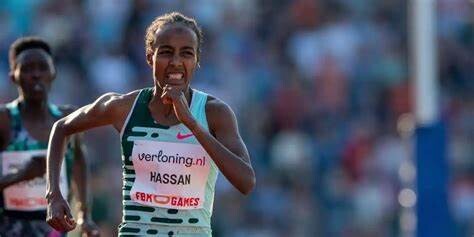
After a stunning victory at the Paris Olympics, Hassan warned her top rivals from Kenya and Ethiopia that she is just getting started.
In one of the most grueling tests of human endurance, Hassan pulled off a historic victory in what was dubbed the toughest Olympic marathon course ever.
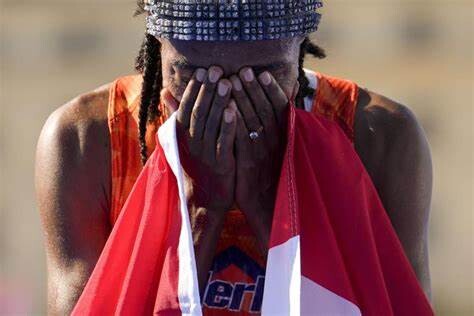
The race included punishing hills and an elevation surpassing those of the Boston and New York marathons.
Despite these challenges, Hassan managed to claim gold with a new Olympic record of 2 hours, 22 minutes, and 55 seconds, narrowly defeating world record holder Tigst Assefa of Ethiopia by just three seconds.
“I’m really crushed.I don’t want to disappoint myself. I want to give everything. That’s what I did. It feels like a dream," she said as per Independent..
The 31-year-old Dutch athlete has now become the first woman to secure Olympic gold medals in the 1500m, 5,000m, 10,000m, and marathon across multiple games.
“Everybody else was fresh but I was telling myself, I don’t feel fresh, I don’t feel good, why didn’t you just run the marathon? From the beginning to the end, I felt uncomfortable,” Hassan explained.
Yet, her strategic focus on the marathon paid off, culminating in a breathtaking final sprint that left onlookers gasping at the idyllic gardens surrounding the golden dome of Les Invalides.
The race was not just a physical battle but also a mental one.
Hassan has been open about her fears and the immense pressure she faces each time she lines up at the starting line.
“Yes, I’m still scared of the marathon, I’ve only done four and they’re all different.You’re uncomfortable for two hours or more, and the brain wants to protect you," she added.
Hassan’s mental resilience and ability to manage her heart rate were critical in her Olympic success.
“I recover great, that’s good, but the rest is the challenge, I love the extra challenge. I like to try things out. I’m not scared... I mean, I am scared but I like to try things. Does it work or does it not? That’s what makes me better than others, I try,” Hassan said.
“I’ll still get nervous, but I’m not finished yet, I think I’ll do marathons until I die. I’m not going to stop. It’s a lot of fun,” she declared.
by Festus Chuma
Login to leave a comment
Sifan Hassan caps remarkable Olympics with women’s marathon gold by 3seconds after winning two medals days earlier
Sifan Hassan and Tigst Assefa moved towards the final corner of the breathless, frenetic women’s marathon shoulder‑to‑shoulder as they fought desperately for one of the last gold medals of the Paris Olympics. Under normal circumstances, Hassan’s supreme footspeed would almost always outstrip marathon specialists, but this was remarkably her 62nd kilometre of the Games after 10 days of racing. Anything was possible.
Only Hassan is crazy enough to attempt a ridiculous treble of 5,000m, 10,000m and marathon, but she is also the only athlete talented and versatile enough to succeed in all three. In the final metres, the Dutchwoman pulled away from Assefa, after a dramatic coming together, to win her first marathon gold medal with a blistering Olympic record of 2hr 22min 55sec. Assefa of Ethiopia, the world record holder, finished 3sec behind Hassan in second place while Kenya’s Hellen Obiri took the bronze.
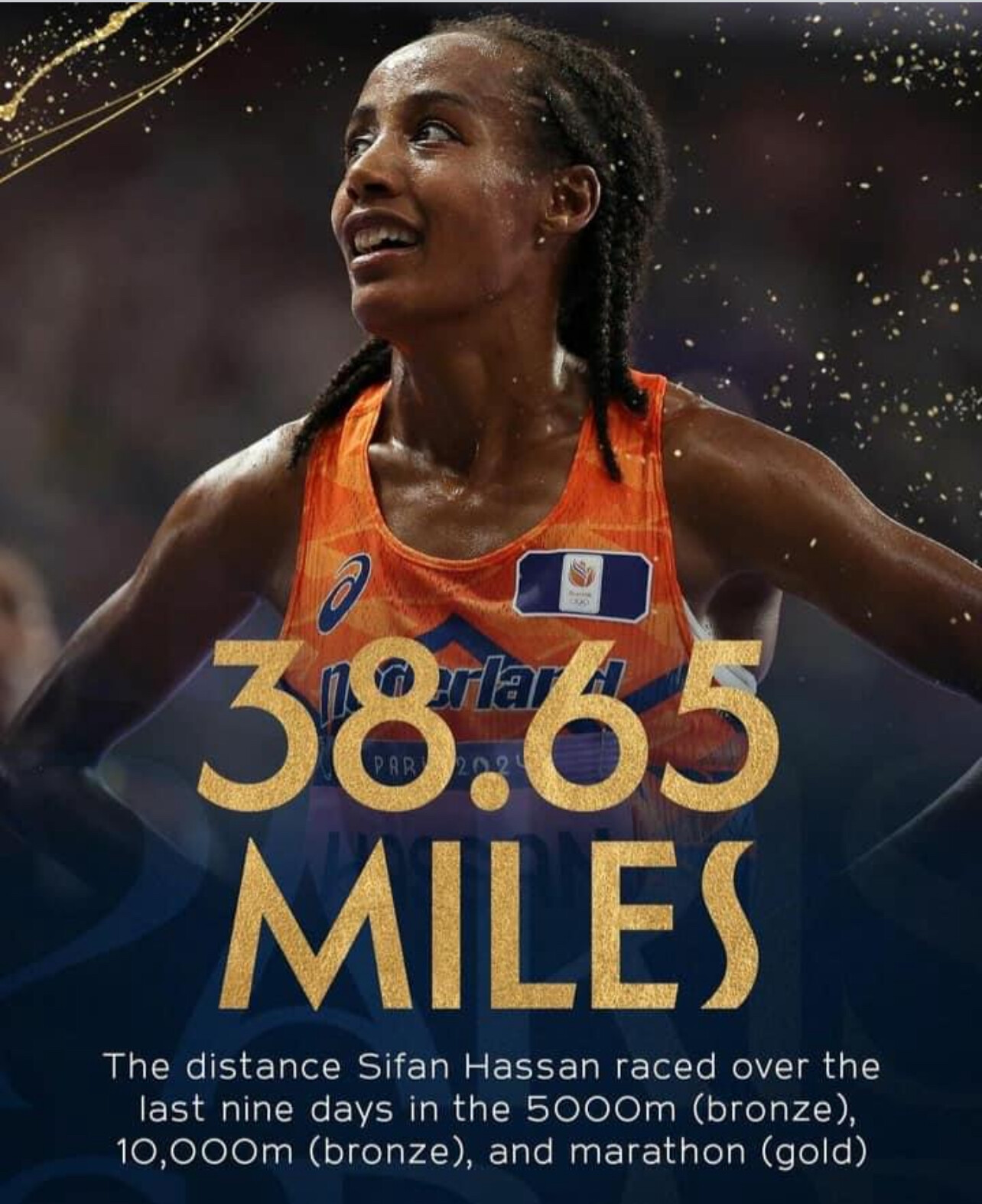
“Can you imagine for two hours, just focusing on every step? I have never focused like I focused today,” said Hassan, who had to survive an appeal from the runner-up. “I’m Olympic champion and what can I say? Marathon; I’ve been Olympic champion [in other events] but it’s something else.”
Having already built up one of the most extraordinary track and field careers of all time, this is surely Hassan’s crowning achievement. The 31-year-old has won three medals at the Paris Olympics, her marathon gold complemented by bronzes in the 5,000m and 10,000m. The last athlete to win medals in all three events in one Olympics was the Czech Emil Zatopek in 1952. She is also the first woman to win Olympic gold in 5,000m, 10,000m and marathon competitions, having won the first two in Tokyo. She is a six-time Olympic medallist overall.
Nine days earlier, Hassan’s Olympics began in the women’s 5,000m heats on Friday 2 August before she won bronze in the rapid, hectic final last Monday. The women’s 10,000m final followed four days later on Friday, Hassan also finishing with an excellent bronze medal.
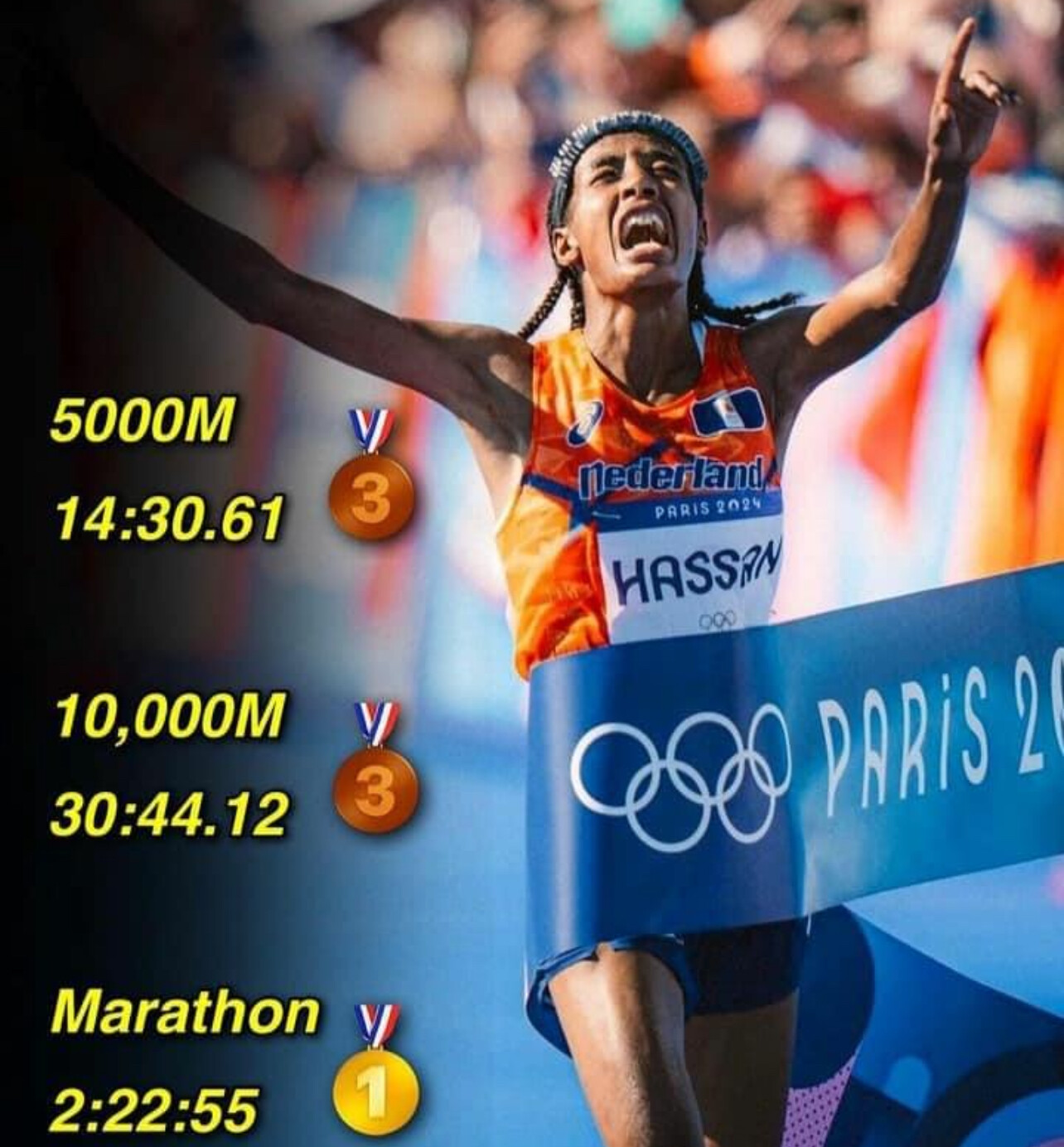
Just 35 hours later, Hassan lined up for a legendary Olympic marathon performance. The race came alive at the 28km mark as the runners scaled a painfully steep hill. Hassan struggled badly and a significant 50m gap opened up between her and the leading pack as, with her closing speed in mind, the marathon specialists accelerated up the hill in order to distance themselves. But they just could not get rid of her. As the course flattened, Hassan quickly closed the gap, stalking the leaders from the back of the group.
The formidable final five of Hassan, Assefa, Obiri, Sharon Lokedi and Amane Beriso Shankule remained extremely tight. But as the pace picked up, the group gradually thinned out until only Hassan and Assefa remained. Hassan made her move with about 300m to go, drawing her brilliant speed developed through years of greatness in 1500m races. As she took the inside line and flitted past Assefa, all the Ethiopian could do to try to stop her was put her body in the way and extend an elbow. But Hassan nudged the 27-year-old back and tore past her rival to close out an unforgettable win.
“I have no words for it. When I started this morning, every single moment [in the race] I was regretting that I ran the 5,000m and 10,000m,” Hassan said. “I was telling myself: ‘If I hadn’t done that, I would feel comfortable today.’ From the beginning until the end, I felt every step so hard and I regretted it: ‘What is wrong with me?’ The moment I felt good was at 20km.”
The post-event ceremony was significantly delayed after Ethiopia filed a protest over the incident when Assefa and Hassan crashed into each other towards the end of the race. Their protest was unsurprisingly rejected. Afterwards, Assefa claimed the clash had cost her the gold.
Hassan, who was born in Ethiopia before becoming a refugee and moving to the Netherlands in 2008 at 15, ran her first marathon only last year, in London. After her first medal in the 5,000m final, Hassan explained that she had chosen such an intense challenge because she is equally crazy and inquisitive: “I’m very curious. Could I podium? Could I even complete [each race]? I’m trying to fight with myself. What can I do after the 10,000m? Am I strong enough to keep the pace?”
As has been the case throughout a career in which she has constantly experimented and pushed her athleticism to its limits, her performance answered every single question affirmatively.
Wow, what an amazing athlete! Maybe the best of the games!
Login to leave a comment
Paris 2024 Olympic Games
For this historic event, the City of Light is thinking big! Visitors will be able to watch events at top sporting venues in Paris and the Paris region, as well as at emblematic monuments in the capital visited by several millions of tourists each year. The promise of exceptional moments to experience in an exceptional setting! A great way to...
more...SIFAN HASSAN WINS WOMEN’S MARATHON IN NEW OLYMPIC RECORD
Sifan Hassan has raced to victory in a new Olympic record in the Paris 2024 women’s marathon on Sunday 11 August.
The Dutch athlete braved the undulating course that wound through some of the most iconic sights in Paris, finishing the race in 2:22:55.
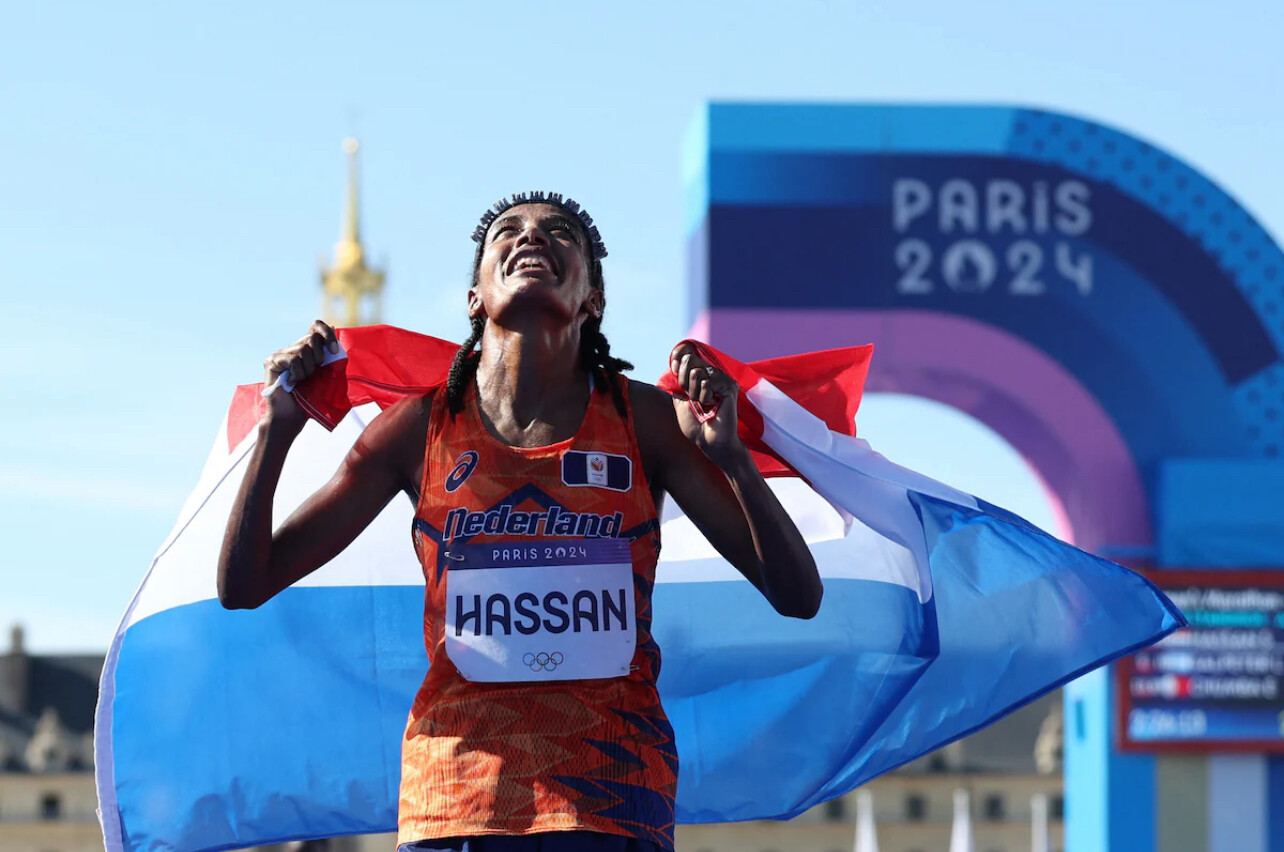
Hassan raised eyebrows when she announced she would complete the 5000m/10,000m/marathon treble at these Games. However, her brilliant gold in today's marathon, added to the bronze medals she won over the shorter distances, is proof that the 31-year-old is able to overcome the type of sporting challenges others would deem impossible. She placed third in the 10000m as well.
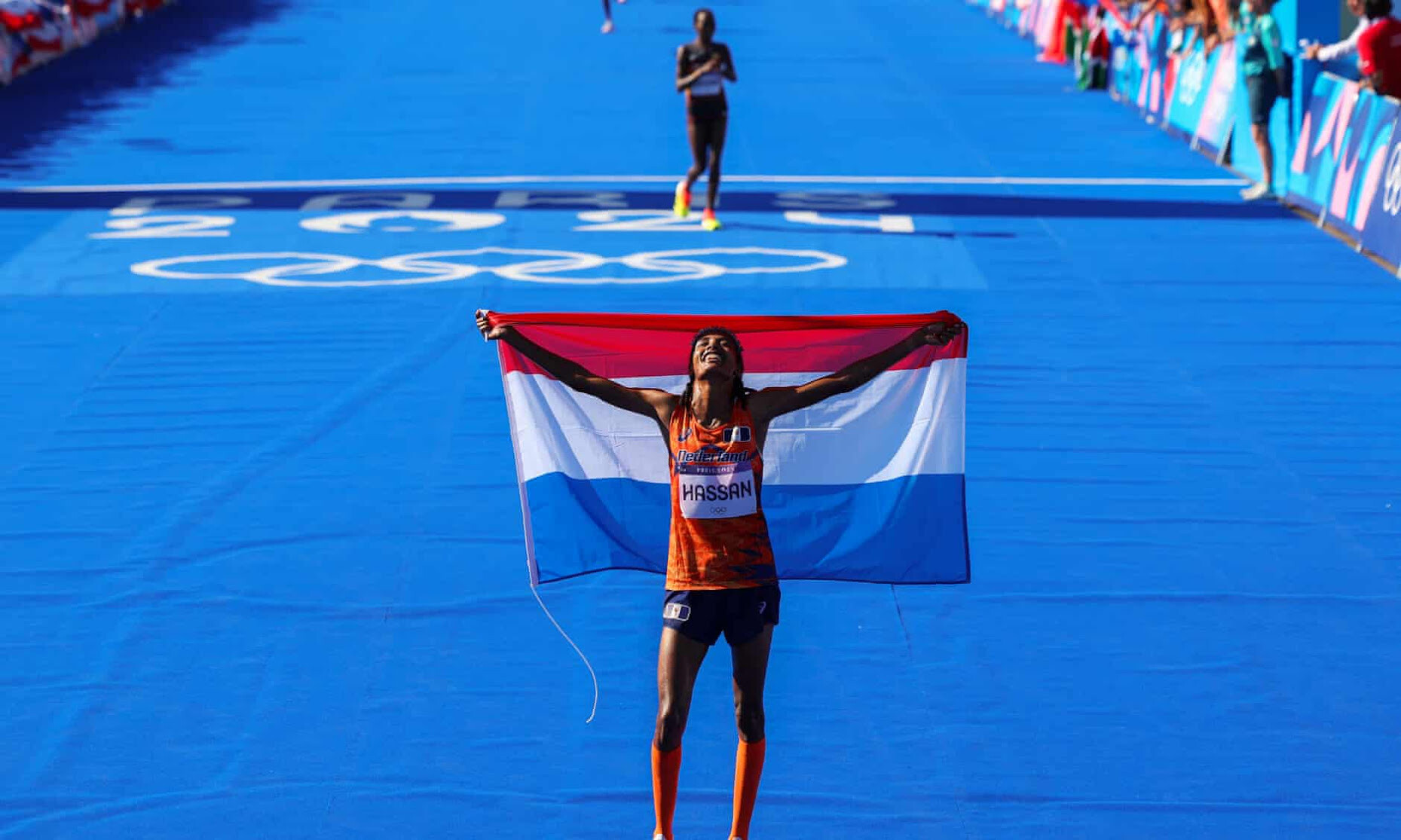
Much has also been made about the unique challenges posed by the Paris 2024 marathon course with its steep, gruelling inclines followed by fast downhill sections.
But in front of a cheering crowd that lined the streets of France’s capital, Hassan proved herself strongest, fastest and more determined over the 42.195km race.
Tigst Assefa of Ethiopia won silver (2:22:58) with Kenya’s Hellen Obiri claiming bronze (2:23:10).
Login to leave a comment
Paris 2024 Olympic Games
For this historic event, the City of Light is thinking big! Visitors will be able to watch events at top sporting venues in Paris and the Paris region, as well as at emblematic monuments in the capital visited by several millions of tourists each year. The promise of exceptional moments to experience in an exceptional setting! A great way to...
more...The Dutch distance specialist has decided to drop the 1,500m to focus on the marathon
After the Dutch Olympic team announced that distance phenom Sifan Hassan was set to become the first athlete in history to attempt four Olympic athletics events, Hassan has decided to drop down to a triple. In 2023, she became the first athlete to medal in the 1,500m, 5,000m, and 10,000m at a single Games, bringing home a bronze (in the 1,500m) and two golds. This year, she will swap out the 1,500 for her newest discipline, the marathon.
Hassan’s third-place finish in the 1,500m at Tokyo 2020, behind Kenya’s Faith Kipyegon and Team GB’s Laura Muir, was the weakest of her three performances. Now, the deep field in the women’s 1,500m in Paris threatens her chances to bring home another medal in the event. Kipyegon (the defending world champion and world record holder) and Australia’s Jessica Hull (the newly crowned 2,000m world record holder), ran the world’s best times in the discipline earlier this month. Muir (the Olympic silver medallist) and Ethiopia’s Gudaf Tsegay (5,000m world record holder) are also medal contenders in the event, adding to the challenge.
Hassan only made her marathon debut in 2023, and followed up her win at the London Marathon by clocking a 2:13:44 (the second-fastest women’s marathon time in history) to win the 2023 Chicago Marathon. With world record holder Tigst Assefa of Ethiopia the sole competitor ranked ahead of her, Hassan stands a much better chance of bringing home a medal in the marathon. (Additionally, the women’s 1,500m final is scheduled for Saturday evening, Aug. 10, which is the night before the marathon–obviously not ideal timing for a strong marathon.)
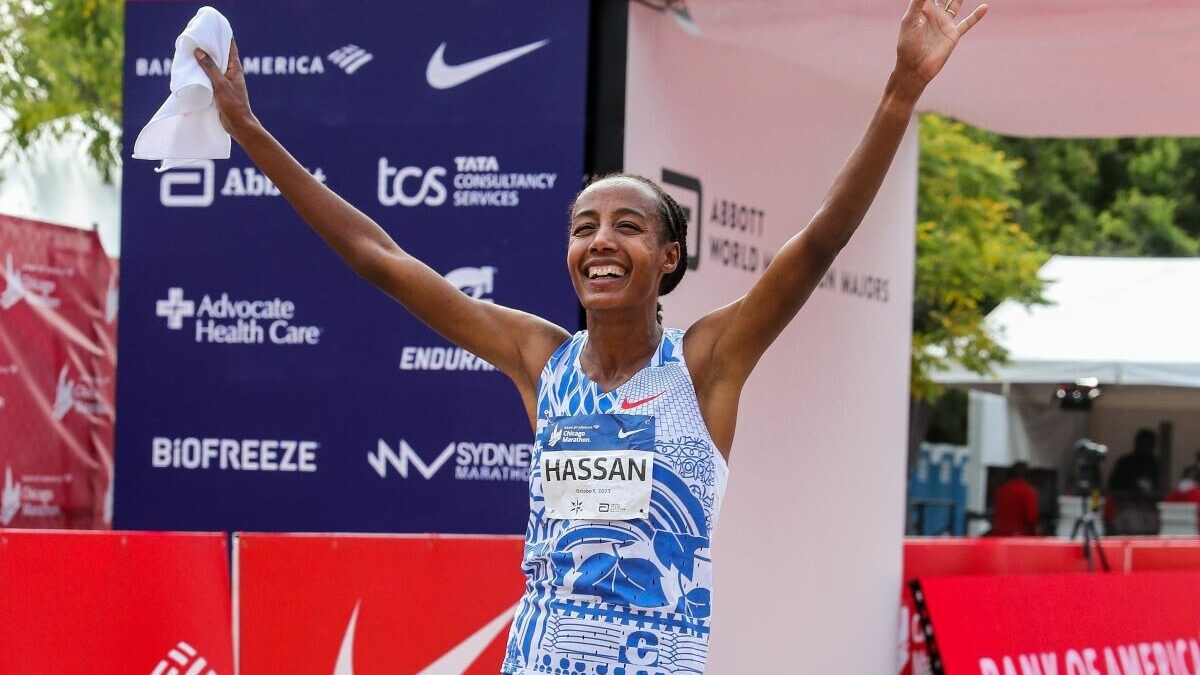
With three races removed from her Olympic itinerary, Hassan’s new schedule is somewhat less demanding, with her races spaced out by a couple of days each.
Aug. 2: 5,000m, Round 1 – 6:10 p.m. local timeAug. 5: 5,000m, Final – 9:10 p.m.Aug. 9: 10,000m Final – 8:55 p.m.Aug. 11: Marathon – 8:00 a.m.
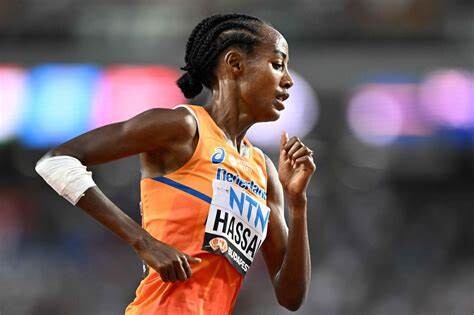
by Cameron Ormond
Login to leave a comment
Paris 2024 Olympic Games
For this historic event, the City of Light is thinking big! Visitors will be able to watch events at top sporting venues in Paris and the Paris region, as well as at emblematic monuments in the capital visited by several millions of tourists each year. The promise of exceptional moments to experience in an exceptional setting! A great way to...
more...50 laps and then a marathon: Sifan Hassan chases the ‘impossible’ dream at Paris Olympics
The Olympics is a time to marvel at the incredible but the sheer size of the opportunity should ensure an element of caution among athletes.
Not so for Sifan Hassan, the Dutch middle and long distance runner, after she announced her bid to pull off a historic treble at the Paris Olympics when she will compete in the 5,000m, 10,000m and marathon events.
The Olympic champion in Tokyo over 5,000m and 10,000m, Hassan had entered the 1,500m, too, before dropping that event on Wednesday.
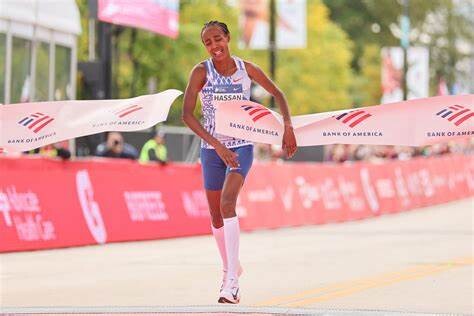
Hassan provoked excitement in the sport three years ago when she attempted an exhausting Tokyo treble.
She would add bronze to her two golds in Tokyo when she rallied in the 1,500m heats after falling over, before settling for bronze in the final after a fierce battle with Faith Kipyegon and Laura Muir.
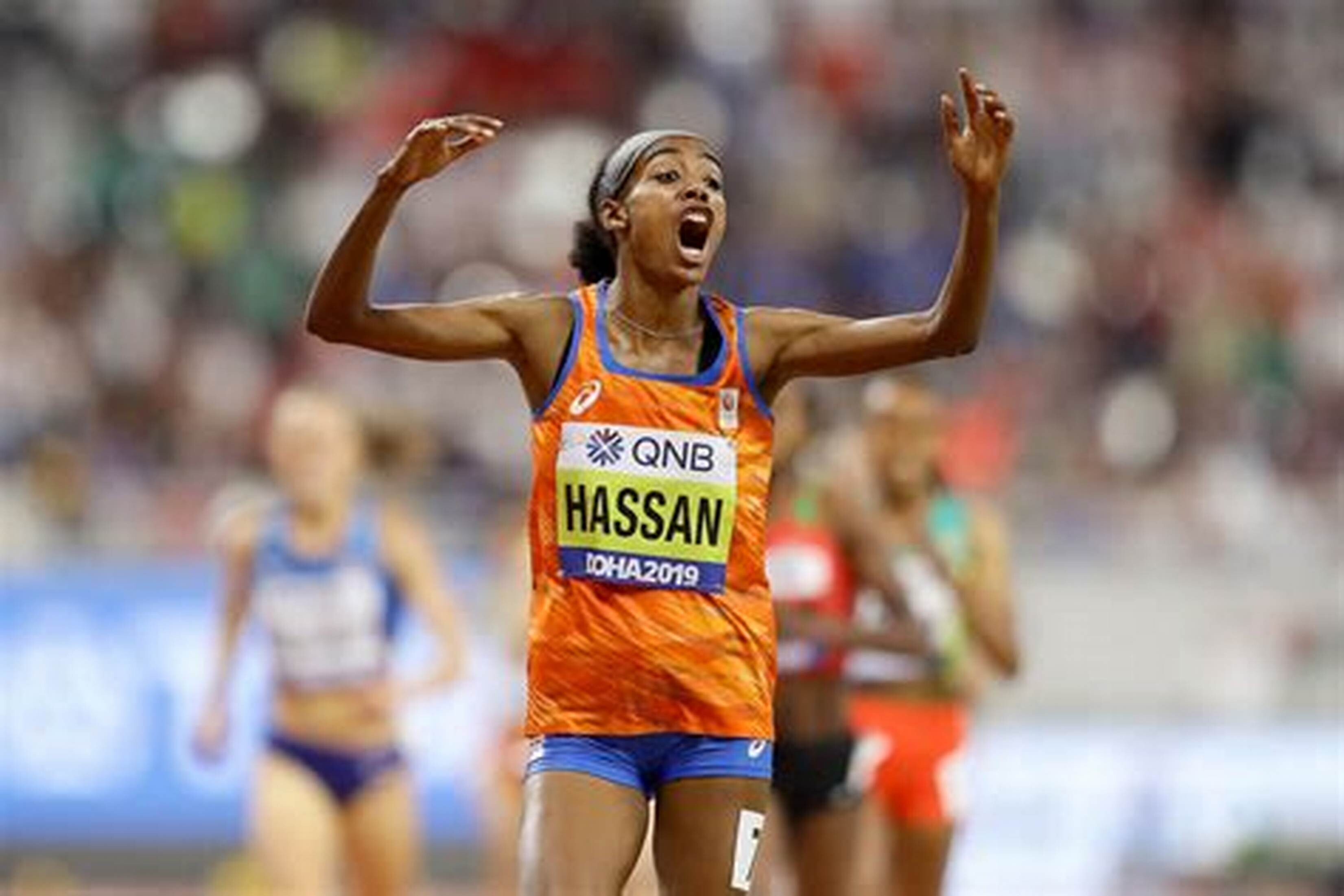
That bronze, while adding a dash of disappointment in the Tokyo rush for three golds, was a gift to the sport in hindsight. It delivered a shove, compelling Hassan to roll the dice and taste 26.2 miles on the roads.
The marathon and the roads bring acclaim and fortunes rarely afforded on the track and the hope was that Hassan, with her formidable track speed, would graduate in time. Yet her transition was seamless: She made her debut in London last year, pulling off one of the most staggering comebacks.
Hunched over and stationary in the middle of the race at 19km, Hassan desperately stretched to rid her aching body of lactic acid. Not only did it vanish, but she found a spring to outkick Alemu Megertu and win by a mere four seconds in two hours, 18 mins and 33secs.
More was to come, with victory and the second-fastest women's marathon of all time (2:13.44) in Chicago, before a respectable fourth in Tokyo this year. It begs the question as to why Hassan would risk scuppering hopes of marathon gold by subjecting her legs to 20km (the 5,000m has two rounds) on the track. Notably, the marathon course will present a number of hills, which could see each race unfold into a tactical affair with the opportunity for a sprint finish.
Even with 4mins 4.08secs in the 1,500m this year, Hassan would revel in the opportunity to test Ethiopian world record holder Tigst Assefa (2:11:53) and Kenyan trio Peres Jepchirchir, Helen Obiri and Sharon Lokedi over a late dash.
But the 31-year-old, whose face can be seen across many of the metro stations in Paris for an eye-catching Nike campaign, insists the attempt is nothing more than intrigue. And for that. she should be praised, in a sport where so many play it safe.
“I’m a very curious person,” she remarked. “Is life all about a gold medal? I'm very curious to do many events. I think it's impossible. So I want to see if it is, so I have to try. In Tokyo, it was successful after the three events. I discovered myself, also.
“Curiosity, when I try new things, is actually what keeps me going in my career. My journey is more important, the other things come after. I love the journey as much as the challenge.
“Did I balance speed on the track with enough endurance in the marathon? Let’s find out together. It’s not easy to face the unknown but my curiosity has driven all my training towards this goal. I will try my best to succeed.”
Hassan starts her campaign in Paris in the 5,000m opening round on Friday and will return on Monday for the final, should she qualify.
The 10,000m final is set for 9 August, meaning less than 48 hours of rest before lining up for the marathon.
“For anyone else this would be insane!” American track legend Michael Johnson wrote on social media. “I don't believe there's ever been an athlete who enjoys racing more than Sifan Hassan.”
And her attempt has left many of her fellow athletes in awe, with 1,500m world champion Josh Kerr impressed by her versatility.
“I don't think I could do that on the women’s side... to do a triple like that, the training is so gruelling for the marathon,” said Kerr. “She’s so well rounded that being able to have enough speed in the rank to do track races, it’s two rounds in the five, she’ll be out there having fun. Very impressive.”
“It's good sometimes when I'm nervous ... I do better,” Hassan laughed. Her rivals will hope she is not.
by Jack Rathborn
Login to leave a comment
Paris 2024 Olympic Games
For this historic event, the City of Light is thinking big! Visitors will be able to watch events at top sporting venues in Paris and the Paris region, as well as at emblematic monuments in the capital visited by several millions of tourists each year. The promise of exceptional moments to experience in an exceptional setting! A great way to...
more...Paris 2024: Favorites and best value picks on the track
We are just four days away from the opening ceremony of the 2024 Paris Olympics and a little over a week from the start of the athletics events at the Stade de France. If you’re looking to place your bets for gold or want to know the favorites for each event (according to Vegas sportsbooks), we’ve got you covered with insights and odds to help you get the best value out of your picks.
Men’s 100m
Favorite: Kishane Thompson (JAM) -105 [world leader]
Best value: Oblique Seville (JAM) +900
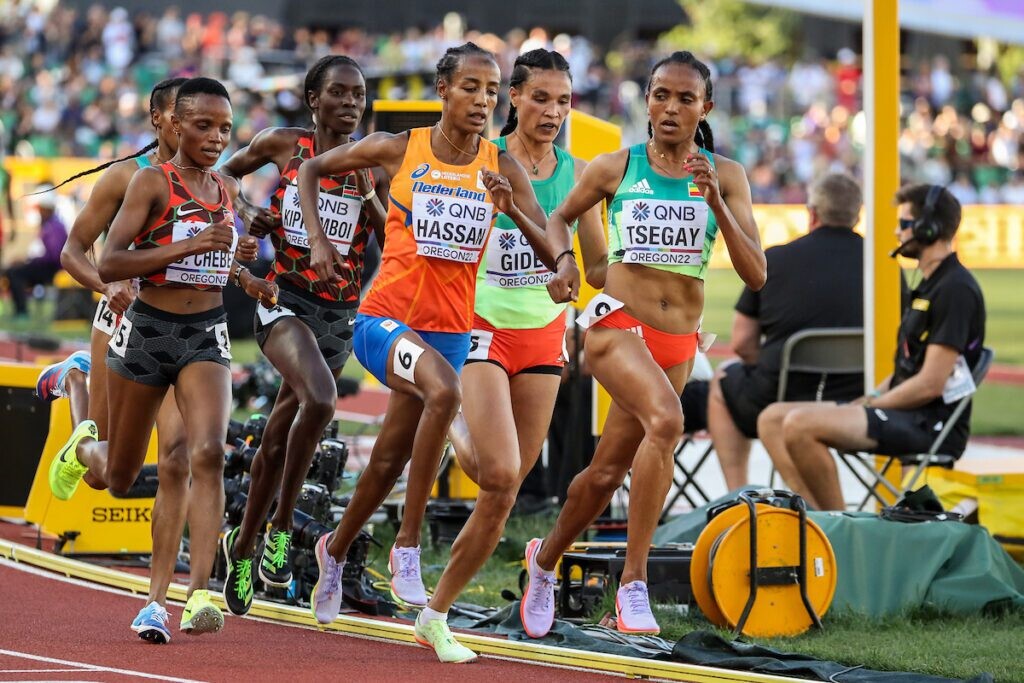
Men’s 200m
Favorite: Noah Lyles (USA) -290 [3x world champion]
Best value: Erriyon Knighton (USA) +1000 [2x world championship medallist]
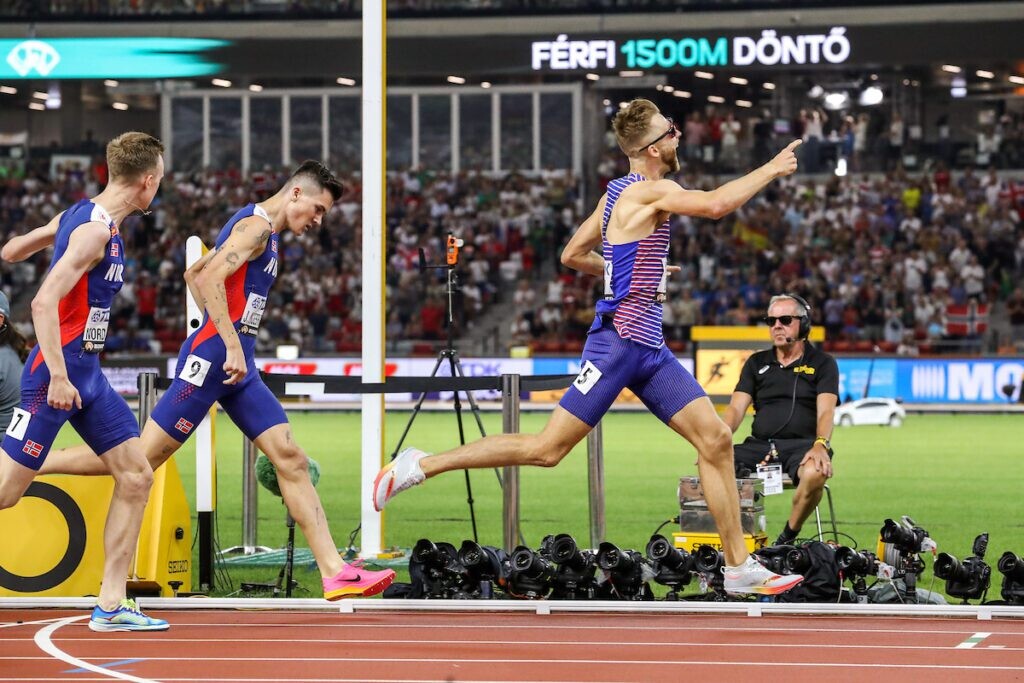
Men’s 400m
Favorite: Matthew Hudson-Smith (GBR) +120 [world silver medalist]
Best value: Steven Gardiner (BAH) +350 [reigning Olympic champion]
Men’s 800m
Favorite: Djamel Sedjati (ALG) -250 [world leader]
Best value: Marco Arop (CAN) +1500 [reigning world champion]
Men’s 1,500m
Favorite: Jakob Ingebrigtsen (NOR) -225 [reigning Olympic champion]
Best value: Josh Kerr (GBR) +175 [reigning world champion]
Men’s 5,000m
Favorite: Jakob Ingebrigtsen (NOR) -290 [reigning world champion]
Best value: George Mills (GBR) +4000
Men’s 10,000m
Favorite: Joshua Cheptegei (UGA) +120 [world record holder]
Best value: Berihu Aregawi (ETH) +600
Men’s 110m hurdles
Favorite: Grant Holloway (USA) -500 [world leader and world champion]
Best value: Hansle Parchment (JAM) +1000 [reigning Olympic champion]
Men’s 400m hurdles
Favorite: Rai Benjamin (USA) +100 [world leader]
Best value: Alison Dos Santos (BRA) +300 [2022 world champion]
Men’s 3,000m steeplechase
Favorite: Lamecha Girma (ETH) -120
Best value: Soufiane El Bakkali (MAR) +190
Men’s marathon
Favorite: Eliud Kipchoge (KEN) -190 [reigning Olympic champion]
Best value: Benson Kipruto (KEN) +900 [2024 Tokyo Marathon champion]
Women’s 100m
Favorite: Sha’Carri Richardson (USA) -225 [reigning world champion]
Best value: Julien Alfred (LCA) +700
Women’s 200m
Favorite: Gabby Thomas (USA) +105 [2020 Olympic bronze medalist]
Best value: Shericka Jackson (JAM) +180 [reigning world champion
Women’s 400m
Favorite: Marileidy Paulino (DOM) -135 [2020 Olympic silver medalist]
Best value: Rhasidat Adeleke (IRL) +700
Women’s 800m
Favorite: Keely Hodgkinson (GBR) -290 [Olympic silver medallist]
Best value: Nia Atkins (USA) +1500
Women’s 1,500m
Favorite: Faith Kipyegon (KEN) -285 [world record holder]
Best value: Jessica Hull (AUS) +1000
Women’s 5,000m
Favorite: Faith Kipyegon (KEN) -285 [world champion]
Best value: Beatrice Chebet (KEN) +750 [world XC champion]
Women’s 10,000m
Favorite: Sifan Hassan (NED) +120 [reigning Olympic champion]
Best value: Gudaf Tsegay (ETH) +250 [reigning world champion]
Women’s 100m hurdles
Favorite: Cyrena Samba-Mayela (FRA) +250 [European champion]
Best value: Tobi Amusan (NGR) +1500 [world record holder]
Women’s 400m hurdles
Favorite: Sydney McLaughlin-Levrone (USA) -700 [world record holder and reigning Olympic champion]
Best value: Femke Bol (NED) +300 [reigning world champion]
Women’s 3,000m steeplechase
Favorite: Beatrice Chepkoech (KEN) n/a [world record holder]
Best value: Sembo Almayew (ETH) n/a
Women’s marathon
Favorite: Tigst Assefa (ETH) +250 [world record holder]
Best value: Hellen Obiri (KEN) +400 [2023 & 2024 Boston Marathon champion]
by Marley Dickinson
Login to leave a comment
Paris 2024 Olympic Games
For this historic event, the City of Light is thinking big! Visitors will be able to watch events at top sporting venues in Paris and the Paris region, as well as at emblematic monuments in the capital visited by several millions of tourists each year. The promise of exceptional moments to experience in an exceptional setting! A great way to...
more...Gudaf Tsegay, Lamecha Girma head Ethiopia's 43-athlete squad to battle Kenya in Paris Olympics
In the 2021 Tokyo Olympics, Kenya bested Ethiopia as the top African nation, finishing 19th overall with 10 athletics medals.
World record-holders Gudaf Tsegay and Lamecha Girma are set to lead a formidable Ethiopian squad of 43 athletes at the upcoming Paris Olympic Games.
The robust team comprising top-tier talent across various track and field events promises to offer fierce competition to their long-time rivals Kenya in the race for Olympic medals.
Tsegay will be competing in the 10,000 meters, 5,000 meters, and 1,500 meters events.
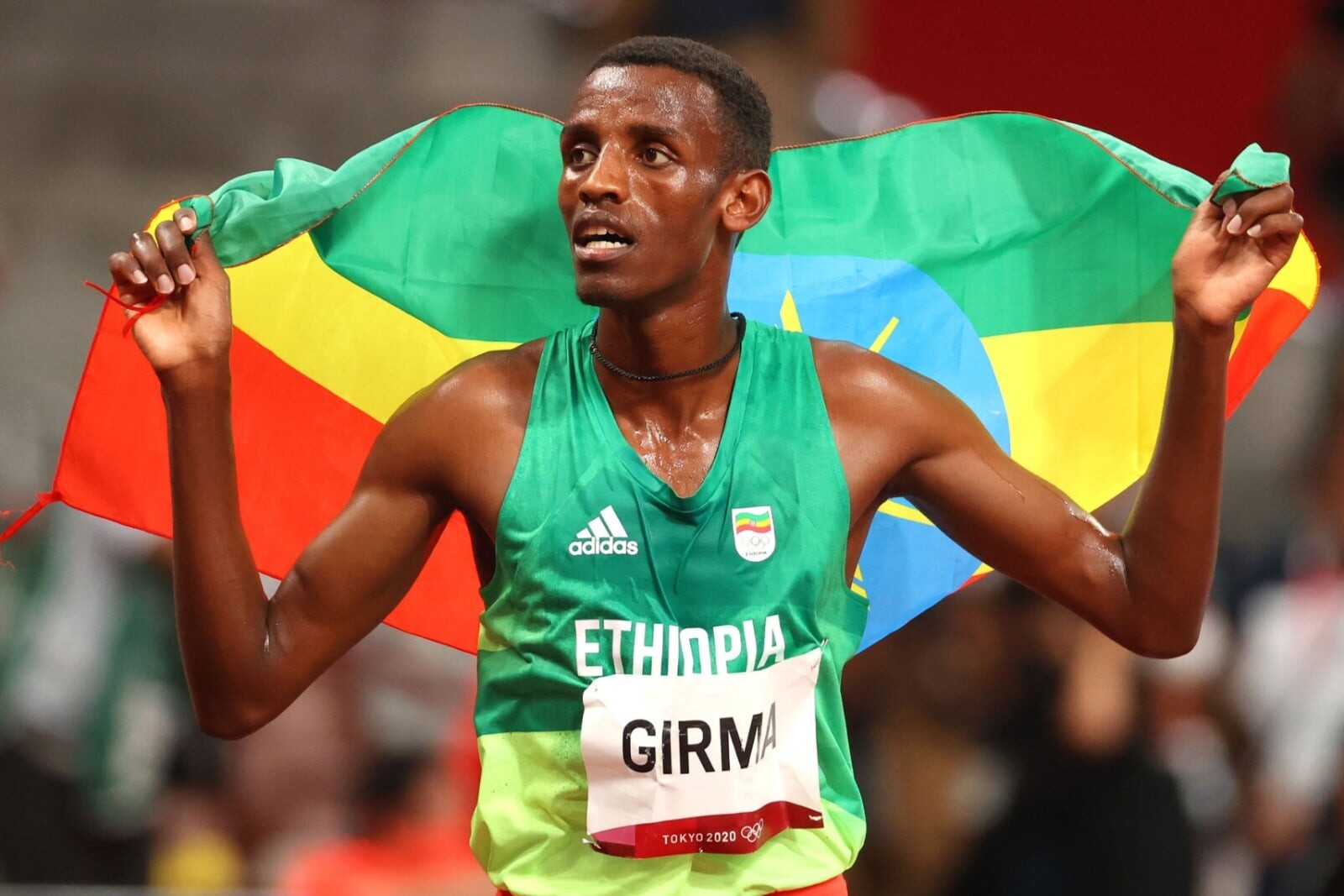
The 27-year-old athlete's standout performance at the Prefontaine Classic, where she shattered the world record in the 5,000 meters with an astounding time of 14:00.21, means she will be challenging rival Kenya's Faith Kipyegon who will chase two gold medals after winning the 1500m and 5000m.
The women's team also boasts an impressive lineup in the 800 meters, featuring Tsige Duguma, Habitam Alemu, and Werknesh Mesele, with Nigist Getachew as the reserve.
In the 1,500 meters, Tsegay will be joined by Birke Haylom and Diribe Wolteji, with Hirut Meshesha on standby. Medina Eisa and Ejgayehu Taye will support Tsegay in the 5,000 meters, with Freweyni Hailu as reserve, while Fotyen Tesfay, Tsigie Gebreselama, and Aynadis Mebratu will compete in the 10,000 meters.
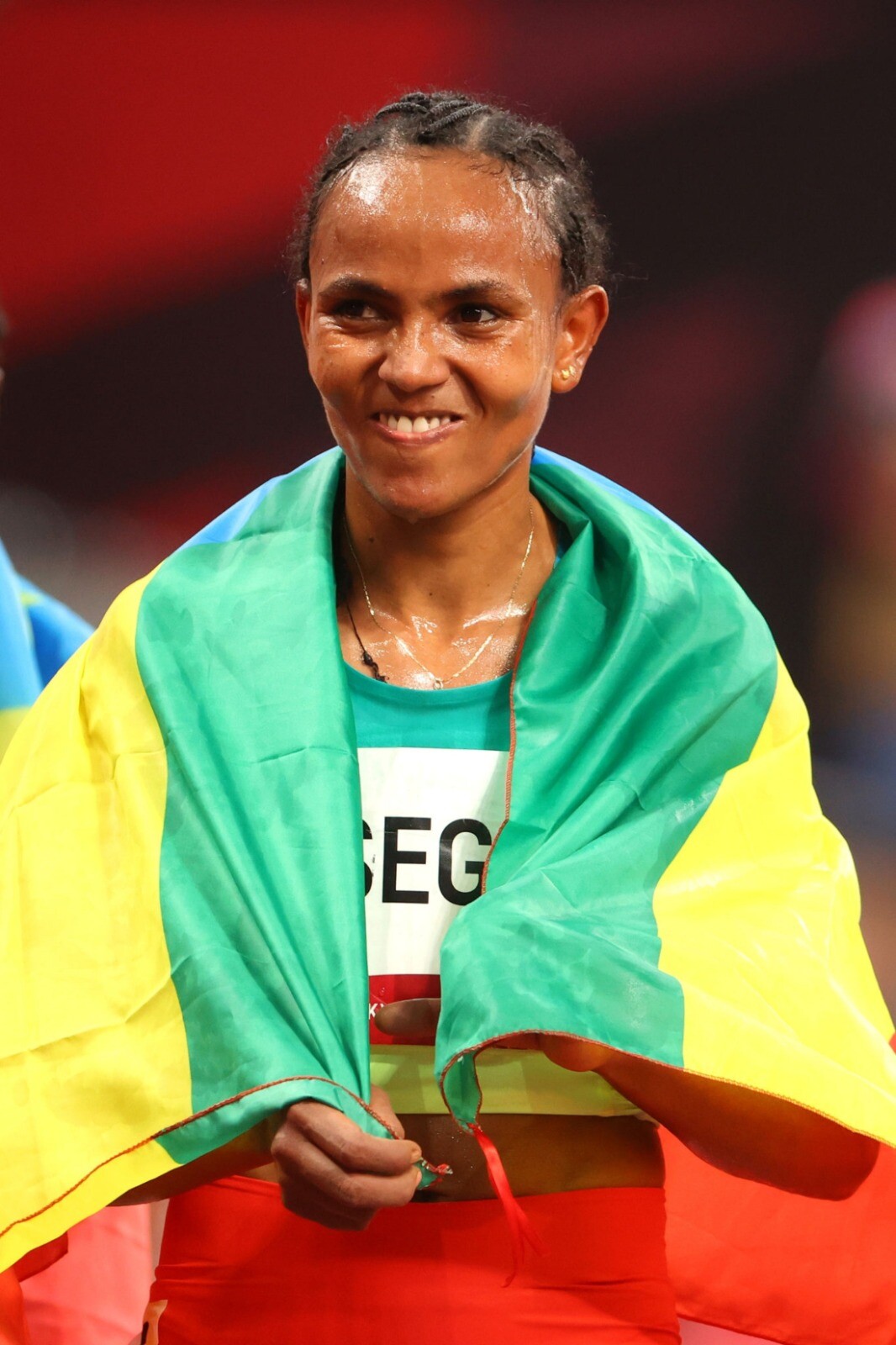
The 3,000 meters steeplechase will see Sembo Almayew and Lomi Muleta in action, and the marathon team includes Tigst Assefa, Amane Beriso, and Megertu Alemu, with Gotytom Gebreslase as reserve.
On the men's side, the team is equally impressive as Abdisa Fayisa, Samuel Tefera, and Ermias Girma will compete in the 1,500 meters.
The 5,000 meters team includes Hagos Gebrhiwet, Yomif Kejelcha, and Addisu Yihune, with Selemon Barega as reserve.
Kejelcha will also contest the 10,000 meters alongside Berihu Aregawi and Biniam Mehari, with Barega again as a reserve.
Lamecha Girma, alongside Samuel Firewu and Getnet Wale, will vie for victory in the men's 3,000 meters steeplechase, with Abrham Sime as reserve.
Ethiopia team to Paris
Women
800 meters: Tsige Duguma, Habitam Alemu, Werknesh Mesele, Nigist Getachew (Reserve)
1500 meters: Gudaf Tsegay, Birke Haylom, Diribe Wolteji, Hirut Meshesha (Reserve)
5000 meters: Gudaf Tsegay, Medina Eisa, Ejgayehu Taye, Freweyni Hailu (Reserve)
10,000 meters: Gudaf Tsegay, Fotyen Tesfay, Tsigie Gebreselama, Aynadis Mebratu (Reserve)
3000 meters Steeplechase: Sembo Almayew, Lomi Muleta
Marathon:Tigst Assefa, Amane Beriso, Megertu Alemu, Gotytom Gebreslase (Reserve)
Men
1500 meters: Abdisa Fayisa, Samuel Tefera, Ermias Girma, Teddese Lemi (Reserve)
5000 meters: Hagos Gebrhiwet, Yomif Kejelcha, Addisu Yihune, Selemon Barega (Reserve)
10,000 meters: Yomif Kejelcha, Berihu Aregawi, Selemon Barega, Biniam Mehari (Reserve)
Men's 3000 meters steeplechase: Lamecha Girma, Samuel Firewu, Getnet Wale, Abrham Sime (Reserve)
Marathon: Sisay Lemma, Deresa Geleta, Kenenisa Bekele, Tamirat Tola (Reserve)
20 km Race walk: Misgana Wakuma
by Festus Chuma
Login to leave a comment
Paris 2024 Olympic Games
For this historic event, the City of Light is thinking big! Visitors will be able to watch events at top sporting venues in Paris and the Paris region, as well as at emblematic monuments in the capital visited by several millions of tourists each year. The promise of exceptional moments to experience in an exceptional setting! A great way to...
more...Ruth Chepngetich set to conquer 2024 London Marathon amidst elite competition
Ruth Chepngetich is targeting victory and a record at the London Marathon against a strong field as she eyes Olympic selection.
Two-time Chicago Marathon champion Ruth Chepng’etich is poised for a challenging race at the 2024 London Marathon this Sunday.
Chepng’etich, a formidable competitor who secured third place in the 2020 edition of the event, is aiming for a strong performance, although she has not discounted the possibility of setting a new record.
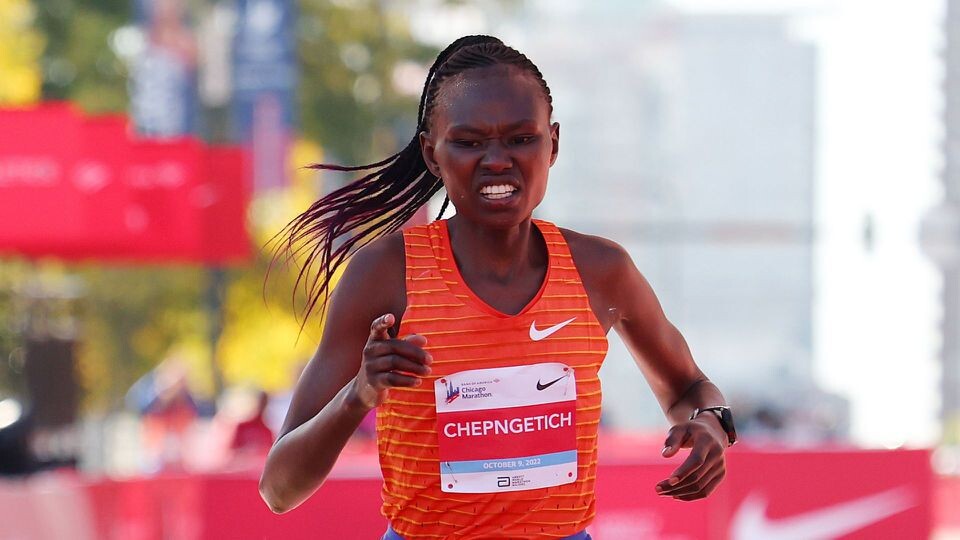
The pacemakers in the marathon will play a crucial role in maintaining the pace for the women's group, aiming to beat the women-only world record—a distinct possibility in London where the elite women compete in a separate event from the elite men and the larger mass of runners.
In a press conference ahead of the race, Chepng’etich expressed both enthusiasm and realism about her prospects against a competitive field.
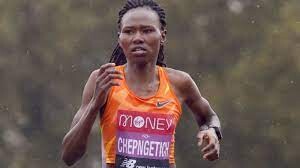
"I’m happy to be back after that race in 2020. I’m ready to run well, but the field is so strong," she stated.
Her main rivals include Ethiopia's Tigst Assefa, Kenya's Brigid Kosgei, Olympic champion Peres Jepchirchir, and Yalemzerf Yehualaw from Ethiopia, who won the London Marathon in 2022.
"Everybody here is chasing something. For me it’s about winning first, then I’ll think about setting records," she added.
The London Marathon has been a stage for numerous world records since its inception, with seven records broken to date, including Paula Radcliffe's unmatched 2:15:25 in 2003.
The marathon’s route, largely unaltered since 1981, takes runners through some of London’s most scenic landmarks, such as the Tower of London and the Houses of Parliament, starting from Greenwich Park and concluding on The Mall in front of Buckingham Palace.
Chepng’etich also touched upon her Olympic aspirations, noting the importance of the upcoming race for her selection to the Kenyan national team for the Paris Olympics.
"The Federation will make its selection after Sunday so we’ll see. But winning in London will be harder than in Paris," she noted.
by Festus Chuma
Login to leave a comment
TCS London Marathon
The London Marathon was first run on March 29, 1981 and has been held in the spring of every year since 2010. It is sponsored by Virgin Money and was founded by the former Olympic champion and journalist Chris Brasher and Welsh athlete John Disley. It is organized by Hugh Brasher (son of Chris) as Race Director and Nick Bitel...
more...World record holder Tigst Assefa out to make history in first London Marathon
World record holder Tigst Assefa hopes to set a new women’s-only best time in the TCS London Marathon on Sunday and believes it will be tougher to win than this year’s Paris Olympics.
Ethiopian Assefa smashed the world record in September when she finished the Berlin Marathon in two hours, 11 minutes and 53 seconds.
Next in Assefa’s sights is success in her maiden London Marathon and the women’s-only record, which is 2:17:01 and was set by Kenyan Mary Keitany at the 2017 event.
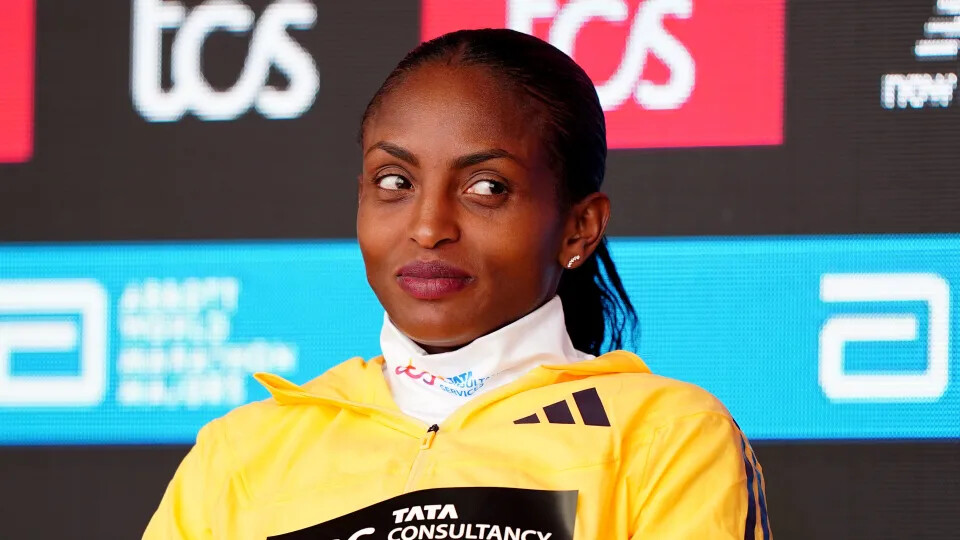
“I am very happy to be in London for the first time,” Assefa said via a translator.
“I did train very well for Berlin and I have trained well for this one. God will show how good I am on Sunday.
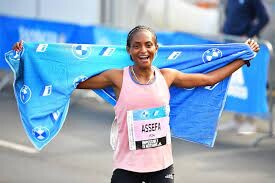
“I have prepared very well for this race and I am sure I can beat the course record here. As I am sure all my competitors here will feel as well.
“Regardless of whether it is London or Berlin, it will not change my strategy at all.
“I am here to win.”
Assefa took part in pre-race press duties on Thursday and was joined at the media centre in St James’ Park by Brigid Kosgei, Ruth Chepngetich and Peres Jepchirchir.
Kosgei of Kenya held the world record until Assefa broke it in September but has won the London Marathon twice.
All four athletes were asked if victory in Sunday’s 26.2-mile race would be harder than winning the marathon at the Paris Games after London Marathon race director Hugh Brasher suggested that would be the case on Wednesday.
Only Kosgei felt the Paris Games would be harder with Assefa, Chepngetich and Jepchirchir all in agreement this weekend’s strong field made Sunday’s race the most difficult to win.
After Kosgei failed to finish last year’s race due to injury, she revealed preparation this time had gone well.
“I am happy to be here again this year,” Kosgei said. “Last year when I reached here I was not feeling well.
“I have been preparing well in Kenya and I am ready.”
Olympic champion Jepchirchir finished third in 2023 and backed a women’s-only record to be set this weekend.
Jepchirchir added: “On Sunday I know the field is strong and I know it is not easy. We are running with strong ladies.
“For myself, when I see the field is strong, I see the (course) record on Sunday. Yes, may the best win.”
by George Sessions, PA
Login to leave a comment
TCS London Marathon
The London Marathon was first run on March 29, 1981 and has been held in the spring of every year since 2010. It is sponsored by Virgin Money and was founded by the former Olympic champion and journalist Chris Brasher and Welsh athlete John Disley. It is organized by Hugh Brasher (son of Chris) as Race Director and Nick Bitel...
more...Kosgei, Chepngetich, Jepchirchir headline stellar Kenyan cast in London Marathon chase
Three Kenyan women aim to break the women’s-only marathon world record at the 2024 TCS London Marathon.
Three of the top four fastest women in marathon history, all from Kenya, are set to take center stage at the 2024 TCS London Marathon, aiming to break the women's-only world record.
This elite trio, comprised of Brigid Kosgei, Ruth Chepngetich, and Peres Jepchirchir, are gearing up for what could be a historic race on the streets of London.
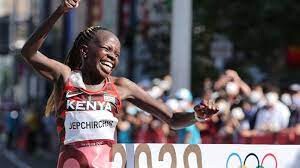
Brigid Kosgei, who previously set the world record at the 2019 Chicago Marathon with a time of 2:14:04, is the veteran of the group.
She has been in top form since breaking Paula Radcliffe's longstanding record and is no stranger to the pressures of big-city marathons.
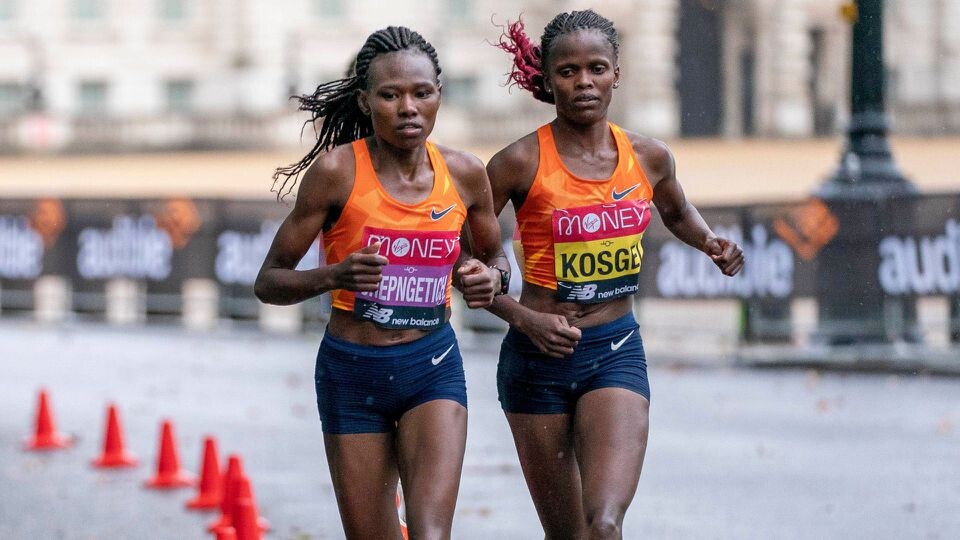
Joining Kosgei is Ruth Chepngetich, the fourth-fastest woman of all time with a personal best of 2:14:18.
Chepngetich's aggressive racing style and ability to maintain a blistering pace make her a serious threat to the current record.
Rounding out the trio is Peres Jepchirchir, the reigning Olympic champion.
Jepchirchir's tactical acumen and proven track record, especially in championship races, position her as a key challenger in this record-breaking attempt.
Her victory at the Tokyo Olympics showcased her endurance and determination, qualities necessary for a successful run in London.
The current women's-only world record was set by Mary Keitany during the 2017 London Marathon, with a time of 2:17:01.
However, with advancements in training and competition, this record has been under threat, particularly with the recent performances of these Kenyan athletes.
Hugh Brasher, Event Director of the TCS London Marathon, emphasized the significance of this race in the context of marathon history.
"We are in a golden age of women’s marathon running," said Brasher. He added, "Despite the incredible achievements in recent years, Mary Keitany’s record has remarkably stood the test of time.
However, with athletes like Kosgei, Chepngetich, and Jepchirchir in the field, alongside ten other women who have all run under 2:17:30, that record is under serious threat."
The race strategy for Kosgei, Chepngetich, and Jepchirchir will likely involve a collaborative effort with pacemakers to ensure a fast, consistent pace throughout.
The London Marathon's unique setup, with elite women running separately from the men, provides an optimal environment for record-breaking performances.
Additionally, the event will feature other top-tier athletes, including Ethiopia’s Tigst Assefa, the current world record holder, and Yalemzerf Yehualaw, the 2022 TCS London Marathon champion.
by Festus Chuma
Login to leave a comment
TCS London Marathon
The London Marathon was first run on March 29, 1981 and has been held in the spring of every year since 2010. It is sponsored by Virgin Money and was founded by the former Olympic champion and journalist Chris Brasher and Welsh athlete John Disley. It is organized by Hugh Brasher (son of Chris) as Race Director and Nick Bitel...
more...World record in danger! Three of the top four fastest women confirmed for London Marathon
The world record will be in danger with three of the top four fastest women in the history having been confirmed for the 2024 London Marathon.
World marathon record holder Tigst Assefa will brace up for a tough battle at the 2024 London Marathon that has attracted three of the top four fastest women in history.
The strong field assembled for the assignment on Sunday, April 21 will be keen to ensure that the women’s world record goes down one more time after being lowered during the 2023 Berlin Marathon.
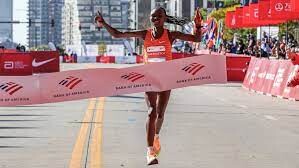
The record was set by Assefa, who became the new world record holder when she ran an incredible 2:11:53, obliterating the previous best mark of 2:14:04 set by Brigid Kosgei during the 2019 Chicago Marathon.
Assefa and Kosgei will now clash for the first time with Kosgei going for the world record which she noted belongs to Kenya.
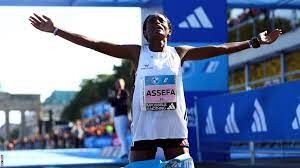
Others with eyes on the record include Ruth Chepng’etich, the fourth-fastest woman of all time (2:14:18), Peres Jepchirchir (Kenya), the reigning Olympic champion, and Yalemzerf Yehualaw (Ethiopia), the 2022 TCS London Marathon champion.
Pacemakers will be tasked with keeping the leading women on track for the women’s-only world record, which is possible at the TCS London Marathon as the elite women run a separate race to the elite men and masses.
Hugh Brasher, Event Director of the TCS London Marathon, said: “We are in a golden age of women’s marathon running.
“When Paula Radcliffe ran her incredible world record of 2:15:25 at the 2003 London Marathon, we had to wait 16 years for Brigid Kosgei to beat it.
“But since then, a further four women have run faster than Paula’s time including Tigst Assefa, who lowered the world record even further with her stunning run in Berlin last year.
“Despite this, the women’s-only world record of 2:17:01, set by the great Mary Keitany here at the London Marathon in 2017, has amazingly stayed intact.”
He added that however, he suspects that with Assefa, Kosgei and the likes of Chepng’etich, Jepchirchir and Yehualaw in the field, the world record is going to be under serious threat at the 2024 TCS London Marathon.
by Abigael Wuafula
Login to leave a comment
TCS London Marathon
The London Marathon was first run on March 29, 1981 and has been held in the spring of every year since 2010. It is sponsored by Virgin Money and was founded by the former Olympic champion and journalist Chris Brasher and Welsh athlete John Disley. It is organized by Hugh Brasher (son of Chris) as Race Director and Nick Bitel...
more...Shoe tech advances is the key reason why the winning time at the Paris Olympics marathon could be under two hours
Racing shoe tech advances is helping bring the sub-2 hour marathon ever closer, but will barrier finally be broken in France?
The winning marathon time at the 1924 Paris Olympics was more than 40 minutes slower than the 2:00:35 run by Kelvin Kiptum in Chicago in 2023
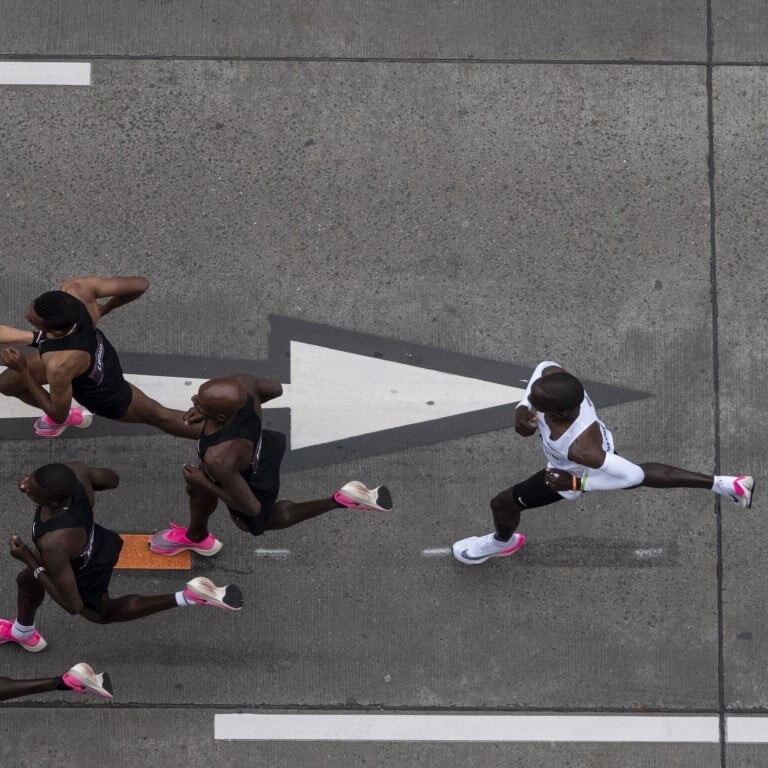
With shoe technology advancing by the day, an official marathon time of below two hours is seemingly just months away.
A century after the 1924 Paris Olympic men’s marathon was won by Finn Albin Stenroos in two hours, 41 minutes and 22 seconds, next year’s Games in the same city could feature the first official sub-two hour time for the distance after 2023 saw more barriers smashed.
Kenya’s double Olympic champion Eliud Kipchoge, who dipped under two hours with his unofficial Ineos challenge run in 2019, had dragged the record down to 2:01.09 in 2022.
But in October this year compatriot Kelvin Kiptum stunned the sport when the 23-year-old took more than half a minute off the great man’s mark to post 2:00.35 in Chicago to kick-start talk of when, rather than if, a legal sub-two would arrive.
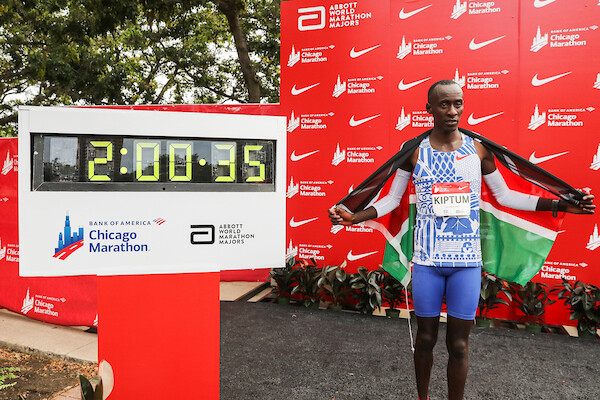
That came two weeks after Ethiopia’s Tigst Assefa took more than two minutes off the women’s record with 2:11.53 - a time that would have been the men’s world record until 1967.
Talented and hard working though both champions are, the key component of their incredible times was unquestionably the latest developments in shoe technology that has made comparisons with earlier eras, even last decade, largely meaningless.
(First photo) Adidas CEO Bjorn Gulden, holds a shoe worn by Ethiopia’s Tigist Assefa when she set a new women’s world record at the Berlin Marathon.
Kipchoge’s performances opened the world’s eyes to the condensed foam, carbon-plated super shoes Nike claimed could increase running efficiency - the amount of oxygen consumed per minute - by 4 per cent.
Soon, every major race start line was awash with the trademark dayglow Nike Vaporfly and Alphafly.
Although the sport’s governing body, World Athletics, tried belatedly to rein things in with their stack height regulations in 2020, the genie was out of the bottle and it did not take long for other companies to close the gap.
Assefa ran Chicago in a new Adizero Adios Pro Evo 1 shoe, retailing at just under US$500. It conforms to the 4cm height rule but, at 138 grammes, weighs about 40 per cent less than any previous Adidas racing shoe.
The latest theory around the shoes is that the carbon plates have only a limited effect and it is the “barely-there” weight, combined with the energy-return cushioning and “rockers”, that prevents the fatiguing impact of previous thin-soled “racing flats” and allows athletes to maintain their optimum speed for longer.
Adidas says its newest shoes are “enhanced with unique technology that challenges the boundaries of racing” and highlight a foot rocker that it claims triggers forward momentum and further enhances running economy.
Nike is not about to hand over the baton just yet, however, as Kiptum achieved his record in yet another prototype, the Alphafly 3, also worn by women’s Chicago champion Sifan Hassan, who took almost five minutes off her personal best with the second-fastest women’s time ever of 2:13.44.
It was a similar story in several athletics events at the 2021 Tokyo Olympics where a combination of a fast track and revolutionary spikes produced some jaw-dropping records.
Such is the sport’s seeming obsession with times rather than races that the pressure to keep installing faster tracks and allowing ever more beneficial shoes shows no sign of abating.
The Paris Olympic athletics programme will undoubtedly produce magical moments, but it is photographs of athletes posing by their world record time on the finish line clock that usually claim the front pages.
Login to leave a comment
Paris 2024 Olympic Games
For this historic event, the City of Light is thinking big! Visitors will be able to watch events at top sporting venues in Paris and the Paris region, as well as at emblematic monuments in the capital visited by several millions of tourists each year. The promise of exceptional moments to experience in an exceptional setting! A great way to...
more...How Long Do Super Shoes Last? Here’s What the Latest Data Says.
Fancy new midsole materials like PEBA make you faster, but at the cost of durability
The eternal question of how long your running shoes should last became suddenly topical a few months ago, when Tigst Assefa set a world marathon record in what Adidas billed as essentially a single-use marathon shoe. This development sparked some important discussions about sustainability, accessibility, and fairness. But it also served as a reminder of how little we actually know about the useful life of running shoes, especially in the new era of thick-foamed super shoes.
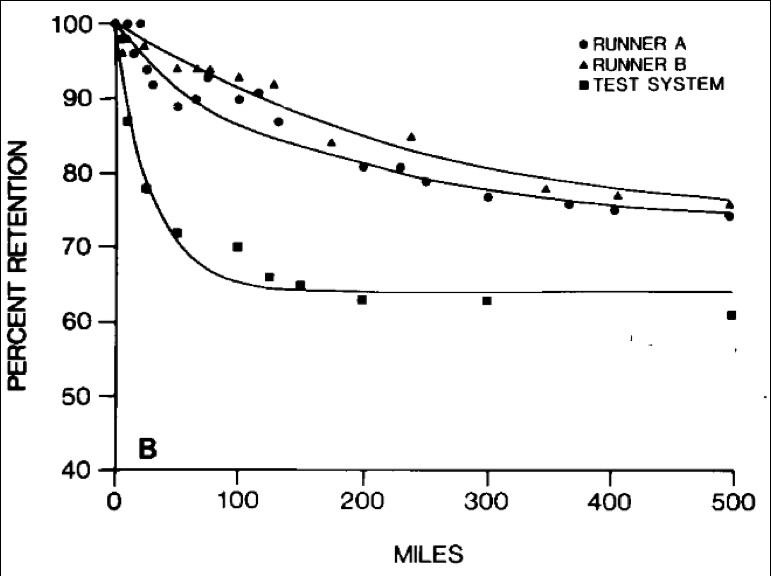
Fortunately, there’s some interesting new data in a study from researchers in Spain, led by Victor Rodrigo-Carranza of the University of Castilla-La Mancha. In the Scandinavian Journal of Medicine and Science in Sports, they compare shoes made with a modern super foam to a traditional EVA midsole before and after 280 miles, and find that the new midsole does indeed lose its magic more quickly—so much so, in fact, that the super shoe is no better than the regular shoe at that point.
Before digging into the specifics of the new study, it’s worth sketching in some context. The conventional wisdom that I’ve heard throughout my running life is that shoes typically last somewhere between 300 and 500 miles. This is based on some mix of cumulative experience and imperfect data, some of it published and some presumably locked away in shoe-company filing cabinets.
For example, there’s a 1985 study that measured shock absorption at frequent intervals between 0 and 500 miles, using a machine to simulate the impacts of running as well as two volunteers who racked up 500 real-life miles. Here’s an example of how shock absorption changed with mileage for one particular shoe:
The machine version of running obviously didn’t replicate the demands of in-person running very well, but the two human volunteers show similar patterns. Overall, the human testing found that shoes retained about 80 percent of the shock absorption after 150 miles, and 70 percent after 500 miles. You can see that the curve flattens out between about 300 and 500 miles, which is presumably where the conventional wisdom on shoe lifespan comes from. Conversely, you could argue that once you’re past 300 miles, the shock absorption isn’t going to drop much further, so if you’ve made it that far you might as well keep running in them until they (or you) fall apart. More on that below.
You might wonder whether shock absorption, as measured by a hydraulic machine, is really what matters to runners. More recent research has looked at other metrics: this 2020 study, for instance, used force-sensing insoles to measure the peak pressure on different parts of the foot, testing how it changed as a New Balance 738 shoe went from new, to 215 miles, to 430 miles. As the image below shows, the highest pressures are seen in the midfoot and forefoot:
Those pressures stayed virtually unchanged after 430 miles—but the midfoot peak pressure increased from 388 to 450 to 590 kilopascals, a 50 percent jump. It’s not clear exactly why the midfoot pressure increases. It could be that the relative lack of cushioning in the midfoot makes it less durable; it could be that the higher pressures on the rearfoot and forefoot break down the cushioning in those regions and shift load to the midfoot. Either way, it’s clear that the objective load on the foot has changed after 430 miles. And interestingly, the perceived cushioning reported by the volunteers picked up this change: those who reported feeling less cushioned in the midfoot in the worn shoes did indeed tend to have the highest peak midfoot pressures.
So the overall picture in the pre-super-shoe era was fairly muddy, but basically supported the view that shoes progressively lose their cushioning and reach bottom somewhere in that 300 to 500 mile range. Then came Nike’s Vaporfly in 2017, using a carbon fiber plate and a thick layer of cushioning to promise better running economy in exchange for a few hundred bucks—and, in the footnotes, less durability. The unsourced number that I frequently heard floating around after the Vaporfly’s release was that you should trust them for 100 miles or so.
It’s worth pausing here to say a few words about running shoe foams. Carlos Sánchez at RunRepeat has an impressive and exhaustive primer on the huge range of high-performance foams now on the market, which is worth digging into if you’re interested. A highly simplified history is that most running shoes used to use EVA (ethylene-vinyl acetate), then in 2013 Adidas’s Boost made TPU (thermoplastic polyurethane) popular, and then in 2017 Nike’s Vaporfly made PEBA (polyether block amide) the state-of-the-art. One study found that energy return was 66 percent for EVA, 76 percent for TPU, and 87 percent for PEBA.
While there’s been plenty of chatter about carbon-fiber plates, the weight of evidence is increasingly that most of the magic in super shoes comes from the foams. Unfortunately, the very property that makes them so good—their ethereal lightness—also makes them less durable. Of the more than three-dozen modern foams that Sánchez reviews, the main differences arise from the tweaks manufacturers make to trade off performance and longevity (along with price, of course). That makes it hard to issue general guidance about how long super shoes last: it depends on the shoe and the foam.
Still, one data point is better than zero, which brings us back to Rodrigo-Carranza’s study. The shoes he used were special prototypes manufactured for the study by On, almost identical except that one set had an EVA midsole while the other had a PEBA midsole. Both versions had a curved carbon-fiber plate. Twenty-two volunteers performed a running economy test to measure how much energy they burned at a given pace, once in fresh shoes and once in pre-worn shoes. (The researchers themselves ran exactly 280 miles in each pair of shoes to pre-wear them.)
One key finding: energy consumption in the new PEBA shoe was 1.8 percent lower than in the new EVA shoe. That bolsters the case that the foam itself is a big part of the magic, since both shoes had carbon fiber plates. (Not all PEBA foams are created equal, so we don’t know if On’s foam is as good as Nike’s ZoomX.) The other key finding: after 280 miles, there was no significant difference between the two shoes. The EVA shoe didn’t lose anything at all, whereas the PEBA shoe got 2.2 percent worse.
It’s not worth making any grand extrapolations from a single datapoint about when one type of shoe gets better than the other. Who knows what happens after 280 miles? For that matter, who knows what happened after 26 miles? Moreover, there are lots of other factors that might be relevant. One of the interesting claims in Sánchez’s review is that super foams maintain their properties even in frigid winter conditions, while EVA-based foams get much more rigid. In some shoes, firmness more than doubled after Sánchez’s freezer test. Maybe a worn-out super shoe is still a better bet than a newer EVA shoe for those of us who are latitudinally challenged. He also notes that shoe foams take more than 24 hours to recover from a run, and some recover faster than others, so it makes sense to alternate different pairs in order to maximize both comfort and shoe lifetime.
My own approach to shoe durability is, admittedly, not one that’s easy to generalize. I generally have two or three pairs on the go at any given time, and I run in them until they start to feel flat. It’s a noticeable sensation, especially if one of the other pairs in my rotation is relatively new and bouncy. Then, in the spirit of that graph above showing a plateau after about 300 miles, I keep running in them—but I pay more attention to how I feel during and after runs, and to whether the wear on the outer sole is changing the angle of my footstrike. Once I start to feel a few aches and pains, I retire the flat shoe. That approach works pretty well to keep me healthy, but the new data suggests that it’s probably not maximizing my performance. Anyone want to buy a pair of gently used six-year-old OG Vaporflys?
Login to leave a comment
Americans Kellyn Taylor and Molly Huddle Are Ready to Race the New York City Marathon
The women's professional lineup for the 2023 New York City Marathon on November 5 packs a wallop. Barring any late withdrawals, we can look forward to a showdown among a defending champion, an Olympic champion, a former marathon world record holder, the current half marathon world record holder, and the 2023 Boston Marathon champion.
While fast times aren't usually the main objective in New York, a race that traditionally favors tactics and competition over pace on an undulating 26.2-miles through the city's five boroughs, we just may see the course record--2:22:31, set all the way back in 2003--go down.
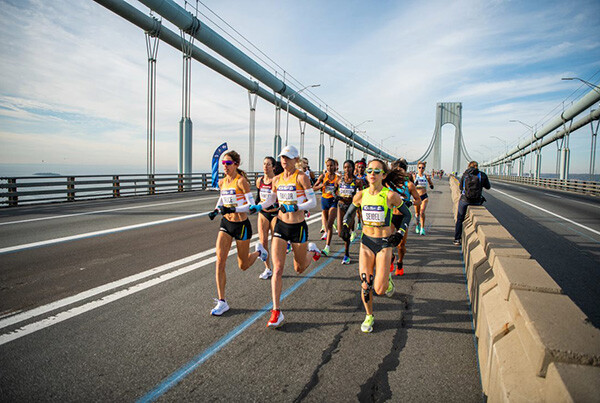
Last year's surprise winner Sharon Lokedi of Kenya is returning to defend her title. The 2022 race was her debut at the distance and she aced her first test in 2:23:23, though since then, she's coped with a foot injury that kept her out of the Boston Marathon in April. Hellen Obiri, also of Kenya, is back, too--her first attempt at the marathon was also last year in New York, finishing sixth (2:25:49). Obiri went on to win the 2023 Boston Marathon in April, lowering her personal best to 2:21:38.
Kenyan Brigid Kosgei, who broke the marathon world record in 2019, finishing Chicago in 2:14:04 (since bettered in September at the Berlin Marathon by Ethiopian Tigst Assefa in 2:11:53) is also returning from injury after dropping out of the 2023 London Marathon in the first mile.
Joining these top contenders are 2021 Olympic marathon champion Peres Jepchirchir, also of Kenya, who won the 2021 New York City and 2022 Boston marathons and owns a 2:17:16 personal best, and Ethiopia's Letesenbet Gidey, the 2022 world champion in the 10,000 meters, ran the fastest marathon debut in history at the 2022 Valencia Marathon with a 2:16:49 effort.
The American women's field this year is small, because most athletes opted for earlier fall races, like the Chicago Marathon, to allow for more recovery time before training begins for the U.S. Olympic Trials, scheduled for February 3, 2024, in Orlando, Florida. But Molly Huddle and Kellyn Taylor are each making their return to the distance on Sunday after giving birth to their daughters in 2022--Huddle welcomed Josephine in April and Taylor welcomed Keagan in December (in addition to their eldest daughter, who is 13 years old, the Taylor family adopted a five-year-old son and almost-two-year-old daughter, growing the family to four children in the past 13 months).
Huddle, 39, and Taylor, 37, both said it was important to them to get in a healthy marathon training cycle and race experience prior to the U.S. Olympic Trials, to get back in the routine and fitness they'll utilize in preparation for 2024.
"Obviously you want to be able to finish 26.2 miles and have that fresh in your mind, but also the buildup, the marathon work--I've gotten pretty far away from that just with the pregnancy and postpartum," said Huddle, a two-time Olympian in the 5,000 and 10,000 meters, who placed third at the 2016 New York City Marathon (2:28:13) in her debut at the distance. "This is supposed to be a building block toward the workload that you need for the Trials--I'm going to have to try and inch my way back a little closer to what I'd ideally do for a marathon buildup."
Huddle hasn't started a marathon since the 2020 Trials in Atlanta, which she dropped out of at the 21-mile mark. She hasn't finished a marathon since April 2019, when she lowered her personal best to 2:26:33 with a 12th-place finish at the London Marathon. However, she did run two relatively fast half marathons this year, including a fifth-place, 1:10:01 effort at the Houston Half Marathon in January.
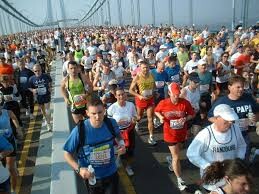
Taylor's last marathon was two years ago in New York, where she placed sixth in 2:26:10. In September, she finished seventh in the U.S. 20K Championships in New Haven, Connecticut, in 1:08:04.
Going into the 2023 New York City Marathon, here's what the two top Americans had to say as they reflected on their postpartum experiences and goals for their first 26.2-mile race back:
They would have preferred to race the Chicago Marathon because of the timing.
Huddle, who is the former American record holder in the half marathon, 5,000 meters, and 10,000 meters, was hoping to make her postpartum comeback on a flatter, faster course like the October 8 Chicago Marathon, which would have also afforded an additional three weeks of time until the U.S. Olympic Trials. Taylor, who placed eighth at the 2020 Trials in Atlanta and owns three top-10 finishes in New York, agreed that Chicago's timing would've been more ideal. Neither of them were accepted into the professional field, however.
"We birthed humans. We were still running--it's not like we've been sitting on the couch eating Cheetos for a year," Taylor said. "It didn't work out and that's fine. I'll go where I'm wanted, so it doesn't really bother me that much--we'll still have 11 weeks until the Trials, and New York's my favorite marathon, hands down. I love the course. I love the people."
Huddle is also looking forward to racing in New York.
"They've always been happy to have me and that was important. I love racing through the city," she said. "My only concern was it's a very challenging course and there probably won't be any PRs happening, so I'll have to chase that later in the next year and a half."
A spokesperson for the Chicago Marathon said in an email message, in part, that the race officials "weigh many factors including performance standards, athlete interest, event resources, and operational considerations," when choosing athletes to accept into the professional race each year. "While our goal is to host as many athletes as possible, there are years where demand to participate exceeds the resources available and operational needs to host a professional race," the spokesperson wrote.
Huddle attributes her injury in the spring (mostly) to breastfeeding.
In March, Huddle experienced her first major bone injury of her career--a femoral stress fracture--which took her out of training for three months. After talking with her medical team, she's fairly convinced that her dietary needs weren't being met while breastfeeding. Since then, she's learned to adjust her fueling to account for what she loses not only to training, but also feeding her daughter.
"I refer to it as my body's new rules, because old me always knew how to fuel and I knew what I could handle workload-wise," Huddle said. "Now there is just more taxing the system and there's less time to mindfully refuel."
Taylor is finding much more camaraderie this time around.
When Taylor had her first daughter 13 years ago, not many fellow competitors had children. This time, however, she is finding a plethora of support from elite distance running moms.
In 2010, pro athletes also couldn't find much, if any, information about how to safely train through pregnancy and postpartum. And although solid research still lags, plenty of athletes are ready and willing to share their experiences with each other, which Taylor didn't have the first time around.
"It's become really helpful to be able to text each other and just directly ask how they handled one thing or another," Taylor says. "There isn't necessarily a lot of information, but with the network of athletes that have kids, I feel like there's more coming out now."
Huddle and Taylor each took a bit more conservative approach to training for New York this time. In the past, Taylor's peak weekly mileage could go as high as 130, but this time around she topped out around 112 miles. Similarly, Huddle's mileage prior to pregnancy would hit around 115 and this time she kept it to about 80 miles per week and substituted an Elliptigo session for a second run some days.
Their goals for Sunday run the gamut.
Despite a severe lack of sleep, Taylor's recovery from pregnancy and childbirth has gone exceedingly smoothly, she said, emphasizing that everybody's return is different and she believes she just lucked out with her genetics.
Knowing that she'll face a stellar international field on Sunday, Taylor is ready to run an aggressive race, targeting a 2:23 finish. (Her personal best is 2:24:29 from 2018 at Grandma's Marathon in Duluth Minnesota, but that was before the adventure of super shoes.)
"I think I'm in a really good position. I think I have the potential to run really well," said Taylor, who will wear Hoka Rocket X 2 shoes. "I think I can run 2:23 on a good day and that could put me in the hunt to do something, depending on how the race plays out."
Huddle has more of a wait-and-see approach, though, she notes, it is the first marathon in which she'll race in super shoes. She'll race in the Saucony Endorphin Elite shoes.
"I just don't think I'm going to be hanging with the world record holders, so I'm going to let them go do their thing," Huddle said. "I'm just focusing more on myself and just seeing what I can do."
It'll be a learning experience for the U.S. Olympic Trials.
The duo will each have a bigger fanbase than ever with their families coming to New York to support them. It's also an opportunity to see how they can organize the logistics of racing, childcare, and race prep ahead of the Trials in February.
Huddle, who is also raising money for &Mother, a nonprofit organization that supports athletes who pursue their career goals while parenting, as part of her marathon experience on Sunday, is hoping she will be done breastfeeding by February, but New York will serve as a test run in case she is not.
"I think it'll be interesting just seeing what the routine is like with my family, how we're going to shuffle everyone around with childcare and sleeping arrangements," Huddle said.
For Taylor, an additional hotel room was necessary to accommodate the whole family--and she couldn't be happier to have everybody there.
"It's going to be complete chaos," she said, laughing. "My parents are coming, so they're going to be the saving graces."
by Women Running
Login to leave a comment
TCS New York City Marathon
The first New York City Marathon, organized in 1970 by Fred Lebow and Vince Chiappetta, was held entirely in Central Park. Of 127 entrants, only 55 men finished; the sole female entrant dropped out due to illness. Winners were given inexpensive wristwatches and recycled baseball and bowling trophies. The entry fee was $1 and the total event budget...
more...Reigning Olympic marathon champion Peres Jepchirchir will be eyeing her second win in the streets of New York and she will be banking on her super shoes to propel her to victory
Peres Jepchirchir is banking on her Ksh 75,275 super shoes to propel her to victory at the New York City Marathon.
Reigning Olympic marathon champion Peres Jepchirchir is one of the key headliners at Sunday’s New York City Marathon.
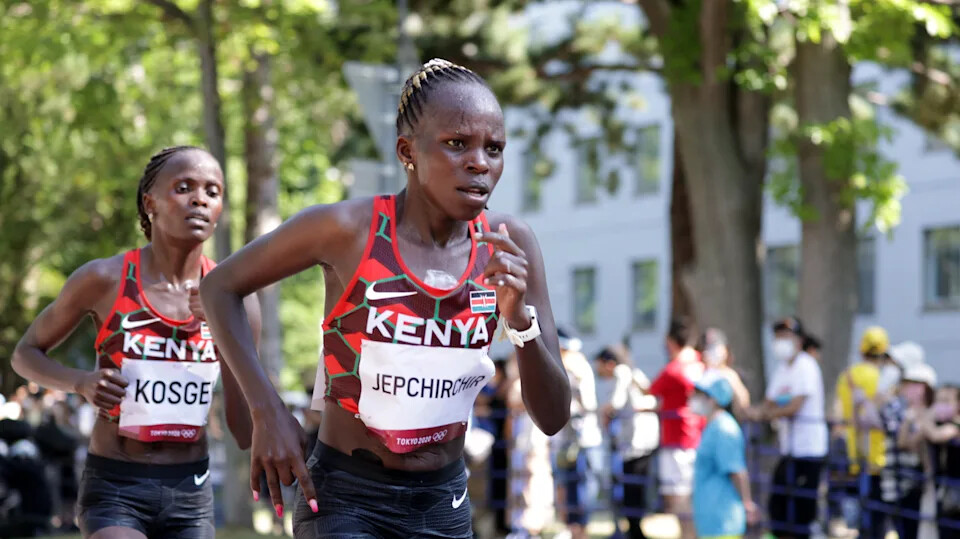
Jepchirchir will be eyeing her second win in the streets of New York and she will be banking on her super shoes to propel her to victory.
The 2022 Boston Marathon champion clinched her first victory in the streets of New York in 2021 and intended to defend her title last year but an injury setback saw her postpone her title defense to this year.
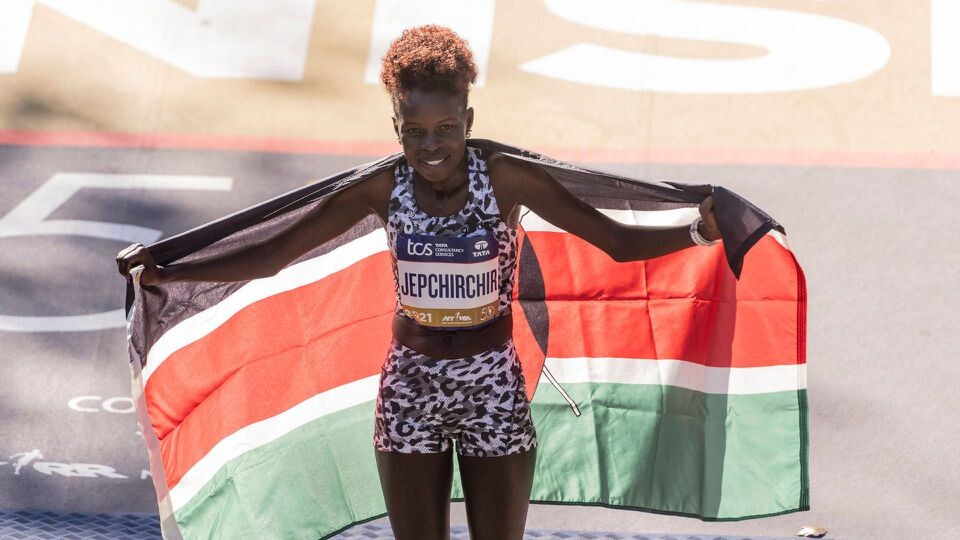
She hopes her super shoes will work wonders for her like they did for Tigst Assefa who broke the women’s world record at the Berlin Marathon. The super shoes also worked for Kelvin Kiptum on his way to victory at the Chicago Marathon where he also broke the world record.
Because she’s sponsored by Adidas, she had preliminary access to the recently-released Adizero Adios Pro Evo 1—the ultralight but expensive, Ksh 75,275, the latest player in the super shoe game. She used the shoes while winning at the World Road Running Championships in Riga, Latvia.
“I was one of the early testers for the shoe when Adidas was first developing it. I was impressed by how much technology was in the shoe, despite it being so light.
I expect (the shoe) to continue to help me achieve my peak performance I am confident these shoes give me the best possible chance of winning in New York,” she told Runner’s World.
Jepchirchir also explained that the streets of New York are one of her favorite places to run and she will be keen to record her second win.
She opened her season with a third-place finish at the London Marathon before winning the Half Marathon in Riga.
More imminently, Jepchirchir has her sights set on earning her second New York City Marathon title. She says she’s excited to do some people-watching and take in the views of the city, but above all, she’ll look to capitalize on her fitness.
Coming out of an injury setback, she wants to test her prowess one more time against a strong field.
“I am finally feeling like my strongest self again. I am eager to show what I can achieve in one of my favorite races in the world,” she said.
by Abigael Wuafula
Login to leave a comment
TCS New York City Marathon
The first New York City Marathon, organized in 1970 by Fred Lebow and Vince Chiappetta, was held entirely in Central Park. Of 127 entrants, only 55 men finished; the sole female entrant dropped out due to illness. Winners were given inexpensive wristwatches and recycled baseball and bowling trophies. The entry fee was $1 and the total event budget...
more...Matea Parlov Kostro: How she became a Croatian Sports Star
The German roads are much to Matea Parlov Kostro’s liking. Within little more than six months she has celebrated both the biggest success of her career to date and her greatest win. In August 2022 she won the silver medal at the European Championships in Munich which turned her at a stroke into a Croatian Sports Star.
This was the first medal won by a Croatan woman in a running event in almost a century of the European Championships. Then in May this year she enjoyed her biggest victory so far. The athlete from Zagreb won the Hanover Marathon, breaking both the course record and her personal best with 2:25:45. This performance placed the 31-year-old firmly among the very best of the European marathon running elite. Now she will run Sunday’s Mainova Frankfurt Marathon.
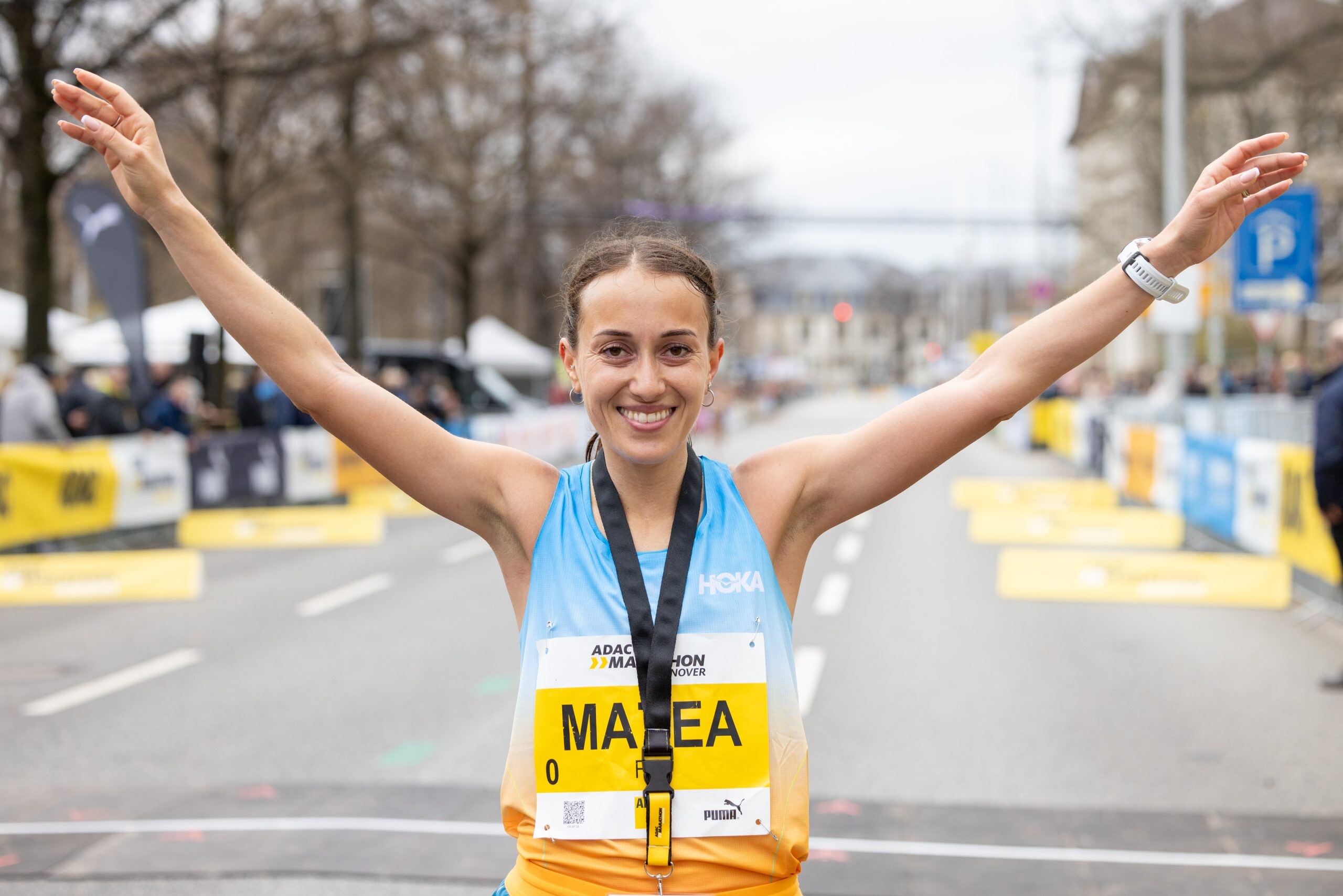
“I decided to run the Mainova Frankfurt Marathon because it’s a fast race with a high-quality field. I always feel good when I run in Germany, that was another factor in Frankfurt’s favour. Another reason was that I am so looking forward to the spectacular run to the finish line in the Festhalle,” explained Matea Parlov Kostro before Sunday’sMainova Frankfurt Marathon. “My form is better than ever, the performances in training are better than before the European Championships. I have had a slight cold but feel good now.”
"I’m happy that I no longer have to worry about making the Olympic qualifying time, I’ve made sure of my ticket to Paris. But I want to run a personal best so, of course, there’s always some form of pressure to perform.”
Her first sport wasn’t running but handball. “Then one day a sports teacher asked if I wanted to run a 600m race on the track for the school. It meant I didn’t have to go to school that day, so I did it, not that I was bad at my studies, on the contrary.” She finished third off no specific training and her talent was immediately evident. The Croatian’s career was off and running.
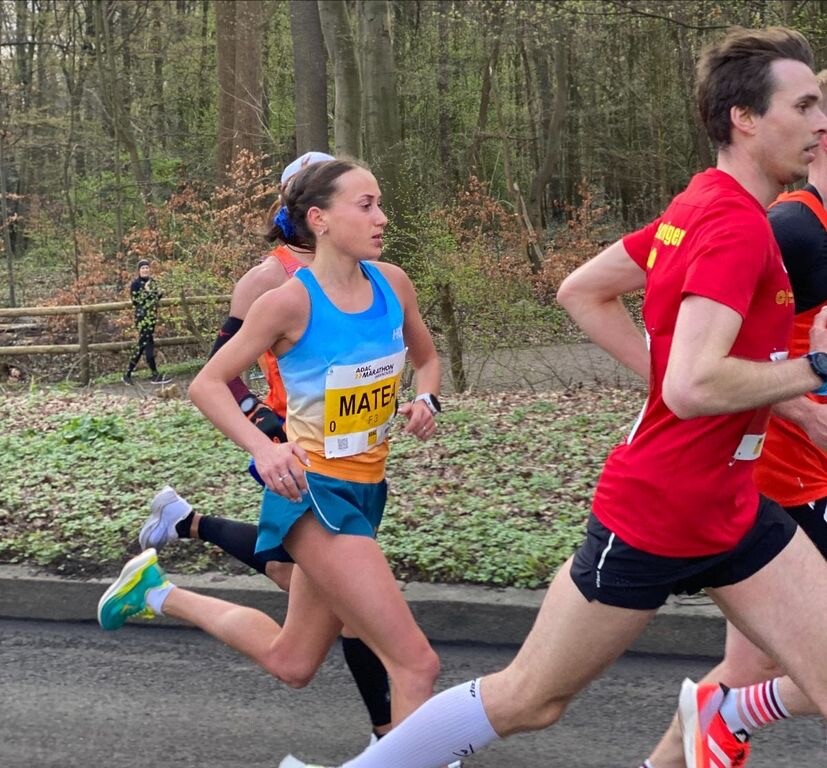
At first she ran middle distance but did not have enough speed over 800 and 1500m to make an impression internationally. Her performances over the longer distances were better, however. She ran 9:08.49 for a Croatian record over 3,000m. Road racing offered still more potential and she has concentrated on this more since 2018, making her marathon debut in Berlin in that year with 2:38:05. She had made great strides since then, literally. At the Valencia Marathon in 2020 she emerged from the lockdown of the Corona pandemic to break 2:30 for the first time, running 2:28:52. This ensured Olympic qualification. Competing in the 2021 Olympic, held in Sapporo, she achieved a highly creditable 21st place in extreme heat.
She made big improvement on her shorter distance speed as well in 2022, running a personal best for 10km of 31:54 in Berlin, which stood her in good stead for her eventual silver medal in the marathon at the European Championships later that year.
This race transformed her life. “Without a medal, you’re a nobody in Croatia, but when you win one, you’re a star overnight,” explained Matea Parlov Kostro. “I don’t earn much more money but am regularly invited to appear on TV programmes and people speak to me on the street and want to take a photo of me, especially after a training run when they’ve seen me.”
What does she think of the stupendous women’s world record by the Ethiopian Tigst Assefa, running 2:11:53 in Berlin? “When I saw the time, I was shocked. I wouldn’t have thought it possible that a woman could run so fast. And she didn’t show any weakness during the race after 30 kilometres, it was astonishing.”
The best Europeans have in the past consistently achieved high finishing places and even won medals at the Olympic Games. Asked if she dreamed of winning an Olympic medal in Paris, Matea Parlov Kostro replied: “Of course, an Olympic medal is the dream. But that’s not realistic, the African women are simply too strong.”
Login to leave a comment
Mainova Frankfurt Marathon
Frankfurt is an unexpectedly traditional and charming city, with half-timbered buildings huddled in its quaint medieval Altstadt (old city), cosy apple wine taverns serving hearty regional food, village-like neighbourhoods filled with outdoor cafes, boutiques and street art, and beautiful parks, gardens and riverside paths. The city's cache of museums is second in Germany only to Berlin’s, and its nightlife...
more...Peres Jepchirchir shares why it will take time to break the women's world record again
Peres Jepchirchir has shared her insights on why it will take longer for the women's marathon world record to be broken.
The streets of Berlin witnessed a historic moment on September 27 when Ethiopia’s Tigst Assefa shattered the women-only world record.
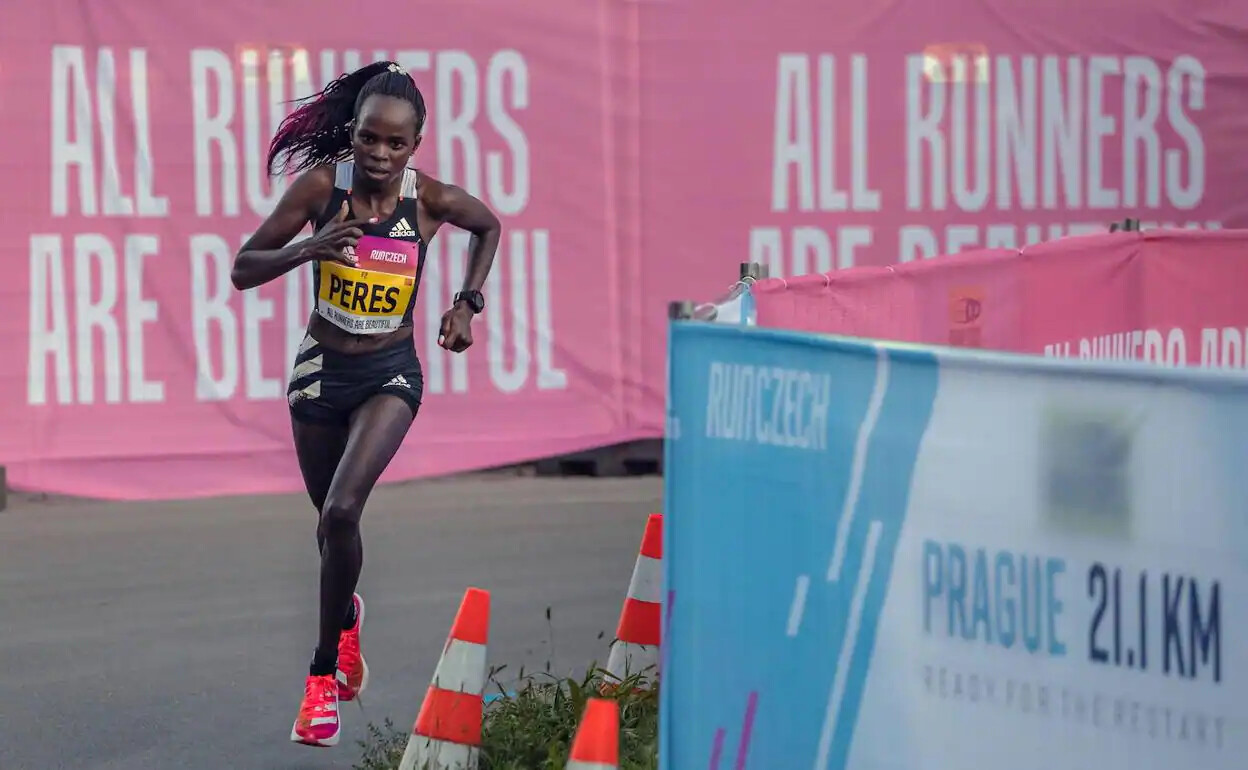
Assefa clocked 2:11:53 to completely obliterate Brigid Kosgei’s world record time of 2:14:04. Having clocked that time, the Ethiopian became the first woman in history to have run under 2:12:00.
Kosgei had set the world record in 2019 and in less than five years, it has already been shattered. However, Olympic champion Peres Jepchirchir has admitted that lowering Assefa’s world record time will definitely take more time.
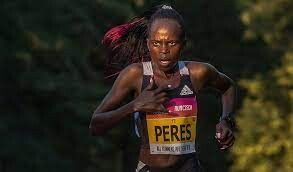
“For now, it’s difficult, 2:11:00 is a very difficult barrier to break. Maybe it will take some years to break that barrier.
It took time to break Kosgei’s record and it was 2:14…but for this world record, it will take more time. I know we are strong ladies and we will break it one day.
If it will not be me, then my colleagues will definitely break it and make history,” Jepchirchir explained.
The 2022 Boston Marathon champion will be heading to the streets of New York for the New York City Marathon on November 2.
She noted that she does not intend to go for a world record on the course since it is not suitable for a world record. However, she is bullish about reclaiming her title that she won during the 2021 New York City Marathon.
She missed out on last year’s edition of the event due to an injury setback but she has since announced her comeback. She opened her season at the London Marathon where she finished third.
She then bagged a win at the Great North Run before defending her World Half Marathon title at the World Road Running Championships.
by Abigael Wuafula
Login to leave a comment
Revenge in the air as strong Kenyan women head to Chicago Marathon
Kenya lost the world record in the Berlin Marathon and they might just be going for it at the Chicago Marathon.
Defending champion Ruth Chepng’etich headlines a strong women’s field set for duty at the Chicago Marathon on Sunday, October 8.
Chepng’etich will be joined by a strong Kenyan contingent who will be looking to bring back the world record to Kenya.
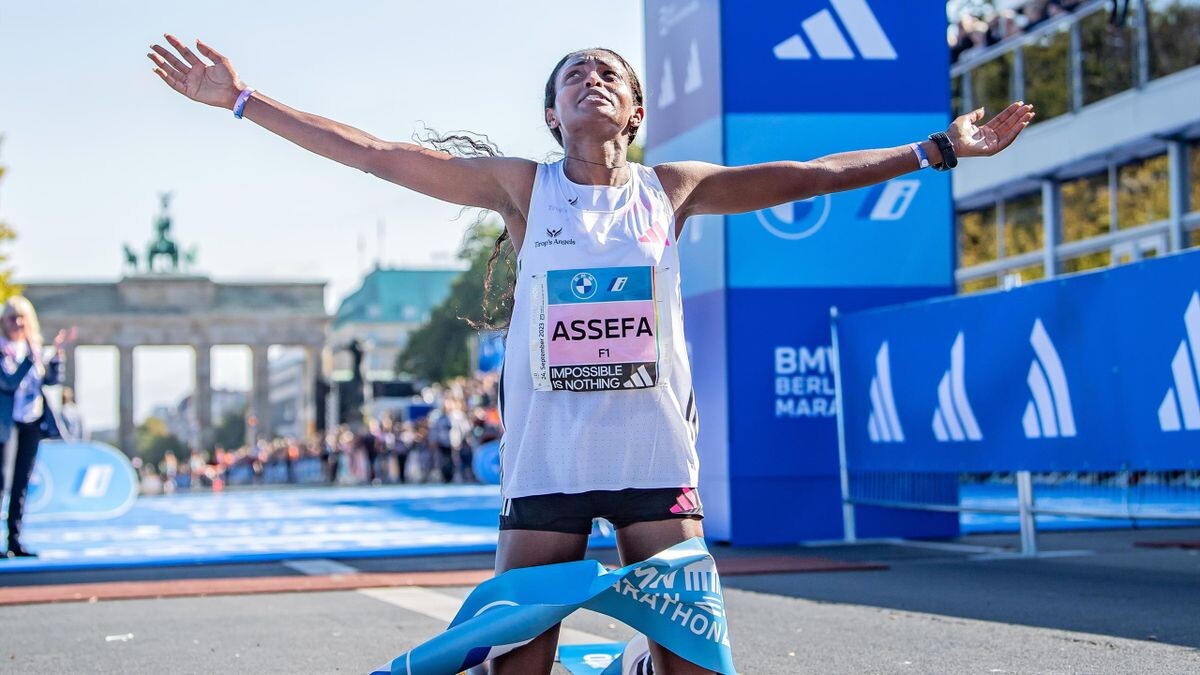
Ethiopia’s Tigst Assefa shattered Brigid Kosgei’s world record at the Berlin Marathon and the Kenyan ladies will have their work cut out to bring back the glory. Assefa clocked 2:11:53 to obliterate Kosgei’s world record time of 2:14:04.
Chepng’etich has a Personal Best time of 2:14:18, the third fastest time in the women’s marathon. She has had quite a busy 2023 season and will be looking to end her season in the streets of Chicago.
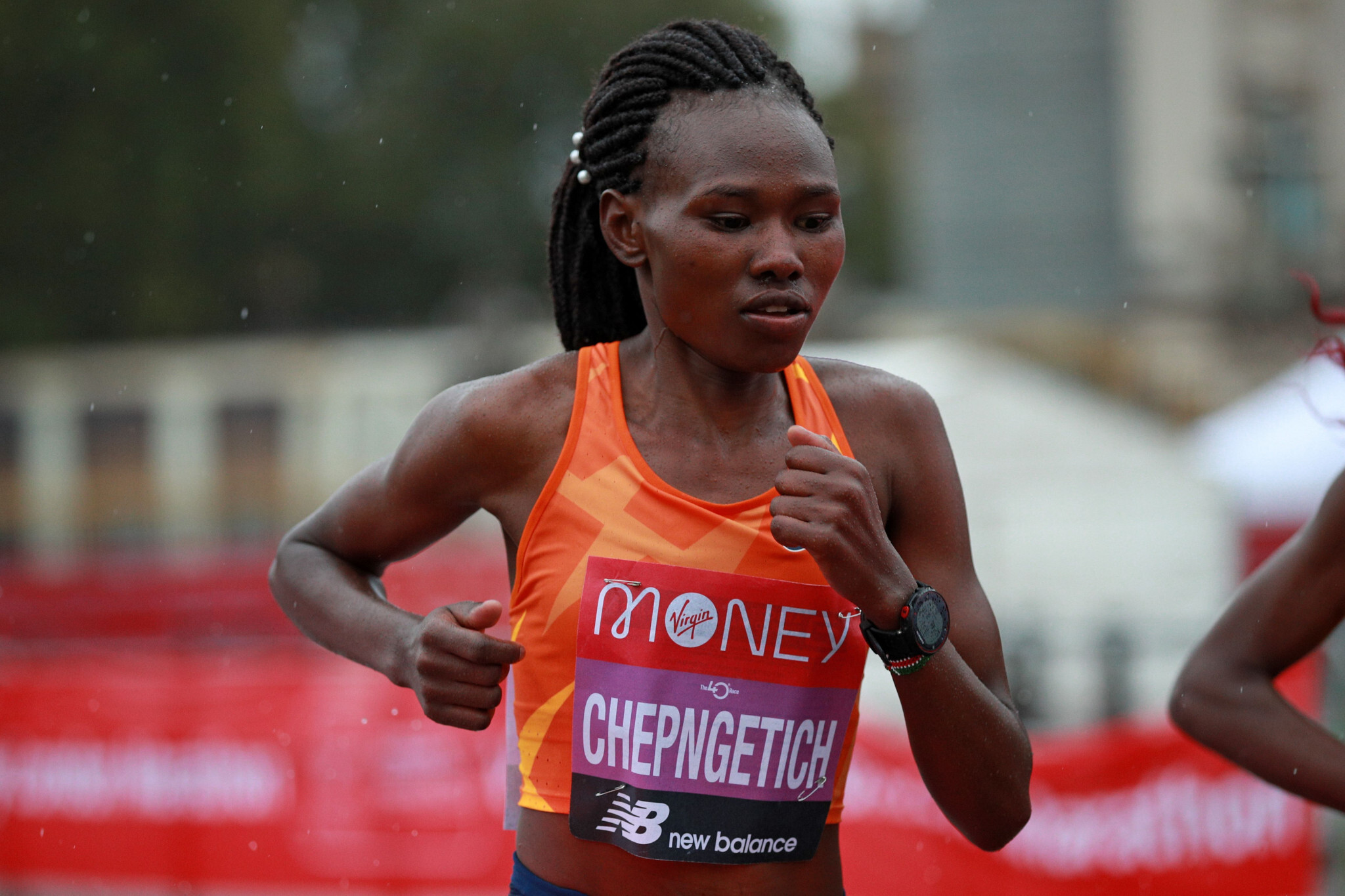
The 29-year-old kicked off her season with a win at the National Cross-country championships before reigning supreme at the Nagoya Women’s Marathon.
The two-time Chicago Marathon champion then competed in two Half Marathons, finishing second at the Istanbul Half Marathon and later finishing third at the 21K Buenos Aires Ñandú.
On the track, she has competed in three 10,000m races. She started off with a win at the Kenya Prisons Track and Field Championships before finishing third at the National Championships. She was also in action at the World Championships where she finished eighth.
She will enjoy the company of Joycilline Jepkosgei, an able marathoner in her own right. Jepkosgei has won two major marathons, the New York City Marathon and London Marathon and she will be looking to add the Chicago Marathon to her already decorated cabinet.
Jepkosgei competed at the Boston Marathon earlier this year but unfortunately faded to finish a disappointing 12th.
She is yet to win any race this season and might just shock the world in her debut in the streets of Chicago. Her Personal Best time currently stands at 2:17:43 and she will be angling to improve her time.
Potential threats to the chances of the duo winning the race are Dutchwoman Sifan Hassan and Ethiopia’s Genzebe Dibaba.
Hassan, the double Olympic champion, made her debut at the London Marathon earlier this year and to everyone’s surprise, clinched the top prize.
She competed at the World Championships in the 1500m, 5000m, and 10,000m and finished among the top five in the three races. She is definitely in impeccable form and will be hoping to end her season on a high.
Dibaba, the former 1500m world record holder, will also be looking to replicate her compatriot’s performance and maintain the glory of Ethiopia in long-distance running.
by Abigael Wuafula
Login to leave a comment
Bank of America Chicago
Running the Bank of America Chicago Marathon is the pinnacle of achievement for elite athletes and everyday runners alike. On race day, runners from all 50 states and more than 100 countries will set out to accomplish a personal dream by reaching the finish line in Grant Park. The Bank of America Chicago Marathon is known for its flat and...
more...Tigst Assefa on how career threatening injury spurred her to breaking world marathon record
Ethiopian marathoner Tigst Assefa defied a career-threatening injury to smash the world record and has revealed the relentless journey from setback to historic triumph.
Ethiopian marathoner Tigst Assefa left the world in awe with her remarkable feat, smashing the women's world record in Berlin last Sunday by clocking an astonishing two hours, 11 minutes, and 53 seconds.
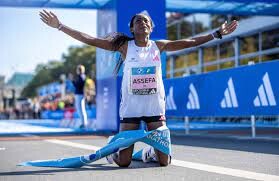
However, her journey to this historic achievement was not without its hurdles. In a shocking revelation, Assefa disclosed that just four years ago, she was told her athletics career was effectively over following a severe Achilles tendon injury during the 2019 Valencia half-marathon.
At the time, medical experts in both Spain and Italy, where she received subsequent treatment, painted a grim picture. They concluded that her chances of returning to the sport were minimal.
Yet, defying the prognosis, Assefa, fueled by determination, familial support, and the unwavering belief of her coach, embarked on a relentless journey to prove the naysayers wrong.
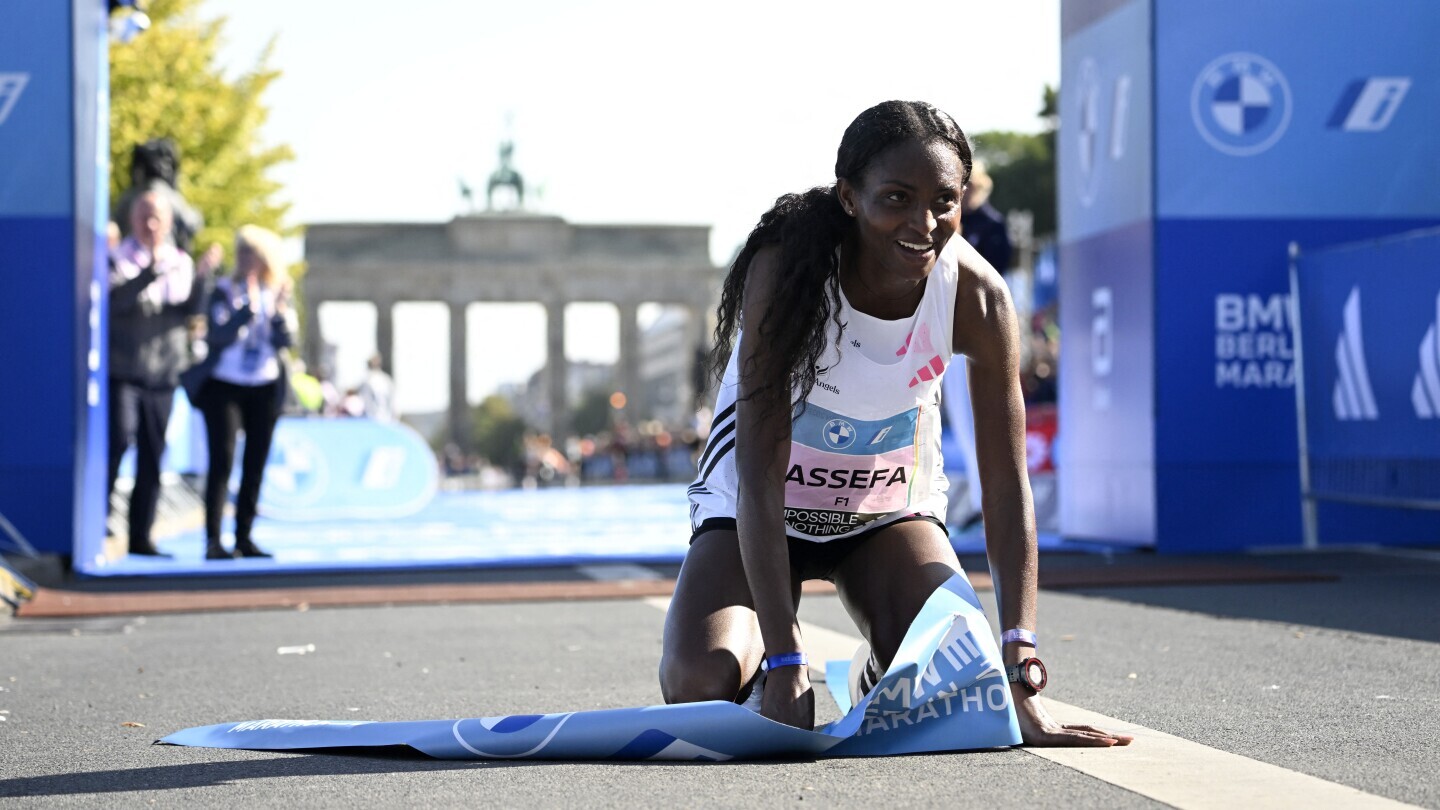
"I did not give up. I told myself I will get back and make history," Assefa declared in an exclusive interview with BBC Afaan Oromoo.
Reflecting on the injury that almost derailed her career, she added, "I will never forget my injury. But at the same time, it helped me to work hard. I could not have seen this day if it were not for the injury."
Assefa's unyielding spirit and competitive drive were pivotal in her triumphant return to the pinnacle of marathon running.
"I am fiercely competitive. I don’t like to lose," she asserted, revealing that her newfound goal is to complete a marathon in under two hours and 10 minutes.
"It could be broken [again] with better training. This is because [in Berlin] I was not tired. I had energy," Assefa stated.
Behind this extraordinary athlete stands the guiding force of coach Gemedu Dedefo, who believes that with the right support, women in athletics can achieve even greater feats.
by Festus Chuma
Login to leave a comment
Kiptum eyes world record at next week's Chicago Marathon
London Marathon champion Kelvin Kiptum has his eyes set on breaking Eliud Kipchoge’s world marathon record when he steps up to compete at the 2023 Chicago Marathon on October 8.
Kiptum won the London Marathon on April 23 in a time of 2:01:25, in what was his second-ever marathon race—nearly obliterating the world record of 2:01:09 set by Kipchoge at the Berlin marathon in 2022.
He ran the fastest-ever marathon debut at the 2022 Valencia Marathon, becoming the third man in history to break two hours and two minutes after he wrapped up the race in 2:01:53.
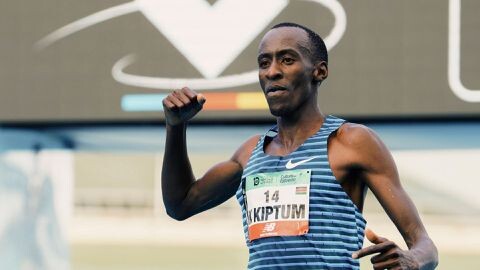
Only three men in history have run under 2:02, and Kiptum is the only marathoner to do it under the age of 35.
The 23-year-old announced his attendance in the Chicago Marathon on his Facebook page with an exciting message informing his fans to prepare for an incredible showdown.
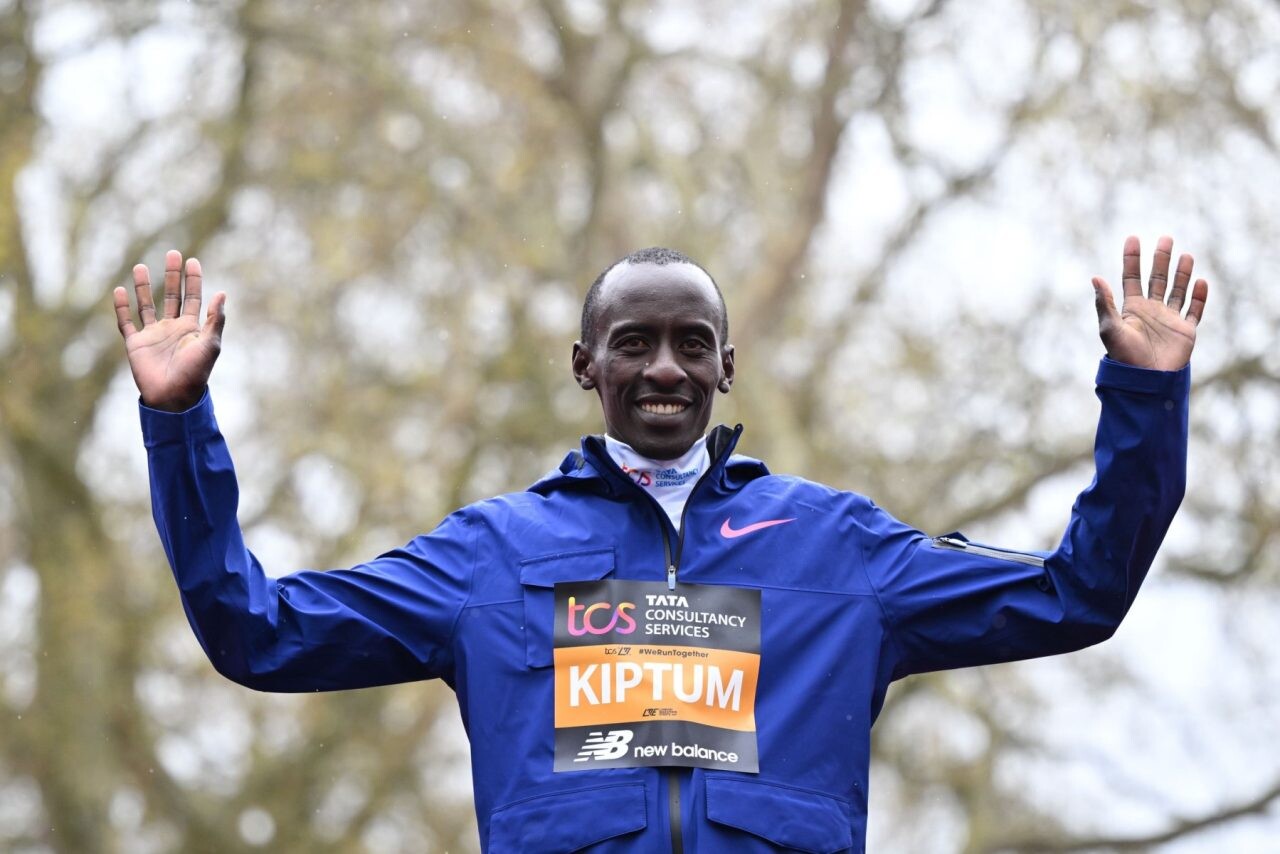
“I’m heading for the 2023 Bank of America Chicago Marathon. Get ready for the show,” the post from Kiptum read.
The elite athlete reportedly opted out of the Budapest 2023 World Athletics Championships and the Berlin Marathon to focus on Chicago.
A lot of fans had expected to witness the duel between Kiptum and Kipchoge at the Berlin Marathon track to gauge his speed against the two-time Olympic champion.
He will be joined by 2022 Chicago Marathon winner Benson Kipruto who set a personal best time of 2:04:24 when he won the race.
Kipruto also finished third in the 2022 and 2023 Boston Marathon with times of 2:07:27 and 2:06:06. He will be eying to defend his title against a youthful and promising Kiptum.
The two will be joined by fellow Kenyans John Korir who has a marathon best of 2:05:01 and debutants Daniel Mateiko and Wesley Kiptoo.
The Kenyan contingent will face a hard time from Somali-based Belgian Bashir Abdi who won gold in the 2020 Tokyo Olympics.
USA’s Galen Rupp, silver medalist in the men’s 10,000m at the London Olympics and bronze medalist in the men’s marathon in the 2016 Rio Olympics, will represent the hosts in the race.
They will also face stiff competition from Seifu Tura who won the 2021 Chicago Marathon and placed second at the 2022 edition.
Defending champion Ruth Chepngetich will lead the women’s pack seeking to break Ethiopia’s Tigst Assefa’s record of 2:11:53 set just recently at the Berlin marathon.
Chepng’etich, who won the Chicago Marathon in October last year, was only 14 seconds away from breaking the previous world record by Brigid Kosgei of 2:14:04.
She will be joined by Joyciline Jepkosgei, who finished second in the 2022 edition of the London Marathon, and Stacy Ndiwa who has a PB of 2:31:53.
Ethiopia’s Genzebe Dibaba will be a tough opponent for the Kenyan ladies. Dibaba is the current world record holder in indoor mile, 3,000m and 5,000m. She is also a gold medalist in the 1,500m at the 2015 World Championships.
USA’s Emily Sisson, who currently holds the American record in the marathon, will be seeking to upset the African girls. Sisson set the record on October 9 during the Chicago Marathon when she finished second in a time of 2:18:29.
The event has attracted 47,000 participants, the biggest field ever with the 2019 edition having featured 45,932 participants.
by Teddy Mulei
Login to leave a comment
Bank of America Chicago
Running the Bank of America Chicago Marathon is the pinnacle of achievement for elite athletes and everyday runners alike. On race day, runners from all 50 states and more than 100 countries will set out to accomplish a personal dream by reaching the finish line in Grant Park. The Bank of America Chicago Marathon is known for its flat and...
more...Assefa smashes world marathon record in Berlin with 2:11:53, Kipchoge achieves record fifth win
Ethiopia’s Tigst Assefa successfully defended her BMW Berlin Marathon title in style, smashing the world record with 2:11:53* while distance running legend Eliud Kipchoge notched up a record fifth victory at the World Athletics Platinum Label road race in the German capital on Sunday (24).
Assefa took more than two minutes off the women’s world record of 2:14:04, which had been set by Kenya’s Brigid Kosgei at the 2019 Chicago Marathon. Kipchoge, meanwhile, won by 31 seconds in 2:02:42, the fifth-fastest time of his illustrious career.
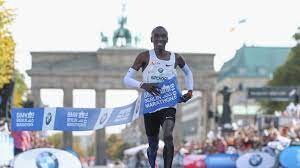
The men’s and women’s races unfolded in contrasting style.
A large pack of the leading contenders ran together through the early stages of the women’s race, passing through 5km in 15:58. 13 women were still in contact with the lead as they passed through 10km in 31:45.
By the time 15km was reached in 47:26, Assefa and compatriot Workenesh Edesa had managed to open up a slight gap on Kenya’s Sheila Chepkirui and Ethiopia’s 2015 world 5000m silver medallist Senbere Teferi and Zeineba Yimer. The first 12 women were strung out, but still within 15 seconds of one another – and all were running inside world record pace.
Sensing that most of her rivals were already starting to fade, Assefa took greater command of the race by throwing in a 2:59 split for the 16th kilometre. By the time she reached 17km, Assefa had dropped Edesa, the last of her opponents, and had just a few male pacemakers for company.
Assefa seemed to grow in confidence – and pace – once she knew she was alone at the front of the pack, and she went on to reach the half-way point in 1:06:20, putting her on track to smash the world record by more than a minute.
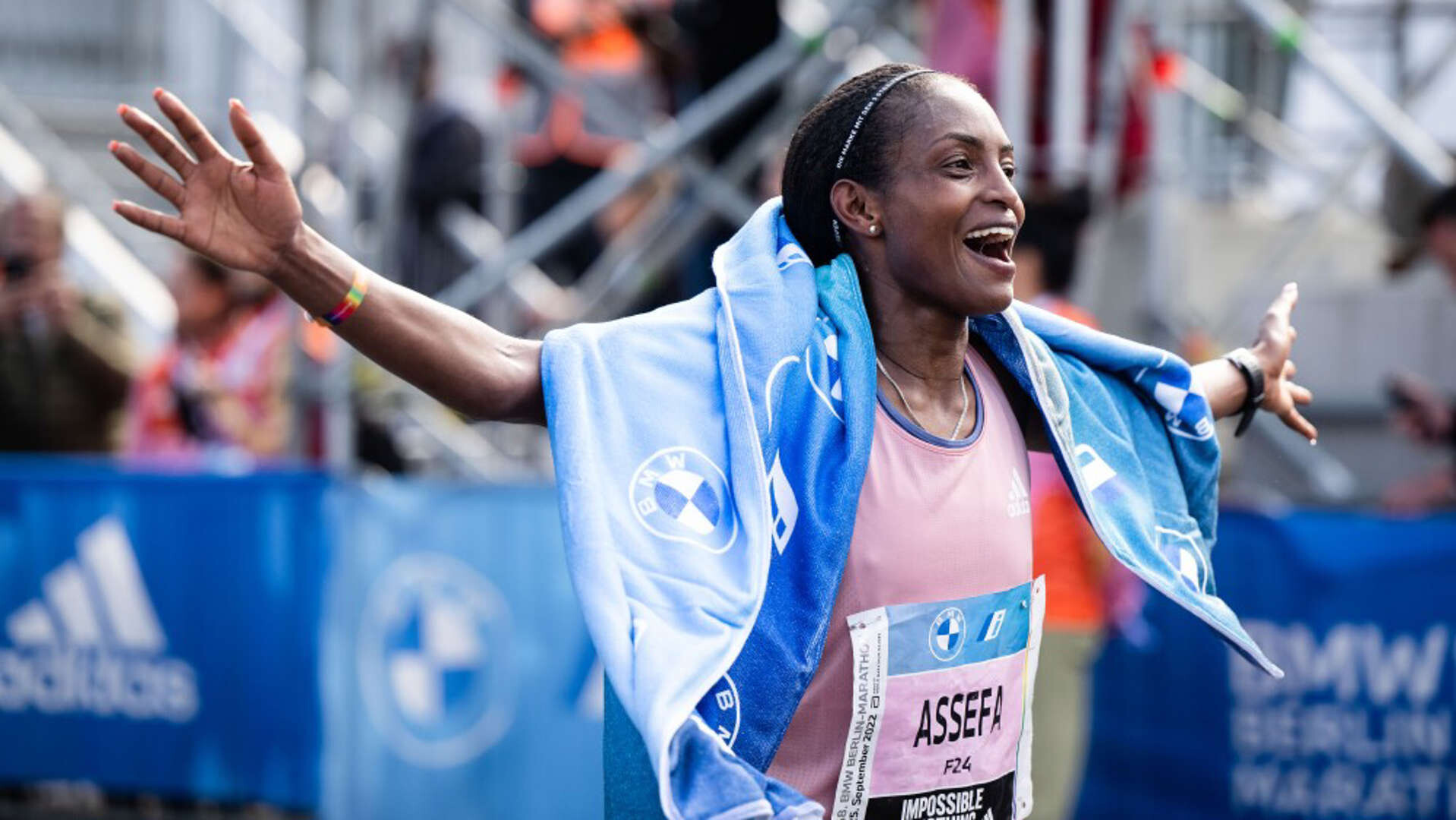
And then she sped up. The next kilometre was covered in 2:48, the fastest of the race up to that point, extending her advantage over Edesa and Chepkirui. Assefa’s 25km split of 1:18:40 was still well inside world record schedule; Chepkirui and Edesa, now almost a minute behind the leader, had dropped off the pace, but were still on course for huge PBs.
Assefa, still looking incredibly relaxed and composed, covered the next 10km segments in a remarkable 31:02, bringing her to 35km in 1:49:41. Her 30km split was 1:34:12, the second-fastest mark in history for that checkpoint (behind Ruth Chepngetich’s 1:34:01 from the 2022 Chicago Marathon).
But while Chepngetich faded badly in that race last year, Assefa went from strength to strength in the closing stages in Berlin.
She got to 40km in 2:05:13, following another 15:32 5km split, putting her on course for a finishing time in the 2:12 range. Spurred on by the knowledge that the world record was in the bag, Assefa picked up her pace in the closing kilometres and charged through the finish line in 2:11:53.
Chepkirui held on to second place in 2:17:49, while Tanzania’s Magdalena Shauri made a remarkable breakthrough to take third place in 2:18:41, a huge national record.
A record eight women finished inside 2:20.
Berlin victory no.5 for Kipchoge
Kipchoge may not have improved on his own world record, but he added to his legacy on the streets of Berlin by achieving a record fifth win, clocking 2:02:42.
The two-time Olympic champion eventually won by 31 seconds, but for most of the race he had company in the surprising form of Ethiopia's Derseh Kindie.
The duo made an early break from the rest of the field, reaching 5km in 14:12 with a 15-second margin over the rest of the elite men. By 10km, reached in 28:27, they were operating at exactly 2:00:00 marathon pace and more than half a minute ahead of the seven-man chase pack.
Kipchoge and Kindie continued to run together at world record schedule through the half-way point, reached in 1:00:22, but the pace started to drop soon after. By the time they got to 25km (1:11:48), they were no longer on schedule to break Kipchoge's record of 2:01:09 set last year in Berlin.
But records weren't Kipchoge's main concern; he had company in the form of a relatively unheralded runner up to 30km (1:26:25), so his attention was primarily on securing victory.
At about 31km into the race, Kipchoge increased his tempo and, with a cursary glance over his shoulder to see if Kindie was able to follow, knew it was enough to see off his opponent. The Kenyan great was alone in front at last, while Kindie continued for another minute or so before stepping off the course.
Kipchoge still had more than 10km to go, but his lead was comfortable and his form was controlled and relaxed. He went on to win in 2:02:42, while a fast-finishing Vincent Kipkemoi came through to take second place in 2:03:13. Ethiopia's Tadese Takele was third in 2:03:24.
A record nine men finished inside 2:05 and 15 finished inside 2:06, making it the deepest men's marathon in history. There were national records for Germany's Amanal Petros (ninth in 2:04:58) and Switzerland's Tadesse Abraham (11th in 2:05:10).
Login to leave a comment
Wow! Berlin always delivers. Imagine smashing a world record by this margin! - Bob Anderson 9/24 8:52 am |
BMW Berlin Marathon
The story of the BERLIN-MARATHON is a story of the development of road running. When the first BERLIN-MARATHON was started on 13th October 1974 on a minor road next to the stadium of the organisers‘ club SC Charlottenburg Berlin 286 athletes had entered. The first winners were runners from Berlin: Günter Hallas (2:44:53), who still runs the BERLIN-MARATHON today, and...
more...10 Things to Know About the 2023 Berlin Marathon
Here’s how you can watch the race, track runners, and register for next year
More than 45,000 runners are expected to participate in the Berlin Marathon on September 24 in Germany’s capital city. It’s the 49th edition of the race and one of the six World Marathon Majors races along with races in Chicago, New York, Boston, London and Tokyo. The weather forecast is calling for cloudy and cool conditions on race morning in Berlin, so fast times are once again expected.
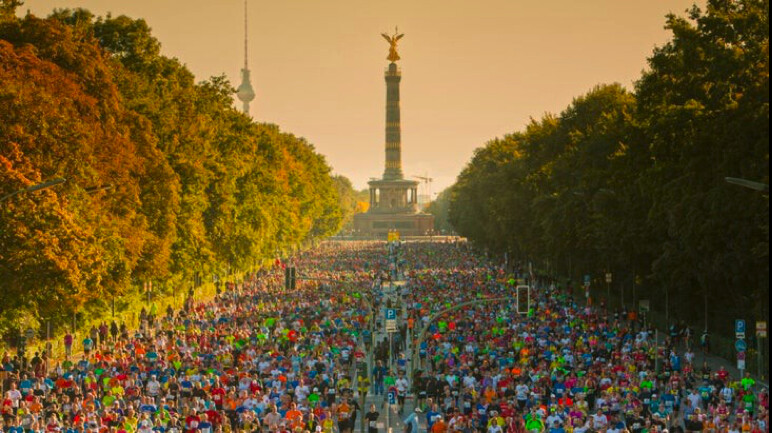

Here’s a rundown of 10 noteworthy elements about this year’s race.
The Berlin Marathon has produced 12 world records—more than any other marathon—since its inception in 1974, including the past eight men’s records since 2003. Kenya legend Eliud Kipchoge lowered the world record for the fastest official marathon ever run (2:01:09) last year in Berlin, and it’s also where he ran the previous world record (2:01:39) in 2018.
Berlin has produced six of the top 10 fastest men’s times in history, including three of the four sub-2:02 efforts (including the 2:01:41 run by Kenenisa Bekele in 2019). It hasn’t been quite as fast for women, however it has been the site of three women’s world records, most recently when Japan’s Naoko Takahashi ran the world’s first sub-2:20 marathon (2:19:46) in 2001. Last year, Ethiopia’s Tigst Assefa won the women’s race in 2:15:37, which, at the time, was the second-fastest marathon ever run and now ranks fifth.
Berlin is the flattest course of all the World Marathon Majors, with a total elevation gain of 241 feet and loss of 260 feet. (The biggest “hills” come between miles 16 and 20, but they max out at less than 30 feet of gain.) Berlin annually produces some of the fastest pro results in the world, in part because it’s a flat course, but also because the race organization provides pacemakers (auxilliary runners who set an optimal pace but only run about a portion of the course before dropping out) so the opportunity for fast times are assured. (There are no pacemakers at the Chicago, New York City Marathon, and Boston Marathon, so those races play out only by the tactics of the runners in the field.) But the fast elite times, flat course, and typically cool weather conditions have attracted age-group runners targeting new PRs, too.
Running legend Eliud Kipchoge, universally accepted as the G.O.A.T. of marathoning, has won 15 of the 18 marathons he has entered, including the past two Olympics. Berlin is where he’s had most of this success, dating back to his first victory in 2015 and he has since also won there in 2017, 2018, and 2022. Can he add one more victory to his total?
He lowered his own world record to 2:01:09 last year by averaging 14:21.4 per 5K, or 4:37 per mile. However, the 38-year-old Kenyan is coming off an uncharacteristically disappointing race at the 2023 Boston Marathon, where he finished sixth in 2:09:23. Will he approach another world record? “My aim is to always run a good race,” he said recently. “Berlin is like home for me. In view of the Olympic Games next year in Paris, I thought about which race could be the best preparation for the Games for me, and Berlin is the best option.”
Including Kipchoge, the men’s field in Berlin includes 10 runners who have run faster than 2:06 and seven more who have broken 2:07, including last year’s runner-up Mark Korir (2:05:58). Kipchoge should be challenged by fellow Kenyan Amos Kipruto, who owns a 2:03:13 from his runner-up showing at last year’s Tokyo Marathon. The winner of the 2022 London Marathon last fall (2:04:39), Kipruto, 31, placed a distant second in the 2018 Berlin Marathon behind Kipchoge (2:06:23) and owns a bronze medal in the marathon from the 2019 World Athletics Championships in Doha.
Other top runners in the field include Kenya’s Geoffrey Kamworor, who ran 2:04:23 to place second at the London Marathon in April, Ethiopia’s Birhanu Legese, who was second (2:02:48) in Berlin in 2019 and Kenya’s Wilson Kipsang, 41, a former winner in Berlin, New York, and Tokyo. However, Kipsang, who lowered the world record to 2:03:23 on the Berlin course in 2013, is coming off a four-year ban for missing drug tests in 2018 and 2019.
Last year, Ethiopia’s Tigist Assefa, a 2016 Olympian in the 800-meter run, entered the race as an untested marathon (with a PR of 2:34:01) and surprised everyone with her 2:15:37 victory in the third-fastest time ever.The 26-year-old is back this year but hasn’t run any races because she’s been sidelined with a few nagging injuries.
Her biggest competitor will likely be Sheila Chepkirui, who holds a personal best of 2:17:29 from last December’s Valencia Marathon. She’s a former African Cross Country Championships winner and was the bronze medalist in the 10,000-meter run at the 2022 Commonwealth Games. Other top women runners include Ethiopians Tigist Abayechew (2:18:03), Workenesh Edesa (2:18.51), and Hiwot Gebrekidan (2:19:10).
Scott Fauble, a three-time seventh-place finisher at the Boston Marathon (including this year in 2:09:44), is racing Berlin with the hopes of securing the Olympic-qualifying standard of 2:08:10. The 31-year-old runner from Portland, Oregon, will still need a top-three finish at the U.S. Olympic Trials Marathon on February 4 in Orlando, but securing the time will give him a leg up on qualifying for the Paris Olympics next summer.
Also racing in Berlin are 2016 U.S. Olympian Jared Ward (Provo, Utah) and 2020 U.S. Olympian Jake Riley (Boulder, Colorado). Ward, 35, owns a 2:09:25 personal best, but he hasn’t run faster than 2:12 since his sixth-place finish (2:10:45) in the New York City Marathon in 2019. The 34-year-old Riley, who owns a 2:10:02 PR, is coming back after having double Achilles surgery in July 2022 to correct Haglund’s syndrome (the second time in his career), and hopes to run in the 2:12-2:14 range. Ethiopian-born Teshome Mekonen, who recently received U.S. citizenship, will also be racing in Berlin. The 28-year-old, who lives in New York City, has a 1:00:02 half-marathon personal best and lowered his marathon personal best to 2:11:05 last January in Houston.
Annie Frisbie is the top American runner in the women’s field in Berlin. The 26-year-old from Hopkins, Minnesota, made her marathon debut at the 2021 New York City Marathon with an impressive seventh-place finish (2:26:18). She’s continued to run well since then, placing 20th (2:28:45) in the 2023 Boston Marathon (2:28:45) and most recently finishing fifth (1:07:27) at the U.S. 20K Championships on September 4 in New Haven, Connecticut. Frisbie was a Wisconsin state champion runner in high school and an All-American runner for Iowa State University.
The Berlin Marathon was started in 1974 by Horst Milde, a German baker and running enthusiast. When it began at the height of the Cold War and East Berlin being sealed off by a wall, the marathon was run only in West Berlin. Since 1990, it has started and ended near the Brandenburg Gate, sending runners on a jagged loop through the city—including the neighborhoods of Charlottenburg, Tiergarten, Moabit, Mitte, Friedrichshain, Kreuzberg, Neukölln, Schöneberg, Friedenau, and Zehlendorf. Runners will pass tourist sites like the Reichstag building, the Siegessäule (Victory Column), Berlin Cathedral, and Potsdamer Platz. Live music is played at more than 60 locations along the course, including at all the famous landmarks.
The inaugural Berlin Marathon had 244 finishers; 234 men and 10 women, and was won by Günter Hallas (2:44:53) and Jutta von Haase (3:22:01), respectively. Last year, the race had 34,788 finishers, including 23,280 men (67 percent) and 11,508 women (33 percent). The last German runners to claim victory were Irina Mikitenko (2:19:19) in 2008 and Ingo Sensburg (2:16:48) in 1980. No American man or woman has ever won the Berlin Marathon.
The Berlin Marathon has an inline skating division for 500 participants that begins at 3:30 P.M. after all runners are cleared from the course. The skater course record of 56:46 was set last year by Belgian Bart Swings, and he’s back this year aiming for his ninth victory. In the women’s race, all eyes are on last year’s winner, Marie Dupuy of France, in 1:11:19. All finishers of the inline skating division are eligible to enter the 2024 Berlin Marathon as runners.
The race, which starts at 9:15 A.M. local time (or 3:15 A.M. ET in the U.S.), will be broadcast worldwide by several TV partners, but not in North America. However, several websites offer live streaming so people can watch the Berlin Marathon from anywhere in the world, especially if you’re a VPN subscriber. Watch Athletics will be broadcasting the race online in real time for free, while FloTrack’s livestream requires a subscription ($29.99 for one month) in order to view their livestream. Runners can be tracked via the Berlin Marathon website’s Results page, or via the BMW Berlin Marathon App app available on Apple or Google Play.
Race day begins with the elite handbike division at 8:50 A.M., followed by the wheelchair and handcycle divisions at 8:57 A.M. Runners are sent off in four waves beginning at 9:15 A.M., starting with the men’s and women’s elite waves. The race has a strict time limit of 6 hours, 15 minutes as well as course closure times at the 33K/20.5-mile mark (3:50 P.M.) and 38K/23.6-mile mark (4:35 P.M.). Runners who have not reached those points by those times can continue on the sidewalks alongside the course or get a ride on the course-sweeping bus.
Entry to the 2024 Berlin Marathon, which is slated for September 29, 2024, will be done via a lottery that will open in October. You can enter the lottery as a solo runner or as a team consisting of two or three people. (If the team is drawn, all persons from the team are included.) Lottery dates for 2024 have not yet been announced, but the draw for the 2023 edition took place in December 2022.
If you’re selected, the registration fee will be about $160 euros. You can also secure a guaranteed spot in the race based on previous marathon times. In 2023, female runners up to 44 years old qualified if they ran faster than 3:00; female runners up to 59 years old qualified if they ran under 3:20; and female runners over 60 years qualified if they ran under 4:10. For men, the qualifying times were 2:45 (up to 44 years old), 2:55 (46-59 years old), 3:25 (60 and older.)
If you don’t get in through the lottery, you may still be able to get into the race via a charity bib or through tour operators.
by Outside online
Login to leave a comment
Chepkirui hunting for new PB in Berlin showdown with Ethiopia's Tigest Assefa
Kenyan Sheila Chepkirui and Ethiopian Tigest Assefa gear up for the Berlin Marathon showdown, aiming to break records and secure Olympics
Kenyan marathoner Sheila Chepkirui is preparing to compete in the women's contest at the 2023 Berlin Marathon against a formidable Ethiopian lineup, led by the defending champion, Tigest Assefa.
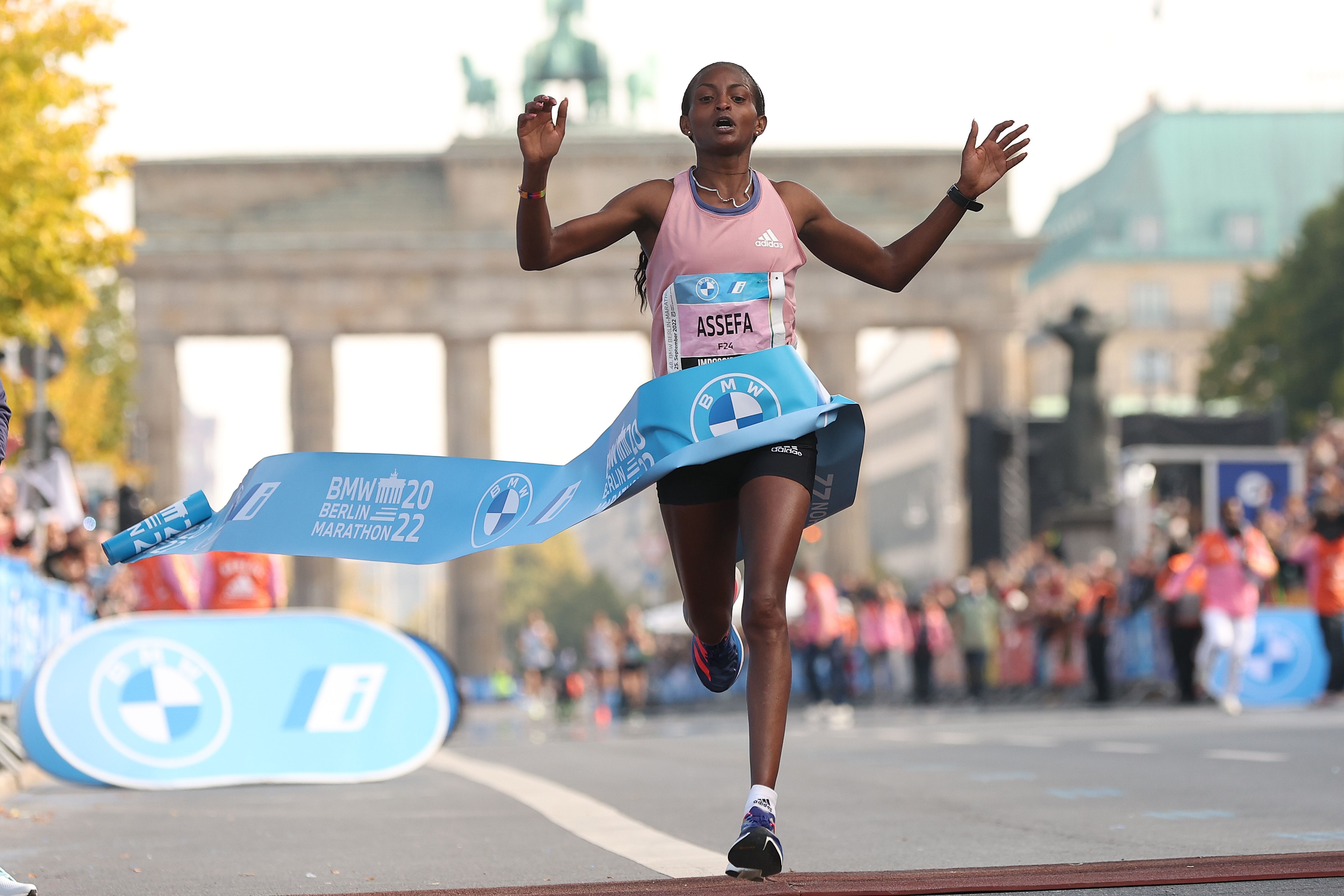
Chepkirui, who finished fourth at the London Marathon last April, carries an impressive personal best of 2:17:29 from the Valencia Marathon last year.
Assefa made headlines last year by posting an incredible time of 2:15:37 at the Berlin Marathon, setting a new course record and establishing herself as one of the fastest marathon runners in history.
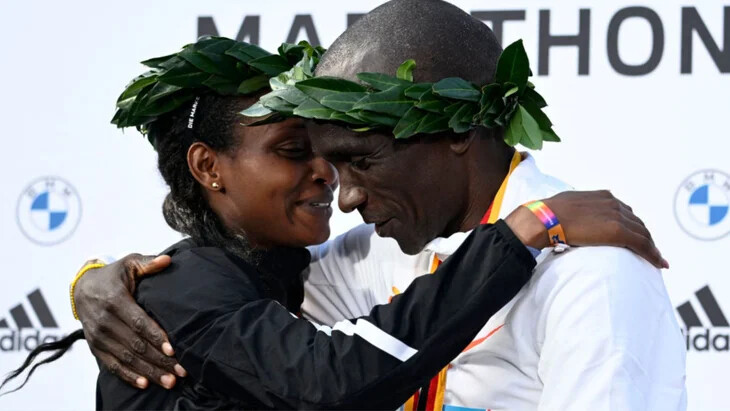
Chepkirui, a Kenya Defence Forces soldier and a former Africa cross country champion, has already proven her mettle on the international stage by clinching the 10,000m bronze medal at the 2022 Commonwealth Games in Birmingham, UK.
Ethiopian runners dominate the list of fastest women's runners at this year's Berlin Marathon, with Tigist Abayechew (2:18:03), Workenesh Edesa (2:18:51), and Hiwot Gebrekidan (2:19:10) all boasting impressive sub-2:20 times. Amane Beriso, the winner of last year's Valencia Marathon, adds further depth to the Ethiopian contingent.
However, all eyes will be on Chepkirui, who hails from Kiptere Secondary School in Kericho and boasts a remarkable half marathon personal best of 64:36. Her determination to excel is evident, as she aims to make up for her absence at the Boston Marathon last April due to visa issues.
Chepkirui, who runs under the Ikaika Sports stable, is the sole Kenyan representative in the Berlin Marathon after Margaret Wangare withdrew due to injury. Her marathon journey began at last year's Valencia Marathon, where she impressed with a third-place finish and a personal best time of 2:17:29. Now, she is focused on breaking her own record.
"My aim is to break my personal best. I can imagine going through the first half on Sunday in around 68 minutes," said the 32-year-old Chepkirui.
Tigst Assefa, the defending champion, is also eager to make her mark once again in Berlin. Reflecting on her remarkable performance last year, where she shattered the course record, Assefa expressed her delight at returning to the event.
"Last year's race proved an unexpected success for me. I think I can run even faster on Sunday, a further improvement would be a success," said Tigst Assefa.
While she remains focused on improving her time, she is cautious about discussing the world record of 2:14:04.
Both Chepkirui and Assefa have an additional goal in the BMW Berlin Marathon: securing Olympic qualifying times. Given the fierce competition in Ethiopia and Kenya, achieving the necessary times for Olympic qualification will require exceptional performances.
Two more Ethiopian athletes, Tigist Abayechew with a personal best of 2:18:03 and Workenesh Edesa with a best time of 2:18:51, are making their return to Berlin. Last year, they, along with Tigst Assefa, achieved an unofficial world team record of 6:52:31.
Mark Milde, the race director, expressed optimism about the potential for records to be broken, saying, "The women's course record of 2:15:37 is an absolute world-class time. But, given the strong field, we hope that this can be broken."
The elite women's field at the Berlin Marathon boasts both breadth and depth. Japan's Hitomi Niiya, with a personal best of 2:19:24, has the potential to challenge her national record set 18 years ago on the same course. Another athlete to watch is Ethiopian Senbere Teferi, a world record holder for 5km on the road with a time of 14:29.
In addition to the international competition, a fierce contest is expected among German women. The German contingent, featuring athletes like the Schöneborn twins, Deborah and Rabea, Domenika Mayer, Kristina Hendel, and Laura Hottenrott, has a strong presence with personal bests ranging from 2:25 to 2:27.
by Festus Chuma
Login to leave a comment
BMW Berlin Marathon
The story of the BERLIN-MARATHON is a story of the development of road running. When the first BERLIN-MARATHON was started on 13th October 1974 on a minor road next to the stadium of the organisers‘ club SC Charlottenburg Berlin 286 athletes had entered. The first winners were runners from Berlin: Günter Hallas (2:44:53), who still runs the BERLIN-MARATHON today, and...
more...Malindi Elmore to run Berlin Marathon
Malindi Elmore will toe the start line at this year’s Berlin Marathon–the same course where Natasha Wodak broke Elmore’s Canadian marathon record last year.
Elmore is among a blazingly fast women’s field the Berlin Marathon has confirmed for the Sept. 24 race. Other runners announced so far include Kenya’s Sheila Chepkirui (who finished fourth at this year’s London Marathon) and a strong Ethiopian contingent led by 2022 Berlin champion and course record holder Tigst Assefa, Tigist Abayechew and Workenesh Edesa.
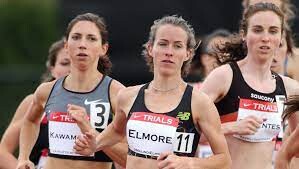
The famously flat and fast Berlin course could lay the groundwork for Elmore to reclaim the mantle as the fastest Canadian female marathoner. Her former Canadian marathon record of 2:24:50, which she set at the Houston Marathon in 2020, was bested by Wodak by more than 90 seconds in the German capital last September (2:23:12). Wodak, who is currently in Budapest for the World Athletics Championships, is not expected to compete in Berlin.
Elmore looks to be in a good position to reclaim the Canadian crown following a string of strong performances. The Kelowna, B.C., native took the women’s title in 2:25:14 at the Canadian Marathon Championship at the TCS Toronto Waterfront Marathon last October. In April, Elmore ran a massive PB at the Gifu Half Marathon in Japan, posting a final time of 1:10:11 and finishing fourth overall.
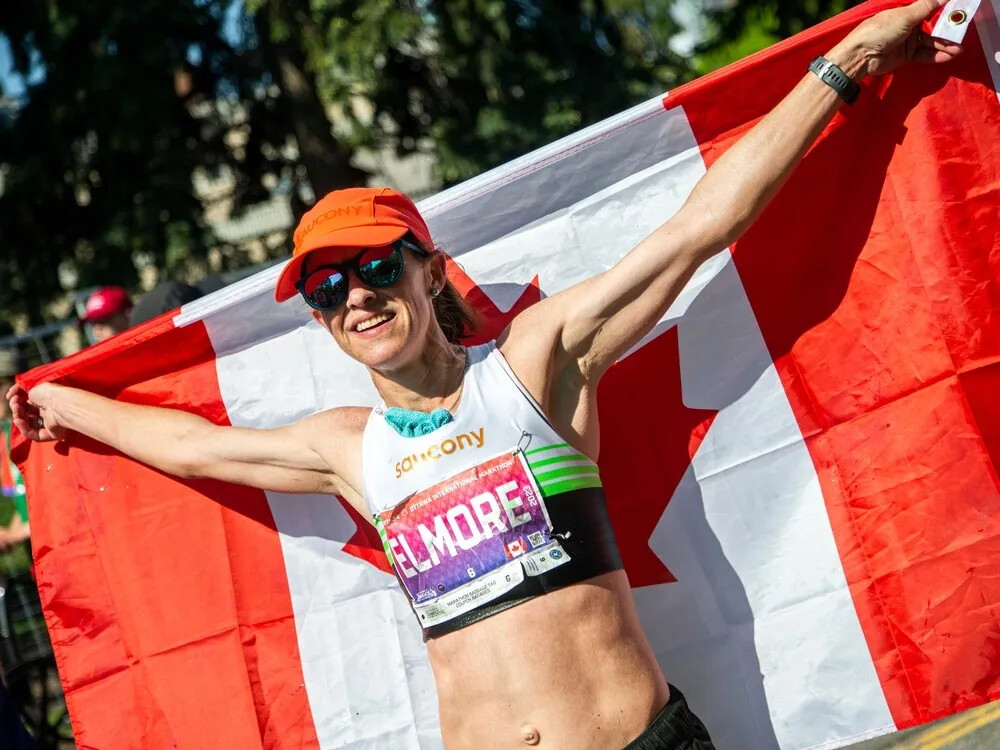
The following month, she threw down a gutsy performance at the 2023 Tartan Ottawa International Marathon. Going into the race with the goal of the 2024 Olympic standard of 2:26:50, she was on pace for 2:26 through 30K and sat in fourth position. As the temperature climbed to 24 C, she gave everything she had over the final 12 kilometres, moving up two spots to finish second to Ethiopia’s Waganesh Mekasha in 2:27:45.
Elmore has also been making bold statements at shorter distances. Last September she bested her own course record in the tenth Under Armour Eastside 10K in Vancouver, running a blistering 32:37.
by Running Magazine
Login to leave a comment
BMW Berlin Marathon
The story of the BERLIN-MARATHON is a story of the development of road running. When the first BERLIN-MARATHON was started on 13th October 1974 on a minor road next to the stadium of the organisers‘ club SC Charlottenburg Berlin 286 athletes had entered. The first winners were runners from Berlin: Günter Hallas (2:44:53), who still runs the BERLIN-MARATHON today, and...
more...National top athletes will also participate in the BMW BERLIN-MARATHON 2023
This year's BMW BERLIN-MARATHON will take place on September 24 - the sports event is one of the most prestigious marathons in the world. SCC EVENTS, the organizer of the event, is expecting more than 45,000 runners from about 150 nations. In addition to the huge field of amateur athletes, the top international as well as national athletes will be competing.
As already announced in the press release sent out by SCC EVENTS on July 13, 2023, the world record holder Eliud Kipchoge (KEN) and the winner of the TCS London Marathon 2022, Amos Kipruto (KEN), will be at the start in the German capital. With Tigst Assefa (ETH) as course record holder and winner of the BMW BERLIN-MARATHON 2022 and Sheila Chepkirui, winner of the GENERALI BERLIN HALF MARATHON 2022, the women's field is just as elite.
The German record holder will be competing
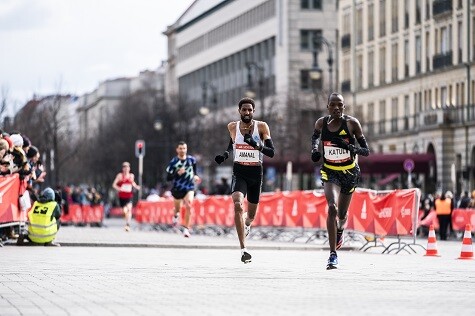
From the ranks of the German starters, Amanal Petros should be the first to be mentioned. The winner of this year's Hannover Marathon holds the German records for both the marathon and half-marathon distances. The MARATHON TEAM BERLIN runner is certainly hoping to achieve a German best time at his race on September 24. At the 2022 European Athletics Championships, Petros won the silver medal in the marathon team classification.
Top German men in Berlin
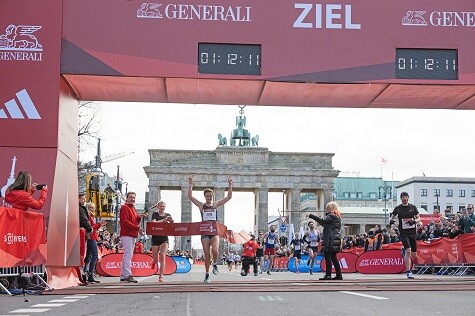
Amanal Petros stood beside teammates Simon Boch, Konstantin Wedel as well as Hendrik Pfeiffer on the podium in the aforementioned European Championship silver-medal team. All four will be competing at the BMW BERLIN-MARATHON. Simon Boch (LG Telis Finanz Regensburg) was German runner-up in the half marathon in the spring and secured the German team title for his team with this performance. Hendrik Pfeiffer, who competes for TK Hannover, won the Hannover Marathon last year. And just like his competition, the 30-year-old is hoping to use the race in Berlin to qualify for the Olympic Games in Paris.
European marathon champions at the start
The German women's marathon team was even more successful than the men at the 2022 European Athletics Championships. With the line-up of Miriam Dattke, Domenika Mayer (both LG Telis Finanz Regensburg), Deborah and Rabea Schöneborn (both MARATHON TEAM BERLIN) and Kristina Hendel (LG Braunschweig), they won the gold medal. The mentioned European champions will run at the BMW BERLIN-MARATHON. For the women, too, the race in Berlin is considered to be an important milestone to make it to the 2024 Olympic Games.
Partnerships with great added value
For the BMW BERLIN-MARATHON 2023, SCC EVENTS announced NORQAIN as its new timing partner. NORQAIN is familiar as a high-quality, family-owned watch manufacturer. The company is based in Nidau, the heart of the Swiss chronograph industry. Christian Jost, Managing Director of SCC EVENTS, is delighted about the commitment of the traditional Swiss watch manufacturer: "Reliability is one of our core values in the mission statement of SCC EVENTS. With NORQAIN, the BMW BERLIN-MARATHON gains a partner whose recipe for success is based on reliability and quality. This partnership has a great added value for us as organiser and for all the participants, who always expect a spirit of innovation and a reliably high standard from the BMW BERLIN-MARATHON."
"As a brand deeply rooted in the world of adventure and exploration, we are thrilled to embark on this multi-year partnership with the BMW BERLIN-MARATHON", said Ben Küffer, Founder & CEO of NORQAIN. "We are honoured to be the Official Timekeeper of the BMW BERLIN-MARATHON, an iconic event that embodies the values of perseverance, determination, and the pursuit of excellence, which are at the core of NORQAIN's DNA.”
The cashless online payment system PayPal has also been one of the partners of the BMW BERLIN-MARATHON for some time. "Anyone competing at the BMW BERLIN-MARATHON is expecting a high-quality sports experience. A fast, simple and secure payment system makes it easier for runners be able to focus on the essential aspects of the event," says Christian Jost.
"We are very happy about the renewed cooperation with SCC EVENTS. Whether at registration, beverage stands or after the race: For easy and convenient payments during the event, runners can pay with the PayPal app using a QR code Athletes can leave cash or cards at home," explains Jörg Kablitz, Managing Director of PayPal Germany, Austria and Switzerland.
Options to secure race entries possibilities and media accreditation
Although registration to participate in the race entry lottery for the 49th BMW BERLIN-MARATHON is now closed, there are still opportunities to secure a race entry for the BMW BERLIN-MARATHON 2023: through our charity partners and our official travel agents. Registration is still open for inline skaters. To apply for accreditation for the BMW BERLIN-MARATHON 2023, you must send a request via the press portal on our website, which is now possible.
Login to leave a comment
BMW Berlin Marathon
The story of the BERLIN-MARATHON is a story of the development of road running. When the first BERLIN-MARATHON was started on 13th October 1974 on a minor road next to the stadium of the organisers‘ club SC Charlottenburg Berlin 286 athletes had entered. The first winners were runners from Berlin: Günter Hallas (2:44:53), who still runs the BERLIN-MARATHON today, and...
more...

